failed state
description: a political entity that has disintegrated to a point where basic conditions and responsibilities of a sovereign government no longer function properly
311 results
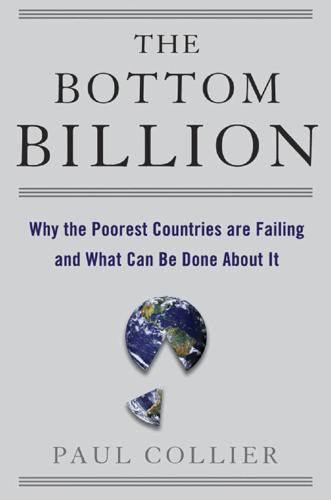
The Bottom Billion: Why the Poorest Countries Are Failing and What Can Be Done About It
by
Paul Collier
Published 26 Apr 2007
Some sort of reform is much more likely to be initiated in postconflict states than in other failing states, but many of these incipient reforms will fail because it is harder to sustain any continuous course of change. This suggests that there is an important difference between postconflict situations and other failing states. Recall the depressing statistic that the expected time before a failing state achieves decisive change is fifty-nine years. The normal condition for a failing state is to be stuck, as bad policies and governance are highly persistent. Postconflict situations are the major exception: they are failing states, but change is relatively easy.
…
This suggests that our policy interventions to help failing states need to differentiate between types of situations, treating postconflict situations as major opportunities. I will have more to say on that in Part 4. The Costs of Neglect: Why It Matters for G8 Policy The typical failing state is going to go on failing for a long time. Does it matter? The whole topic of failing states is fashionable because people have an uneasy sense that it probably does matter. After 9/11 the U.S. aid budget was increased by 50 percent, and the main impetus for it was the perceived need to fix failing states. In Part 4 you will see how, ironically, this is what aid is not going to do.
…
In this case, fortunately, we got results that were surprisingly robust. The costs of a failing state build up year by year. The growth rate of the failing state is very sharply reduced—indeed, it is likely to be in absolute decline. And the growth of neighbors is also sharply reduced. Since failing states take such a long time to turn around, these costs continue way into the future. Economists routinely convert flows of future costs into a single number, which they term a “discounted present value.” We estimated that the cost of a single failing state over its entire history of failure, to itself and its neighbors, is around $100 billion.

Zero-Sum Future: American Power in an Age of Anxiety
by
Gideon Rachman
Published 1 Feb 2011
The problem was all the more alarming because the list of potential “failed states” seemed only to be growing, particularly in the aftermath of the Great Recession. Some of the nations on the watch list were big countries of obvious strategic importance. The U.S. Defense Department caused massive offense in Mexico with a leaked assessment that America’s southern neighbor was in danger of becoming a failed state.16 If the implication was that Mexico might turn into Afghanistan or Somalia, that was clearly absurd. Yet if a failure to control territory and to exert the rule of law is one important mark of a failed state, Mexico clearly fit the description.
…
The peacekeeping deficit means that, over the next decade, more parts of the world are likely to join the list of failed states and fall into disrepair and despair. A second reason why the number of failed states is likely to rise is that the rapid global economic growth that preceded the crash of 2008 is unlikely to resume for some years. The prospect that globalization would offer jobs and opportunity to some of the poorest people in the world was the best hope of combating the root causes of state failure. There is a close connection between poverty and war in “failed states.” Basically, the poorer a country is, the more likely it is to degenerate into civil war.
…
Phrases like “global economic imbalances,” “failed states,” and even “nuclear proliferation” can sound abstract and even a little dull. But failure to deal with these problems effectively over the next decade could cause global political turmoil. Among the biggest risks is the danger of a major new war in the Middle East, provoked by a failure to rein in Iran’s nuclear program. The debt crisis in Europe or trade wars, triggered by American anger at Chinese mercantilism, could plunge the world economy into a severe new downturn. The inability to stabilize failing states could see countries such as Afghanistan and Pakistan slipping further into violent anarchy, with dangerous consequences for the rest of the world.
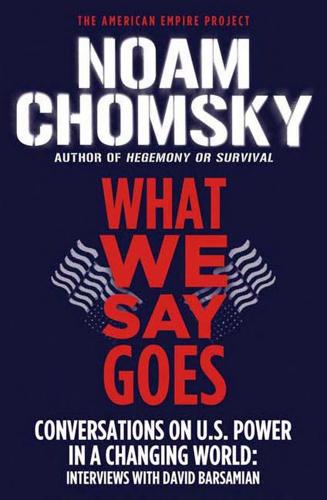
What We Say Goes: Conversations on U.S. Power in a Changing World
by
Noam Chomsky
and
David Barsamian
Published 1 Oct 2007
It’s different if you’re eating in elegant restaurants, meeting your rich friends, and reading the editorials in the Wall Street Journal. In Hegemony or Survival, you say that there is a “severe democracy deficit” in the United States.24 I’ve discussed this in more detail in a later book, Failed States, running extensively through public opinion studies and actual policy.25 There is an enormous gap between public opinion and policy. In 2005, for example, right after the federal budget was announced, the Program on International Policy Attitudes, which also studies domestic issues, did an extensive poll on what people thought the budget ought to be.
…
And the same with Lyndon Johnson’s progressive measures, which were not insignificant. He played a role in them, but a wave of popular activism demanded them. It’s the same with anything else. Did Betty Friedan say, “Let’s have women’s rights,” and all of a sudden we had women’s rights? No. It’s a long struggle. That’s what education is. In Failed States, you point out that often critics of the system are denounced for being negative and never having anything positive to put forth. You address that criticism with some specific suggestions about solutions.49 Very unoriginal suggestions that just happen to be supported by a large majority of people in the United States.
…
You address that criticism with some specific suggestions about solutions.49 Very unoriginal suggestions that just happen to be supported by a large majority of people in the United States. I think they’re good suggestions. They would change the country significantly. There is nothing radical about them, but they’re off the agenda. That’s part of the serious collapse of democratic institutions. Let me just read some of your suggestions in Failed States: accept the jurisdiction of the International Criminal Court and the World Court, sign and carry forward the Kyoto Protocols, let the United Nations take the lead in international crises, rely on diplomatic and economic measures rather than military ones in confronting terror, keep to the traditional interpretation of the UN Charter, give up the Security Council veto.
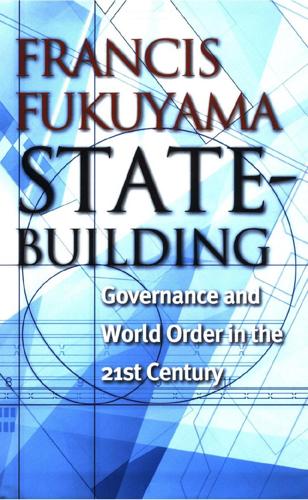
State-Building: Governance and World Order in the 21st Century
by
Francis Fukuyama
Published 7 Apr 2004
Is there a source of international legitimacy that does not itself depend on the existence and strength of sovereign nation-states? If not, doesn’t the attack on sovereignty become a self-contradictory enterprise? In this chapter, I address this set of interrelated problems. Since the end of the Cold War, weak or failing states have arguably become the single most important problem for international order (Crocker 2003). Weak or failing states commit human rights abuses, provoke humanitarian disasters, drive 92 weak states and international legitimacy 93 massive waves of immigration, and attack their neighbors. Since September 11, it also has been clear that they shelter international terrorists who can do significant damage to the United States and other developed countries.
…
During the period from the fall of the Berlin Wall in 1989 to September 11, 2001, the vast majority of international crises centered around weak or failing states. These included Somalia, Haiti, Cambodia, Bosnia, Kosovo, Rwanda, Liberia, Sierra Leone, Congo, and East Timor. The international community in various guises stepped into each of these conflicts—often too late and with too few resources—and in several cases ended up literally taking over the governance function from local actors. The September 11 attacks highlighted a different sort of problem. The failed state of Afghanistan was so weak that it could in effect be hijacked by a non-state actor, the terrorist organization al-Qaida, and serve as a base of global terrorist operations.
…
Traditional forms of deterrence or containment would not work against this type of nonstate actor, so security concerns demanded reaching inside of states and changing their regime to prevent future threats from arising. The failed state problem that was seen previously as largely a humanitarian or human rights issue suddenly took on a major security dimension. In the words of Michael Ignatieff (2003), “It was also, in the 1990’s, a general failure of the historical imagination, an inability of the post-cold-war West to grasp that the emerging crisis of state order in so many overlapping zones of the world—from Egypt to Afghanistan— would eventually become a security threat at home.” Apart from abjectly failed states like Somalia or Afghan- 94 state-building istan, there was another type of governance problem driving international instability as well.
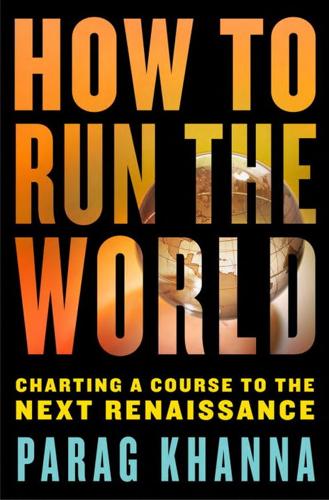
How to Run the World: Charting a Course to the Next Renaissance
by
Parag Khanna
Published 11 Jan 2011
We often wait to act until the specter of the label “failed state” is stamped on a country’s image. But the signs of a state being in failure appear far in advance. In Pakistan, Musharraf’s 1999 coup was viewed as an effort to clean up corruption, but in fact his reign provided only a veneer of stability over a state in a continuous process of failure. Musharraf was not the antidote to state failure in Pakistan; he accelerated it. In the process, Pakistan, like so many other failing states, has lost the technical, fiscal, and even moral authority to run itself. Failed states create the worst kind of terrorism. By far the largest number of martial casualties results not from wars between countries, but rather from civil wars within dozens of failed states.
…
Failed states create the worst kind of terrorism. By far the largest number of martial casualties results not from wars between countries, but rather from civil wars within dozens of failed states. In the 1980s and ’90s, two-thirds of sub-Saharan Africa’s forty-three countries suffered from civil war—and the toll in lives from displacement and disease was far greater than the deaths during fighting itself. In failing states the leading killers are not tanks or guided missiles but AK-47s, available for as little as ten dollars on some street corners in Mexico, Central America, the Andean region of South America, central and sub-Saharan Africa, southeastern Europe, the Caucasus, and southern and Southeast Asia.
…
Since then the bar of civility has risen from merely the “capacity to govern” (League of Nations) to “peace-loving nations” (United Nations) to the Copenhagen criteria of democracy, human rights, and free markets (European Union). Yet today many countries still remain a long way from meeting even the League of Nations’ most basic standard of a century ago. The only way most failed states will ever meet the standards of civilization is if we abandon the quest for sovereignty in favor of hybrid statehood. Across the world’s failing states, the weak need protection from militias and floods equally—delivering human security cannot wait for government “capacity building.” The foot soldiers of humanitarianism constantly relocate from Haiti to Afghanistan to Indonesia to confront the worst disasters, for which there is no strategy, only improvisation.
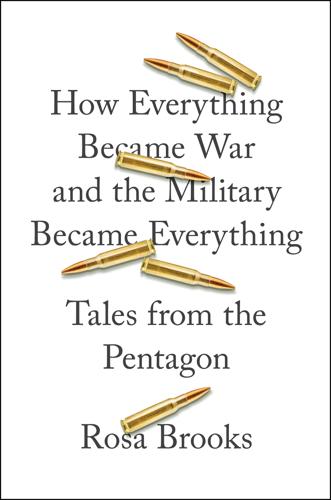
How Everything Became War and the Military Became Everything: Tales From the Pentagon
by
Rosa Brooks
Published 8 Aug 2016
But it can hardly be attributed to some sort of state failure—to the collapse of once functioning global governance institutions—since such institutions never existed. By definition, the international order cannot be considered a failed state on a global scale, because there never existed a global state that could fall apart. But is it so silly to analogize the international order to a failed state? True, there never was a global state that existed, so it seems odd to speak of the international community as a failed state. But much the same could be said of many failed states on the national level. That is: most so-called failed states were never really states in the first place, at least not in anything more than a strictly technical sense.
…
To trace these changes, it’s worth thinking briefly about where states come from, and what they do.1 And just as we sometimes end up trying to make sense of war by emphasizing those things that are not war—chess, rugby, homicide, riots, economic competition, trade sanctions—perhaps the best way to understand states is to start by thinking about what we call “failed states.”2 In the years since the end of the Cold War, the international community—and the community of international lawyers—has become increasingly preoccupied with “failed states.”3 Successful states control defined territories and populations, conduct diplomatic relations with other states, monopolize legitimate violence within their territories, and succeed in providing adequate social goods to their populations. Failed states, their dark mirror image, lose control over the means of violence, and cannot create peace or stability for their populations or control their territories.4 Recent examples of failed states are familiar to us all, from the total collapse of state institutions in Somalia and the disintegration of the former Yugoslavia to the varied crises in Syria, Iraq, Libya, Afghanistan, Sudan, Rwanda, Haiti, Congo, and Sierra Leone.
…
Failed states, their dark mirror image, lose control over the means of violence, and cannot create peace or stability for their populations or control their territories.4 Recent examples of failed states are familiar to us all, from the total collapse of state institutions in Somalia and the disintegration of the former Yugoslavia to the varied crises in Syria, Iraq, Libya, Afghanistan, Sudan, Rwanda, Haiti, Congo, and Sierra Leone. One notch up the food chain from failed states are the numerous “weak” or “failing” states, which together constitute much of sub-Saharan Africa (consider Côte d’Ivoire, Zimbabwe, Mali, Burundi, Mozambique, Liberia, and Angola, to name but a few of the most notorious), significant chunks of Central Asia, and parts of Latin America and South Asia.

Pax Technica: How the Internet of Things May Set Us Free or Lock Us Up
by
Philip N. Howard
Published 27 Apr 2015
Sottek, “Google Now Offers Google Earth, Picasa, and Chrome in Syria,” Verge, May 24, 2012, accessed September 30, 2014, http://www.theverge.com/2012/5/24/3041459/google-earth-picasa-chrome-syria. 39. Monk School of Global Affairs, Internet Filtering in a Failed State: The Case of Netsweeper in Somalia (Toronto: University of Toronto, February 2014), accessed September 30, 2014, https://citizenlab.org/2014/02/internet-filtering-failed-state-case-netsweeper-somalia/; Monk School of Global Affairs, O Pakistan, We Stand on Guard for Thee: An Analysis of Canada-Based Netsweeper’s Role in Pakistan’s Censorship Regime (Toronto: University of Toronto, June 2014), accessed September 30, 2014, https://citizenlab.org/2013/06/o-pakistan/. 40.
…
See also cyberespionage Estrada, Joseph, 127 Ethiopia, 215 Euromaidan protests (Ukraine), 114–15 Europe, political parties in, defending internet freedom, 166 European Union, 98 export controls, 252 extremism, resilience of, 131 extremist groups, 216–17, 219, 220 Facebook: xiii–xiv, 8, 9, 122; facilitating clan formation, 173, 174; governments requesting data from, 26; used as recruiting tool, 216–17 failed states, 72, 80–84, 94, 159; data from, 110–11; technology use in, 134 failing states, 80–84, 94 fair-trade coffee movement, 49–50 Federal Bureau of Investigation (FBI), 39 Femen network (Ukraine), 86 feudalism, 63–64 filter bubble, 202 financial markets, bots in, 34 Finfisher, 201 Firefox, 64 firms, rise of, 6 FISA. See Foreign Intelligence Surveillance Act Flame (virus), 40 Flemish, self-governance and, 145 Flickr, 9 foreign affairs, device networks and, 249 Foreign Intelligence Surveillance Act, 24 foreign policy, technology policy and, 8 fourth wave, 51 Freegate, 30 Free Syria Army, 62 Frischmann, Brett, 243 FrontlineSMS, 101–2, 119 Fukuda, Hareaki, 253 Fukushima Daiichi nuclear plant, 177 Fukuyama, Francis, 12, 52, 129 Gauss (virus), 40 gender politics, 76–77 geographic information systems, 48 geolocation, xiii–xiv Georgia, 238 Gibbon, Edward, 232 GIS.
…
Dictators and Dirty Networks Digital networks can expose connections that political boundaries do not. Two-thirds of the world’s population lives in countries without fully functional governments. Or more accurately, they live in communities not served by states with real governments. They live in refugee camps, breakaway republics, corporate-run free economic zones, gated communities, failed states, autonomous regions, rebel enclaves, or walled slums. Modern pirates dominate their fishing waters, and complex humanitarian disasters disrupt local institutions regularly. Organizing people to solve problems in such places is especially tough. In many of these places, rogue generals, drug lords, or religious thugs who report to no one (not on this earth, anyway) lead governments.
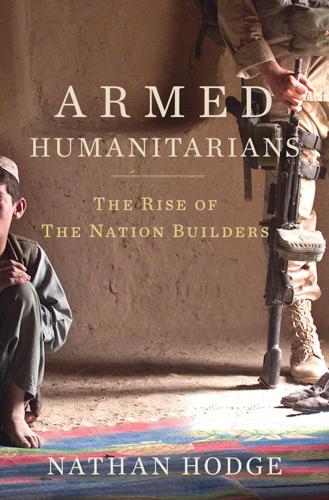
Armed Humanitarians
by
Nathan Hodge
Published 1 Sep 2011
The Pentagon became fixated on soft power as the answer for security problems such as terrorism and insurgency. Military commanders threw billions of dollars at quasi-development schemes in the hopes that a combination of aid money and armed social work would get at the root causes of violence in failing states. And top policymakers launched an initiative to refashion government around the tasks of state building. The short-term lessons drawn from Iraq took on a life of their own, as policymakers and practitioners looked to repeat the experiment on an equally grand scale in Afghanistan. In a debate with Vice President Al Gore in 2000, the Republican presidential candidate, George W.
…
“Afghanistan and other troubled lands today cry out for the sort of enlightened foreign administration once provided by self-confident Englishmen in jodhpurs and pith helmets,” he wrote.13 Implicit in that clever shorthand was a critique: The United States lacked a talented class of colonial administrators capable of refashioning failed states and preparing the local inhabitants for eventual self-rule. At first glance, it looks as if Boot’s post-9/11 wish has been fulfilled—and that the United States is finally creating the twenty-first-century equivalent of the British Empire’s Colonial Service. Over the 2000–2010 decade, a new class of nation builders has emerged: staffing Provincial Reconstruction Teams in cities in Iraq; constructing roads in rural Afghanistan; or training Kalashnikov-toting soldiers in Timbuktu.
…
The Pentagon’s embrace of this new strategy can be charted out in a series of official documents. One week before the STAR-TIDES demonstration at the Pentagon, in October 2008, the U.S. Army released Field Manual 3-07, Stability Operations. The manual provided the military with a blueprint for rebuilding failed states. And it stated the obvious: Nation building requires a lot of “soft power” and the full participation of the civilian agencies of government if it is to succeed. According to the manual, the United States faced a new era in which “the greatest threats to national security will not come from emerging ambitious states, but from nations unable or unwilling to meet the basic needs and aspirations of their people.”
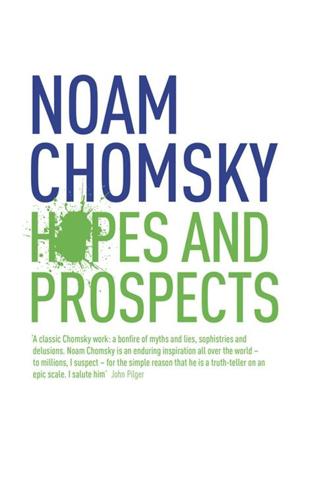
Hopes and Prospects
by
Noam Chomsky
Published 1 Jan 2009
Yossi Beilin, Mehiro shel Ihud (Tel Aviv: Revivim, 1985), 42, 147; the primary source for Israeli cabinet records under the Labor coalition, 1967–77. Dayan’s analogy, Gorenberg, Accidental Empire, 81–2. For more on these matters, see Failed States, chap. 5; my Middle East Illusions (Lanham, MD: Rowman and Littlefield, 2003), chap. 6. Herald cited by James Bradley, The Imperial Cruise (New York: Little, Brown & Co., 2009), 63. 36. Sometimes called a “one-state solution,” though there clearly are two groups, each entitled to respect for their own cultural mix, language, and identity. 37. See Failed States, 193ff. 38. For an illustration, see economist Sever Plocker (“A Thorn in the World’s Side,” Yediot, November 3, 1999; http://www.ynetnews.com/articles/0,7340,L-3798761,00.html), describing with despair how he must cancel a lecture in Oxford because the anti-Israel atmosphere there is so extreme that he would be treated as a leper.
…
Akiva Eldar, Haaretz, December 2, 2008 (Hebrew). Dennis Ross, The Missing Peace (New York: Farrar, Straus and Giroux, 2004). See Norman Finkelstein, Dennis Ross and the Peace Process (Beirut: Institute for Palestine Studies, 2007); Failed States, 183–4. 39. Quoted in Jeff Zeleny, New York Times, November 27, 2008. 40. “Notable and Quotable,” Wall Street Journal, November 22, 2008. 41. For a sample of polls, see Failed States, 225. For more extensive review, Vicente Navarro, Why the United States Does Not Have a National Health Program (Amityville, NY: Baywood, 1992); Dangerous to Your Health (New York: Monthly Review Press, 1993); The Politics of Health Policy (Cambridge, MA: Blackwell Publishers, 1994), 210ff. 42.
…
Native Americans were subjugated, driven from their homes, and slaughtered, hence could not recover. 3. For sources where not cited, and further details on the earlier history, here and below, see my Year 501 (Cambridge, MA: South End Press, 1993). 4. John Steinbrunner and Nancy Gallagher, and Robert McNamara, respectively. See my Failed States (New York: Metropolitan Books, 2006), for sources and discussion. 5. Charles Mann, 1491: New Revelations of the Americas Before Columbus (New York: Knopf, 2005). His quote. 6. Francis Jennings, The Invasion of America (Chapel Hill, NC: University of North Carolina Press, 1975), 306, one of the earliest modern studies to shatter the jingoist consensus. 7.
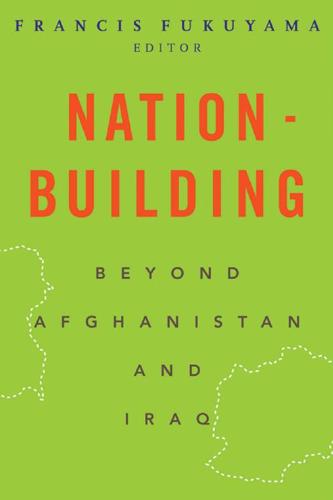
Nation-Building: Beyond Afghanistan and Iraq
by
Francis Fukuyama
Published 22 Dec 2005
• 1 • • Francis Fukuyama The frequency and intensity of U.S. and international nation-building efforts have increased since the end of the Cold War, which, as Michael Ignatieff has pointed out, left a band of weak or failed states stretching from North Africa through the Balkans and the Middle East to South Asia.1 In addition, parts of sub-Saharan Africa, East Asia, Central America, and the Caribbean have been the loci of state failure in recent decades. These failures have produced refugees, human rights abuses, inter- and intrastate wars, drug and human trafficking, and other problems that crossed international borders. And after September 11, 2001, it became clear that weak or failed states could sponsor terrorism that threatened the core security interests of the world’s sole superpower, the United States.
…
And after September 11, 2001, it became clear that weak or failed states could sponsor terrorism that threatened the core security interests of the world’s sole superpower, the United States. Although conventional military power was sufficient for some purposes, such as expelling Serbian military forces from Kosovo or defeating Saddam Hussein’s army, the underlying problems caused by failed states or weak governance could only be solved through long-term efforts by outside powers to rebuild indigenous state institutions. Security problems in earlier times centered around strong states that could maintain a monopoly of force over their own territory, but many post–Cold War crises involved an internal absence of state power that necessitated outside intervention and long-term receivership by the international community.
…
And in both countries, the Allied occupations eventually got around to promoting economic reconstruction, once the Soviets had finished stripping their occupation zones of equipment as war reparations. But in both cases, what went on under the rubric of nation-building looked quite different from more recent efforts in such failed states as Somalia, East Timor, or Afghanistan, where the state itself had ceased to exist. Reconstruction versus Development Nation-building encompasses two different types of activities, reconstruction and development. Although the distinction between the two is often blurred, it was always present to nation-builders of earlier generations dealing with post-conflict situations.

The New Digital Age: Transforming Nations, Businesses, and Our Lives
by
Eric Schmidt
and
Jared Cohen
Published 22 Apr 2013
If state control relies on the perception of total command of events, every incident that undermines that perception—every misstep captured by camera phone, every lie debunked with outside information—plants seeds of doubt that encourage opposition and dissident elements in the population, and that could develop into widespread instability. There may be only a handful of failed states in the world today, but they offer an intriguing model for how connectivity can operate in a power vacuum. Indeed, telecommunications seems to be just about the only industry that can thrive in a failed state. In Somalia, telecommunications companies have come to fill many of the gaps that decades of war and failed government have created, providing information, financial services and even electricity. In the future, as the flood of inexpensive smart phones reaches users in failed states, citizens will find ways to do even more. Phones will help to enable the education, health care, security and commercial opportunities that the citizens’ governments cannot provide.
…
Mobile technology will also give much-needed intellectual, social and entertainment outlets for populations who have been psychologically traumatized by their environment. Connectivity alone cannot revert a failed state, but it can drastically improve the situation for its citizens. As we’ll discuss later, new methods to help communities handle conflict and post-conflict challenges—developments like virtual institution building and skilled labor databases in the diaspora—will emerge to accelerate local recovery. In power vacuums, though, opportunists take control, and in these cases connectivity will be an equally powerful weapon in their hands. Newly connected citizens in failed states will have all the vulnerabilities of undeletable data, but none of the security that could insulate them from those risks.
…
Dugan, Regina, 3.1, 5.1, 6.1 Duggan, Mark DuPont East Africa Eastern Europe East India Company e-banking, 3.1, 3.2 e-commerce, 3.1, 3.2, 5.1 economic crash, 2008, 2.1 economics, data about Economist, 96–7 education, 1.1, 1.2, 2.1, 2.2 data about privacy in security in efficiency e-government Egypt, 3.1, 4.1, 4.2, 4.3, 4.4, 4.5, 6.1n Egyptian Credit Bureau, n Egyptian Stock Exchange, n El Al Airlines election irregularity elections, U.S., 2012, 4.1 elections, Venezuela electricity Emergency Information Service empathy encryption, 2.1, 2.2, 2.3, 4.1 Ennahda party entertainment Equatorial Guinea Ericsson, 3.1, 3.2 Eritrea Estonia, 3.1, 6.1 Ethiopia Etisalat Etisalat Misr European Commission European Union, 2.1, 3.1, 4.1 evolution, 3.1, con.1 exiles expectations gap explosive-ordnance-disposal (EOD) robots extortionists Facebook, itr.1, 2.1, 2.2, 2.3, 2.4, 2.5, 2.6, 3.1, 3.2, 3.3, 4.1, 5.1, 5.2, 6.1, 6.2 data safeguarded by facial-recognition software, 2.1, 2.2, 6.1, con.1 failed states FARC Farmer, Paul FBI, 2.1, 5.1 Ferrari, Bruno fiber-optic cables, itr.1, 3.1, 4.1, 4.2 filtering, 2.1, 3.1 financial blockades fingerprinting Finland Fixing Failed States (Lockhart and Ghani), 7.1n Flame virus, 3.1, 3.2 Food and Drug Administration food prices foreign aid forgetfulness Forum on China-Africa Cooperation (FOCAC) Foster-Miller 4G, 7.1, 7.2 France, 6.1, 7.1, nts.1 Freakonomics (Levitt and Dubner), 2.1 Fred freedom of assembly free expression free information French Data Network Fukushima nuclear crisis, n gacaca, 249–50 Gadhafi, Muammar, 4.1, 4.2, 7.1 Gallic Wars “Gangnam Style,” 24n Gates, Robert Gaza General Motors genocide virtual genome sequencing geography Georgia (country) Georgia (state) Germany gesture-recognition technology Ghana Ghani, Ashraf, n GiveWell globalization, 1.1, 3.1 Global System for Mobile Communications (GSM) Goldsmith, Jack, n Google, itr.1, 2.1, 3.1, 3.2, 3.3n, 163, 5.1, 7.1 Chinese cyber attacks on, itr.1, 3.1, 3.2 data safeguarded by driverless cars of Project Glass in tweet-by-phone service of Google App Engine Google Earth Google Ideas Google Map Maker Google Maps, 6.1, nts.1 Google+ Google Voice GPS, 6.1, 6.2, 6.3 GPS data Great Firewall of China, 3.1, 3.2 GreatNonprofits Green Revolution GuideStar hackers, 2.1, 2.2, 5.1, 5.2, 6.1 Hackers’ Conference, n hacktivists Hague, 6.1, 7.1, 7.2 haircuts Haiti, itr.1, 7.1, 7.2, 7.3 Haiti After the Earthquake (Farmer), 7.1 Hama, Syria Hamas, 5.1, 5.2, 6.1 Han Chinese handheld mobile devices Hanseatic League haptic technology, 1.1, 2.1n, 203–4 harassment, 6.1, 6.2 hard-drive crashes hawala, 69 Hayden, Michael V.
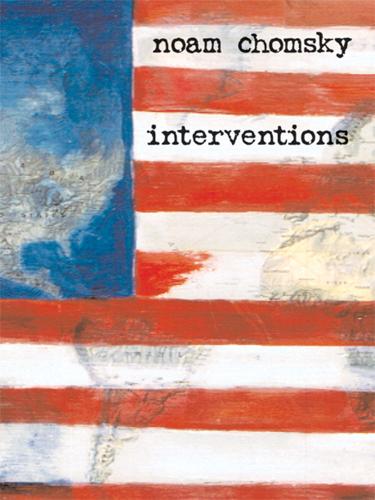
Interventions
by
Noam Chomsky
It is important to note that during the period that Chomsky wrote the essays in this book—2002 to 2007—he also wrote several major works: Hegemony or Survival (which held ground for weeks on the New York Times bestseller list after Hugo Chávez praised it during a speech before the United Nations in 2006), Failed States and Perilous Power (with Gilbert Achcar and Stephen Shalom), all of which discuss many of the ideas contained in Interventions in greater detail. In composing op-eds, Chomsky is taking advantage of the fact that our society is still one of the freest in the world: openings still exist to challenge the White House, the Pentagon, and the corporations enriched by them.
…
The other way is to construct even more awesome instruments of destruction and domination, so that any perceived challenge, however remote, can be crushed—provoking new and greater challenges. NOTES 1. Postwar intelligence assessments revealed that the increase was well beyond what had been anticipated. See my Failed States (2006), page 18ff., and the classified National Intelligence Estimate, reported by Mark Mazzetti, “Spy Agencies Say Iraq War Worsens Terrorism Threat,” in the New York Times, September 24, 2006. In the March/April 2007 issue of Mother Jones, terrorism specialists Peter Bergen and Paul Cruickshank discussed their recent study showing that “the Iraq War has generated a stunning sevenfold increase in the yearly rate of fatal jihadist attacks, amounting to literally hundreds of additional terrorist attacks and thousands of civilian lives lost; even when terrorism in Iraq and Afghanistan is excluded, fatal attacks in the rest of the world have increased by more than one-third.” 2.
…
It was supported by the Bush administration, and praised as “moderate” in Western commentary—perhaps too moderate, the U.S.-Israel determined after their invasion of Lebanon in July 2006. 2. Sometimes Washington has gone out of its way to humiliate Israel, with no reaction from the lobby. For one striking example in 2005, see Failed States, page 189. Uri Avnery argues that U.S. orders blocked Israel’s plans for the 2006 Lebanon war, planned well in advance, Prime Minister Ehud Olmert conceded in March 2007. Avnery, “Olmert’s Truth,” March 10, 2007, see http://www.avnery-news.co.il/english/. See also note 1 to “Dilemmas of Dominance” on page 48. 3.
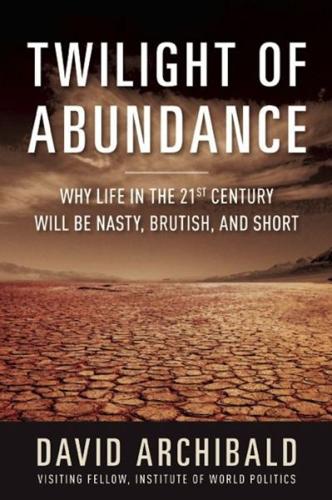
Twilight of Abundance: Why the 21st Century Will Be Nasty, Brutish, and Short
by
David Archibald
Published 24 Mar 2014
But whatever the fate of the Iranian bomb-making effort, there is already another nation that is also heading toward failed-state status while still upping the bomb-making rate of its nuclear weapons program. This is Pakistan, “the land of the pure.” Pakistan is in one of the world’s poorer countries, with a literacy rate of 55 percent and a population growth rate of 1.7 percent per annum. Yet it is believed to have an arsenal of approximately one hundred completed nuclear weapons and is accelerating its bomb-making program. Pakistan is a failed state in waiting. When it does fail, what will be the fate of all those nuclear bombs?
…
That part of the world at least may go back to the Stone Age–condition of 30 percent of adult males dying violent deaths. Very few Middle Eastern countries produce all of their food requirements. Who will pay to keep them fed when grain becomes scarce and expensive? Added into that mix are the nuclear weapons of Pakistan (a future failed state) and the ones that Iran is intent on making. China is a more formidable threat. A recent Pentagon report described China’s claim to the South China Sea as “enigmatic.” It is nothing of the sort. The claim is China’s way of grabbing its neighbors’ traditional fishing grounds and asserting hegemony in the region.
…
There is no doubt about what the end will be. There is one part of Yemen that could be very useful to any party wishing to project power in the region. The Socotra Islands off the northeast tip of Somalia were first captured by the Portuguese in 1506 and not incorporated into Yemen until 1967. When Yemen becomes a completely failed state, control of these islands will be up for grabs. There are two countries with the wherewithal and strategic interest to capture them. China’s contribution to the anti-piracy patrol off Somalia includes a landing ship, which, together with support vessels, could take Socotra at any time, unless the Chinese were interdicted.
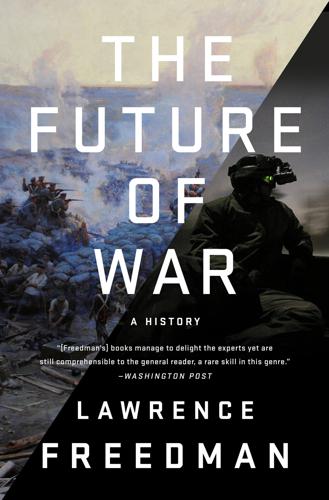
The Future of War
by
Lawrence Freedman
Published 9 Oct 2017
ISBN 978-1-61039-305-8 (HC) ISBN 978-1-61039-306-5 (EB) E3-20170928-JV-PC CONTENTS COVER TITLE PAGE COPYRIGHT DEDICATION INTRODUCTION PART ONE 1 Decisive Battle 2 Indecisive Battle 3 The House of Strife 4 Victory Through Cruelty 5 Failures of Peace 6 Total War 7 The Balance of Terror 8 Stuck in the Nuclear Age 9 A Surprise Peace PART TWO 10 A Science of War 11 Counting the Dead 12 Democracy and War 13 New Wars and Failed States 14 Ancient Hatreds and Mineral Curses 15 Intervention 16 Counter-Insurgency to Counter-Terrorism 17 From Counter-Terrorism to Counter-Insurgency 18 The Role of Barbarism 19 Cure Not Prevention PART THREE 20 Hybrid Wars 21 Cyberwar 22 Robots and Drones 23 Mega-Cities and Climate Change 24 Coming Wars 25 The Future of the Future of War ACKNOWLEDGMENTS ABOUT THE AUTHOR ALSO BY LAWRENCE FREEDMAN BIBLIOGRAPHY NOTES INDEX For Sir Michael Howard Teacher, Mentor, Friend INTRODUCTION My trade is courage and atrocities.
…
The combination of a winner-take-all parochial approach to politics with opportunities to compete for control of central state authority represents a powder keg for political crisis.24 Almost as the theory of the democratic peace was propounded, states becoming democracies experienced conflicts and inner violence. In this way the question of democratisation became linked with the other great issue of the 1990s—the apparent surge in the number of civil wars. [ 13 ] New Wars and Failed States A state is a human community that (successfully) claims the monopoly of the legitimate use of physical force within a given territory. MAX WEBER, Politics as a Vocation, December 19181 We noted in Chapter 5 the aftershocks of the First World War as old states suffered upheavals and new states were created.
…
.… As those states descend into violence and anarchy—imperiling their own citizens and threatening their neighbors through refugee flows, political instability, and random warfare—it is becoming clear that something must be done.… Although alleviating the developing world’s suffering has long been a major task, saving failed states will prove a new—and in many ways different—challenge.31 Others came to write of ‘collapsed states’,32 ‘troubled states’, ‘fragile states’, ‘states-at-risk’, or just ‘weak states’. Fine distinctions might be made between these conditions, but the basic idea remained that some states were a danger to themselves and their neighbours and needed to be put into an international equivalent of intensive care.
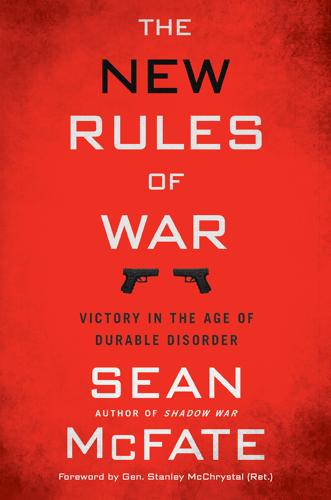
The New Rules of War: Victory in the Age of Durable Disorder
by
Sean McFate
Published 22 Jan 2019
For examples of other fragile state rankings, see Daniel Kaufmann and Aart Kraay, “Worldwide Governance Indicators Project,” World Bank, accessed 13 June 2018, http://info.worldbank.org/governance/wgi/#home; Arch Puddington and Tyler Roylance, “Populists and Autocrats: The Dual Threat to Global Democracy,” Freedom in the World Report 17, Freedom House, https://freedomhouse.org/report/freedom-world/freedom-world-2017; Human Development Report 2016, United Nations Development Programme, http://hdr.undp.org/en/composite/HDI; “States of Fragility Reports,” The Organization of Economic Co-operation and Development (OECD), last updated 2016, www.oecd.org/dac/conflict-fragility-resilience/listofstateoffragilityreports.htm; “Corruption Perception Index,” Transparency International, 21 February 2018, www.transparency.org/research/cpi/overview. For examples of scholarship, see Robert I. Rotberg, “Failed States, Collapsed States, Weak States: Causes and Indicators,” in State Failure and State Weakness in a Time of Terror (Cambridge, MA: Brookings Institution Press, 2003), 1–25; Ashraf Ghani and Clare Lockhart, Fixing Failed States: a Framework for Rebuilding a Fractured World (New York: Oxford University Press, 2009); Jean-Germain Gros, “Towards a Taxonomy of Failed States in the New World Order: Decaying Somalia, Liberia, Rwanda and Haiti,” Third World Quarterly 17, no. 3 (1996): 455–72. 7.
…
Tom Clancy is writing The Hunt for Red October, and the United States and the USSR nearly start a nuclear war over a NATO exercise in Germany called “Able Archer.” At the height of this Cold War frenzy, Olson points to a different future. Brushing aside the US-USSR conflict, he predicts that the future will descend into Islamic terrorism, ethnic conflict, failed states, and a global insurgency against the West. All of this was unfathomable back then. Unlike his peers, he spoke fluent Farsi and had spent the 1970s traveling in Afghanistan and Iran. What he saw that his contemporaries missed was a “parallel international system” festering dangerously.13 Olson was lambasted as a kook.
…
People owe their obedience to the government in exchange for social services like security, justice, education, and health care. If the population is dissatisfied, it can fire the government and elect new leaders. Political scientists call this dynamic the “social contract” between ruler and ruled. COINistas think you can forge a new social contract in failed states if you provide people with better social services, literally building a nation out of dust. One COINista even called it “armed social work” (which angered social workers everywhere).9 As a result, the United States blew billions in Iraq and Afghanistan building schools, roads, hospitals—a state.
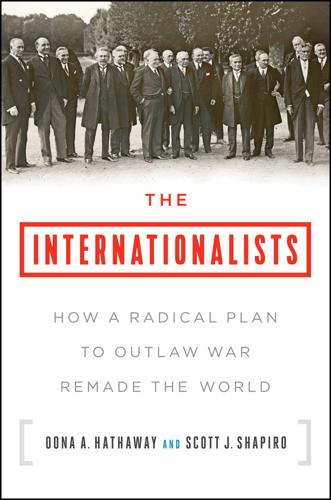
The Internationalists: How a Radical Plan to Outlaw War Remade the World
by
Oona A. Hathaway
and
Scott J. Shapiro
Published 11 Sep 2017
In the New World Order, military aggression is illegal, allowing even weak states to survive. But a world in which weak states can survive is also a world in which weak states can become failed states. Failed states all too often collapse into civil war and humanitarian catastrophe, and they serve as breeding grounds for insurgencies and terrorism. The decline of interstate war and territorial aggression precipitated by the New World Order has thus led to a corresponding increase in failed states and intrastate war. That, too, is the result of changes set in motion by the Peace Pact of 1928. • • • Historians and international relation theorists have traditionally referred to the modern international order as the “Westphalian order.”
…
Similarly, the chronically fractured state of Afghanistan and the tribal regions of Pakistan served as an incubator for the terrorist group al Qaeda. Similar examples are easy to find: al Shabab in Somalia, Boko Haram in Nigeria, Hezbollah in Lebanon, Tehrik-i-Taliban in Pakistan, the Taliban in Afghanistan, Jabhat al Nusrah in Syria, the Houthi in Yemen.33 Though not all failed states breed terrorism and not all terrorism originates in failed states, weak and failed states are a significant source of terrorist threats. States that control their territory suppress violent groups, usually through ordinary law enforcement—police, rather than the military. In states that cannot control their territory, by contrast, violence tends to grow, with no organized force to contain or counter it.
…
Among the information it captures is “complete collapse of central political authority” (that is, “state failure or ‘interregnum’ ” so complete that there is no government to assess). The test is stringent—probably too stringent.30 Governments that are very weak or possess control over some, but not all, of its territory do not count as “failed.” (According to Polity, Iraq was not a failed state in 2014, but was in 2003.) Thus the startling numbers in the figure likely understate the number of failed states in recent decades. Figure 6: Number of Failed States28 The history of intrastate wars—armed conflicts that take place within states, not between them—follows a similar pattern, as seen in Figure 7.31 Data drawn from the “Correlates of War” project show that intrastate wars occurred during the 1800s, but there were never more than a dozen in any given year.
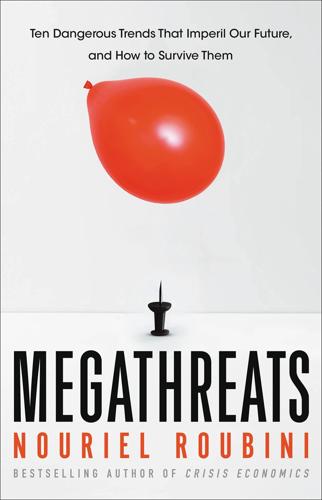
MegaThreats: Ten Dangerous Trends That Imperil Our Future, and How to Survive Them
by
Nouriel Roubini
Published 17 Oct 2022
Indeed, the migration policies of the Biden administration have ended up being not very different from those of the nativist Trump administration: faced with an influx of economic, climate, and political refugees from Central America, Biden ended up restricting entry into the United States. But, as we will discuss in later chapters, the incipient flow of potential migrants from poor countries to richer ones will swell in the next few years as global climate change, failed states, personal safety, economic underdevelopment, and poverty surge over time. Alas, the gates and borders will be closed to them, not just in Japan but increasingly in the United States and Europe too. The picture is grim, I am sorry to report. Even if advanced countries can absorb unprecedented numbers of immigrants, promises of pensions and health care to older workers will become untenable in the foreseeable future.
…
War may eventually prevail if a revised nuclear deal with Iran fails or is rejected after 2024 by a new Republican administration. Israel, which sees a nuclear Iran as an existential threat to its survival, is likely to strike Iran if Iran continues its current path of nuclear escalation. North Korea, a failed state by every measure except its nuclear arsenal, poses a clear and present danger to Japan, Korea, and the United States. It is likely to continue missile launches and other provocations that will at some point precipitate an outright military confrontation. Other countries slipping into the Chinese orbit of influence include Pakistan and Cambodia, the former an unstable nuclear power in a constant rivalry with a nuclear India that has serious territorial disputes with China.
…
Global Crisis: War, Climate Change and Catastrophe in the Seventeenth Century, by the prolific historian Geoffrey Parker, documents this behavior and its awful consequences.22 When warfare raged over control of arable land, kings, tsars, emperors, and petty despots fought each other. Civil wars ripped societies apart. It has happened in Syria and across the Middle East and most of the African continent in the last twenty years, where a number of failed states have emerged. It will only get worse as climates deteriorate. Arab-Israeli conflicts over decades are due in no small part to quarrels over who controls water sources in the Golan Heights. Those sources bring water to the Galilee valley and then all the way to Israel. People forget that before the Syrian civil war there was a drought in 2006–7 that led to the collapse of agriculture.23 Until that collapse, Sunni, Shia, Alawites, and Kurds did not like each other but they managed an uneasy peace, since there was food for everybody.
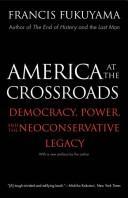
America at the Crossroads: Democracy, Power, and the Neoconservative Legacy
by
Francis Fukuyama
Published 20 Mar 2007
It is fine to argue that an ideal global order should be based on a system of states, states which coherently make and enforce rules and have the capacity to deal with other states on a relatively equal basis. But we have no idea how to get most weak or failing states to meet these conditions. We can promote political development, good governance, and democracy at the margin, but for the foreseeable future there will remain a large core of states that simply do not fit the traditional sovereignty model. In dealing with failed states like Bosnia, Kosovo, Somalia, and Afghanistan, we have pretended that external actors, from the European Union to the United States to the World Bank, are overseeing a transitional arrangement before the return of full sovereignty to these places.
…
That world is characterized by American hegemony and a global anti-American backlash, complete with inchoate forms of "soft" balancing; a shift in the locus of action away from nation-states toward non-state actors and other transnational forces; an accompanying dis- Principles and Prudence integration of sovereignty both as a normative principle and as an empirical reality; and the emergence of a band of weak and failed states that are the source of most global problems. In light of this emerging external environment, the United States needs to define an approach to foreign policy that is not captured by any of these existing positions. This approach begins from certain neoconservative premises: first, that U.S. policy and the international community more broadly need to concern themselves with what goes on inside other countries, not just their external behavior, as realists would have it; and second, that power—specifically American power—is often necessary to bring about moral purposes.
…
What we need, in other words, is a more realistic Wilsonianism that better matches means to ends in dealing with other societies. Realistic Wilsonianism differs from classical realism by taking seriously as an object of U.S. foreign policy what goes on inside states. To say that nation-building or democracy promotion is hard is not to say that it is impossible or that it should be scrupulously avoided. Indeed, weak or failed states are one of the biggest sources of global disorder today, and it is simply impossible, for reasons relating both to security and to morality, for the world's Principles and Prudence sole superpower to walk away from them. Neither realists nor neoconservatives have paid sufficient attention to the problem of development over the years, nor have they focused on parts of the world like Africa or Latin America where development is most problematic (except, of course, when countries in these regions became security threats).
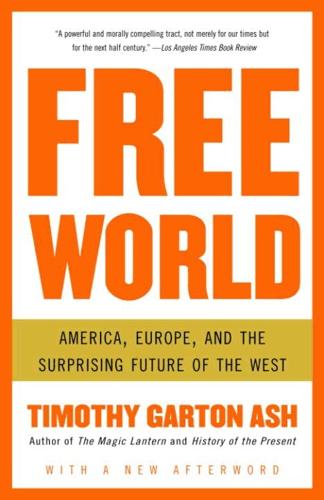
Free World: America, Europe, and the Surprising Future of the West
by
Timothy Garton Ash
Published 30 Jun 2004
There is also an extreme “old European” position: that nations can use force only in self-defense against an actual armed attack, according to a strict interpretation of Article 51 of the 1945 United Nations Charter, or with explicit authorization from the U.N. Security Council. This is equally untenable. It is inadequate for the new security risks of the early twenty-first century, in which convergences of international terrorism, rogue or failed states, and weapons of mass destruction create threats unlike those of a conventional Wehrmacht massing at the frontiers of the Third Reich or nuclear missiles in Red Army silos. Al-Qaeda, based in the failed state of Afghanistan, demonstrated that. It is also, so to speak, morally outdated in the face of an emerging Western consensus on the need to prevent regimes or dominant ethnic groups from committing genocide against people living inside the frontiers of the same state.
…
There are still quite a few of them—in Burma, in North Korea, in several parts of Africa, and, in some respects, still the Chinese communist party-state. In the early twenty-first century, however, we spend as much time worrying about states that are too weak. It’s in failed states, such as Somalia and Rwanda, that people are murdered in large numbers just because of their ethnicity. It’s in failed states, such as Afghanistan, that militant extremists and international terrorists find a congenial home. Then there’s the danger of dictators, extremists, or terrorists getting hold of the weapons of mass destruction which, thanks to the Western-led arms industry and arms trade, are ever more deadly and ever more widely available.
…
He went to Ground Zero, where Mayor Giuliani was himself drawing inspiration from Churchill’s conduct during the Blitz; he received his first standing ovation in Congress (“thank you for comin’, friend”); he dashed around the world, covering more than 40,000 air miles, having fifty-four meetings with other leaders in the course of eight weeks, trying to help the U.S. to respond wisely to the challenge.79 Britain had once again appointed itself Athens to America’s Rome. As the Bush administration’s agenda moved from destroying al-Qaeda in Afghanistan to regime change in Iraq, Blair stuck to his strategic choice. He genuinely seemed to believe that the combination of terrorism, rogue or failed states, and weapons of mass destruction was the great new challenge of our time—comparable, in scale if not in kind, to fascism in the 1930s or Soviet communism in the 1950s. But he also argued that Britain must “remain the closest ally of the United States”80 to try to prevent Washington from overreacting, to bring it back to multilateralism, and to broaden its agenda to include, for example, a peace process between Israel and Palestine.
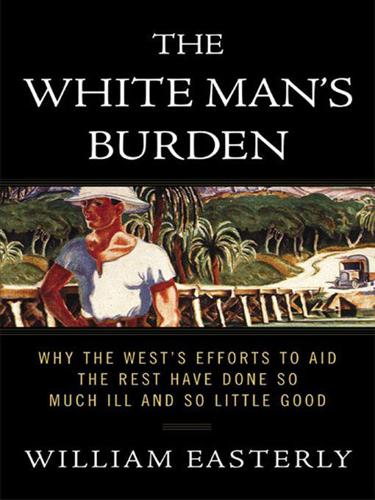
The White Man's Burden: Why the West's Efforts to Aid the Rest Have Done So Much Ill and So Little Good
by
William Easterly
Published 1 Mar 2006
The Bank announced “a joint government/ multi-donor Interim Cooperation Framework (Cadre de Coopération Intérimaire, or CCI).55 In July 2004, the CCI believed that Haiti was now “primed to tackle many urgent and medium term development needs.56The Economist in June 2005 quoted people a little closer to reality, such as diplomats stationed in Port-au-Prince, as saying that Haiti was on the verge of being a “failed state.” Foreign Policy magazine in August 2005 classified Haiti as a failed state, ranking it as more dysfunctional than the likes of Afghanistan, North Korea, and Zimbabwe.57 The long years of military intervention have failed to produce anything constructive in Haiti. As far as promoting democracy, one study on the historical record of American nation-building says that it doesn’t usually work.
…
Weinstein, “Autonomous Recovery and International Intervention in Comparative Perspective,” Center for Global Development Working Paper no. 57, April 2005. 3.James Fearon and David Laitin, “Neotrusteeship and the Problem of Weak States,” International Security 28, no. 4 (Spring 2004): 5–43. 4.Sebastian Mallaby, “The Reluctant Imperialist: Terrorism, Failed States, the Case for American Empire,” Foreign Affairs 81, no. 2 (March/April 2002); Chester Crocker, “Engaging Failing States,” Foreign Affairs 84, no. 5 September/October 2003); Stuart Eizenstat, John Edward Porter, and Jeremy Weinstein, “Rebuilding Weak States,” Foreign Affairs 84, no. 1 (January/February 2005); Stephen D. Krasner and Carlos Pascual, “Addressing State Failure,” Foreign Affairs 84, no. 4 (July/August 2005); Stephen Ellis, “How to Rebuild Africa,” Foreign Affairs 84, no. 5 (September/October 2005). 5.Krasner and Pascual, “Addressing State Failure.” 6.Niall Ferguson, Colossus: The Price of America’s Empire, New York: The Penguin Press, 2004, p. 198. 7.D.
…
The IMF giving Haiti credit after credit did nothing to address the centuries-old political roots of macroeconomic instability, not to mention the country’s underdevelopment. The International Financial Institutions Get Taken Again One test of how donor agencies deal with government is to see how they respond to some of the worst cases. Haiti is not the only failed state getting IMF credits. Another notorious case is Mobutu’s Zaire. The IMF gave Mobutu eleven bailout loans during his tenure. It was not that his thefts were a secret. The IMF had sent a German banker named Erwin Blumenthal to the Central Bank of Zaire in 1978–1979. He carefully documented how much Mobutu was stealing, and reported back to the IMF and the World Bank.
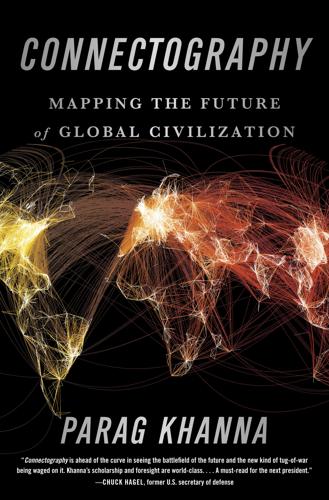
Connectography: Mapping the Future of Global Civilization
by
Parag Khanna
Published 18 Apr 2016
The infrastructural and market integration under way within regions today makes them far more significant building blocks of global order than nations. Importantly, the geographies not knitting themselves together into collective functional zones—the Near East and Central Asia—are also generally where one finds the most failed states. Mega-regions are not monolithic blocs but what scholars call “composite empires,” informal and transactional rather than formal and institutionalized. They feature nominal central authority but substantial autonomy for various provinces within. The Roman, Byzantine, and Ottoman Empires were geographically vast, militarily dominant, and economically wealthy, but they were also highly unequal, politically devolved, and culturally fractured.
…
The World Food Programme head remarked, “We don’t look at Zaatari as a camp anymore, but as a municipality or a town.”5 The space in between the region’s civilizational anchors—Turkey, Saudi Arabia, Egypt, and Iran—is now up for grabs. Iraqi nationalism is meaningless, and Syria is an artificial failed state. Given its sectarian diversity and rugged topography, it is destined to devolve further, with Damascus and Aleppo remaining autonomous commercial hubs. The entire region is experiencing Lebanonization: sectarian towns at various distances from more multiethnic capitals. The Middle East, it has long been argued, is but a collection of “tribes with flags.”
…
Experts predict a much wider wave of municipal bankruptcies across the Rust Belt of Michigan, Ohio, Pennsylvania, Illinois, New York, and even some New England cities that are losing talent, business, and investment to Boston. For a large empire such as America, failing cities are its own version of failing states. While many blame outsourcing to low-wage car plants in China as the cause of Detroit’s decline, the Motor City has a counterpart in China as well: Dongguan. Dubbed one of the “Four Little Tigers” in China’s southern Guangdong province, Dongguan specialized in electronics manufacturing, ranking only second to Shenzhen in total trade volume.2 But the 2008 financial crisis crushed its exports as well: Factories closed, and workers vacated.
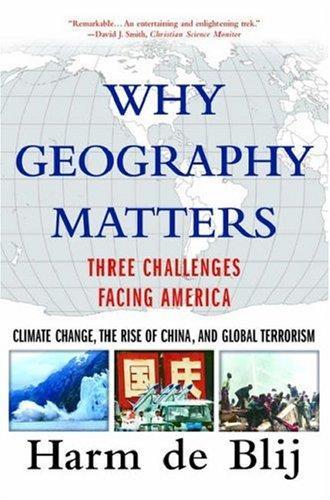
Why geography matters: three challenges facing America : climate change, the rise of China, and global terrorism
by
Harm J. De Blij
Published 15 Nov 2007
It was a Cold War strategy that might be charitably described as shortsighted, and certainly appeared contradictory: a United States supposedly committed to principles of secular government helped oust a regime attempting to establish just that, albeit undemocratically. Soviet restraint in the United States struggle for Vietnam was not rewarded with American moderation in Afghanistan, even when it must have been obvious to some policy makers in Washington that a forced withdrawal of Soviet troops would leave Afghanistan a destabilized, faction-ridden, failed state flooded with armaments at a time when Islamic terrorism was on the rise. Soon the factions that had been somewhat united during the anti-Soviet campaign were in conflict, with warlords controlling fiefdoms far from the devastated capital and more than 3 million refugees encamped on the Pakistan side of the border.
…
As Figure 9-2 shows, the Islamic Front loops into the Horn of Africa, coinciding very roughly with the border between mainly Muslim Eritrea and dominantly Christian Ethiopia before dividing the latter into a Muslim east (Ogaden) and a Christian west. The Muslim east is the historic home of the Somali people living on the Ethiopian side of the border with the failed state of Somalia that, as the map indicates, is virtually 100 percent Muslim. Ethiopia's Christianized core area, centered on the capital of Adis Abeba, lies in the highlands, a natural fortress that has protected the country in the past and from where the founding emperor, Menelik, extended its power over the encircling plains.
…
Somali pastoralists drove their herds across the borders in pursuit of seasonal rains as they had for centuries, and in Somalia they fought among themselves over influence and dominance. The approximate position of the Islamic Front in Ethiopia is of less concern that its extension along the Somali-Kenya border, because Somalia has been a failed state for decades and it is there, rather than in Muslim Ethiopia, that the greatest potential for terrorist activity exists. In early 2005, Somalia remained a state divided into three parts; Somaliland, the former British FROM TERRORISM TO INSURGENCY 185 GAMBIA ^^^ 99% ;j^GgiNEA ;: f GUINEA-V ^v85S^>-'A BISSAU ^^y'^*5*> mTN- 45% SIERRA' "fc »^^ "I " 'GHANA LEONE ^ ^ J^--5 Torn \ / '' ' «■"""-«':; «t' 46% /->'^ -^- ^3§o9„ l/^ CAMEROON M'^^'-^-'v^ C6TE EQUATORIAL-ccf-' 1 ^^'''''' ^r ^' V' P| T—' ?

A World in Disarray: American Foreign Policy and the Crisis of the Old Order
by
Richard Haass
Published 10 Jan 2017
To the contrary, 2015 and the first half of 2016 were a time of considerable turbulence and difficulty in the world. The post–World War I order was unraveling in much of the Middle East. Iran’s nuclear ambitions and the growing reach of the Islamic State had put much of the region on edge. Syria, Iraq, Yemen, and Libya all shared many of the characteristics of failing or failed states. Syria in particular emerged as an example of what could go wrong: hundreds of thousands of Syrians had lost their lives and more than half the population had become internally displaced or refugees, in the process threatening to overwhelm not just Syria’s neighbors but Europe as well. In part as a result, the number of refugees and internally displaced persons in the world swelled to more than sixty million.
…
What makes a state weak is not an inability to project military power or fight wars beyond its borders so much as its inability to control what takes place within its borders. It is a lack of capacity, one that often leads to large swaths of territory (often termed “ungoverned spaces”) being outside the writ of the government. A failed state is simply the extreme version of a weak state, one in which governmental authority effectively collapses, leading to chaos, the rise of local gangs and militias ruling over parts of the country, or both. The first such example came in Iraq in the aftermath of Operation Desert Storm and the liberation of Kuwait.
…
To the contrary, they avoided anything that smacked of nation building, partly out of naïve hopes that Libyans would come together on their own, but more out of a concern about the cost of putting the country back together. The result is a civil conflict that has claimed far more lives and uprooted far more people than even the worse estimates of what Gadhafi might have unleashed. Another result is the existence of not just one but multiple failed states in the territory that was once the country of Libya. Not surprisingly, the Islamic State is making growing use of this largely ungoverned territory. The Syrian case is if anything even more consequential. Indeed, it is as strong an argument as exists that when it comes to foreign policy, what you choose not to do can be every bit as consequential as what you do.
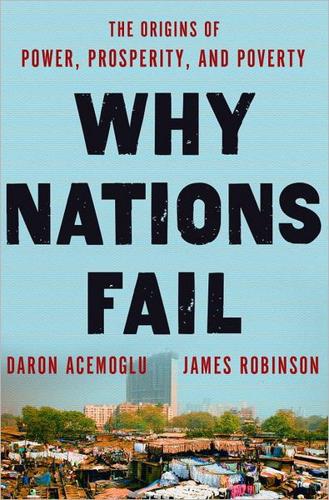
Why Nations Fail: The Origins of Power, Prosperity, and Poverty
by
Daron Acemoglu
and
James Robinson
Published 20 Mar 2012
Such lack of order and central authority has been the fate of many African nations in recent decades, partly because the process of political centralization was historically delayed in much of sub-Saharan Africa, but also because the vicious circle of extractive institutions reversed any state centralization that existed, paving the way for state failure. Sierra Leone during her bloody civil war of ten years, from 1991 to 2001, was a typical case of a failed state. It started out as just another country marred by extractive institutions, albeit of a particularly vicious and inefficient type. Countries become failed states not because of their geography or their culture, but because of the legacy of extractive institutions, which concentrate power and wealth in the hands of those controlling the state, opening the way for unrest, strife, and civil war.
…
Many African states were turned into war machines intent on capturing and selling slaves to Europeans. As conflict between different polities and states grew into continuous warfare, state institutions, which in many cases had not yet achieved much political centralization in any case, crumbled in large parts of Africa, paving the way for persistent extractive institutions and the failed states of today that we will study later. In a few parts of Africa that escaped the slave trade, such as South Africa, Europeans imposed a different set of institutions, this time designed to create a reservoir of cheap labor for their mines and farms. The South African state created a dual economy, preventing 80 percent of the population from taking part in skilled occupations, commercial farming, and entrepreneurship.
…
This, in turn, is a consequence of decades of rule under extractive economic and political institutions. WHO IS THE STATE? The cases of Zimbabwe, Somalia, and Sierra Leone, even if typical of poor countries in Africa, and perhaps even some in Asia, seem rather extreme. Surely Latin American countries do not have failed states? Surely their presidents are not brazen enough to win the lottery? In Colombia, the Andean Mountains gradually merge to the north with a large coastal plain that borders the Caribbean Ocean. Colombians call this the tierra caliente, the “hot country,” as distinct from the Andean world of the tierra fria, the “cold country.”

Corporate Warriors: The Rise of the Privatized Military Industry
by
Peter Warren Singer
Published 1 Jan 2003
Most borders are permeable, with only sporadic and weak control of the flow of people and goods. This blurs the distinction between external and internal security problems.38 These THE RISE failed states are breeding grounds for instability, lawlessness, and ethnic and religious turmoil as well as havens for terrorists and criminal leaders. The major threats of today come not from major states projecting power but from weak or failed states projecting instability. It's no coincidence that such zones bereft of real government were primary refuges for Bin Laden and his ilk in al Qaeda. In sum, many states are less willing and less able to guarantee their own sovereign autonomy.
…
Indeed, within the Wesfs conceptual universe, the idea of democracy is now closely linked to that of privatization.114 In sum, the 1990s saw unprecedented levels of privatization.llD By 1998, the rate of global privatization was roughly doubling each year.11G This "privatization revolution1" went hand in hand with globalization; both trends embraced the notion that comparative advantage and competition maximize efficiency and effectiveness.[ l' In response, many internal elites tended to relinquish their social duties and focus on safeguarding their own economic fiefdoms, furthering the trend towrard outsourcing.1 liS For example, Indonesia, Liberia, Sierra Leone, and Congo are all failing states that contracted out public tax collection to private firms.L l9 The general result is that the involvement of companies, often foreign, in the provision of public services became even more pronounced around the globe. The recent period has seen the snowballing of such externalization to the point that, in many arenas, the state bureaucracy has been completely displaced.
…
If, however, the commander is lacking in prowess, as often as not, he brings about your ruin."'2 Hired guns may serve a client's wishes today, but force the client to honor their wishes tomorrow/3 PMFs argue that as they are companies, this risk is limited, claiming that the "fundamental law of a successful business is that the supplier is only as good as his last contract."'"1 Firms that exploit the trust placed in them by a client would find their future sales growth threatened, and so arguably would be self-directed away from doing this in the first place. In weak or failed states, however, military provider firms are typically the most effective local force, even with their small numbers. Moreover, friction between employer and employee is built into such a relationship and both parties have to look ahead to a time when their contractual relationship comes to an end. Thus, solidarity between hired troops and those who pay them has traditionally been not that strong.711 As a result, the risks of PMFs or their individual employees turning on their clients must be acknowledged.
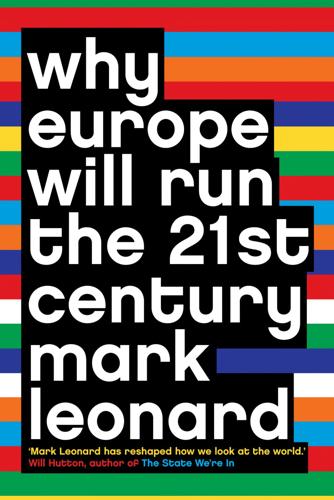
Why Europe Will Run the 21st Century
by
Mark Leonard
Published 4 Sep 2000
In the last year China has played a key role in North Korea, it has shown itself more willing to take part in discussions about global governance, and has committed a limited number of troops to UN peace-keeping missions. But to be a partner to Europe in the political sphere as well as the economic one, China will have to get involved in a meaningful way in stabilizing failed states, protecting people from genocide, tackling global warming, and preventing the proliferation of WMD. China will also need to shift its thinking on sovereignty. Rather than seeing pooling sovereignty as a threat, it will need to embrace it further if its attempts at fostering regional integration are to take off.
…
This would not necessarily have to replace the Security Council and General Assembly, but the forum for regional organizations would be the best place to deal with the two most pressing issues on the global agenda: development and peace-keeping.10 Our experience with the European Union has shown that the way to construct a new order will not be to start with a grand constitutional design but to create an interest in working together on the pressing problems. By forming a series of overlapping clubs to deal with trade, nuclear proliferation, economic development, global diseases, and propping up failing states, it might one day be possible to bring them together into a single framework.11 As the momentum for regional organization picks up, great powers like the United States will inevitably be sucked into the process of integration. They might be able to slow the process, but they won’t be able to stop it.
…
These are the things we Europeans must rigorously push for at the international level as the 21st century unfolds.’ 7Giegerich, Bastian, and William Wallace (2004), ‘Not Such a Soft Power: The External Deployment of European Forces’, Survival, 46, pp. 163–82. 8Gourlay, Catriona (19 October 2003), ‘Operations update: Past, Present and Future’, ISIS Europe, European Security Review. 9This phrase comes from former Swedish Prime Minister Carl Bildt’s speech to the Ivan Bloch Commemorative Conference on the Future of War, St Petersburg, Russia (25 February 1999). 10These figures come from a speech given by UK Foreign Secretary Jack Straw entitled ‘Failed and Failing States’ at the European Research Institute, University of Birmingham (6 September 2002). 11Carl Bildt made this point well in his Financial Times article ‘We must build states and not nations’ (16 January 2004). 12Everts, Steven et al. (2004), European Way of War, London, Centre for European Reform. 13Everts et al., (2004). 14Ibid. 15Lieven, Anatol, (April 2001), ‘Soldiers Before Missiles: Meeting the Challenge from the World’s Streets’, Carnegie Endowment for International Peace, vol. 1, no. 4. 16Freedman in Everts et al. 2004. 17O’Hanlon in Everts et al. 2004. 18Ibid. 19These commitments were made at the Helsinki and Gothenburg Summits.
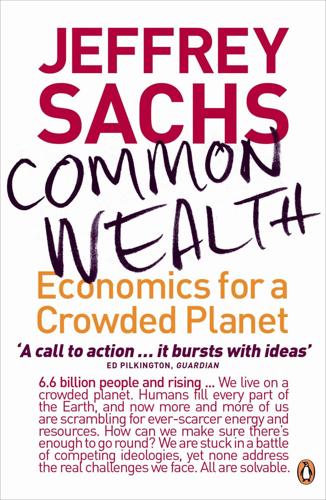
Common Wealth: Economics for a Crowded Planet
by
Jeffrey Sachs
Published 1 Jan 2008
We need to fundamentally revamp our foreign policy strategy and organization. We cannot achieve national security strictly through military outlays. Instead, we need international partnerships and goodwill, and greater stability in today’s fragile and failing states. We need to use development assistance to promote global stability. Finally, we need to reorganize government so that the deeper challenges to our stability—extreme poverty, failed states, environmental threats—can be addressed with knowledge and capacity. THE LIMITS OF MILITARY POWER Figure 12.1 shows an astounding fact. U.S. military spending in 2006 was nearly equal to the military spending of the rest of the world combined.
…
State Department investigated and in 2002 recommended that funding be restored, but it did not succeed in overturning a White House political move. Narrow politics prevailed over America’s foreign policy interests. U.S. policy neglect is especially surprising in view of our concerns over the threats of failed states. The youth bulge of high-fertility countries—measured as the share of youth (aged fifteen to twenty-four) in the entire adult population (aged fifteen and above)—should be a matter of national concern. The evidence, summarized in powerful reports by Population Action International (PAI) and by the demographer Henrik Urdal, is that a youth bulge significantly raises the likelihood of civil conflict, presumably by raising the ratio of those who would engage in violence relative to those who would mediate disputes.
…
For example, cars require roads, electrical machinery requires a reliable power grid, and imported medicines in the poorest countries require public-sector hospitals and clinics. If the government is not holding up its end of the deal by making the needed public investments, then the private sector will not be able to make profitable private investments in new technologies. Thus, a failed state, or a bankrupt government that can’t pay for public investments, or a wildly corrupt government, will result in a technologically stagnant private sector as well. Adaptation to Local Ecology Many technologies work right out of the box, irrespective of the local physical environment. Many, however, require significant adaptation to local biophysical conditions.
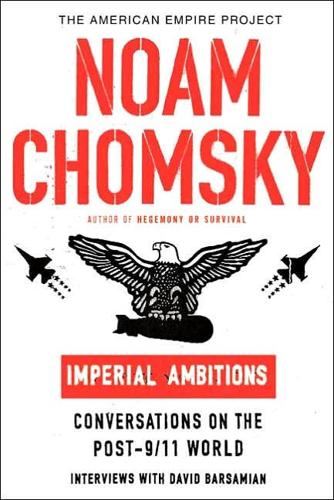
Imperial Ambitions: Conversations on the Post-9/11 World
by
Noam Chomsky
and
David Barsamian
Published 4 Oct 2005
The centerpiece of his argument is a famous letter that Adams wrote in 1818 justifying Andrew Jackson’s conquest of Florida during the First Seminole War.1 Gaddis cites Adams’s argument that it was necessary to attack the Florida area in order to protect American security because the area was a “failed state”—he actually uses the phrase—a kind of a power vacuum which threatened the United States. But if you examine the actual scholarship, it’s quite interesting. Gaddis certainly knows that the scholarly books he cites point out that Andrew Jackson’s invasion of Florida had absolutely nothing to do with security.
…
You can’t get it with one demonstration. You have to have a functioning democratic society, with popular associations, unions, and political groups working on it all the time. That’s the way you organize people to get health care. But that’s what’s lacking. The United States is basically what’s called a “failed state.” It has formal democratic institutions, but they barely function. So it doesn’t matter that approximately three fourths of the population think we ought to have some kind of government-funded health care system. It doesn’t even matter if a large majority regards health care as a moral value. When commentators rave about moral values, they’re talking about banning gay marriage, not the idea that everyone should have decent health care.
…
Maybe they don’t like everything Lula’s doing, but he’s an impressive figure, a former steelworker. I don’t think he ever went to college. And they were able to elect him president. That’s inconceivable in the United States. Here you vote for one or another rich boy from Yale. That’s because we don’t have popular organizations, and they do. Or take Haiti. Haiti is considered a “failed state,” but in 1990 Haiti had a democratic election of the kind we can only dream of. It’s an extremely poor country, and people in the hills and the slums actually got together and elected their own candidate. And the election just shocked the daylights out of everyone, which is why in 1991, there was a military coup, supported by the United States, to crush the democratic government.
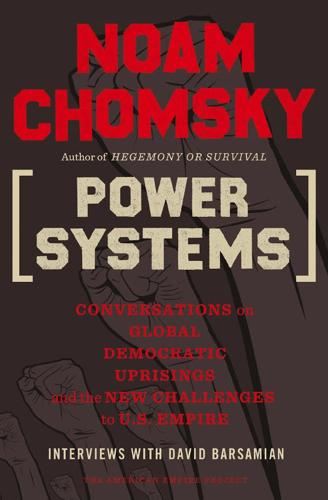
Power Systems: Conversations on Global Democratic Uprisings and the New Challenges to U.S. Empire
by
Noam Chomsky
and
David Barsamian
Published 1 Nov 2012
Published by Metropolitan Books, an imprint of Henry Holt and Company, its titles include Hegemony or Survival and Failed States by Noam Chomsky, The Limits of Power and Washington Rules by Andrew Bacevich, Blood and Oil by Michael T. Klare, A Question of Torture by Alfred McCoy, A People’s History of American Empire by Howard Zinn, and Empire’s Workshop by Greg Grandin. For more information about the American Empire Project and for a list of forthcoming titles, please visit americanempireproject.com. Also by Noam Chomsky Hegemony or Survival Failed States Imperial Ambitions What We Say Goes Metropolitan Books Henry Holt and Company, LLC Publishers since 1866 175 Fifth Avenue New York, New York 10010 www.henryholt.com Metropolitan Books® and ® are registered trademarks of Henry Holt and Company, LLC.
…
Humanitarian Law Project, 70–71 Syria, 63, 95, 106 Taft-Hartley bill, 40 Taiwan, 9, 21, 169 Taliban, 15–16, 98, 100 taxes, 38, 75–76, 82, 159 cuts, 41–42 Tobin, 76 Tea Party movement, 28 technology, 9, 145–46 television, 67, 102 terrorism, 14, 21, 96, 109, 114, 139 against Kurds, 89–92 military detention and, 70–73 9/11 attacks, 14–16, 139 theory of mind, 132 Tobin, James, 76 Tobin tax, 76 torture, 37, 89, 92, 109, 145 totalitarianism, 64, 79, 158 trade, 9, 87–88 deficit, 9 Trans-Afghanistan Pipeline (TAPI), 17–18 Trilateral Commission report, 150, 151 Truman, Harry S., 24 Tunisia, 44–45, 48–49, 53, 67, 112–13 Turkey, 51, 89–94 human rights violations, 89–92 -Israel relations, 92–94 Kurds, 89–92 Turkmenistan, 17 Twitter, 105, 145 UNASUR, 161 unemployment, 22–23, 38, 66, 76 United Arab Emirates, 8, 15, 49 United Auto Workers, 25 United Nations, 46, 50–52, 115, 162, 163 universal genome, 129 universal grammar, 126–29 universities, 150–53, 165–68 corporatization of, 152, 167–68 sports, 165–66 uprisings, 44–64 Arab Spring, 44–55, 60–64, 67, 112–13, 168 Egypt, 44–49, 60–64 Libya, 50–54 Vietnam War, 1–3, 15, 31, 64, 97 visual system, 141 voting, 81, 84, 117–18 Wallerstein, Immanuel, 77 Wall Street Journal, 54, 169 Walmart, 9 war, 13–18, 20 crimes, 114–17 Warfalla, 50 Washington, George, 3 Weathermen, 74 Weimar Republic, 25, 27–29 Weisskopf, Victor, 149, 154 welfare, 82–83, 84, 87 Western Sahara, 46 “When Elites Fail” (Chomsky), 22 Wiesel, Elie, 94 WikiLeaks, 99, 107–13 Wilson, Woodrow, 13, 23 Wisconsin, labor demonstrations in, 40–43 Wolf, Martin, 78 Wolff, Richard, 88 women’s rights, 79, 150, 177 World Bank, 47 World Trade Organization, 107 World War II, 5, 7, 56, 57, 115–16 Yemen, 49, 114 Yglesias, Matthew, 59, 63 YouTube, 104 Zaire, 17 Zinn, Howard, 1, 22, 78 About the Authors NOAM CHOMSKY is the author of numerous best-selling political works, including Hegemony or Survival and Failed States. A professor of linguistics and philosophy at MIT, he is widely credited with having revolutionized modern linguistics. He lives outside Boston, Massachusetts. DAVID BARSAMIAN, director of the award-winning and widely syndicated Alternative Radio (www.alternativeradio.org), is the winner of the Lannan Foundation’s Cultural Freedom Fellowship and the ACLU’s Upton Sinclair Award for independent journalism.
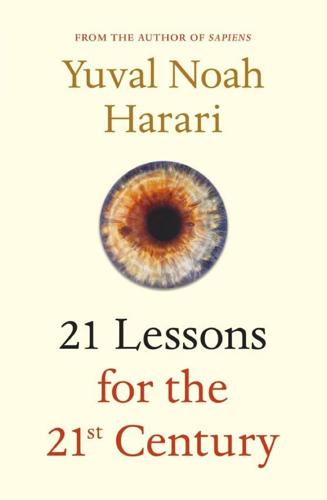
21 Lessons for the 21st Century
by
Yuval Noah Harari
Published 29 Aug 2018
When Israelis and Palestinians, Russians and Ukrainians, Kurds and Turks compete for the favours of global public opinion, they all use the same discourse of human rights, state sovereignty and international law. The world may be peppered with various types of ‘failed states’, but it knows only one paradigm for a successful state. Global politics thus follows the Anna Karenina principle: successful states are all alike, but every failed state fails in its own way, by missing this or that ingredient of the dominant political package. The Islamic State has recently stood out in its complete rejection of this package, and in its attempt to establish an entirely different kind of political entity – a universal caliphate.
…
It is a dangerous mistake to imagine that without nationalism we would all be living in a liberal paradise. More likely, we would be living in tribal chaos. Peaceful, prosperous and liberal countries such as Sweden, Germany and Switzerland all enjoy a strong sense of nationalism. The list of countries lacking robust national bonds includes Afghanistan, Somalia, Congo and most other failed states.1 The problem starts when benign patriotism morphs into chauvinistic ultra-nationalism. Instead of believing that my nation is unique – which is true of all nations – I might begin feeling that my nation is supreme, that I owe it my entire loyalty, and that I have no significant obligations to anyone else.
…
No matter what awful consequences occasionally result from modernisation, industrialisation or privatisation, capitalist true-believers dismiss them as mere ‘growing pains’, and promise that everything will be made good through a bit more growth. Middle-of-the-road liberal democrats have been more loyal to the secular pursuit of truth and compassion, but even they sometimes abandon it in favour of comforting dogmas. Thus when confronted by the mess of brutal dictatorships and failed states, liberals often put their unquestioning faith in the awesome ritual of general elections. They fight wars and spend billions in places such as Iraq, Afghanistan and the Congo in the firm belief that holding general elections will magically turn these places into sunnier versions of Denmark. This despite repeated failures, and despite the fact that even in places with an established tradition of general elections these rituals occasionally bring to power authoritarian populists, and result in nothing grander than majority dictatorships.
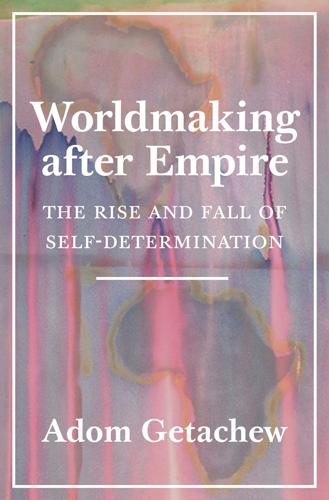
Worldmaking After Empire: The Rise and Fall of Self-Determination
by
Adom Getachew
Published 5 Feb 2019
The twelve-year experiment to raise Ethiopia’s level of civilization through membership had failed and illustrated that Ethiopia “does not possess the The Cou n ter r evolu tiona ry Momen t [ 65 ] necessary qualifications . . . to raise herself by voluntary efforts to the level of other civilized nations.”143 The Italian government explained this failure in two ways. In the first case, Ethiopia was portrayed as a failed state that suffered from a “chronic state of disorder.”144 The absence of effective government denied Ethiopian subjects the protections and rights they ought to have been guaranteed, while the disorder in the country threatened to spill over into neighboring countries. On the question of slavery in particular, it had become clear that abolition would not be realized “unless there is a fundamental change in the conditions of the country which cannot come about so long as government is non-existent, inchoate and impotent.”145 The Italian government concluded that Ethiopia could not “carry out unaided the thorough reorganization without which it must remain a permanent danger.”146 Setting the stage for its intervention, the Italian memo noted that the League of Nations is “a system of obligations and rights, which are interdependent.
…
Ethiopia demonstrated “a cynical indifference for her international obligations and the undertakings assumed toward the League of Nations.”148 It was, according to the memorandum, a barbaric nation, one that practiced emasculation, torture, and cannibalism within its borders, and aggression and xenophobia toward its neighbors.149 On this view, Ethiopia rather than Italy was the criminal state under international law. This characterization would have consequences for the war. While its status as a failed state robbed Ethiopia of its claims to rights of membership, its position as an outlaw canceled any obligations Italy or other members of the league might have had to Ethiopia. Through “barbarous custom and archaic laws,” Ethiopia “openly placed herself outside the Covenant of the League and has rendered herself unworthy of the trust placed in her when she was admitted to membership.”150 As the closing paragraph of the memo noted, “it would be contrary to every principle of law and justice to claim that Members of the League are bound to observe the rules of the Covenant in their relations with a State Member which has placed itself outside the Covenant through a breach of its undertakings.”151 The league’s initial response to the Italian memo did not dispute the characterization of Ethiopia or the need for tutelage.
…
Rupert Emerson, “The Fate of Human Rights in the Third World,” World Politics 27 (January 1975): 201–26, 223. 158. Ibid., 225. 159. These arguments became dominant only with the end of the Cold War, reaching their height in the debates about humanitarian intervention during the 1990s. See, for example, Jackson, Quasi-states; Gerald B. Helman and Steven R. Ratner, “Saving Failed States,” Foreign Policy 89 (Winter 1992): 3–20. On the persistence of trusteeship, see William Bain, Between Anarchy and Society: Trusteeship and the [ 206 ] notes to ch a pter four Obligations of Power (New York: Oxford University Press, 2003); William Bain, “The Political Theory of Trusteeship and the Twilight of International Equality,” Interna tional Relations 17 (March 2003): 59–77; Ralph Wilde, International Territorial Administration: How Trusteeship and the Civilizing Mission Never Went Away (Oxford: Oxford University Press, 2008). 160.
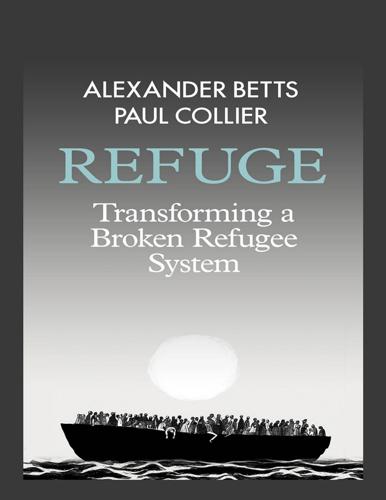
Refuge: Transforming a Broken Refugee System
by
Alexander Betts
and
Paul Collier
Published 29 Mar 2017
The origins of their fragility were very different from Syria’s. The surge in Afghani refugees resulted from the American invasion and continuing warfare with the Taliban. But Afghanistan was already a failed state: the insurgent Taliban had recently gained control of most of the country, but were recognized as a government only by Saudi Arabia, Pakistan, and the United Arab Emirates. Violent internal disorder had long been endemic. Somalia has also been a failed state for a generation, prone to organized violence, but with only limited and sporadic international intervention from its neighbours, Ethiopia and Kenya. But while the grand total is dominated by these tail events, with 40–60 societies that are fragile, some risks will always be crystallizing.
…
It is in the twenty-first century that the global order has gradually become a far less auspicious environment for UNHCR to be an effective facilitator of collective action. On the one hand, the terrorist attacks of 11 September 2001 contributed to a new demand for UNHCR’s humanitarian engagement following military intervention and failed state-building in Afghanistan and Iraq. On the other, it contributed to a growing fear of Islam across the developed world. Whereas previously Europe had been relaxed about allowing entry to Muslims fleeing Bosnia and Kosovo during the 1990s, 9/11 unleashed a political toxicity around the admission of Muslim refugees.
…
Whereas the Italian economy contracted by 11 per cent during 2007–15, the Greek shrank by 25 per cent. Formally, Greece was a normal member of the EU: keen on acquiring all the trappings of that status, it had adopted the euro, joined Schengen, and signed the Dublin Agreement. But in practice Greece was a failing state: corrupt, bankrupt, and poor, with the government having fallen into the hands of a new party of the extreme left. As the Greek economy collapsed, so too did its asylum system. In a little-noticed court case of 2011, an Afghan asylum-seeker had challenged the application of the Dublin Agreement to Greece.

Black Code: Inside the Battle for Cyberspace
by
Ronald J. Deibert
Published 13 May 2013
While the digital divide remains deep, it’s shrinking fast, and access to cyberspace is growing much faster than good governance over it. Indeed, in many regions rapid connectivity is taking place in a context of chronic underemployment, disease, malnutrition, environmental stress, and failed or failing states. Cyberspace is now an unavoidable reality that wraps our planet in a complex information and communications skin. It shapes our actions and choices and relentlessly drives us all closer together, drives us even towards those whom, all things being equal, we would rather keep at a distance. A shared space, a global commons, the public square writ large.
…
A country wracked by civil war for over two decades nonetheless has extraordinarily sophisticated and innovative online banking and cellphone services: so sophisticated that the security-obsessed are watching, watching closely. • • • The Somalia case defies conventional wisdom about technical innovation in failed states. Precisely because of Somalia’s chaotic and violent character, along with its people’s adaptive culture of trust and information sharing, an efficient cellphone infrastructure took root and flourished. It also demonstrates how the evolution of cyberspace is highly contingent on local circumstances.
…
service=mobile. 5 The fastest growth rates are occurring among the world’s failed and most fragile states: In the ITU’s 2009 Information Society Statistical Profiles, the ten countries that saw the fastest Internet user growth rates (calculated in terms of compounded annual growth rates) over five years were Afghanistan, Myanmar, Vietnam, Albania, Uganda, Nigeria, Liberia, Sudan, Morocco, and D.R. Congo. Uganda, Nigeria, Liberia, and D.R. Congo were ranked as having low human development on the UN’S 2008 Human Development Index, with no available data for Afghanistan, which at the time was ranked seventh on the Fund for Peace’s Failed States Index. The growth rates for Afghanistan, Myanmar, and Vietnam were derived from 2002 to 2007 ITU figures, while 2003 to 2008 figures were used for the rest. The International Telecommunications Union’s Information Society Statistical Profiles are available at: “Information Society Statistical Profiles 2009: Africa,” 2010, http://www.itu.int/ITU-D/ict/material/ISSP09-AFR_final-en.pdf; “Information Society Statistical Profiles 2009: Europe v.1.01,” 2010, http://www.itu.int/dms_pub/itu-d/opb/ind/D-IND-RPM.EUR-2009-R1-PDF-E.pdf “Information Society Statistical Profiles 2009: Europe,” 2010, http://www.itu.int/dms_pub/itu-d/opb/ind/D-IND-RPM.EUR-2009-R1-PDF-E.pdf; “Information Society Statistical Profiles 2009: Americas,” 2010, http://www.itu.int/dms_pub/itu-d/opb/ind/D-IND-RPM.AM-2009-E09-PDF-E.pdf; and “Information Society Statistical Profiles 2009: Asia and the Pacific,” 2010, http://www.itu.int/dms_pub/itu-d/opb/ind/D-IND-RPM.AP-2009-R1-PDF-E.pdf.
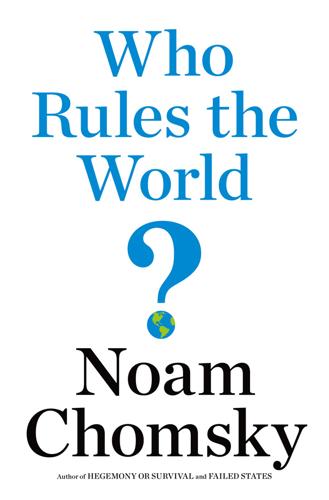
Who Rules the World?
by
Noam Chomsky
See also labor movement; wage labor World Bank World People’s Conference on Climate Change World War I World War II Yarborough, William Yeltsin, Boris Yemen Yglesias, Matthew Yifrah, Shimon Yugoslavia Zarif, Javad Zarqawi, Abu Musab al- Zawahiri, Ayman al- Zelikow, Philip Zertal, Idith Zionism Zola, Émile Zughayer, Kemal ALSO BY NOAM CHOMSKY Hegemony or Survival Imperial Ambitions Failed States What We Say Goes Power Systems ABOUT THE AUTHOR NOAM CHOMSKY is the author of numerous best-selling political works, including Hegemony or Survival and Failed States. A professor emeritus of linguistics and philosophy at MIT, he is widely credited with having revolutionized modern linguistics. He lives in Cambridge, Massachusetts. You can sign up for email updates here.
…
William Burr, ed., “The October War and U.S. Policy,” National Security Archive, published 7 October 2003, http://nsarchive.gwu.edu/NSAEBB/NSAEBB98/. 48. The phrase “super-sudden first strike” was coined by McGeorge Bundy and cited in John Newhouse, War and Peace in the Nuclear Age (New York: Knopf, 1989), 328. 49. Noam Chomsky, Failed States: The Abuse of Power and the Assault on Democracy (New York: Henry Holt, 2006), 3. 9. THE OSLO ACCORDS: THEIR CONTEXT, THEIR CONSEQUENCES 1. See for example David M. Shribman, “At White House, Symbols of a Day of Awe,” Boston Globe, 29 September 1995; Maureen Dowd, “Mideast Accord: The Scene; President’s Tie Tells It All: Trumpets for a Day of Glory,” New York Times, 14 September 1993 (“the jaded were awed”). 2.
…
The American Empire Project publishes books that question this development, examine the origins of U.S. imperial aspirations, analyze their ramifications at home and abroad, and discuss alternatives to this dangerous trend. The project was conceived by Tom Engelhardt and Steve Fraser, editors who are themselves historians and writers. Published by Metropolitan Books, an imprint of Henry Holt and Company, its titles include Hegemony or Survival and Failed States by Noam Chomsky, The Limits of Power and Washington Rules by Andrew J. Bacevich, Blood and Oil by Michael T. Klare, Kill Anything That Moves by Nick Turse, A People’s History of American Empire by Howard Zinn, and Empire’s Workshop by Greg Grandin. For more information about the American Empire Project and for a list of forthcoming titles, please visit americanempireproject.com.
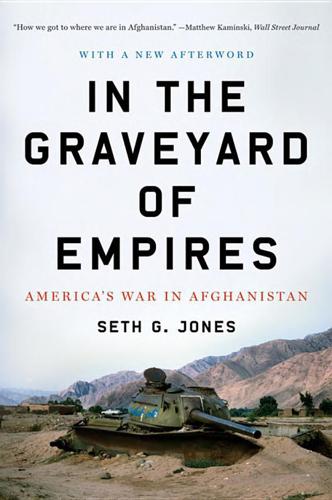
In the Graveyard of Empires: America's War in Afghanistan
by
Seth G. Jones
Published 12 Apr 2009
It evolved into a Power Point presentation of roughly thirty slides that set U.S. goals for Afghanistan. The document assumed that Afghanistan was a central front in America’s war against terrorism and, as Khalilzad prophetically warned, that a “lack of success—a renewed civil war, a narco-state, a successful Taliban insurgency, or a failed state—would undermine the Coalition’s efforts in the global war on terrorism and could stimulate an increase in Islamist militancy and terrorism.”12 The “accelerating success” concept was approved by the Deputies Committee of the National Security Council on June 18, by the Principals Committee on June 19, and by President Bush on June 20, 2003.
…
With military costs rising and an increased number of operations abroad, the U.S. government began to rely on a growing list of companies—including Military Professional Resources Incorporated (MPRI) and Blackwater—to provide such security functions as police training, protective security, convoy protection, border enforcement, and even drug eradication in failing states. For their mission in Afghanistan, DynCorp recruited retired U.S. police officers, as well as some active members of state and local police forces, to serve as the U.S. contingents of civilian police teams. From the beginning, senior U.S. military officials had worried that the INL program was not doing a good job of creating more competent Afghan police, and others were concerned that many of the DynCorp advisers had had little experience training police from a Third World tribal society such as Afghanistan.
…
Churchill, The Story of the Malakand Field Force: An Episode of Frontier War, 2nd ed. (London: Longmans, Green, 1901), p. 274. 22. Ahmed Rashid, Taliban: Militant Islam, Oil and Fundamentalism in Central Asia (New Haven, CT: Yale University Press, 2000), p. 13; Barnett R. Rubin, The Search for Peace in Afghanistan: From Buffer State to Failed State (New Haven, CT: Yale University Press, 1995), p. 7; Lester Grau, ed., The Bear Went Over the Mountain: Soviet Combat Tactics in Afghanistan (Washington, DC: National Defense University Press, 1996), p. xix. 23. Ann Scott Tyson, “British Troops, Taliban in a Tug of War over Afghan Province,” Washington Post, March 30, 2008, p.
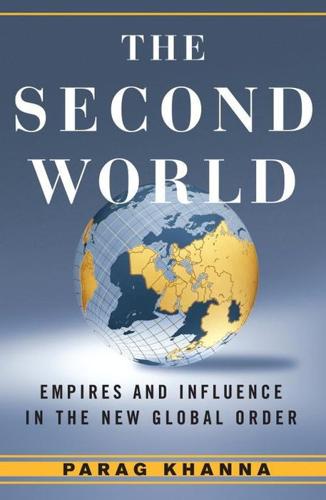
Second World: Empires and Influence in the New Global Order
by
Parag Khanna
Published 4 Mar 2008
Turkish companies, the master construction engineers of the region, are already speedily building both of Kurdistan’s international airports, as well as tunnels, overpasses, and ring roads, while the Kurdistan government protects oil flows to Turkey’s strategic port of Ceyhan. Though Turkey’s powerful military, amassed on Kurdistan’s northern border, still routinely crosses into Kurdistan to snuff out PKK activity, a sovereign Kurdistan would have greater responsibility to rein in such groups than the quasi-independent province of a failed state. The smuggling of fuel, tea, sugar, and drugs has for centuries linked the markets of Turkey, Syria, Jordan, Iraq, Iran, and Afghanistan—with Kurdistan right in the middle. As Turkey’s trade with Iran and Syria grows, Kurdistan would happily continue to play its part as a commercial conduit servicing all four.
…
And like South Korea, Australia, Thailand, and India, Malaysia quietly assures the United States that it is on the U.S. side while not doing anything to offend China, effectively recusing itself from their rivalry by pledging to remain neutral if “the elephants wrestle.” INDONESIA: LESS IS MORE Indonesia is perpetually under attack by both nature and man. It is prone to volcanic eruptions, earthquakes, tsunamis, infectious diseases, financial crises, and ethnic strife—and it is powerless against all of them. It is not a failed state, but it is perpetually at risk of becoming one with the next seismic shift in the earth or in the markets. In early 2007, Jakarta seemed to all but disappear in a torrential flood that displaced much of its population, swept away thousands of homes, and caused mass illness. It is a miracle that Indonesia exists at all, and it will be a greater miracle if it survives in its present form.
…
New York: Harper Perennial, 1964. Chang, Gordon. The Coming Collapse of China. New York: Random House, 2001. Chase, Robert S., Emily Hill, and Paul M. Kennedy, eds. Pivotal States and U.S. Policy: A New Strategy for U.S. Policy in the Developing World. New York: W. W. Norton, 1999. Chomsky, Noam. Failed States: The Abuse of Power and the Assault on Democracy. New York: Metropolitan Books, 2006. Chua, Amy. World on Fire: How Exporting Free Market Democracy Breeds Ethnic Hatred and Global Instability. New York: Doubleday, 2003. Clissold, Tim. Mr. China. New York: HarperCollins, 2004. Cohen, Benjamin J.
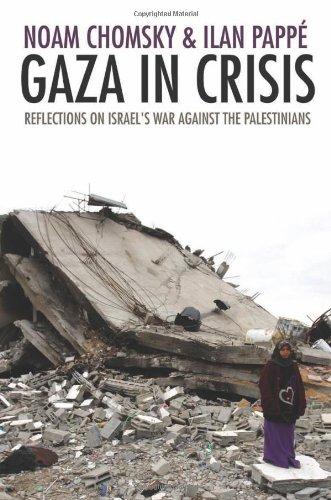
Gaza in Crisis: Reflections on Israel's War Against the Palestinians
by
Ilan Pappé
,
Noam Chomsky
and
Frank Barat
Published 9 Nov 2010
Hassan Nasrallah has repeatedly expressed the same position. 65 For brief review of the record, and sources, see Failed States. See further Norman Finkelstein, Image and Reality of the Israel-Palestine Conflict (London: Verso, 1996; new edition 2003). For a detailed critical analysis of Israel’s security strategy from the outset, revealing clearly the preference for expansion over security and diplomatic settlement, see Zeev Maoz, Defending the Holy Land (Ann Arbor: University of Michigan Press, 2006). 66 Ethan Bronner, “Gaza War Role Is Political Lift for Ex-Premier,” New York Times, January 8, 2009. 67 See Failed States, 193ff. 68 Gareth Porter, “Israel Rejected Hamas Ceasefire Offer in December,” Inter Press Service, January 9, 2009, www.ipsnews.net/print.asp?
…
See also CIA; Democratic Party; Republican Party University and College Union University of Bogazici V Versailles W Wall Street Journal Walt, Stephen Waltz, Kenneth Walzer, Michael Washington Institute for Near East Policy Weissman, Keith Weizmann, Chaim White, Haden Wilson, Woodrow Wolfowitz, Paul World Bank World Court World Food Programme World Health Organization World Social Forum World Trade Center Y Ya’alon, Moshe Z Zaitun Zertal, Idith Zimbabwe Zipori Zochrot Zu’ubi, Hanin Zunes, Stephen ABOUT THE CONTRIBUTORS ILAN PAPPÉ is professor of history at the University of Exeter and is the author of The Ethnic Cleansing of Palestine, A History of Modern Palestine, and The Israel/Palestine Question. NOAM CHOMSKY is Institute Professor (Emeritus) of Linguistics and Philosophy at the Massachusetts Institute of Technology. He is the author of numerous books, including the New York Times bestsellers Hegemony or Survival and Failed States, and Hopes and Prospects. FRANK BARAT is a human rights activist. He lives in London, UK. He is the coordinator of the Russell Tribunal on Palestine. He has written for the Electronic Intifada, CounterPunch, Zmagazine, the New Inter-nationalist , the Palestine Chronicle, State of Nature, and other Web sites and publications.
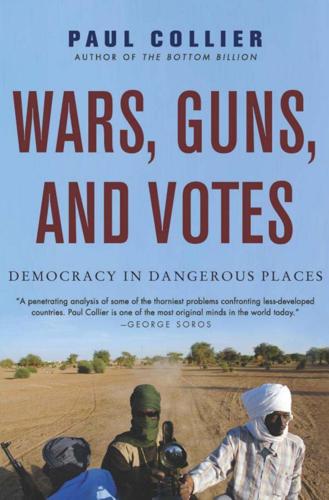
Wars, Guns, and Votes: Democracy in Dangerous Places
by
Paul Collier
Published 9 Feb 2010
So my own judgment is that donor conditionality on economic policies is not the explanation for policy improvement. I would put my money on learning from failure. I reali zed th at if th is critique of electoral competition was right it had huge implications. The whole modern approach to- 48 WARS, GUNS, AND VOTES ward failing states had been based on the premise that they would be rescued by democratic elections. The approach had seemed to be vindicated by the enthusiastic take-up of elections even in the most unpromising circumstances. Afghanistan, among the most backward societies on earth, was able to run an election within months of the expulsion of the Taliban.
…
With Anke Hoeffler I worked on the causes of civil war, on arms races, and on 236 Acknowledgments what makes a country prone to coups d’état—potentially the most sellable work I have ever done, since it is the key fear of presidents in the countries I visit. Our work on coups ended up as a different kind of race: we managed to finish it in the days before Anke gave birth to her first child. I promptly found myself in the same race with Lisa Chauvet, with whom I have worked on elections, on the costs of failing states, and on why reform is so slow. With my female workforce on maternity leave, much of the work on which this book is based has been done with young men. Both Dominic Rohner and Benedikt Goderis left Cambridge to come and work with me. With Dominic I did the disturbing work on political violence in low-income democracies that underpins chapter 1.
…
With Dominic Rohner “Democracy, Development and Conflict.” Journal of the European Economic Association 6, nos. 2–3 (2008): 531–540. With Christopher Adam and Victor Davies “Post-Conflict Monetary Reconstruction.” World Bank Economic Review 22 (2008): 87–112. With Lisa Chauvet “What Are the Preconditions for Policy Turnarounds in Failing States?” Conflict Management and Peace Science (2008). With Lisa Chauvet and Havard Hegre “The Security Challenge in Conflict-Prone Countries.” In Copenhagen Consensus, 2nd edition, edited by B. Lomberg. Cambridge: Cambridge University Press, 2008. Research on Which This Book Is Based 243 By other scholars Alberto Alesina and Eliana La Ferrara.
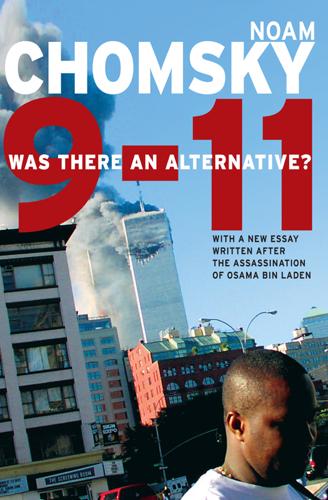
9-11
by
Noam Chomsky
Published 29 Aug 2011
Noam Chomsky, Pirates and Emperors, Old and New (South End Press, 2003). Noam Chomsky, Power and Terror, expanded edition (Paradigm, 2011). Noam Chomsky, Profit Over People: Neoliberalism and Global Order (Seven Stories Press, 1998). Noam Chomsky, Hegemony or Survival (Metropolitan, 2004). Noam Chomsky, Failed States (Metropolitan, 2007). Chomsky and Edward S. Herman, Political Economy of Human Rights (South End Press, 1979). Chomsky and Gilbert Achcar, edited by Stephen R. Shalom, Perilous Power: The Middle East and U.S. Foreign Policy: Dialogues on Terror, Democracy, War, and Justice (Paradigm, 2006). John Cooley, Unholy Wars: Afghanistan, America and International Terrorism (Pluto, 1999, 2001).
…
From 1966 to 1976 he held the Ferrari P. Ward Professorship of Modern Languages and Linguistics. In 1976 he was appointed Institute Professor, a position he held until 2002. Chomsky is the author of numerous influential political works, including Hopes and Prospects (Haymarket Books) Interventions (City Lights/Open Media Series), Failed States (Metropolitan Books), Hegemony or Survival: America’s Quest for Global Dominance (Metropolitan Books), Media Control (Seven Stories Press/Open Media Series), Manufacturing Consent: The Political Economy of the Mass Media with Ed Herman (Pantheon), Necessary Illusions (South End Press), Understanding Power (New Press), and many other titles.
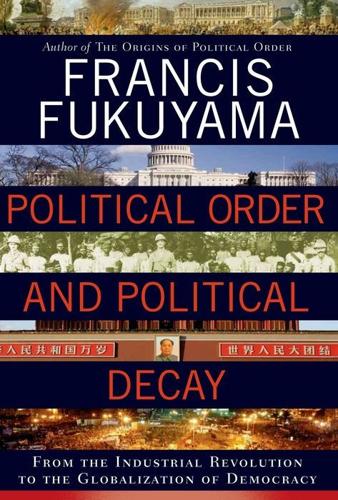
Political Order and Political Decay: From the Industrial Revolution to the Globalization of Democracy
by
Francis Fukuyama
Published 29 Sep 2014
Hence the People’s Republic of China has a strong and well-developed state but a weak rule of law and no democracy. Singapore has a rule of law in addition to a state but very limited democracy. Russia has democratic elections, a state that is good at suppressing dissidence but not so good at delivering services, and a weak rule of law. In many failed states, like Somalia, Haiti, and the Democratic Republic of the Congo in the early twenty-first century, the state and rule of law are weak or nonexistent, though the latter two have held democratic elections. By contrast, a politically developed liberal democracy includes all three sets of institutions—the state, rule of law, and procedural accountability—in some kind of balance.
…
Successful modernization depends, then, on the parallel development of political institutions alongside economic growth, social change, and ideas; it is not something that can be taken for granted as an inevitable concomitant of the other dimensions of development. Indeed, strong political institutions are often necessary to get economic growth going in the first place. It is precisely their absence that locks failed or fragile states into a cycle of conflict, violence, and poverty. The first and most important institution that fragile or failing states lack is an administratively capable government. Before a state can be constrained by either law or democracy, it needs to exist. This means, in the first instance, the establishment of a centralized executive and a bureaucracy. 3 BUREAUCRACY How study of the state is the study of bureaucracy; recent efforts to measure the quality of government; variance in the quality of government across countries and the need for a historical understanding of these outcomes For many people around the world, the central problem of contemporary politics is how to constrain powerful, overweening or, indeed, tyrannical governments.
…
But before governments can be constrained, they have to generate the power to actually do things. States, in other words, have to be able to govern. The existence of states able to provide basic public services cannot be taken for granted. Indeed, part of the reason many countries are poor is precisely that they don’t have effective states. This is obvious in failed or failing states including Afghanistan, Haiti, and Somalia, where life is chaotic and insecure. But it is also true in many better-off societies with reasonably good democratic institutions. Take the case of India, which has been a remarkably successful democracy since its creation in 1947. In 1996, the activist and economist Jean Drèze produced a Public Report on Basic Education that surveyed the state of primary education in a number of Indian states.
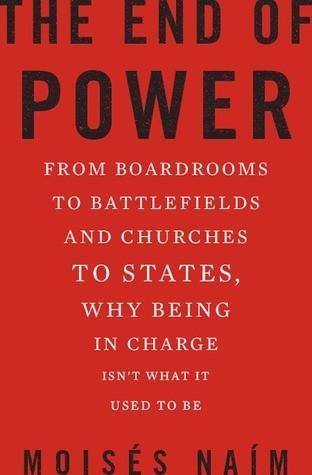
The End of Power: From Boardrooms to Battlefields and Churches to States, Why Being in Charge Isn’t What It Used to Be
by
Moises Naim
Published 5 Mar 2013
How many people do you know who don’t own a cellphone? Very few. This answer holds true even in the poorest and most dysfunctional nations. “Somali Mobile Phone Firms Thrive Despite Chaos” was the headline of a 2009 Reuters dispatch from that ravaged country.19 Somalia epitomizes the concept of “failed states,” societies in which citizens lack access to basic services that most of us take for granted. Yet, even there, twenty-first-century mobile telephony is widely available. The expansion of mobile telephony is as surprising for its speed as for its novelty. In 1990, the number of mobile cellular subscriptions per 100 people worldwide was 0.2.
…
Even in a world with new rivals and multiple poles of influence—a “post-American world,” as Fareed Zakaria has put it—the United States enjoys unique advantages that reinforce, not diminish, its power.19 Still others fear that changes in the global economy and the way we live have been so radical that neither hegemony nor global rules are even possible anymore. They fear that a form of anarchy—the primeval state of the world system—is once again taking hold. As early as 1994, Robert Kaplan saw anarchy emerging from failed states and ethnic rivalries, the rise of unchecked terrorist and criminal networks, and the vulnerability of an interconnected world to the spread of disease and other catastrophes. An even more dire view is that of political scientist Randall Schweller, who compares changes under way in the world system to the onset, in physics, of the state of entropy, when a system becomes so disorganized that it changes nature in a way that is impossible to reverse.
…
Edir Macedo, quoted in Tom Phillips, “Solomon’s Temple in Brazil Would Put Christ the Redeemer in the Shade,” Guardian, July 21, 2010. 7. Alexei Barrionuevo, “Fight Nights and Reggae Pack Brazilian Churches,” New York Times, September 15, 2009. 8. Richard Cimino, “Nigeria: Pentecostal Boom—Healing or Reflecting a Failing State?” Religion Watch, March 1, 2010. 9. Pew Forum on Religion and Public Life, “Global Christianity: A Report on the Size and Distribution of the World’s Christian Population,” December 2011. 10. Ibid. 11. Pew Forum on Religion and Public Life, “Faith on the Move: The Religious Affiliation of International Migrants,” March 2012. 12.
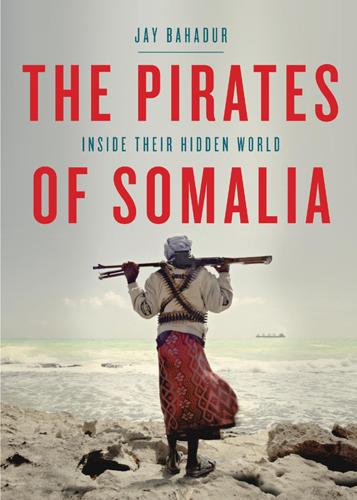
The Pirates of Somalia: Inside Their Hidden World
by
Jay Bahadur
Published 18 Jul 2011
“Because that was the agreement,” Boyah said. But I already knew the real reason, at least from the US point of view: the Americans would not have known what to do with Boyah and his men if they had captured them. According to international law—to the extent that international law has any meaning in an utterly failed state—the Americans were not even supposed to be in Somali territorial waters. Their hands were tied, and they let the pirates go. The Golden Nori was one of the first major commercial vessels hijacked in the Gulf of Aden, before the international community had truly become cognizant of the problem.
…
In some nations, such as the United Kingdom, arrested pirates would even be within their rights to claim asylum (the UK Foreign Office has voiced concerns that the pirates may face the Islamic punishments of beheading or amputation should they be returned to Somalia).1 Although in rare instances national pride has prevailed over fiscal sense—Boyah’s six unfortunate compatriots, for instance, as well as five pirates turned over to Dutch courts by the Danish navy in January 2009—prosecuting pirates through Western institutions is not a feasible long-term solution. So labyrinthine is the legal maze that many foreign navies have opted simply to release suspects after confiscating their weapons and destroying their ships, thereby drawing attacks from media outlets. Such criticism is not entirely fair. Pirates operating out of a failed state are unprecedented in modern times, and the existing international legal machinery is simply not suited to handle them. International law, fortunately, is continually being reinvented as needs dictate, and in no case is this fact better demonstrated than in the legal dilemma posed by the Somali pirates
…
The resolution decreed that states authorized by Somalia’s figurehead Transitional Federal Government (TFG)—a collection of former warlords and self-styled moderate Islamists controlling a few checkpoints in Mogadishu—would be allowed, for a period of six months, to enter the territorial waters of Somalia and use “all necessary means” to repress acts of piracy and armed robbery at sea.3 The token permission of the TFG was allegedly granted through a letter delivered to the Security Council by the UN permanent representative to Somalia, Ahmedou Ould-Abdullah, though this mysterious document was never made public.4 In reality, Resolution 1816 merely legitimized the status quo, wherein foreign navies routinely violated Somali waters when necessity demanded (on occasion, states have sought the TFG’s explicit permission, as when French forces pursued Boyah’s gang inland following the Le Ponant hijacking). Six months later, Resolution 1851 went as far as to authorize the use of ground forces on Somali soil; not surprisingly, no country has volunteered its troops. In a world without failed states, any Somali caught in the act of piracy—whether in international or Somali national waters—would be handed over to the government of Somalia for prosecution. As noted in earlier chapters, many piracy suspects are turned over to the government of Puntland, and occasionally that of Somaliland. Yet, for just cause, international actors doubt the will and capacity of these makeshift governments to seriously prosecute the offenders; furthermore, there is the problem of what to do with suspects originating from southern Somalia, who would undoubtedly go free if returned home.
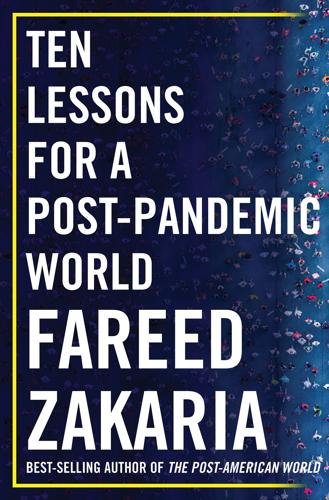
Ten Lessons for a Post-Pandemic World
by
Fareed Zakaria
Published 5 Oct 2020
(The lecture had the cringeworthy title, “The Relations of the Advanced and the Backward Races of Mankind.”) 185 The Great Illusion: Norman Angell, The Great Illusion: A Study of the Relation of Military Power in Nations to Their Economic and Social Advantage, 3rd ed., 1911, https://archive.org/details/greatillusion00angeiala. 186 return to the peaks: Obstfeld, “Globalization and Nationalism.” 186 rise of a new great power and the unease this creates in the existing hegemon: see Thucydides, “It was the rise of Athens and the fear that this inspired in Sparta that made war inevitable,” as quoted in Graham Allison, Destined for War: Can America and China Escape Thucydides’s Trap? (London: Scribe, 2017). Lesson Nine: The World Is Becoming Bipolar 187 “failed state”: George Packer, “We Are Living in a Failed State,” Atlantic, June 2020. 187 “secular stagnation”: Lawrence H. Summers, “Reflections on Secular Stagnation,” February 19, 2015, remarks at Princeton University’s Julis-Rabinowitz Center for Public Policy and Finance. 187 highlighted rising inequality: See, inter alia, Thomas Piketty, Capital in the Twenty-First Century (Cambridge, MA: Harvard University Press, 2013). 187 “deaths of despair”: Anne Case and Angus Deaton, Deaths of Despair and the Future of Capitalism (Princeton, NJ: Princeton University Press, 2020). 188 Fintan O’Toole: Fintan O’Toole, “Donald Trump Has Destroyed the Country He Promised to Make Great Again,” Irish Times, April 25, 2020.
…
But China’s example has not been followed by other countries—few have the scale to do it anyway—and so we have, in some areas, two digital worlds, China and the rest. LESSON NINE The World Is Becoming Bipolar “EVERY MORNING in the endless month of March, Americans woke up to find themselves citizens of a failed state,” declared the writer George Packer in the early weeks of the Covid-19 outbreak. The sense of shock prompted by the pandemic and America’s hapless response was real, but it came against the backdrop of growing worries about the state of the country. Since the 2008 financial crisis, which soiled America’s reputation, many had feared that the country was in deep trouble.
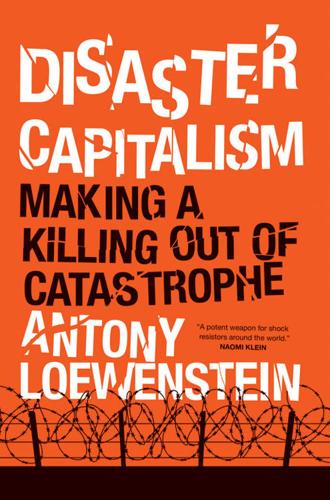
Disaster Capitalism: Making a Killing Out of Catastrophe
by
Antony Loewenstein
Published 1 Sep 2015
“We are unable to develop our own models of development and have to get international funding for the neoliberal agenda,” he told me. “It’s a way to show capitalism that we’re willing to work with you, but you’re actually destroying our own economy and agriculture.” Chalmers continued: “Haiti is one of the countries they call a ‘failed state.’ Since 1915, it’s been about how Haiti will please the United States, but there are alternatives to industrial parks. If you invest in agriculture and farming, you’ll have much better and more sustainable results. There is a finite number of people who can work in industrial parks, but millions of jobs are required.
…
However, since its independence, there had been little development of an understanding of PNG, which was mostly characterized as a poor nation teetering on the edge of collapse despite its abundance of natural resources—a state reliant on outside help and plagued by institutional corruption. Australia’s dumping of asylum seekers on PNG’s poor Manus Island, with justified local anger, strengthened the foreign narrative of a failed state. The new nation’s first prime minister, Michael Somare, was fondly remembered by some young locals as the man who commenced negotiations with Australian prime minister Gough Whitlam in the early 1970s to begin the decolonization process. But he was mostly seen as having delivered few long-lasting projects that had assisted all inhabitants of PNG.
…
The minister for petroleum and energy, William Duma, said that this was “a demonstration of the trust and confidence multinationals around the globe have for PNG … We as a country stand to gain more and we can’t go wrong.”49 Prime Minister Peter O’Neill, officiating at the opening of a Shell office in the capital in February 2012, reassured foreign investors that “despite the perception of political instability, unlike many other countries of the world, PNG has been able to maintain the confidence of the business community.”50 But the governor of PNG’s Gulf Province, Havila Kavo, voiced his concerns, asking why Shell was being welcomed back to the nation after the company had described PNG as a “failed state” a decade earlier. “They [Shell] ripped off the country and left,” he said. “What infrastructure have they left and what positive development have they left before departing? Such companies have no confidence in the country.”51 It seemed that Shell had decided to retract its previously held views in order to participate in PNG’s developing gas industry.52 It was rare that a poor country could resist the charms of a multinational offering substantial investment within its borders.

Dirty Wars: The World Is a Battlefield
by
Jeremy Scahill
Published 22 Apr 2013
Airstrike Kills Somali Accused of Links to Al-Qaeda.” 226 bio of their slain leader: Daveed Gartenstein-Ross, “The Strategic Challenge of Somalia’s Al-Shabaab,” Middle East Quarterly (fall 2009), www.meforum.org/2486/somalia-al-shabaab-strategic-challenge#_ftn22. 226 “short-term disruption”: US diplomatic cable 08NAIROBI1363, from Ambassador Michael Ranneberger, US Embassy Nairobi, “Somalia—Ayrow’s Demise,” June 3, 2008, released by WikiLeaks, http://wikileaks.org/cable/2008/06/08NAIROBI1363.html. 226 agreement signed in Djibouti: United Nations Security Council Department of Public Information, “Security Council, in Presidential Statement, Welcomes Signing of Djibouti Agreement on Reconciliation by Parties to Somalia Conflict,” UN Security Council press release, September 4, 2008. 227 refused to discuss: Author interview, President Sheikh Sharif Sheikh Ahmed, June 2011. 227 “favorite puppet”: Abdirahman “Aynte” Ali, “The Anatomy of al Shabaab,” unpublished paper, June 2010, www.radiodaljir.com/audio/docs/TheAnatomyOfAlShabaab.pdf. 227 indigenous diversity: Ibid., p. 28. 227 sense of empowerment: Ibid., p. 20. 228 diplomatic “visits”: International Crisis Group, “Somalia: To Move Beyond the Failed State,” Africa Report No. 147, December 23, 2008, p. 12. 228 lengthy negotiations: Ibid., pp. 12–13. 228 dismantling of roadblocks: Mark Bradbury, “State-Building, Counterterrorism, and Licensing Humanitarianism in Somalia,” briefing paper, Feinstein International Center, October 2010. 228 “a caricature”: International Crisis Group, “Somalia: To Move Beyond the Failed State,” p. 14. 228 reminiscent of the Taliban: Ibid. 228 “the only organization”: Committee on Foreign Relations, Al Qaeda in Yemen and Somalia: A Ticking Time Bomb, S.
…
Sheikh Sharif officially assumed the presidency in Somalia the same month Obama was sworn in, but Sharif could barely lay claim to being the mayor of Mogadishu. He loosely governed a small slice of territory in the capital—with the authority of a city council member surrounded by far more powerful enemies who wanted to kill him. “The idea that Somalia is just a failed state somewhere over there, where people are fighting with one another over heaven knows what, is a construct that we adopt at our peril,” declared Hillary Clinton during her Senate confirmation hearing to become secretary of state. “The internal conflict within the groups in Somalia is just as intense as it’s ever been, only now we have the added ingredient of al-Qaida and terrorists who are looking to take advantage of the chaos.”
…
“The struggle against violent extremism will not be finished quickly, and it extends well beyond Afghanistan and Pakistan,” Obama declared. “It will be an enduring test of our free society, and our leadership in the world. And unlike the great power conflicts and clear lines of division that defined the 20th century, our effort will involve disorderly regions, failed states, diffuse enemies.” He added: “We’ll have to be nimble and precise in our use of military power. Where al Qaeda and its allies attempt to establish a foothold—whether in Somalia or Yemen or elsewhere—they must be confronted by growing pressure and strong partnerships.” A week after his West Point speech, President Obama accepted the Nobel Peace Prize in Oslo, Norway.
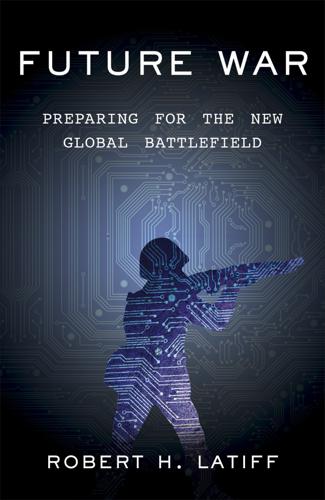
Future War: Preparing for the New Global Battlefield
by
Robert H. Latiff
Published 25 Sep 2017
The irony in the simplicity of the attacks was not lost on any of us. Everyone realized on that day that things were going to change, and change they did. This audacious attack, as well as previous attacks on U.S. embassies in Tanzania and Kenya and on the USS Cole, made it clear that going forward, war was going to be different. Individuals, groups, and failed states, in addition to state sponsors of such troublemakers, now threaten U.S. and allied interests and citizens globally. The intervening years have seen massive increases in research and development and a host of new technologies for war. Since 9/11, the military has experienced the largest sustained increase in funding in its history, exceeding even that of the Reagan defense buildup.
…
The philosopher Michael Walzer says, “Though chivalry is dead and fighting unfree, many professional soldiers remain sensitive (or some of them do) to those limits and restraints that distinguish their life’s work from mere butchery.” The laws of armed conflict have been extraordinarily successful in the past because the conflicts were between states, or so-called rational actors. Unfortunately, today’s threats often come from failed states and armed groups that look upon the West’s adherence to rules of war as ridiculous and capitalize on our ethical stance. The Canadian author and former politician Michael Ignatieff explains that “we in the West start from a universalist ethic based on the ideas of human rights, while our adversaries start from particularist ethics that define the tribe, the nation, or ethnicity as the limit of moral concern.”

The Market for Force: The Consequences of Privatizing Security
by
Deborah D. Avant
Published 17 Oct 2010
Introduction 31 contracting.80 Concomitant with the increase in supply was an increase in the demand for military skills on the private market – from western states that had downsized their militaries, from countries seeking to upgrade and westernize their militaries as a way of demonstrating credentials for entry into western institutions, from rulers of weak or failed states no longer propped up by superpower patrons, and from non-state actors such as private firms, INGOs, and groups of citizens in the territories of weak or failed states. There are those who assume that the turn to PSCs was the obvious, natural, and functional response to the material changes technology brought to warfare and the shift in the balance of power after the Cold War.81 Arguments about the future of defense in the US illustrate this thinking.
…
A transnational market for military and security services Private security companies provide military and security services to states, international organizations, INGOs, global corporations, and wealthy individuals. Every multi-lateral peace operation conducted by the UN since 1990 included the presence of PSCs. States that contracted for military services ranged from highly capable states like the US to failing states like Sierra Leone. Meanwhile, global corporations 8 The Market for Force hired PSCs to provide site security and planning, and INGOs working in conflict zones or unstable territories did the same. Since the 11 September terrorist attacks on the United States, the war on terrorism has offered even greater opportunities for the private security industry.
…
The supply of foreign and military aid dried up, leaving governments even more cash starved than they had been during the Cold War. Other events in the 1990s such as drought and famine intensified governance problems, resulting in a stream of revolutions, civil insurrections, ethnic strife, and failed states. The World Bank estimates that per capita Gross Domestic Product (GDP) declined by more than 40 percent between 1965 and 1997 in Democratic Republic of Congo. The civil war began in the fall of 1996. For details on its outbreak see William Thom, “Congo-Zaire’s 1996–1997 Civil War in the Context of Evolving Patterns of Military Conflict in Africa in the Era of Independence,” Journal of Conflict Studies Vol. 19, No. 2 (fall 1999).

Rainbows End
by
Vernor Vinge
Published 1 May 2006
Meantime, he used his resources in the EUIB and the Indo-European Alliance. Within hours, he was deep into a number of projects: He brought in the best cult expert in the Indo-European intelligence community and set her loose on the evidence. He reached out to the military assets of the Alliance, in Central Africa and all the failed states at the edge of the modern world. There were solid clues about the origin of the July 18 Pseudomimi. Though this research was not bioscientific, Braun’s analysts were very similar to the best at CDD — only smarter, more numerous, with far deeper resources. Even so, they were lucky: over the next three days, they put two and two (and two and two and two…) together.
…
“In a way, that’s more plausible than what we really are.” The heirs of drug wars past had been in eclipse this last decade; access to “ecstasy and enhancement” was so widespread that competition had done what enforcement could never accomplish. But the drug lords were still rich beyond the dreams of most small countries. The ones lurking in failed states might be crazy enough to do what they three had hinted at today. Günberk said, “The rabbit is manageable, I grant that. Competent for our needs? Much less likely.” “Having second thoughts about our little project, Günberk?” This was Keiko’s real voice. Her tone was light, but Alfred knew she had her own very serious misgivings.
…
“So far,” said Sheila the shima-ping. “I’m just hoping we aren’t too fragmented.” “Yeah.” That was the virtue and the weakness of the Scoochi worldview. Scooch-a-mout was distributed in bits and pieces. It was customized to the wishes of children, not just in the Great Powers, but also in the failed states at the edge of the world. The Scoochis had so many different creations. The Hacekeans had the notion of knowledge conquering outward, a vision that claimed consistency over everything. And just now that fit their near-total control of the library. The shima-ping bounced up and down on its three feet.

Brexit Unfolded: How No One Got What They Want (And Why They Were Never Going To)
by
Chris Grey
Published 22 Jun 2021
It’s a hard Brexit coup’ The Guardian 25 July 2019 https://www.theguardian.com/commentisfree/2019/jul/25/power-brexit-boris-johnson-radical-conservative-party 95 Tom McTague, ‘British Jacobins on the march in Brexit revolution’ Politico 16 September 2018 https://www.politico.eu/article/boris-johnson-brexit-fantasy-explained-britain-perpetual-revolution/ 96 ‘Dominic Cummings: Anger at MPs “not surprising”, PM’s adviser says’ BBC News 27 September 2019 https://www.bbc.co.uk/news/uk-politics-49847304 97 ‘Kwasi Kwarteng criticised for “biased judges” comment’ BBC News 12 September 2019 https://www.bbc.co.uk/news/uk-politics-49670901 98 Helene von Bismarck, ‘Shutting down parliament is worse than a coup. It’s a mistake.’ Foreign Policy 29 August 2019 https://foreignpolicy.com/2019/08/29/shutting-down-parliament-is-worse-than-a-coup-its-a-mistake/ 99 Chris Patten, ‘Is Britain becoming a failed state?’ Project Syndicate 20 August 2019 https://www.project-syndicate.org/commentary/britain-brexit-failed-state-by-chris-patten-2019-08?barrier=accesspaylog 100 Peter Foster and James Crisp, ‘“Despairing” EU officials braced for showdown with Boris Johnson after combative Commons performance’ The Telegraph 26 September 2019 https://www.telegraph.co.uk/politics/2019/09/26/despairing-eu-officials-braced-showdown-boris-johnson-combative/ 101 Andrew Woodcock, ‘Brexit: Boris Johnson accused of being “out of his depth” after rebuff in talks with EU’s Juncker’ The Independent 18 September 2019 https://www.independent.co.uk/news/uk/politics/brexit-boris-johnson-jean-claude-juncker-eu-meeting-negotiations-northern-ireland-a9110411.html 102 Alan McGuinness, ‘Tory MP Daniel Kawczynski defends bid to get Poland to veto Brexit delay’ Sky News 21 October 2019 https://news.sky.com/story/tory-mp-daniel-kawczynski-defends-bid-to-get-poland-to-veto-brexit-delay-11841185 103 Sam Fleming, George Parker and Arthur Beesley, ‘Boris Johnson warns of return to Irish customs checks’ Financial Times 1 October 2019 https://www.ft.com/content/488cd226-e467-11e9-9743-db5a370481bc 104 David Allen Green, ‘Boris Johnson subverts the rule of law’ Financial Times 11 September 2020 https://www.ft.com/content/5f57d498-d3e0-11e9-8367-807ebd53ab77 105 For which, see Jonathan Tonge, Stuart Wilks-Heeg and Louise Thompson (eds), Britain Votes: The 2019 General Election (Oxford: Oxford University Press, 2020) 106 Dominic Wring and Stephen Ward, ‘From Bad to Worse?
…
Thus Helene von Bismarck, a well-known German historian specialising in British politics, argued that with prorogation Johnson had badly miscalculated how it would be regarded by the EU, and that it had done nothing to improve his reputation for being untrustworthy.98 That reputation was partly a personal one to do with his years of writing anti-EU articles and his role in the leave campaign, but it now exacerbated the way that, especially since reneging on the phase one agreement about Northern Ireland (see Chapter Three), the UK polity as a whole was acquiring a reputation internationally for dishonesty. It was a reputation which was to worsen in the coming months, but already as sober a figure as Chris Patten, former Chairman of the Conservative Party, was warning that with prorogation, and other Brexit-related developments, Britain was risking a decline into being a ‘failed state’.99 The failure of prorogation did not remove its stain, with Johnson’s bellicose reaction reported as causing ‘despair’ within the EU.100 But, beyond the damage to Britain’s political culture and reputation, the prorogation manoeuvre had not just failed in its own terms but made matters worse.
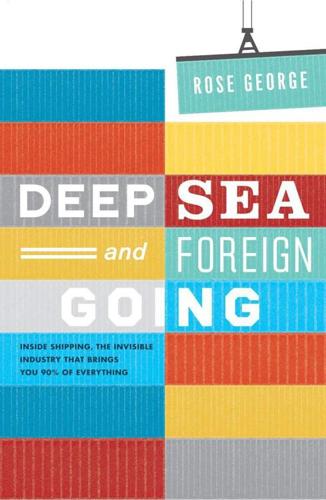
Deep Sea and Foreign Going
by
Rose George
Published 4 Sep 2013
Even before we reached his office, he had told me that once he was in the shower when his wife shouted up. ‘Paddy, there’s someone on the phone, he says he’s a pirate?’ They phoned him all the time, because the spokesperson’s number is on the EU-NAVFOR website, and although Somali pirates come from a failed state, they still have smartphones and internet cafés. Pirates can Google. They are known to read up on their crews and hostages, so it becomes dangerous for any information – a family photo of a captain standing in front of a decent house, for example – to be accessible online. A decent house could mean pirates push for a high ransom.
…
On MV Arillah-1, seafarers endured 30 hours inside their citadel while pirates burned ropes and wood near the ventilation grilles of the citadel, trying to choke them out or to death. At his desk, which held a copy of Pirate Latitudes by Michael Crichton – a Christmas present from his wife, still unread in March – Paddy said, OK, everyone knows the general situation in Somalia. Or they have watched Black Hawk Down, which they think amounts to the same thing. War, chaos, failed state. No meaningful government since 1991. By 2011, the Transitional Federal Government was nominally governing the country, but only as President Hamid Karzai – nicknamed the Mayor of Kabul – was ruling Afghanistan: partly, and with backup. On the TFG’s side was the African Union Mission in Somalia (AMISOM), an African Union peacekeeping force that also wages war; and on the other side was Al-Shabab, Somalia’s group of native terrorists, affiliated with Al-Qaeda though without its global ambition.
…
A London-based Somalia expert told me modern pirates had never been fishermen or coastguards. He thought they came from inland criminal gangs. It was a protection racket. Mombasa-based Somalis were anyway in the habit of selling illegal fishing licences to foreign operators. You can do that in a failed state when foreigners used to a rule of law know no different. The foreigners, he said, would come and start fishing, ‘and the [Somalis] would make their presence known’. He meant that they demanded money. ‘Then they realized they could make more by pinching the ship.’ Thus the template was formed. ‘We would get a report of a vessel seized, journalists would ring up fishermen and get quotes about foreigners raping the seas and [were told] that Somali fishermen were furious.

The Sirens' Call: How Attention Became the World's Most Endangered Resource
by
Chris Hayes
Published 28 Jan 2025
The age we’re living through is akin to life in a failed state, a society that had some governing regime that has disintegrated and fallen into a kind of attentional warlordism. In a society where the government’s monopoly on the legitimate use of force has come apart, different factions and power centers arise based on their ability to conquer and impose their will through coercion and violence. While in a functioning government the route to power might lie in persuasion or charisma or mass mobilization or the ability to deftly manipulate elite party structures and alliances, in failed states power tends to be stripped down to its most brutal essentials, chiefly the use of force.
…
In our own attention age, the most important trait is the ability to get attention, above all else. The shamelessness to interrupt. While under a functioning attentional regime, other abilities might distinguish one in the public sphere, as the attentional regimes collapse, the ability to get attention becomes more and more essential. And like the violence in a failed state, there is no static equilibrium. The competition for attention is ceaseless, constant, dynamic, and always in flux. At any point attention can be pulled in one direction or another. Power centers and alliances shift. These basic conditions have revolutionary consequences for public discourse in the attention age, an age in which the debate model has almost entirely fallen apart and been replaced with the attentional version of what Thomas Hobbes described as the state of nature, where they find themselves in “that condition which is called War; and such a war as is of every man against every man.”[40] * * * — There’s a notable asterisk to this characterization: the role of social media companies often referred to collectively as “the platforms”—Google, Facebook, X, TikTok, and the like.
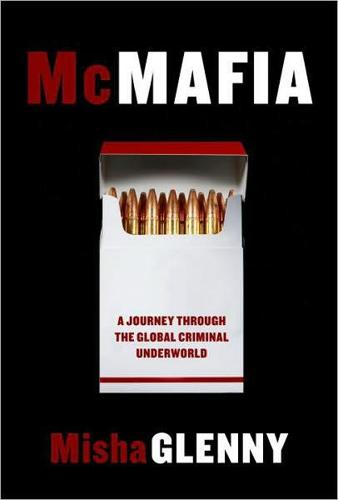
McMafia: A Journey Through the Global Criminal Underworld
by
Misha Glenny
Published 7 Apr 2008
But one of the officers involved in the Utsiev brothers’ case pointed out at the time, “We were suddenly dealing with crime and politics from a part of the world that, to be honest, none of us in the Metropolitan or Surrey police had ever heard of. We knew nothing about the wars, about the crime, and about the politics—we were frankly all at sea.” It was 1994, and the failing state, an unknown concept to most, was visiting Britain for the first time. The post–World War II order began to crumble in the first half of the 1980s. Its dissolution followed no obvious pattern, occurring instead as a series of seemingly disparate events: the spectacular rise of the Japanese car industry; Communist Hungary’s clandestine approach to the International Monetary Fund to explore a possible application for membership; the stagnation of India’s economy; President F.
…
This clutch of uncertain new states on the southern periphery of the former Russian empire was born as the pace of globalization accelerated. Countries in Western Europe and the Mediterranean proved a powerful magnet for those scrambling to seize power along the New Silk Route. Money translated directly into political power and vice versa. And so those harboring ambition in the failing states needed the New Silk Route for three related transactions: to transfer cash to the sanctity of Western banks and real estate; to sell illicit goods and services into the European Union, the United States, and eastward to Japan; and to buy and sell arms within the former Soviet Union and to export them into the world’s trouble spots.
…
After the war, people decided to use their arms caches to make money in criminal gangs. And then we saw that the right-wing paramilitaries and left-wing guerrillas began working together! Burglary, carjacking plus kidnapping, car theft…” Winer had stumbled across something that still plagues peace initiatives aiming to stop wars that engulf failed states. When diplomats succeed in bringing the fighting to a halt, they are confronted with a wrecked local economy and a society dominated by testosterone-driven young men who are suddenly unemployed but have grown accustomed to their omnipotence. If you want lasting stability, you have to find useful jobs to occupy them.
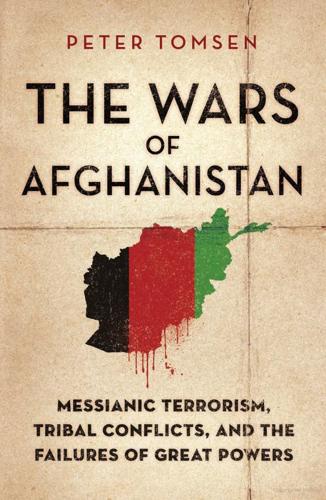
The Wars of Afghanistan
by
Peter Tomsen
Published 30 May 2011
Vorontsov, Concerning the Current Political Situation Inside Afghanistan and the Possibilities of Solving the Afghan Question, Sent to the Heads of the Embassies and Legations of the Countries of the Socialist Commonwealth in Kabul, [3 February, 1989], State Central Archive, Prague, File 02/1, CC CPCz Politburo 1980—1989, 103rd Meeting, 3 February 1989, in Czech, translated by Todd Hammond and Derek Paton, in Christian Ostermann, ed., “New Evidence on the War in Afghanistan,” Woodrow Wilson International Center for Scholars, Cold War International History Project Bulletin, no. 14/15 (2003—2004): 226—227, www.coldwar.hu/html/en/publications/b%E9k%E9s-afghanistan.pdf. 23 Steve Coll, The Secret History of the CIA, Afghanistan, and bin Laden, from the Soviet Invasion to September 10, 2001 (New York: Penguin, 2004), 210. 24 Islamabad 15754, “Afghanistan—Internal Situation,” July 22, 1989, secret/ NODIS, declassified. 25 Ibid. 26 See “The Fund for Peace: Promoting Sustainable Security. Failed States Index 2009,” www.fundforpeace.org/web/index.php?option=com_content&task=view&id=99&Itemid=140; “Pakistan Recovers in Failed States Index,” June 29, 2009, www.nation.com.pk/pakistan-news-newpaper-daily-english-online//Politics/29-Jun-2009/Pakistan-recovers-in-failed-states-index. By June 2009, Pakistan ranked tenth from the bottom in the Failed States Index, between Guinea and Ivory Coast. 27 U.S. Defense Intelligence Agency, “Mohammad Najib Replaces Babrak Karmal,” unclassified, 88-DIA-0435-88-5F. 28 “Record of a Conversation of M.
…
Pakistan’s hopeless venture to place Hekmatyar and later the Taliban in Kabul would inflict many more years of inconclusive, bloody warfare on Afghanistan. The continuing Afghan war would also harm Pakistan. An ongoing refugee burden; the blowback of Islamic terrorism, violence, and lawlessness; “the Kalashnikov culture” of guns and violence; narcotics; and international estrangement would push Pakistan lower and lower on the Failed States Index, a list compiled by the Fund for Peace based on twelve indicators of risk.26 In June 2009, Pakistan ranked tenth from the bottom, between Guinea and Ivory Coast. The Soviet Union’s decision to continue propping up the Najib regime after its withdrawal was also a poor investment. The resources wasted in Afghanistan by the USSR between 1989 and the end of 1991, when the Soviet Union finally collapsed, were desperately needed at home.
…
Eisenhower administration Election Complaints Commission (ECC) Elphinstone, William Emad, Nurullah Encapsulation strategy Energy pipelines, issue of Enhanced Partnership with Pakistan Act Enlightenment, the Etemadi, Nur Ahmad Ethnic groups See also specific ethnic groups European imperialism, expansion of European Union Fahd al-Saud, King Fahim, Mohammad Failed States Index Faisal al-Saud, King Farid, Ustad Fedotov, Vladimir Finn, Robert Flatin, Bruce Foreign Assistance Act Foreign Terrorist Organizations (FTOs), list of (fig.) Fragmentation, avoiding France Franks, Tommy Freeman, Charles French Revolution Friendship treaties Funding oversight, providing Gailani, Hamed Gailani, Salman Gailani, Sayyid Ahmad (table) Gall, Sandy Gamiat Islamiya (extremist group) Gandamak Treaty Gandhi, Indira Gankowskiy, Yuriy Gates, Robert Gaugamela, Battle of Gender issues.

London Review of Books
by
London Review of Books
Published 14 Dec 2017
Divided, discredited, bankrupt and without strong allies, the Kurdish leaders must now try to negotiate a new deal with Baghdad that retains at least something of the semi-independent status they previously enjoyed. * Not so long ago , when asked about the future, Baghdadis would commonly reply that ‘Iraq is finished.’ American politicians argued that the country should either be broken up or continue as the loosest of federations. This notion that Iraq is a failed state is now being replaced by growing self-confidence on the part of the Shia majority: the Iraqi state has been reborn, they insist, and belongs to them. There is an outpouring of nationalist celebration in the Iraqi media, even if it is not necessarily an accurate guide to what Iraqis actually think.
…
Finally I arranged to meet him in the lobby of my hotel: we were to go for dinner at a restaurant close to the magnificent Arch of Marcus Aurelius. As we sat at a table outside, making small talk and waiting for the call to prayer to end the day’s fast, it occurred to me that the company couldn’t have made a more inappropriate match than this one between the country manager and the failed state of Libya. A dapper, American-educated corporate droid, he was a prisoner of management speak: he had ‘reached out to’ employees, he told me; they hadn’t ‘embraced the new reality’. He didn’t seem able to adjust to the fact that he was operating in a warzone, dealing with people who were suffering, many of whom had demonstrated great loyalty to a company that abandoned them at the first sign of trouble.
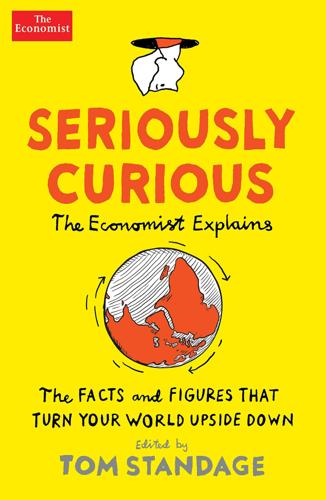
Seriously Curious: The Facts and Figures That Turn Our World Upside Down
by
Tom Standage
Published 27 Nov 2018
But official figures published in 2017 revealed that military activity was responsible for about a quarter of delays. It all adds up to more time stuck inside China’s gleaming (but frustrating) airports. Why Somaliland is east Africa’s strongest democracy Drop a pin on a map of eastern Africa, and the chances are it will not land on a healthy democracy. Somalia and South Sudan are failed states. Sudan is a dictatorship, as are the police states of Eritrea, Rwanda and Ethiopia. President Yoweri Museveni of Uganda has ruled uninterrupted since 1986, and has passed a law to remove a constitutional age limit so he can cling on longer. Elections in Tanzania have never ousted the Party of the Revolution; it and its predecessor have governed continuously since independence in 1961.
…
For more explainers and charts from The Economist, visit economist.com Index A Africa child marriage 84 democracy 40 gay and lesbian rights 73, 74 Guinea 32 mobile phones 175–6 see also individual countries agriculture 121–2 Aguiar, Mark 169 air pollution 143–4 air travel and drones 187–8 flight delays 38–9 Akitu (festival) 233 alcohol beer consumption 105–6 consumption in Britain 48, 101–2 craft breweries 97–8 drink-driving 179–80 wine glasses 101–2 Alexa (voice assistant) 225 Algeria food subsidies 31 gay and lesbian rights 73 All I Want for Christmas Is You (Carey) 243 alphabet 217–18 Alternative for Germany (AfD) 223, 224 Alzheimer’s disease 140 Amazon (company) 225 America see United States and 227–8 Angola 73, 74 animals blood transfusions 139–40 dog meat 91–2 gene drives 153–4 size and velocity 163–4 and water pollution 149–50 wolves 161–2 Arctic 147–8 Argentina gay and lesbian rights 73 lemons 95–6 lithium 17–18 Ariel, Barak 191 Arizona 85 arms trade 19–20 Asia belt and road initiative 117–18 high-net-worth individuals 53 wheat consumption 109–10 see also individual countries Assange, Julian 81–3 asteroids 185–6 augmented reality (AR) 181–2 August 239–40 Australia avocados 89 forests 145 inheritance tax 119 lithium 17, 18 shark attacks 201–2 autonomous vehicles (AVs) 177–8 Autor, David 79 avocados 89–90 B Babylonians 233 Baltimore 99 Bangladesh 156 bank notes 133–4 Bateman, Tim 48 beer consumption 105–6 craft breweries 97–8 Beijing air pollution 143–4 dogs 92 belt and road initiative 117–18 betting 209–10 Bier, Ethan 153 Bils, Mark 169 birds and aircraft 187 guinea fowl 32–3 birth rates Europe 81–3 United States 79–80 black money 133–4 Black Power 34, 35 Blade Runner 208 blood transfusions 139–40 board games 199–200 body cameras 191–2 Boko Haram 5, 15–16 Bolivia 17–18 Bollettieri, Nick 197 bookmakers 209–10 Borra, Cristina 75 Bosnia 221–2 brain computers 167–8 Brazil beer consumption 105, 106 Christmas music 243, 244 end-of-life care 141–2 gay and lesbian rights 73 murder rate 45, 46 shark attacks 202 breweries 97–8 Brexit, and car colours 49–50 brides bride price 5 diamonds 13–14 Britain alcohol consumption 101–2 car colours 49–50 Christmas music 244 cigarette sales 23–4 craft breweries 98 crime 47–8 Easter 238 gay population 70–72 housing material 8 inheritance tax 119 Irish immigration 235 life expectancy 125 manufacturing jobs 131 national identity 223–4 new-year resolutions 234 police body cameras 191 sexual harassment 67, 68, 69 sperm donation 61 see also Scotland Brookings Institution 21 Browning, Martin 75 bubonic plague 157–8 Bush, George W. 119 C cables, undersea 193–4 California and Argentine lemons 95, 96 avocados 90 cameras 191–2 Canada diamonds 13 drones 188 lithium 17 national identity 223–4 capitalism, and birth rates 81–2 Carey, Mariah 243 Carnegie Endowment for International Peace 21 cars colours 49–50 self-driving 177–8 Caruana, Fabiano 206 Charles, Kerwin 169 cheetahs 163, 164 chess 205–6 Chetty, Raj 113 Chicago 100 children birth rates 79–80, 81–3 child marriage 84–5 in China 56–7 crime 47–8 and gender pay gap 115–16, 135–6 obesity 93–4 Chile gay and lesbian rights 73 lithium 17–18 China air pollution 143–5 arms sales 19–20 avocados 89 beer consumption 105 belt and road initiative 117–18 childhood obesity 93 construction 7 dog meat 91–2 dragon children 56–7 flight delays 38–9 foreign waste 159–60 lithium 17 rice consumption 109–10 Choi, Roy 99 Christian, Cornelius 26 Christianity Easter 237–8 new year 233–4 Christmas 246–7 music 243–5 cigarettes affordability 151–2 black market 23–4 cities, murder rates 44–6 Citizen Kane 207 citrus wars 95–6 civil wars 5 Clarke, Arthur C. 183 Coase, Ronald 127, 128 cocaine 44 cochlear implants 167 Cohen, Jake 203 Colen, Liesbeth 106 colleges, US 113–14 Colombia 45 colours, cars 49–50 commodities 123–4 companies 127–8 computers augmented reality 181–2 brain computers 167–8 emojis 215–16 and languages 225–6 spam e-mail 189–90 Connecticut 85 Connors, Jimmy 197 contracts 127–8 Costa Rica 89 couples career and family perception gap 77–8 housework 75–6 see also marriage cows 149–50 craft breweries 97–8 crime and avocados 89–90 and dog meat 91–2 murder rates 44–6 young Britons 47–8 CRISPR-Cas9 153 Croatia 222 Croato-Serbian 221–2 D Daily-Diamond, Christopher 9–10 Davis, Mark 216 De Beers 13–14 death 141–2 death taxes 119–20 democracy 40–41 Deng Xiaoping 117 Denmark career and family perception gap 78 gender pay gap 135–6 sex reassignment 65 Denver 99 Devon 72 diamonds 13–14, 124 digitally remastering 207–8 Discovery Channel 163–4 diseases 157–8 dog meat 91–2 Dorn, David 79 Dr Strangelove 207 dragon children 56–7 drink see alcohol drink-driving 179–80 driverless cars 177–8 drones and aircraft 187–8 and sharks 201 drugs cocaine trafficking 44 young Britons 48 D’Souza, Kiran 187 E e-mail 189–90 earnings, gender pay gap 115–16, 135–6 Easter 237–8 economy and birth rates 79–80, 81–2 and car colours 49–50 and witch-hunting 25–6 education and American rich 113–14 dragon children 56–7 Egal, Muhammad Haji Ibrahim 40–41 Egypt gay and lesbian rights 73 marriage 5 new-year resolutions 233 El Paso 100 El Salvador 44, 45 emojis 215–16 employment gender pay gap 115–16, 135–6 and gender perception gap 77–8 job tenure 129–30 in manufacturing 131–2 video games and unemployment 169–70 English language letter names 217–18 Papua New Guinea 219 environment air pollution 143–4 Arctic sea ice 147–8 and food packaging 103–4 waste 159–60 water pollution 149–50 Equatorial Guinea 32 Eritrea 40 Ethiopia 40 Europe craft breweries 97–8 summer holidays 239–40 see also individual countries Everson, Michael 216 exorcism 36–7 F Facebook augmented reality 182 undersea cables 193 FANUC 171, 172 Federer, Roger 197 feminism, and birth rates 81–2 fertility rates see birth rates festivals Christmas 246–7 Christmas music 243–5 new-year 233–4 Feuillet, Catherine 108 films 207–8 firms 127–8 5G 173–4 flight delays 38–9 Florida and Argentine lemons 95 child marriage 85 Foley, William 220 food avocados and crime 89–90 dog meat 91–2 lemons 95–6 wheat consumption 109–10 wheat genome 107–8 food packaging 103–4 food trucks 99–100 football clubs 211–12 football transfers 203–4 forests 145–6, 162 Fountains of Paradise, The (Clarke) 183 fracking 79–80 France career and family perception gap 78 Christmas music 244 exorcism 36–7 gender-inclusive language 229–30 job tenure 130 sex reassignment 66 sexual harassment 68–9 witch-hunting 26, 27 wolves 161–2 G gambling 209–10 games, and unemployment 169–70 Gandhi, Mahatma 155 gang members 34–5 Gantz, Valentino 153 gas 124 gay population 70–72 gay rights, attitudes to 73–4 gender sex reassignment 65–6 see also men; women gender equality and birth rates 81–2 in language 229–30 gender pay gap 115–16, 135–6 gene drives 153–4 Genghis Khan 42 genome, wheat 107–8 ger districts 42–3 Germany beer consumption 105 job tenure 130 national identity 223–4 sexual harassment 68, 69 vocational training 132 witch-hunting 26, 27 Ghana 73 gig economy 128, 130 glasses, wine glasses 101–2 Goddard, Ceri 72 Google 193 Graduate, The 207 Greece forests 145 national identity 223–4 sex reassignment 65 smoking ban 152 Gregg, Christine 9–10 grunting 197–8 Guatemala 45 Guinea 32 guinea fowl 32–3 guinea pig 32 Guinea-Bissau 32 Guo Peng 91–2 Guyana 32 H Haiti 5 Hale, Sarah Josepha 242 Hanson, Gordon 79 Hawaii ’Oumuamua 185 porn consumption 63–4 health child obesity 93–4 life expectancy 125–6 plague 157–8 and sanitation 155 high-net-worth individuals (HNWIs) 53 Hiri Motu 219 holidays Easter 237–8 St Patrick’s Day 235–6 summer holidays 239–40 Thanksgiving 241–2 HoloLens 181–2 homicide 44–6 homosexuality attitudes to 73–4 UK 70–72 Honduras 44, 45 Hong Kong 56 housework 75–6, 77–8 Hudson, Valerie 5 Hungary 223–4 Hurst, Erik 169 I ice 147–8 Ikolo, Prince Anthony 199 India bank notes 133–4 inheritance tax 119 languages 219 rice consumption 109 sand mafia 7 sanitation problems 155–6 Indonesia polygamy and civil war 5 rice consumption 109–10 inheritance taxes 119–20 interest rates 51–2 interpunct 229–30 Ireland aitch 218 forests 145 St Patrick’s Day 235–6 same-sex marriage 73 sex reassignment 65 Italy birth rate 82 end of life care 141–2 forests 145 job tenure 130 life expectancy 126 J Jacob, Nitya 156 Jamaica 45 Japan 141–2 Jighere, Wellington 199 job tenure 129–30 jobs see employment Johnson, Bryan 168 junk mail 189 K Kazakhstan 6 Kearney, Melissa 79–80 Kennedy, John F. 12 Kenya democracy 40 mobile-money systems 176 Kiribati 7 Kleven, Henrik 135–6 knots 9–10 Kohler, Timothy 121 Kyrgyzstan 6 L laces 9–10 Lagos 199 Landais, Camille 135–6 languages and computers 225–6 gender-inclusive 229–30 letter names 217–18 and national identity 223–4 Papua New Guinea 219–20 Serbo-Croatian 221–2 Unicode 215 World Bank writing style 227–8 Latimer, Hugh 246 Leeson, Peter 26 leisure board games in Nigeria 199–200 chess 205–6 gambling 209–10 video games and unemployment 169–70 see also festivals; holidays lemons 95–6 letter names 217–18 Libya 31 life expectancy 125–6 Lincoln, Abraham 242 lithium 17–18 London 71, 72 longevity 125–6 Lozère 161–2 Lucas, George 208 M McEnroe, John 197 McGregor, Andrew 204 machine learning 225–6 Macri, Mauricio 95, 96 Macron, Emmanuel 143 Madagascar 158 Madison, James 242 MagicLeap 182 Maine 216 Malaysia 56 Maldives 7 Mali 31 Malta 65 Manchester United 211–12 manufacturing jobs 131–2 robots 171–2 summer holidays 239 Maori 34–5 marriage child marriage 84–5 polygamy 5–6 same-sex relationships 73–4 see also couples Marteau, Theresa 101–2 Marx, Karl 123 Maryland 85 Massachusetts child marriage 85 Christmas 246 Matfess, Hilary 5, 15 meat dog meat 91–2 packaging 103–4 mega-rich 53 men career and family 77–8 housework 75–6 job tenure 129–30 life expectancy 125 polygamy 5–6 sexual harassment by 67–9 video games and unemployment 169 Mexico avocados 89, 90 gay and lesbian rights 73 murder rate 44, 45 microbreweries 97–8 Microsoft HoloLens 181–2 undersea cables 193 migration, and birth rates 81–3 mining diamonds 13–14 sand 7–8 mobile phones Africa 175–6 5G 173–4 Mocan, Naci 56–7 Mongolia 42–3 Mongrel Mob 34 Monopoly (board game) 199, 200 Monty Python and the Holy Grail 25 Moore, Clement Clarke 247 Moretti, Franco 228 Morocco 7 Moscato, Philippe 36 movies 207–8 Mozambique 73 murder rates 44–6 music, Christmas 243–5 Musk, Elon 168 Myanmar 118 N Nadal, Rafael 197 national identity 223–4 natural gas 124 Netherlands gender 66 national identity 223–4 neurostimulators 167 New Jersey 85 New Mexico 157–8 New York (state), child marriage 85 New York City drink-driving 179–80 food trucks 99–100 New Zealand avocados 89 gang members 34–5 gene drives 154 water pollution 149–50 new-year resolutions 233–4 Neymar 203, 204 Nigeria board games 199–200 Boko Haram 5, 15–16 population 54–5 Nissenbaum, Stephen 247 Northern Ireland 218 Norway Christmas music 243 inheritance tax 119 life expectancy 125, 126 sex reassignment 65 Nucci, Alessandra 36 O obesity 93–4 oceans see seas Odimegwu, Festus 54 O’Reilly, Oliver 9–10 Ortiz de Retez, Yñigo 32 Oster, Emily 25–6 ostriches 163, 164 ’Oumuamua 185–6 P packaging 103–4 Pakistan 5 Palombi, Francis 161 Papua New Guinea languages 219–20 name 32 Paris Saint-Germain (PSG) 203 Passover 237 pasta 31 pay, gender pay gap 115–16, 135–6 Peck, Jessica Lynn 179–80 Pennsylvania 85 Peru 90 Pestre, Dominique 228 Pew Research Centre 22 Phelps, Michael 163–4 Philippe, Édouard 230 phishing 189 Phoenix, Arizona 177 Pilgrims 241 plague 157–8 Plastic China 159 police, body cameras 191–2 pollution air pollution 143–4 water pollution 149–50 polygamy 5–6 pornography and Britain’s gay population 70–72 and Hawaii missile alert 63–4 Portugal 145 Puerto Rico 45 punctuation marks 229–30 Q Qatar 19 R ransomware 190 Ravenscroft, George 101 Real Madrid 211 religious observance and birth rates 81–2 and Christmas music 244 remastering 207–8 Reynolds, Andrew 70 Rhodes, Cecil 13 rice 109–10 rich high-net-worth individuals 53 US 113–14 ride-hailing apps and drink-driving 179–80 see also Uber RIWI 73–4 robotaxis 177–8 robots 171–2 Rogers, Dan 240 Romania birth rate 81 life expectancy 125 Romans 233 Romer, Paul 227–8 Ross, Hana 23 Royal United Services Institute 21 Russ, Jacob 26 Russia arms sales 20 beer consumption 105, 106 fertility rate 81 Rwanda 40 S Sahara 31 St Louis 205–6 St Patrick’s Day 235–6 salt, in seas 11–12 same-sex relationships 73–4 San Antonio 100 sand 7–8 sanitation 155–6 Saudi Arabia 19 Scotland, witch-hunting 25–6, 27 Scott, Keith Lamont 191 Scrabble (board game) 199 seas Arctic sea ice 147–8 salty 11–12 undersea cables 193–4 secularism, and birth rates 81–2 Seles, Monica 197 self-driving cars 177–8 Serbia 222 Serbo-Croatian 221–2 Sevilla, Almudena 75 sex reassignment 65–6 sexual harassment 67–9, 230 Sharapova, Maria 197 sharks deterring attacks 201–2 racing humans 163–4 shipping 148 shoelaces 9–10 Silk Road 117–18 Singapore dragon children 56 land reclamation 7, 8 rice consumption 110 single people, housework 75–6 Sinquefeld, Rex 205 smart glasses 181–2 Smith, Adam 127 smoking black market for cigarettes 23–4 efforts to curb 151–2 smuggling 31 Sogaard, Jakob 135–6 Somalia 40 Somaliland 40–41 South Africa childhood obesity 93 diamonds 13 gay and lesbian rights 73 murder rate 45, 46 South Korea arms sales 20 rice consumption 110 South Sudan failed state 40 polygamy 5 space elevators 183–4 spaghetti 31 Spain forests 145 gay and lesbian rights 73 job tenure 130 spam e-mail 189–90 sperm banks 61–2 sport football clubs 211–12 football transfers 203–4 grunting in tennis 197–8 Sri Lanka 118 Star Wars 208 sterilisation 65–6 Strasbourg 26 submarine cables 193–4 Sudan 40 suicide-bombers 15–16 summer holidays 239–40 Sutton Trust 22 Sweden Christmas music 243, 244 gay and lesbian rights 73 homophobia 70 inheritance tax 119 overpayment of taxes 51–2 sex reassignment 65 sexual harassment 67–8 Swinnen, Johan 106 Switzerland sex reassignment 65 witch-hunting 26, 27 T Taiwan dog meat 91 dragon children 56 Tamil Tigers 15 Tanzania 40 taxes death taxes 119–20 Sweden 51–2 taxis robotaxis 177–8 see also ride-hailing apps tennis players, grunting 197–8 terrorism 15–16 Texas 85 Thailand 110 Thanksgiving 241–2 think-tanks 21–2 Tianjin 143–4 toilets 155–6 Tok Pisin 219, 220 transgender people 65–6 Trump, Donald 223 Argentine lemons 95, 96 estate tax 119 and gender pay gap 115 and manufacturing jobs 131, 132 Tsiolkovsky, Konstantin 183 Turkey 151 turkeys 33 Turkmenistan 6 U Uber 128 and drink-driving 179–80 Uganda 40 Ulaanbaatar 42–3 Uljarevic, Daliborka 221 undersea cables 193–4 unemployment 169–70 Unicode 215–16 United Arab Emirates and Somaliland 41 weapons purchases 19 United Kingdom see Britain United States and Argentine lemons 95–6 arms sales 19 beer consumption 105 chess 205–6 child marriage 84–5 Christmas 246–7 Christmas music 243, 244 drink-driving 179–80 drones 187–8 end of life care 141–2 estate tax 119 fertility rates 79–80 food trucks 99–100 forests 145 gay and lesbian rights 73 getting rich 113–14 Hawaiian porn consumption 63–4 job tenure 129–30 letter names 218 lithium 17 manufacturing jobs 131–2 murder rate 45, 46 national identity 223–4 new-year resolutions 234 plague 157–8 police body cameras 191–2 polygamy 6 robotaxis 177 robots 171–2 St Patrick’s Day 235–6 sexual harassment 67, 68 sperm banks 61–2 Thanksgiving 241–2 video games and unemployment 169–70 wealth inequality 121 unmanned aerial vehicles (UAVs) see drones V video games 169–70 Vietnam weapons purchases 19 wheat consumption 110 Virginia 85 virtual reality (VR) 181, 182 Visit from St Nicholas, A (Moore) 247 W Wang Yi 117 Warner, Jason 15 wars 5 Washington, George 242 Washington DC, food trucks 99 waste 159–60 water pollution 149–50 wealth getting rich in America 113–14 high-net-worth individuals 53 inequality 120, 121–2 weather, and Christmas music 243–5 Weinstein, Harvey 67, 69 Weryk, Rob 185 wheat consumption 109–10 genome 107–8 Wilson, Riley 79–80 wine glasses 101–2 Winslow, Edward 241 wireless technology 173–4 witch-hunting 25–7 wolves 161–2 women birth rates 79–80, 81–3 bride price 5 career and family 77–8 child marriage 84–5 housework 75–6 job tenure 129–30 life expectancy 125 pay gap 115–16 sexual harassment of 67–9 suicide-bombers 15–16 World Bank 227–8 World Health Organisation (WHO) and smoking 151–2 transsexualism 65 X Xi Jinping 117–18 Y young people crime 47–8 job tenure 129–30 video games and unemployment 169–70 Yu, Han 56–7 Yulin 91 yurts 42–3 Z Zubelli, Rita 239
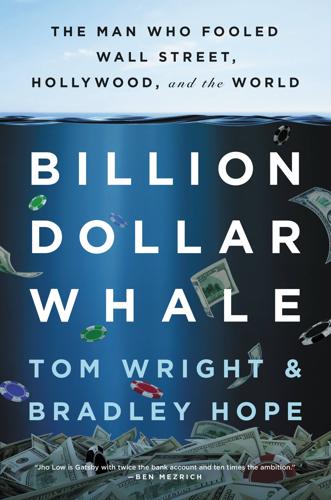
Billion Dollar Whale: The Man Who Fooled Wall Street, Hollywood, and the World
by
Tom Wright
and
Bradley Hope
Published 17 Sep 2018
The United States for decades had been concerned that corruption would undermine free-market capitalism, making it harder for American firms to compete internationally. And then there were fears that kleptocracy—the word is from the Greek and means “rule by thieves”—would lead to a less stable world order, in which failed states like Afghanistan and Syria harbor terrorists. “Corruption leads to lack of confidence in government. Lack of confidence in government leads to failed states. And failed states lead to terror and national security issues,” was how Special Agent Jeffrey Sallet, chief of the FBI’s Public Corruption Section, put it when announcing the international corruption squads. Corrupt foreign leaders and officials had an Achilles’ heel—they relied on the U.S. financial system to transfer cash and had a penchant for acquiring real estate in New York, Los Angeles, and Miami.
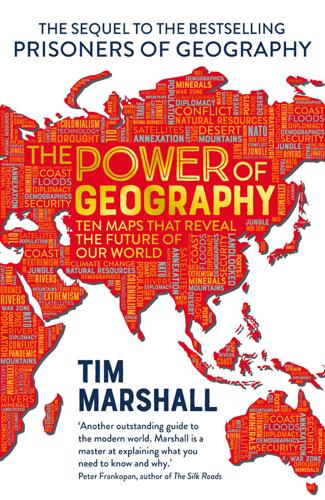
The Power of Geography: Ten Maps That Reveal the Future of Our World
by
Tim Marshall
Published 14 Oct 2021
Escalation against Iran was an option, but the Trump administration made it clear the USA was not willing to go to war over the issue and the Saudis knew they were in no position to go it alone even if they wanted to. They let the crisis blow out and by 2020 were quietly trying to get out of the war MBS had got them into. They need to persuade the Houthis to end the relationship with Iran and in return receive Saudi money to reconstruct what is a failing state. MBS’s foreign policy has been seen as impetuous and aggressive. An example was the surreal incident in late 2017 when Lebanon’s then prime minister, Saad al-Hariri, ‘chose’ to announce his resignation during a visit to Riyadh. He thought he was going on a camping trip with MBS, only to find himself separated from his bodyguards, relieved of his phone, shoved into a room by security officials and handed his resignation speech.
…
The French mostly focus on Mali and the western Sahel, and the Americans on the Lake Chad Basin, but there is close co-operation and intelligence-sharing. The American political and military class views the region mostly through the lens of national security and wider strategy. Supporters of US involvement argue that they need to be there to prevent failed states becoming breeding grounds for attacks on American interests. The wider argument is that a US withdrawal will leave China to dominate the region, and also that America needs to be seen to be supporting European allies, especially as massive population movements into Europe would destabilize them.
…
Large quantities of both enter Europe via Spain having crossed the Strait, which is the second-busiest shipping lane in the world. Every year thousands of migrants attempt to scale the fences separating Morocco and Spain, knowing they are the EU’s border with Africa, but, despite the short distance, far fewer people cross into Europe via this route than they do from Libya to Italy. This is mostly because Libya is a failed state whereas Morocco has a functioning administration which co-operates with Spain. Both countries are acutely aware of the situation in the Sahel and fear that if the Sahel countries fall apart it will destabilize Morocco, with a knock-on effect on Ceuta, Melilla and mainland Spain. Hence Spain is involved in training government forces in Mali and elsewhere.
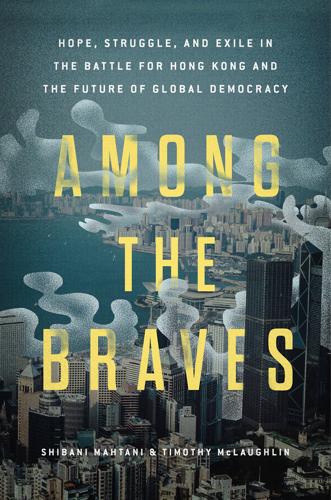
Among the Braves: Hope, Struggle, and Exile in the Battle for Hong Kong and the Future of Global Democracy
by
Shibani Mahtani
and
Timothy McLaughlin
Published 7 Nov 2023
Victor Ting, “China Coronavirus: Hong Kong Medical Experts Call for ‘Draconian’ Measures in City as Research Estimates There Are Already 44,000 Cases in Wuhan,” South China Morning Post, January 27, 2020, www.scmp.com/news/hong-kong/health-environment/article/3047813/china-coronavirus-hong-kong-medical-experts-call. 3. Clara Ferreira Marques, “Hong Kong Is Showing Symptoms of a Failed State,” Bloomberg, February 9, 2020, www.bloomberg.com/opinion/articles/2020-02-09/coronavirus-hong-kong-shows-symptoms-of-a-failed-state. 4. Joe Pompeo, “‘This… Invisible Sense of Danger’: Doing Journalism in the Coronavirus War, Italian Front,” Vanity Fair, March 19, 2020, www.vanityfair.com/news/2020/03/doing-journalism-in-the-coronavirus-war-italian-front. 5.
…
After precipitating months of political unrest, her reputation was tanking further and trust in her government cratered as this new global pandemic swept through her city. As one Bloomberg columnist put it, the semiautonomous financial hub, once known as a bastion of global trade and capitalism, was showing signs of a failed state.3 BY FEBRUARY 2020, GWYNETH NO LONGER LIVED ALONE IN AMSTERDAM. The scarcity of student lodging had forced her Belgian friend Sarah Van Meel to move in the previous November. They were in the same friend group with Kathryn back in Denmark, and had continued to the University of Amsterdam together.

50 Future Ideas You Really Need to Know
by
Richard Watson
Published 5 Nov 2013
One way of solving these problems is to develop new forms of genetically engineered biofuels (algae that produce basic hydrocarbons including octane, for example), but so far these ideas mostly exist in research laboratories rather than inside your gas tank. Nevertheless, expect to see next-generation biofuel “factories” both in marine environments and on land. Californification According to some observers, California is a failed state. It is dysfunctional. Its budget is bust. Its schools are failing. It has gridlocked traffic, failing infrastructure and overcrowded prisons. It’s short of water too. All of this is true. But looking at things differently, California is a model for the future, not only for America, but also for the global economy.
…
the condensed idea Reinventing our wheels timeline 1769 First self-propelled mechanical vehicle 1885 Karl Benz invents the modern motorcar 1960s Personal jetpack technology becomes a reality 2004 China unveils a high-speed magnetic levitation train 2016 35 percent of cars now hybrids 2022 Self-driving cars start to appear in China and India 2039 High-speed rail networks link Europe with North Africa 2036 Solar-powered planes widely used in Africa and Australia 15 Extra-legal & feral slums According to a UN estimate, 1 in 7 people worldwide now live in slums and in many cases these slums, which are not regulated or sanctioned by law, are set to become major cities in the near future. Meanwhile, some urban areas have become so lawless that authorities have all but given up on removing criminal gangs and have fallen back on a policy of geographical containment instead. There has been a lot of comment and concern about failed states and feral children of late, so it should come as no surprise that feral cities are set to become a future threat to organized society and civil order. “If the young men are not initiated into the village, they will burn it down just to feel its warmth.” African proverb An article by Peter Liotta and James Miskel in World Policy Journal (US), for instance, makes the point that Mogadishu, in Somalia, could be the model for future cities in many parts of the world in the sense of creating a series of “nontraditional” security threats.
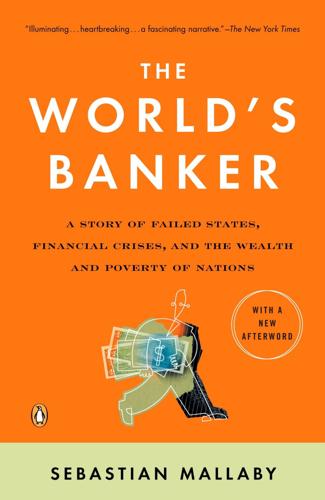
The World's Banker: A Story of Failed States, Financial Crises, and the Wealth and Poverty of Nations
by
Sebastian Mallaby
Published 24 Apr 2006
All statements of fact and expressions of opinion contained in its publications are the sole responsibility of the author or authors. Ebook ISBN 9781101666586 THE LIBRARY OF CONGRESS HAS CATALOGED THE HARDCOVER EDITION AS FOLLOWS: Mallaby, Sebastian The world’s banker : a story of failed states, financial crises, and the wealth and poverty of nations Sebastian Mallaby. p. cm. Includes bibliographical references and index. ISBN 1-59420-023-8 (hc.) ISBN 9780143036791 (pbk.) 1. Wolfensohn, Jim. 2. World Bank—Presidents. 3. Economic development—Finance. 4. Developing countries—Economic policy. 5.
…
As the world changed, the Bank’s functions evolved, but its role in international-security strategy has persisted. With the onset of the cold war, the Bank’s mission was to prevent Latin Americans and Africans and Asians from joining the Soviet column. In the new age of terror, the Bank’s efforts in the poor world offer the best chance of preventing the proliferation of failed states that serve as havens for terror. Meanwhile poverty is the vector for other threats to our security—global diseases, drug trafficking, and environmental degradation—which can thrive unchecked in desperate countries. In Kosovo, in East Timor, in Afghanistan, and to a lesser extent in Iraq, the World Bank has also emerged as a key player in the nation-building efforts that have become a feature of the past decade.
…
For the fortunate fifth of the world’s people, who lived in the countries with four-fifths of the world’s income, it had been possible to imagine that a wall separated “them” from “us,” that sheer distance—psychic, geographical, or otherwise—could insulate us from the billion people who lacked drinkable water, or the women who perished in childbirth at the rate of one a minute. But after September 11, it was time to realize that global poverty had global reach, whether because it created the failed states that nurtured terrorists, or because it incubated disease, environmental damage, and migration pressures. “There is no wall,” Wolfensohn declared. “We are linked by trade, investment, finance, by travel and communications, by disease, by crime, by migration, by environmental degradation, by drugs, by financial crises and by terror.”2 If the rich world was going to get serious about fighting global poverty, there was no doubt that the World Bank would lead the effort.

Poisoned Wells: The Dirty Politics of African Oil
by
Nicholas Shaxson
Published 20 Mar 2007
Oil and gas pay for the intelligence services and armies that keep the boiling anger at arm’s length. It is no coincidence that Africa’s four longestserving leaders all come from these conflicted oil zones.13 Ricardo Soares de Oliveira, one of the few western academics to have studied these issues in depth, calls sub-Saharan Africa’s oil nations successful failed states: countries with strong leaders backed by sophisticated state-owned oil and gas companies and other islands of competence, surrounded by unusually tormented societies and AIDS-ravaged millions who shoulder the burdens of their states’ failures. “The contrast between the heightened expectations 4 The New Gulf of oil producers and their populations, on the one hand, and the dire impact of oil dependence on development, on the other,” he wrote, “is one of the most dispiriting tales of postcolonial hope gone astray.”14 The forgotten hinterlands and turbulent seas of invisible Africans that have emerged around the glittering shopping malls and yacht marinas in Lagos, Libreville, or Luanda should worry us all, because of the presence, in the vicinity of all this anger, of great wealth that circulates in unpredictable ways.
…
It was a terrible time: Angola was for some time described as “the single worst place on earth for a child to be born”; with more than a quarter of Angolan children born not expected to make it to their fifth birthday.34 Angola’s oil-backed borrowing was a more sophisticated, bettercontrolled version of the debt tools that French interests used to control the leaders of André Milongo’s Congo-Brazzaville. Angola during its civil war became a wealthier, grander, more sophisticated version of the Congolese “successful failed state,” the two-speed nation where the apparatus of government was stripped down to little more than its sovereign, extractive core, leaving the rest to wither. The war was, in the words of the Angolan activist Rafael Marques, “a war of poor people against miserable people,” conducted while the rulers lived in fabulous luxury.
…
“The notion of the competitiveness of countries, on the model of the competitiveness of companies, is nonsense,” wrote the Financial Times commentator Martin Wolf.19 Think about it this way. If a company cannot compete, it goes bankrupt and a better one takes its place; this weeds out bad firms and is a 228 Conclusion source of capitalism’s dynamism. But if a country cannot “compete,” you get a failed state. “I have never heard a coherent argument for tax competition,” said Christensen of the Tax Justice Network. “You might as well talk about environmental competition.” High taxes or low taxes? I recoil from the idea that competition from tax havens—which Christensen rightly calls “invitations to crime”—should trump what voters want.
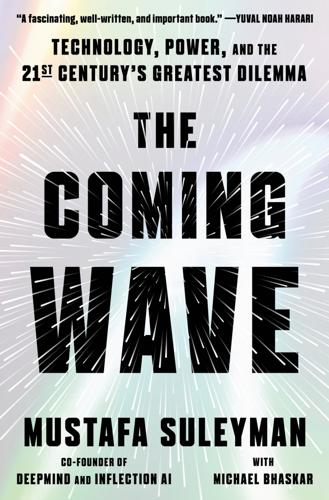
The Coming Wave: Technology, Power, and the Twenty-First Century's Greatest Dilemma
by
Mustafa Suleyman
Published 4 Sep 2023
On another, unthinking adoption of some aspects of the coming wave opens pathways to domineering state control, creating supercharged Leviathans whose power goes beyond even history’s most extreme totalitarian governments. Authoritarian regimes may also tend toward zombie status, but equally they may double down, get boosted, become fully fledged techno-dictatorships. On either path, the delicate balance holding states together is tipped into chaos. Both failing states and authoritarian regimes are disastrous outcomes, not just on their own terms, but also for governing technology; neither flailing bureaucracies, populist opportunists, nor all-powerful dictators are people you’d want to be fundamentally responsible for controlling powerful new technologies.
…
Major multinationals like the shipping giant Maersk were immobilized, collateral damage. Here is a parable for technology in the twenty-first century. Software created by the security services of the world’s most technologically sophisticated state is leaked or stolen. From there it finds its way into the hands of digital terrorists working for one of the world’s most failed states and capricious nuclear powers. It is then weaponized, turned against the core fabric of the contemporary state: health services, transport and power infrastructures, essential businesses in global communications and logistics. In other words, thanks to a basic failure of containment, a global superpower became a victim of its own powerful and supposedly secure technology.
…
Openness is the default, imitations are endemic, cost curves relentlessly go down, and barriers to access crumble. Exponential capabilities are given to anyone who wants them. This heralds a colossal redistribution of power away from existing centers. Imagine a future where small groups—whether in failing states like Lebanon or in off-grid nomad camps in New Mexico—provide AI-empowered services like credit unions, schools, and health care, services at the heart of the community often reliant on scale or the state. Where the chance to set the terms of society at a micro level becomes irresistible: come to our boutique school and avoid critical race theory forever, or boycott the evil financial system and use our DeFi product.

Economic Gangsters: Corruption, Violence, and the Poverty of Nations
by
Raymond Fisman
and
Edward Miguel
Published 14 Apr 2008
But then other rebels arose to fight these new rulers, starting a conflict that continues to fester at the time of this book’s writing. 115 CH A PTER F I VE Neighboring countries—Angola, Rwanda, Uganda, and Zimbabwe—sent their troops to Congo with designs on its vast mineral wealth. Neither are we in the world’s rich countries immune to the global aftershocks of civil war, which can emerge in terrifying ways. Failed states can provide a lawless sanctuary for international organized crime and terrorist groups that profit from the illicit trades in arms, drugs, and rare minerals, like diamonds. Conflict zones in Afghanistan and Colombia serve as bases for major international drug narcotraficantes. Al-Qaeda operatives set up shop in Sudan and Sierra Leone during the 1990s and more recently in Somalia.
…
RCPS is an economically sensible means of providing a bridge to a more stable political environment, and can help create the conditions where Africans themselves want to invest in their own countries’ futures. Violence in all its forms—from witch killing to warfare—is partially a product of Africa’s economic desperation and volatility. Once they get started, civil conflicts can last for many years, even decades. They’ve claimed millions of lives and created failed-state havens for international criminals and terrorists. The civil wars in Liberia and Congo became cancers for whole regions. And witch killings—just one poignant illustration of violent crime borne of economic hardship—show no sign of disappearing in Tanzania. Before picking up the pieces from another humanitarian catastrophe, or burying another elderly “witch,” why not try to use some basic economics to stop the violence before it starts?

Wired for War: The Robotics Revolution and Conflict in the 21st Century
by
P. W. Singer
Published 1 Jan 2010
The CIA today counts some fifty countries that have “stateless zones,” where the local government has lost all effectiveness or simply given up. Falling behind in the new world of technology could make it harder for these zones to come back, as well as potentially add to their number. Describes one U.S.-government-funded report, “Extreme losers in the information revolution could become ‘failed states.’ Such failed states could become breeding grounds for terrorists, who could threaten vital U.S. interests.” A government’s inability to control its territory and provide what its people want or need then opens up a vacuum. And politics, like nature, abhors a vacuum. Warrior groups move into such vacuums and seize local control, a scenario played out again and again with groups like the Taliban, Hezbollah, Hamas, and the Tamil Tigers.
…
Much of war is no longer battles between equally matched state armies in open fields, but rather “irregular warfare,” that amalgam of counterinsurgency, counterterrorism, peace, stability, and support operations. None of these, as professor of strategy Jeffrey Record notes, “are part of the traditional U.S. military repertoire of capabilities.” (Record made this argument in the U.S. Army’s journal, in an article titled “Why the Strong Lose.”) Whether in Iraq, Afghanistan, or some future failed state, it is reasonable to predict that the U.S. military will find itself embroiled in a fair number of insurgencies in the years ahead. As Army War College expert Steven Metz writes, “During the Cold War, insurgent success in China, Vietnam, Algeria, and Cuba spawned emulators. While not all of them succeeded, they did try.
…
As retired major general Barry McCaffrey describes, Peters is “simply one of the most creative and stimulating writers on national security we have produced in the post-WWII era.” Peters is also quite a force in the field of fiction, having written eight political thrillers. His first novel was a cold war spy story set in the former West Germany. His subsequent novels have gone on to include more contemporary settings of terrorism and failed states, and he’s built up quite a sizable fan base among military readers. As if this wasn’t enough, Peters also writes a series of historical detective novels set in the Civil War under the pseudonym Owen Parry. It is perhaps because of this breadth of experience, analysis, and imagination that Peters is an apt resource for understanding where war, and its future causes, is headed, and not just because his latest book is titled Wars of Blood and Faith: The Conflicts That Will Shape the Twenty-first Century.
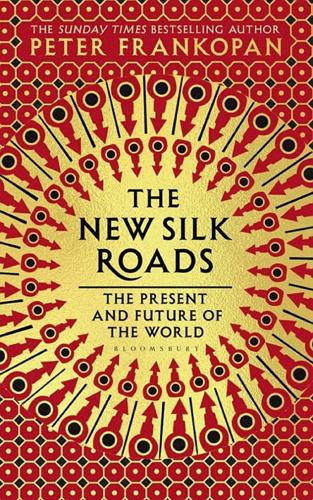
The New Silk Roads: The Present and Future of the World
by
Peter Frankopan
Published 14 Jun 2018
According to some estimates, more than $220bn of loans was issued to governments in Latin America and the Caribbean over the last fifteen years.97 This does not include a recent $5bn loan to cash-strapped, oil-rich and dysfunctional Venezuela, where annual inflation reached over 24,000 per cent in June 2018.98 When Venezuela needs emergency funding to stay afloat, it turns to China for support – partly because there is no one else to turn to.99 Bailing out a failed state says a lot about how keen Beijing is to get what it needs – around 700,000 barrels of oil per day, in the case of Venezuela’s shipments to China.100 * China has been very active in South America since the publication of a policy paper in 2008 that noted the ‘abundant resources’ of the region, but also observed that Latin America and the Caribbean were at ‘a similar stage of development’, and shared similar challenges and difficulties.
…
In a remarkable essay published in July 2018 entitled ‘Our current fears and our expectations’ (我们当下的恐惧与期待), Xu Zhangrun, a leading professor at Tsinghua University, issued a challenge for the country’s direction of travel – and to its leadership. Civil society had not evolved for decades, Xu wrote, leading to a lack of political maturity of its citizens that was not just unfortunate but regressive. Huge financial resources had been built up from the ‘blood and sweat of the workers’, only for this to be spent on supporting failed states like North Korea and Venezuela and making enormous investments in other countries – and giving aid to states in the Middle East that are ‘literally oozing with riches.’ What China needs, he said, is ‘a clear vision for the nation’s future’.173 Dissent is not easy in states where control of the media and even of private correspondence is carefully regulated.

A Theory of the Drone
by
Gregoire Chamayou
Published 23 Apr 2013
As the theorists of manhunting remind us, “borders are among the greatest allies” that a fugitive can have.2 Out in the countryside, English common law used to authorize “the hunting of ravenous prey, such as badgers and foxes, in another man’s land, because destroying such creatures is said to be profitable to the Public.”3 That is the kind of right that the United States today would like to claim in the case of human prey worldwide.4 As Paul Wolfowitz has put it, we need “to deny them sanctuaries.”5 What is emerging is the idea of an invasive power based not so much on the rights of conquest as on the rights of pursuit: a right of universal intrusion or encroachment that would authorize charging after the prey wherever it found refuge, thereby trampling underfoot the principal of territorial integrity classically attached to state sovereignty. According to such a concept, the sovereignty of other states becomes a contingent matter. Full enjoyment of that sovereignty is recognized only if those states take imperial tracking to heart. If they do not—“failed” states cannot, “rogue” states will not—their territories can legitimately be violated by a hunter-state. The drone counters the terrestrial forms of territorial sovereignty, founded upon the enclosure of land, with the continuity of the air above. In doing so, it extends the great historical promises of aerial power.
…
See distinction dishonor, 98–99 distance, 255n13 killing and, 115–16 tele-technologies and, 247–54n8 See also proximity distinction, 137–38, 162, 169, 198, 199 between civilians and combatants, 261–62n2 between combatants and noncombatants, 142–47 between weapons and combatants, 210 Doctrine of Right (Kant), 196–97 Dos Gringos, 99 Dougherty, Norma Jeane, 25, 26 Douhet, Giulio, 52, 53 Dresden, 140, 141 drone cameras, 247n1 drone operators, 92, 102 ability to discriminate among targets, 137–38, 142–47 awarding of military medals to, 102 compartmentalization and, 120–21, 123–24 courage and, 103 empathy and, 108 feeling of duality and, 120–21 guilt felt by, 109–10, 113 insensitivity of, 107–8, 113 invisibility of, 118 invulnerability of, 130 as mirror image of suicide bombers, 89 ocular proximity and, 255–56n22 perceptual proximity and, 117–18 physical distance and, 115–18, 138–39, 156, 255–56n22, 262n10 psychic vulnerability of, 104–5, 106–13 PTSD and, 103, 106–13 references to video games by, 107–8 sensitivity of, 108, 113 soldiers’ scorn for, 106–7 stress and, 103, 106–13 suffering of, 106–13 transition from war to peace and, 119–20 traumas of, 106–13 drones amateur, 78 among other modes of war, 231n14 as analogous to bulletproof vests, 169–70 characteristics of, 16 comparison to video games, 107–8 costs of, 13–14, 188–89, 231n14, 232–33n5 as counterproductive, 190 definition of, 11 demilitarization of, 78 development of, 231n14 difference from cruise missiles, 232n3 domestic market for, 203 economics of, 232–33n5 effects of, 44–45, 117 as ethical precision devices, 140–49 as eye of God, 37–38 genealogy of, 16 homemade, 78 human, 78–79 as humanitarian weapons, 17 kamikazes and, 83–89 kinds of, 11 law enforcement and (see also law enforcement), 168–69 as low-cost, 77–78 origin of, 16 outfitted with non-lethal weapons, 203 politico-strategic vulnerabilities of, 75–76 populations subjected to (see also civilians; collateral damage), 44–45 precision of, 56–57 psychopathologies of the, 106–13 relaunch of American production in the 1980s, 28 as revolution in sighting, 38 self-preservation and (see also self-preservation), 84 surveillance and, 235n21 technical and budgetary barriers to development of, 231n14 technical vulnerabilities of, 75–76 as technology substituting for strategy, 65–66 use of, 13–14 use of the word “drone,” 26 as virtuous, 100–101 vulnerabilities of, 73–79 as weapons of postcolonial violence, 94–95 See also specific kinds of drones drone-states, 15, 18 drone strikes as counterproductive, 70–71 international law and, 167–73 law enforcement and, 168, 171 legal framework for, 167–73 personal, 47 dronization, 100, 181, 184, 188–89, 194, 214–15, 221 Dunlap, Charles, 62, 70 duty, 199 dystopias, 213 economic decision-making theory, 188–89, 190–91 effects-based operations, 34 Egypt, 27 Ehrenreich, Barbara, 193–94 electronic communications, interpretation of, 41 Ellis, Al, 28 El-Sarraj, Eyad, 88 Elshtain, Jean Bethke, 129–30, 260n7 emasculation, 100 emotional involvement, 254–55n12 See also empathy; specific emotions empathy, 108, 261n15, 273–74n31 enemies, 15, 114 body as battlefield, 56–58 conceptions of, 68–69 dispensability of, 155 figurative reduction of, 114, 119 as guilty party, 160 inaccessibility of, 52–53 as node in a social network, 34 recognition of, 144–45 right to kill, 198 right to life of, 198 subjectlessness of, 206 See also combatants Engels, Friedrich, 221 English common law, 53 ESPN, 40 ethics, 189, 261n15 drones as ethical precision devices, 140–49 See also military ethics; military ethos; morality; necroethics Etzioni, Amitai, 190–91, 200 euphemization, 147–48 Everett, Bart, 83 evil, 68, 69 cumulativeness of lesser evils, 190 logic of the lesser evil, 139, 146 execution, 35, 62, 103–4, 169, 255n17 See also assassination explosions, perimeter of, 141 Exum, Andrew McDonald, 64 Eyeborgs, 44 “The eye of God” (Horapollo), 36, 37 F-16 planes, 29 failed states, 53 Farocki, Harun, 114, 247n1, 247n2 fascism, robots and, 205 fear, 242–43n1 See also emotional involvement Federal Aviation Administration, 203 fighter pilots, 99, 115, 214 resistance to dronization, 100 fighter planes, dronization of, 214 fighting. See combat filming, 39–41 fog of war, 16, 216 Formica, Richard P., 55 Foucault, Michel, 43–44, 268n1 France, 65, 268n7 Franks, Tommy, 216 French Revolution, 268n7 Freud, Sigmund, 106, 112, 246n19, 246n20 Friedman, Benjamin, 191 Frigga, 73 fronts, 33 Fukuyama, Francis, 78 Fuller, John, 242–43n1 Galula, David, 66, 67 Gaza, 88, 130–32 General Atomics, 28–29 geography, 239n31 analysis of, 49 combat and, 52 hunting and, 52 political, 52–53, 54 targeted assassination and, 239n31 See also space geospatial analysis, 48 Gernsback, Hugo, 220 global war against terror, 52 Glubb, John Bagot, 62 Gorgon, 43, 44 Gorgon Stare, 43, 236n27 GPS data, 41, 76 Graham, Stephen, 54 Great Britain, 187 “air control” methods used in Pakistan, 65 See also Royal Air Force (RAF) Gregory, Derek, 42, 43, 57 Grossman, Dave, 118, 246n19 On Killing, 115–16, 116 Grotius, 158–59, 263n4 ground force commanders, 2 The Guardian, 136–37 guerrilla warfare, 60, 61–62, 264–66n17 as political, 66–67 See also counterinsurgency Guevara, Ernesto “Che,” 60, 66 guilt of enemy targets, 146, 160 felt by drone operators, 109–10, 113 Gusterson, Hugh, 88, 89 Gyges, 96, 97, 123–24 Hägerstrand, Torsten, 42 Haijazi, Maulvi Abdullah, 62 Hammond, Jeremy, 189–90 hardware, 212 Harvey, Adam, 204 Hawkins, Jeff, 135 “hearts and minds,” conquering of, 67, 70–71 Hegel, G.W.F., 98, 180, 181, 195–96, 205–6, 254–55n12 Hellfire AGM-114C, 29 heroism, 86–88, 97–98, 100, 101, 103 Hersh, Seymour, 32, 196 Hershey, Burnet, 231–32n4 Hezbollah, 75 Hiroshima, 140 history, Hegel’s philosophy of, 205–6 history, philosophy of, 205–6 Hitler, Adolf, 205 Hobbes, Thomas, 178, 268n5 Leviathan, 218, 219 Hobson, 188 Hobson, J.A., 187 homicide.
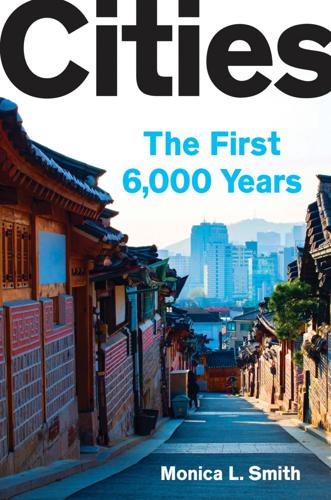
Cities: The First 6,000 Years
by
Monica L. Smith
Published 31 Mar 2019
Cities allow the scope for aspirational consumption of all kinds and the exercise of multiple identities through kinship, friendship, work, leisure, and play. Cities continue to grow regardless of the types of nations in which they are found. Mumbai and New Delhi, both in democratic India, are projected to be the world’s biggest cities by 2050 with nearly forty million inhabitants each. But cities in “failed states” also are set to grow: Kinshasa, located in the perpetually dysfunctional Democratic Republic of the Congo, had half a million people in 1960, a population of ten million now, and is projected to have thirty-five million people by 2050. The fact that nations don’t tend to matter for city growth is an important insight into ancient cities, too.
…
See ancient Egypt electricity, 232 electric scooters, 141 Ellis, Steven, 167 Emerald Buddha (Bangkok), 168 Enannatum, 61 engineering, 205–11 Enlil, 31 entertainment, 162–64, 233 entrepreneurship, 194–201 Epic of Gilgamesh, 247 ethnic differences, 244–45 “ethnic” neighborhoods, 169 Euphrates River, 85 evolution, 9, 91–92 eyes eye beads, 78–79 idols at Tell Brak, 66, 77–79 “walls as the eyes of a city,” 194, 242 watchfulness as an urban characteristic, 79 “failed states,” 260 Fall of the Magician, The (Pieter van der Heyden), 202 farmers’ markets, 199 fashion, 176–79, 259 feedback loop, 8, 163–64 Feroz Shah Tughluq, 238 “Fertile Crescent,” 84, 85 field walking, 59–62 first cities, 75–87 Fiske, Neil, 196–97 flooding, 48, 49, 85, 131, 139, 256 “flow,” 33–40, 86, 221–22 food, 167–69, 222, 234–36 food waste, 156–57 Forrier, Pietro, 32 Fox, Richard, 11 “Fragile Crescent,” 85–86, 90, 255 Fujiwara, waterways, 136–37 future tense, 93, 94, 99 Gandy, Matthew, 138 Ganges River, 27, 228, 254 Gate of the Unclean Women, 31 gates (gateways), 123–27, 215–16 German Oriental Society, 82 Ghost Festivals, 158 Gift, The (Mauss), 104 gift exchange, 103–4 Giza Plateau, 209–10 Göbekli Tepe, 69–71, 77, 117, 120, 213, 249 graffiti, 4, 162 “grammar,” 92–93 Grand Canal, 108, 147 Grand Palace (Bangkok), 168 Grand Trunk Road, 147 Granovetter, Mark, 98 grave markers, 196 Great Baths of Mohenjo Daro, 131–32 Great Pyramid of Tenochtitlan, 205–7, 250 Great Stink of London, 139 Greece, ancient.
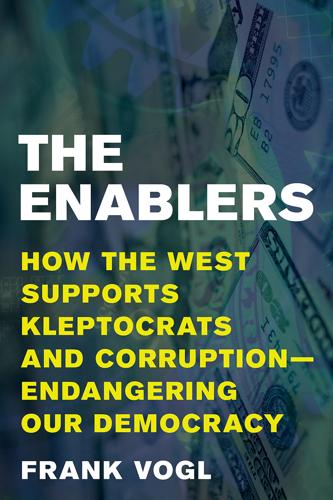
The Enablers: How the West Supports Kleptocrats and Corruption - Endangering Our Democracy
by
Frank Vogl
Published 14 Jul 2021
There are other countries where freedom of the press, for example, continues and contested elections are held, but where vast theft of public funds by politicians and officials has become the norm, such as in Guatemala, Argentina, Kenya, Nigeria, and South Africa. Then there are countries, notably Lebanon and Bosnia-Herzegovina, where government exists on the basis of fragile power-sharing arrangements between different groups, where each group, in fact, steals its portion of public funds. These countries risk becoming failed states, or are already failed states, where corrupt warlords and powerful criminal gangs hold great power to govern and to steal, such as in Afghanistan, Iraq, and Somalia. In the majority of the countries ranked in the CPI, national treasuries are plundered and a portion of the stolen cash is managed by enablers in Western capital markets; in most of these countries, there are senior government officials all too willing to demand kickbacks into their personal accounts from multinational corporations in return for public contracts.
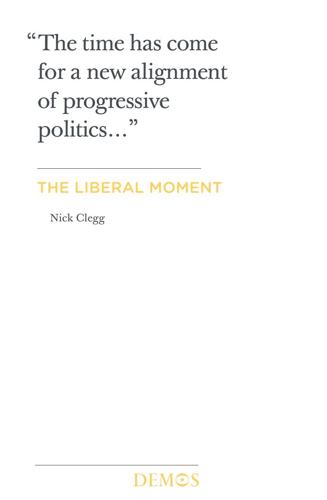
The Liberal Moment
by
Nick Clegg
and
Demos (organization : London, England)
Published 12 Nov 2009
Constitutional reform, the details of which I spelt out above, has to be right at the heart of any attempt to reclaim civil liberties in this country: the only way to stop the government infringing liberty is to clip its wings for good. The third element to our security I want to address is in relation to Britain’s position in the world. The international 75 threats we face vary from tackling cross-border crime to stabilising rogue or failed states. This pamphlet is clearly not the place to conduct a full analysis of Labour’s foreign policy and set out the alternative Liberal Democrat approach. However, I will seek to demonstrate that Labour’s lukewarm commitment to international cooperation has undermined many of its efforts to protect British and world security – as well as thwarting attempts to secure climate change treaties and better banking regulation, as I demonstrated above.
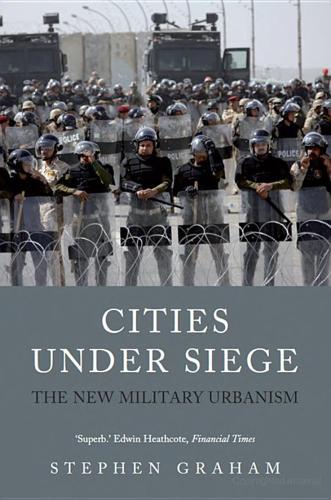
Cities Under Siege: The New Military Urbanism
by
Stephen Graham
Published 30 Oct 2009
If gated communities and rent-a-cops were enough, September 11 never would have happened.70 The supposed social pathologies, unconstrained sexualities and ‘weak ego structures’ deemed by neoconservative social critics to lie at the root of the problems in US cities are identical to the supposed traits of the essentialized ‘Arab mind’ conjured by neoconservatives and senior military officials during the War on Terror.71 Thus, a wide range of comparable depictions demonize the core cities of the US and cast the growing cities of the global South as the intrinsically anarchic, threatening Other.72 Neoconservative writers present booming cities as the central motors of the ‘coming anarchy’73 of the post–Cold War world – essentially feral places which breed lawlessness, drug abuse, crime, brutal turf wars, and security risks for the rest of the world. The obsession with ‘failed states’ as the key security threats to US interests is, in fact, morphing into a concern with ‘failed’ cities – burgeoning urban concentrations apparently unconnected to the supposed benefits of neoliberal globalization.74 ‘Imagine a great metropolis covering hundreds of square miles’, writes Richard Norton in an influential 2003 article in Naval War College Review.
…
In claustrophobic alleys and urban canyons, civilians are impossible to control or characterise as friendly or not. Weapons hidden beneath a cloak, in a child’s carriage, or rolled in a carpet, can get past security personnel undetected.17 The second main feature of the urban-turn discourse shifts the focus from the national scale – the challenges presented by ‘failed states’ – to the urban scale, the military and political challenges of well-armed insurgent groups hiding within, and controlling, fast-growing urban areas. An important element is US military commentator Richard J. Norton’s influential concept of ‘feral cities’ – highly disorderly urban areas in the global South which are controlled by violent non-state militias of various sorts.18 Some protagonists in this debate argue that the breakdown of high-tech sensors and weapons, caused by the ‘clutter of concealment’ provided by cities, is leading directly to an increased tendency among US political adversaries to take refuge within cities (Figure 5.3).
…
‘Comparing the Israeli and American alternative legalities’, she writes, ‘one finds some clear commonalities’ in the detailed legal justification for the state of exception and the irrelevance of international humanitarian law (IHL). Hajjar stresses that the Israeli state’s description of the status of the West Bank and Gaza as sui generis, in order to assert that IHL does not actually apply, is legally indistinguishable from US claims that such law was inapplicable to the invasion of Afghanistan because it was a ‘failed state’.49 She also underlines that both the US and Israeli states have often argued that the statelessness of their enemies automatically means they have no rights whatsoever under IHL. In both cases, it is a legal trick that has been used to legitimize mass incarceration without trial. Moreover, both states have used national laws to authorize legal practices that contravene the norms and rules of IHL, a form of ‘domesticating’ international law for questionable purposes.50 ISRAEL AND THE ‘PALESTINIANIZATION’ OF IRAQ In late 2003, as the US military’s task in Iraq quickly morphed from the relatively simple challenge of destroying an infinitely inferior state military to the challenge of pacifying complex urban insurgencies, Israel’s direct involvement in shaping the doctrine, weaponry and military thinking of US occupying forces grew dramatically – with corresponding pay-offs for the Israeli economy.
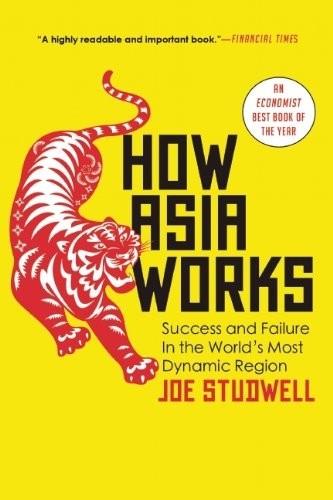
How Asia Works
by
Joe Studwell
Published 1 Jul 2013
The countries covered I have made a number of simplifications in this book so as not to dilute its central messages and to enable its story to be told (endnotes excepted) in just over 200 pages. One of these involved choosing which east Asian countries to leave out of the narrative. Since the book is about developmental strategies that have achieved a modicum of success, the region’s failed states do not appear. North Korea, Laos, Cambodia, Myanmar and Papua New Guinea, all of which are found near the bottom of the United Nations’ Human Development Index (HDI) rankings,8 are not discussed. The reasons for the failure of these states are varied, but one common characteristic leaps out: they are all politically and economically introverted.
…
With its population of 23 million, Taiwan has a developmental story that is both distinct from that of mainland China, and one which exhibits some striking and underreported policy similarities – reflecting the shared experiences of Kuomintang and Communist politicians and bureaucrats on the mainland in the 1930s and 1940s. The book’s structure allows both facets of Taiwan’s economic history to be discussed. The omission of failed states and offshore centres, and the adjustment with respect to Taiwan, means that we are left with nine significant east Asian economies: a north-east Asian group of Japan and its two former colonies, South Korea and Taiwan; a south-east Asian group of Thailand, Malaysia, Indonesia and the Philippines; and China and Vietnam.
…
In the Philippines, the US colonial government placed great emphasis on investment in schooling in the early twentieth century. Even today the Philippines has the highest level of tertiary-educated students in south-east Asia. But because more important policy choices were flunked, the country is on the cusp of being a failed state. Looking further afield, Cuba has the world’s second-highest literacy rate for children over age fifteen, and the sixth highest rate of school enrolment. Education has been a top priority there since the revolution in 1960. Yet the country ranks only ninety-fifth in GDP per capita in the world.
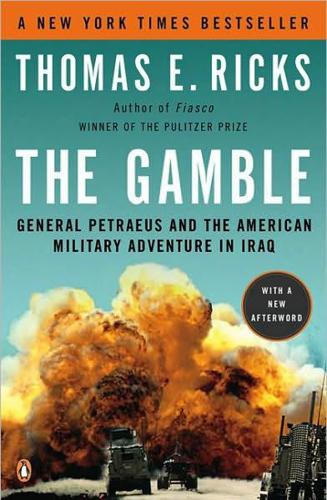
The Gamble: General David Petraeus and the American Military Adventure in Iraq, 2006-2008
by
Thomas E. Ricks
Published 14 Oct 2009
Usually when you work closely with people, you see the warts and all, and your opinion goes down. My opinion of him has gone way up.” She may have been soft on Odierno, but she retained her sharpness about the rest of the world. Asked in an interview early in 2007 about Iraqi politics, she interrupted to redefine the question. “It’s not a government, it’s a failing state.” She still could blow the whistle on the U.S. military, but now she did so from inside the tent. In the spring of 2007, she was in a “battle update assessment” as an officer showed gun camera footage of an attack helicopter surprising insurgents emplacing a bomb and blowing them to bits. This was red meat for officers who had spent years being attacked by anonymous roadside bombers.
…
But on the ground in Iraq, the new goal was simply getting to a more or less peaceful Iraq that didn’t explode into a regional war or implode into a civil war. As Odierno, Sky, and others talked into the night, hours at a time, three or four nights a week, they focused on the way that parts of the Baghdad government exercised power to further sectarian agendas, undermining the legitimacy of the entire enterprise. “It is a failed state with ungoverned spaces in which the government is part of the problem,” Sky summarized as their conclusion. In particular, they would target Shiite militiamen employed by the Ministry of Health, who among other things were killing Sunnis who sought medical care. They also decided that they needed to reposition the U.S. government.
…
To some, that meant it was time to pull the plug. “To date the Iraqi political process has not demonstrated the capacity to deal successfully with any of these issues,” said Senator Jack Reed, a Rhode Island Democrat who was growing increasingly influential on defense issues. “And if they’re not dealt with, then you’ve got a failing state that is not helping itself.” But to others, the failure of Iraqi politics raised the question of whether the next step was to revise the American mission—and in some ways return to the grandiose vision that the Bush administration held when it sent American forces into Iraq, that of making it a democratic beacon that would change the politics of the Middle East.

The River of Lost Footsteps
by
Thant Myint-U
Published 14 Apr 2006
Since 1988, Burma has emerged from the shadows to assume an unenviable place in the international community, as a pariah to the West and as a concern to almost everyone else. Once known, if at all, as an exotic Buddhist land with few of the worries of the twentieth century, it’s now become a poster child for more nightmarish twenty-first-century ills, a failed or failing state, repressive and unable to cope with looming humanitarian challenges, a place whose long-enduring government seems mysteriously unwilling to cede power. But I don’t think this is the only way to think about Burma. Burma has always stood along the highways of Asia, connecting China, India, Tibet, and the many and varied civilizations of Southeast Asia.
…
This is a country that has already been at civil war for sixty years and where that civil war is not yet concluded; where there are hundreds of different ethnic and linguistic groups, many inhabiting remote mountain areas; where poverty is endemic and where a humanitarian crisis is looming; where there are hundreds of thousands of people displaced by the fighting and tens of thousands more who are refugees; and where there is a resilient narcotics industry and where some of the richest businessmen (always the most likely to be influential in a democracy) are tied to the drugs trade. And there are two especially difficult factors, legacies of Burmese history. The first is the long history of failed state building. The nineteenth-century kings Mindon and Thibaw attempted to remake traditional institutions and create new ones to deal with the fast-changing world, but these initiatives in the end went nowhere because of the steady approach of British imperialism. The traditional order collapsed entirely.
…
There is a second and much worse possible scenario—that Burma’s international isolation will only deepen through an unholy alliance between those outside who favor sanctions and inside hard-liners who advocate a retreat from the global community, that this isolation will further undermine institutions of government, that a new generation will grow up less educated and in worse health, and that a decade or two from now, the world will be staring at another failed state, without any prospect of democratic change and with the military no longer holding things together. There would be a return to anarchy and the conditions of 1948, only this time with more guns, more people, and strong, confident neighbors unlikely to idly stand by. If that were to come to pass, the remaining years of this century would not be enough time for Burma to recover.

Narconomics: How to Run a Drug Cartel
by
Tom Wainwright
Published 23 Feb 2016
In spite of this, the state has repeatedly proved incapable of meeting the most basic needs of the population. Like José the teenage hit man, many of the country’s children are slowly starving: half of those under five suffer from chronic malnutrition, the fourth-highest rate in the world. Nowhere in Latin America comes close to this figure: in Haiti, which is the region’s closest thing to a failed state, the rate is half as high. The reason the government has failed to fix this and other problems is that it collects pitifully small amounts of tax. Public spending amounts to only about 12 percent of gross domestic product, the lowest in Latin America, where the average is over 20 percent.3 Successive presidents have tried to raise taxes, each time having their reforms blocked or diluted by a private sector that seems allergic to paying its fair share.
…
They turned out to be correct after all: at the current rate, for an average Honduran man the odds of being murdered over the course of a lifetime are a staggering one in nine.6 The sheer number of killings leaves detectives little chance of clearing many of them up. Bonilla insists that the government is winning the battle and that the country is not yet a failed state, a phrase that is mentioned increasingly frequently regarding Honduras. “Crime isn’t in control here,” he says. The gangs “run things very well in certain zones. But in no municipality of Honduras has the state lost its authority.” As in Guatemala, that is debatable. According to estimates from the US State Department, in 2012 three-quarters of all cocaine-smuggling flights originating in South America landed in Honduras.7 The flights began in earnest following the country’s latest coup, in 2009, when the president was marched out of his home in the early hours of the morning, still in his pajamas, and put on a one-way flight to Costa Rica.
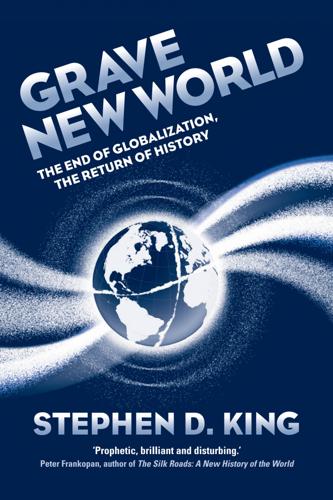
Grave New World: The End of Globalization, the Return of History
by
Stephen D. King
Published 22 May 2017
If technology was the only thing that mattered, the Western Roman Empire – among other things, an incredibly sophisticated technological and logistical infrastructure – would never have come to an ignominious end in ad 476; the Chinese, with their superior naval technologies, would have been busily colonizing the Americas in the early sixteenth century, preventing Spain and, by implication, the rest of Western Europe from gaining a foothold; the British Empire would today still be thriving, thanks to the huge advantages it gained from the Industrial Revolution; the Cold War – which ultimately offered two competing versions of globalization associated with an uneasy nuclear stand-off – would never have happened; and today’s ‘failed states’ – suffering from disconnections both internally and with the rest of the world – would be a contradiction in terms. Globalization is driven not just by technological advance, but also by the development – and demise – of the ideas and institutions that form our politics, frame our economies and fashion our financial systems both locally and globally.
…
TWENTY-FIRST-CENTURY MIGRATION TRIGGERS Knowing that populations are likely to wax and wane is not in itself enough to demonstrate that there will be large migratory movements. There needs also to be a catalyst. There are likely to be at least three in the twenty-first century: rising living standards in poor countries; persistence of conflict where government and institutions are ineffective or where there are failed states; and climate change, the effects of which will impact some nations more than others. Take Nigeria again. Its per capita incomes fell rapidly in the early 1980s: between 1981 and 1987, living standards dropped on average by 6 per cent per year, a truly catastrophic outcome. Given Nigeria’s status as a major oil producer, the early 1980s collapse in oil prices didn’t help.
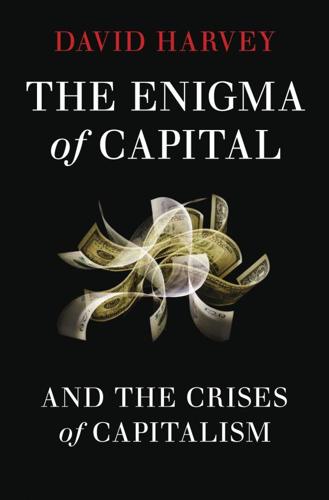
The Enigma of Capital: And the Crises of Capitalism
by
David Harvey
Published 1 Jan 2010
Where those arrangements are defective or do not exist, capital will encounter serious barriers. While ways can be found for capital to operate successfully under, say, conditions of lawlessness, corruption and indeterminate property rights, this does not in general constitute an optimal environment in which capital can flourish. What to do about ‘failed states’ and how to ensure the creation of ‘a good business climate’ (including the suppression of corruption and lawlessness) have therefore become leading missions of international financial institutions such as the IMF and the World Bank, as well as a project of various arms of contemporary US and European imperialist practices in many parts of the world.
…
Index Numbers in italics indicate Figures; those in bold indicate a Table. 11 September 2001 attacks 38, 41–2 subject to perpetual renewal and transformation 128 A Abu Dhabi 222 Académie Française 91 accumulation by dispossession 48–9, 244 acid deposition 75, 187 activity spheres 121–4, 128, 130 deindustrialised working-class area 151 and ‘green revolution’ 185–6 institutional and administrative arrangements 123 ‘mental conceptions of the world’ 123 patterns of relations between 196 production and labour processes 123 relations to nature 123 the reproduction of daily life and of the species 123 slums 152 social relations 123 subject to perpetual renewal and transformation 128 suburbs 150 technologies and organisational forms 123 uneven development between and among them 128–9 Adelphia 100 advertising industry 106 affective bonds 194 Afghanistan: US interventionism 210 Africa civil wars 148 land bought up in 220 neocolonialism 208 population growth 146 agribusiness 50 agriculture collectivisation of 250 diminishing returns in 72 ‘green revolution’ 185–6 ‘high farming’ 82 itinerant labourers 147 subsidies 79 AIG 5 alcoholism 151 Allen, Paul 98 Allende, Salvador 203 Amazonia 161, 188 American Bankers Association 8 American Revolution 61 anarchists 253, 254 anti-capitalist revolutionary movement 228 anti-racism 258 anti-Semitism 62 après moi le déluge 64, 71 Argentina Debt Crisis (2000–2002) 6, 243, 246, 261 Arizona, foreclosure wave in 1 Arrighi, Giovanni: The Long Twentieth Century 35, 204 asbestos 74 Asia Asian Currency Crisis (1997–98) 141, 261 collapse of export markets 141 growth 218 population growth 146 asset stripping 49, 50, 245 asset traders 40 asset values 1, 6, 21, 23, 26, 29, 46, 223, 261 Association of South East Asian Nations (ASEAN) 200 Athabaska tar sands, Canada 83 austerity programmes 246, 251 automobile industry 14, 15, 23, 56, 67, 68, 77, 121, 160–61 Detroit 5, 15, 16, 91, 108, 195, 216 autonomista movement 233, 234, 254 B Baader-Meinhof Gang 254 Bakunin, Michael 225 Balzac, Honoré 156 Bangalore, software development in 195 Bangkok 243 Bank of England 53, 54 massive liquidity injections in stock markets 261 Bank of International Settlements, Basel 51, 55, 200 Bank of New England 261 Bankers Trust 25 banking bail-outs 5, 218 bank shares become almost worthless 5 bankers’ pay and bonuses 12, 56, 218 ‘boutique investment banks’ 12 de-leveraging 30 debt-deposit ratio 30 deposit banks 20 French banks nationalised 198 international networks of finance houses 163 investment banks 2, 19, 20, 28, 219 irresponsible behaviour 10–11 lending 51 liquidity injections by central banks vii, 261 mysterious workings of central banks 54 ‘national bail-out’ 30–31 property market-led Nordic and Japanese bank crises 261 regional European banks 4 regular banks stash away cash 12, 220 rising tide of ‘moral hazard’ in international bank lending practices 19 ‘shadow banking’ system 8, 21, 24 sympathy with ‘Bonnie and Clyde’ bank robbers 56 Baran, Paul and Sweezey, Paul: Monopoly Capital 52, 113 Barings Bank 37, 100, 190 Baucus, Max 220 Bavaria, automotive engineering in 195 Beijing declaration (1995) 258 Berlin: cross-border leasing 14 Bernanke, Ben 236 ‘Big Bang’ (1986) 20, 37 Big Bang unification of global stock, options and currency trading markets 262 billionaire class 29, 110, 223 biodiversity 74, 251 biomass 78 biomedical engineering 98 biopiracy 245, 251 Birmingham 27 Bismarck, Prince Otto von 168 Black, Fischer 100 Blackstone 50 Blair, Tony 255 Blair government 197 blockbusting neighbourhoods 248 Bloomberg, Mayor Michael 20, 98, 174 Bolivarian movement 226, 256 bonuses, Wall Street 2, 12 Borlaug, Norman 186 bourgeoisie 48, 89, 95, 167, 176 ‘boutique investment banks’ 12 Brazil automobile industry 16 capital flight crisis (1999) 261 containerisation 16 an export-dominated economy 6 follows Japanese model 92 landless movement 257 lending to 19 the right to the city movement 257 workers’ party 256 Bretton Woods Agreement (1944) 31, 32, 51, 55, 171 British Academy 235 British empire 14 Brown, Gordon 27, 45 Budd, Alan 15 Buenos Aires 243 Buffett, Warren 173 building booms 173–4 Bush, George W. 5, 42, 45 business associations 195 C California, foreclosure wave in 1, 2 Canada, tightly regulated banks in 141 ‘cap and trade’ markets in pollution rights 221 capital bank 30 centralisation of 95, 110, 113 circulation of 90, 93, 108, 114, 116, 122, 124, 128, 158, 159, 182, 183, 191 cultural 21 devalued 46 embedded in the land 191 expansion of 58, 67, 68 exploitations of 102 export 19, 158 fixed 191, 213 industrial 40–41, 56 insufficient initial money capital 47 investment 93, 203 and labour 56, 88, 169–70 liquid money 20 mobility 59, 63, 64, 161–2, 191, 213 and nature 88 as a process 40 reproduction of 58 scarcity 50 surplus 16, 28, 29, 50–51, 84, 88, 100, 158, 166, 167, 172, 173, 174, 206, 215, 216, 217 capital accumulation 107, 108, 123, 182, 183, 191, 211 and the activity spheres 128 barriers to 12, 16, 47, 65–6, 69–70, 159 compound rate 28, 74, 75, 97, 126, 135, 215 continuity of endless 74 at the core of human evolutionary dynamics 121 dynamics of 188, 197 geographic landscape of 185 geographical dynamics of 67, 143 and governance 201 lagging 130 laws of 113, 154, 160 main centres of 192 market-based 180 Mumbai redevelopment 178 ‘nature’ affected by 122 and population growth 144–7 and social struggles 105 start of 159 capital circulation barriers to 45 continuity of 68 industrial/production capital 40–41 inherently risky 52 interruption in the process 41–2, 50 spatial movement 42 speculative 52, 53 capital controls 198 capital flow continuity 41, 47, 67, 117 defined vi global 20 importance of understanding vi, vii-viii interrupted, slowed down or suspended vi systematic misallocation of 70 taxation of vi wealth creation vi capital gains 112 capital strike 60 capital surplus absorption 31–2, 94, 97, 98, 101, 163 capital-labour relation 77 capitalism and communism 224–5 corporate 1691 ‘creative-destructive’ tendencies in 46 crisis of vi, 40, 42, 117, 130 end of 72 evolution of 117, 118, 120 expansion at a compound rate 45 first contradiction of 77 geographical development of 143 geographical mobility 161 global 36, 110 historical geography of 76, 117, 118, 121, 174, 180, 200, 202, 204 industrial 58, 109, 242 internal contradictions 115 irrationality of 11, 215, 246 market-led 203 positive and negative aspects 120 and poverty 72 relies on the beneficence of nature 71 removal of 260 rise of 135, 192, 194, 204, 228, 248–9, 258 ‘second contradiction of’ 77, 78 social relations in 101 and socialism 224 speculative 160 survival of 46, 57, 66, 86, 107, 112, 113, 116, 130, 144, 229, 246 uneven geographical development of 211, 213 volatile 145 Capitalism, Nature, Socialism journal 77 capitalist creed 103 capitalist development considered over time 121–4 ‘eras’ of 97 capitalist exploitation 104 capitalist logic 205 capitalist reinvestment 110–11 capitalists, types of 40 Carnegie, Andrew 98 Carnegie foundation 44 Carnegie Mellon University, Pittsburgh, Pennsylvania 195 Carson, Rachel: Silent Spring 187 Case Shiller Composite Indices SA 3 Catholic Church 194, 254 cell phones 131, 150, 152 Central American Free Trade Association (CAFTA) 200 centralisation 10, 11, 165, 201 Certificates of Deposit 262 chambers of commerce 195, 203 Channel Tunnel 50 Chiapas, Mexico 207, 226 Chicago Board Options Exchange 262 Chicago Currency Futures Market 262 ‘Chicago School’ 246 Chile, lending to 19 China ‘barefoot doctors’ 137 bilateral trade with Latin America 173 capital accumulation issue 70 cheap retail goods 64 collapse of communism 16 collapse of export markets 141 Cultural Revolution 137 Deng’s announcement 159 falling exports 6 follows Japanese model 92 ‘Great Leap Forward’ 137, 138 growth 35, 59, 137, 144–5, 213, 218, 222 health care 137 huge foreign exchange reserves 141, 206 infant mortality 59 infrastructural investment 222 labour income and household consumption (1980–2005) 14 market closed after communists took power (1949) 108 market forcibly opened 108 and oil market 83 one child per family policy 137, 146 one-party rule 199 opening-up of 58 plundering of wealth from 109, 113 proletarianisation 60 protests in 38 and rare earth metals 188 recession (1997) 172 ‘silk road’ 163 trading networks 163 unemployment 6 unrest in 66 urbanisation 172–3 and US consumerism 109 Chinese Central Bank 4, 173 Chinese Communist Party 180, 200, 256 chlorofluoral carbons (CFCs) 74, 76, 187 chronometer 91, 156 Church, the 249 CIA (Central Intelligence Agency) 169 circular and cumulative causation 196 Citibank 19 City Bank 261 city centres, Disneyfication of 131 City of London 20, 35, 45, 162, 219 class consciousness 232, 242, 244 class inequalities 240–41 class organisation 62 class politics 62 class power 10, 11, 12, 61, 130, 180 class relations, radical reconstitution of 98 class struggle 56, 63, 65, 96, 102, 127, 134, 193, 242, 258 Clausewitz, Carl von 213 Cleveland, foreclosure crisis in 2 Cleveland, foreclosures on housing in 1 Clinton, Bill 11, 12, 17, 44, 45 co-evolution 132, 136, 138, 168, 185, 186, 195, 197, 228, 232 in three cases 149–53 coal reserves 79, 188 coercive laws of competition see under competition Cold War 31, 34, 92 Collateralised Bond Obligations (CBOs) 262 Collateralised Debt Obligations (CDOs) 36, 142, 261, 262 Collateralised Mortgage Obligations (CMOs) 262 colonialism 212 communications, innovations in 42, 93 communism 228, 233, 242, 249 collapse of 16, 58, 63 compared with socialism 224 as a loaded term 259–60 orthodox communists 253 revolutionary 136 traditional institutionalised 259 companies joint stock 49 limited 49 comparative advantage 92 competition 15, 26, 43, 70 between financial centres 20 coercive laws of 43, 71, 90, 95, 158, 159, 161 and expansion of production 113 and falling prices 29, 116 fostering 52 global economic 92, 131 and innovation 90, 91 inter-capitalist 31 inter-state 209, 256 internalised 210 interterritorial 202 spatial 164 and the workforce 61 competitive advantage 109 computerised trading 262 computers 41, 99, 158–9 consortia 50, 220 consumerism 95, 109, 168, 175, 240 consumerist excess 176 credit-fuelled 118 niche 131 suburban 171 containerisation 16 Continental Illinois Bank 261 cooperatives 234, 242 corporate fraud 245 corruption 43, 69 cotton industry 67, 144, 162 credit cards fees vii, 245 rise of the industry 17 credit crunch 140 Credit Default swaps 262 Crédit Immobilièr 54 Crédit Mobilier 54 Crédit Mobilier and Immobilier 168 credit swaps 21 credit system and austerity programmes 246 crisis within 52 and the current crisis 118 and effective demand problem 112 an inadequate configuration of 52 predatory practices 245 role of 115 social and economic power in 115 crises crises of disproportionality 70 crisis of underconsumption 107, 111 east Asia (1997–8) 6, 8, 35, 49, 246 financial crisis of 1997–8 198, 206 financial crisis of 2008 34, 108, 114, 115 general 45–6 inevitable 71 language of crisis 27 legitimation 217 necessary 71 property market 8 role of 246–7 savings and loan crisis (US, 1984–92) 8 short sharp 8, 10 south-east Asia (1997–8) 6, 8, 35, 49, 246 cross-border leasing 142–3 cultural choice 238 ‘cultural industries’ 21 cultural preferences 73–4 Cultural Revolution 137 currency currency swaps 262 futures market 24, 32 global 32–3, 34 options markets on 262 customs barriers 42, 43 cyberspace 190 D Darwin, Charles 120 DDT 74, 187 de-leveraging 30 debt-financing 17, 131, 141, 169 decentralisation 165, 201 decolonisation 31, 208, 212 deficit financing 35, 111 deforestation 74, 143 deindustrialisation 33, 43, 88, 131, 150, 157, 243 Deleuze, Gilles 128 demand consumer 107, 109 effective 107, 110–14, 116, 118, 221, 222 lack of 47 worker 108 Democratic Party (US) 11 Deng Xiaoping 159 deregulation 11, 16, 54, 131 derivatives 8 currency 21 heavy losses in (US) 261 derivatives markets creation of 29, 85 unregulated 99, 100, 219 Descartes, René 156 desertification 74 Detroit auto industry 5, 15, 16, 91, 108, 195, 216 foreclosures on housing in 1 Deutsches Bank 20 devaluation 32, 47, 116 of bank capital 30 of prior investments 93 developing countries: transformation of daily lives 94–5 Developing Countries Debt Crisis 19, 261 development path building alliances 230 common objectives 230–31 development not the same as growth 229–30 impacts and feedbacks from other spaces in the global economy 230 Diamond, Jared: Guns, Germs and Steel 132–3, 154 diasporas 147, 155, 163 Dickens, Charles: Bleak House 90 disease 75, 85 dispossession anti-communist insurgent movements against 250–51 of arbitrary feudal institutions 249 of the capital class 260 China 179–80 first category 242–4 India 178–9, 180 movements against 247–52 second category 242, 244–5 Seoul 179 types of 247 under socialism and communism 250 Domar, Evsey 71 Dongguan, China 36 dot-com bubble 29, 261 Dow 35,000 prediction 21 drug trade 45, 49 Dubai: over-investment 10 Dubai World 174, 222 Durban conference on anti-racism (2009) 258 E ‘earth days’ 72, 171 east Asia crash of 1997–8 6, 8, 35, 49, 246 labour reserves 64 movement of production to 43 proletarianisation 62 state-centric economies 226 wage rates 62 eastern European countries 37 eBay 190 economic crisis (1848) 167 economists, and the current financial crisis 235–6 ecosystems 74, 75, 76 Ecuador, and remittances 38 education 59, 63, 127, 128, 221, 224, 257 electronics industry 68 Elizabeth II, Queen vi-vii, 235, 236, 238–9 employment casual part-time low-paid female 150 chronic job insecurity 93 culture of the workplace 104 deskilling 93 reskilling 93 services 149 Engels, Friedrich 89, 98, 115, 157, 237 The Housing Question 176–7, 178 Enron 8, 24, 52, 53, 100, 261 entertainment industries 41 environment: modified by human action 84–5 environmental movement 78 environmental sciences 186–7 equipment 58, 66–7 equity futures 262 equity index swaps 262 equity values 262 ethanol plants 80 ethnic cleansings 247 ethnicity issues 104 Eurodollars 262 Europe negative population growth in western Europe 146 reconstruction of economy after Second World War 202 rsouevolutions of 1848 243 European Union 200, 226 eastern European countries 37 elections (June 2009) 143 unemployment 140 evolution punctuated equilibrium theory of natural evolution 130 social 133 theory of 120, 129 exchange rates 24, 32, 198 exports, falling 141 external economies 162 F Factory Act (1848) 127 factory inspectors 127 ‘failed states’ 69 Fannie Mae (US government-chartered mortgage institution) 4, 17, 173, 223 fascism 169, 203, 233 Federal Deposit Insurance Corporation (FDIC) 8 rescue of Continental Illinois Bank 261 Federal Reserve System (the Fed) 2, 17, 54, 116, 219, 236, 248 and asset values 6 cuts interest rates 5, 261 massive liquidity injections in stock markets 261 rescue of Continental Illinois Bank 261 feminists, and colonisation of urban neighbourhoods 248 fertilisers 186 feudalism 135, 138, 228 finance capitalists 40 financial institutions awash with credit 17 bankruptcies 261 control of supply and demand for housing 17 nationalisations 261 financial services 99 Financial Times 12 financialisation 30, 35, 98, 245 Finland: Nordic cris (1992) 8 Flint strike, Michigan (1936–7) 243 Florida, foreclosure wave in 1, 2 Forbes magazine 29, 223 Ford, Henry 64, 98, 160, 161, 188, 189 Ford foundation 44, 186 Fordism 136 Fordlandia 188, 189 foreclosed businesses 245 foreclosed properties 220 fossil fuels 78 Foucault, Michel 134 Fourierists 168 France acceptance of state interventions 200 financial crisis (1868) 168 French banks nationalised 198 immigration 14 Paris Commune 168 pro-natal policies 59 strikes in 38 train network 28 Franco-Prussian War (1870) 168 fraud 43, 49 Freddie Mac (US government-chartered mortgage institution) 4, 17, 173, 223 free trade 10, 33, 90, 131 agreements 42 French Communist Party 52 French Revolution 61 Friedman, Thomas L.: The World is Flat 132 futures, energy 24 futures markets 21 Certificates of Deposit 262 currency 24 Eurodollars 262 Treasury instruments 262 G G7/G8/G20 51, 200 Galileo Galilei 89 Gates, Bill 98, 173, 221 Gates foundation 44 gays, and colonisation of urban neighbourhoods 247, 248 GDP growth (1950–2030) 27 Gehry, Frank 203 Geithner, Tim 11 gender issues 104, 151 General Motors 5 General Motors Acceptance Corporation 23 genetic engineering 84, 98 genetic modification 186 genetically modified organisms (GMOs) 186 gentrification 131, 256, 257 geographical determinism 210 geopolitics 209, 210, 213, 256 Germany acceptance of state interventions 199–200 cross-border leasing 142–3 an export-dominated economy 6 falling exports 141 invasion of US auto market 15 Nazi expansionism 209 neoliberal orthodoxies 141 Turkish immigrants 14 Weimar inflation 141 Glass-Steagall act (1933) 20 Global Crossing 100 global warming 73, 77, 121, 122, 187 globalisation 157 Glyn, Andrew et al: ‘British Capitalism, Workers and the Profits Squeeze’ 65 Goethe, Johann Wolfgang von 156 gold reserves 108, 112, 116 Goldman Sachs 5, 11, 20, 163, 173, 219 Google Earth 156 Gould, Stephen Jay 98, 130 governance 151, 197, 198, 199, 201, 208, 220 governmentality 134 GPS systems 156 Gramsci, Antonio 257 Grandin, Greg: Fordlandia 188, 189 grassroots organisations (GROS) 254 Great Depression (1920s) 46, 170 ‘Great Leap Forward’ 137, 138, 250 ‘Great Society’ anti-poverty programmes 32 Greater London Council 197 Greece sovereign debt 222 student unrest in 38 ‘green communes’ 130 Green Party (Germany) 256 ‘green revolution’ 185–6 Greenspan, Alan 44 Greider, William: Secrets of the Temple 54 growth balanced 71 compound 27, 28, 48, 50, 54, 70, 75, 78, 86 economic 70–71, 83, 138 negative 6 stop in 45 Guggenheim Museu, Bilbao 203 Gulf States collapse of oil-revenue based building boom 38 oil production 6 surplus petrodollars 19, 28 Gulf wars 210 gun trade 44 H habitat loss 74, 251 Haiti, and remittances 38 Hanseatic League 163 Harrison, John 91 Harrod, Roy 70–71 Harvey, David: A Brief History of Neoliberalism 130 Harvey, William vii Haushofer, Karl 209 Haussmann, Baron 49, 167–8, 169, 171, 176 Hawken, Paul: Blessed Unrest 133 Hayek, Friedrich 233 health care 28–9, 59, 63, 220, 221, 224 reneging on obligations 49 Health Care Bill 220 hedge funds 8, 21, 49, 261 managers 44 hedging 24, 36 Hegel, Georg Wilhelm Friedrich 133 hegemony 35–6, 212, 213, 216 Heidegger, Martin 234 Helú, Carlos Slim 29 heterogeneity 214 Hitler, Adolf 141 HIV/AIDS pandemic 1 Holloway, John: Change the World without Taking Power 133 homogeneity 214 Hong Kong excessive urban development 8 rise of (1970s) 35 sweatshops 16 horizontal networking 254 household debt 17 housing 146–7, 149, 150, 221, 224 asset value crisis 1, 174 foreclosure crises 1–2, 166 mortgage finance 170 values 1–2 HSBC 20, 163 Hubbert, M.
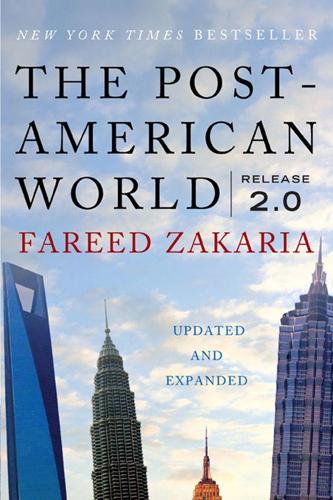
The Post-American World: Release 2.0
by
Fareed Zakaria
Published 1 Jan 2008
In Latin America, Hugo Chávez of Venezuela will launch the most spirited anti-Western campaign in a generation, winning many allies and fans. Israel and Hezbollah will fight a war in southern Lebanon, destabilizing Beirut’s fragile government, drawing in Iran and Syria, and rattling the Israelis. Gaza will become a failed state ruled by Hamas, and peace talks between Israel and the Palestinians will go nowhere. “Given these events,” you say to the sage, “how will the global economy fare over the next decade?” This is not really a hypothetical. We have the forecasts of experts from those years. They were all wrong. The correct prediction would have been that, between 2000 and 2007, the world economy would grow at its fastest pace in nearly four decades.
…
American omnipotence has made Washington believe that it is exempt from the need to have priorities. It wants to have it all. It is crucial that the United States be more disciplined about this. President Obama’s national security adviser, Thomas Donilon, argues properly for a rebalancing of American foreign policy, away from the obsessive attention to the hot spots and failed states in the wider Middle East and toward the new centers of global power in Asia. While making this strategic shift, Washington will also need to make a shift in its ongoing approach to international problems, in which all too often it balks at making any choices—because they suggest compromise. On North Korea and Iran, for example, the Bush administration could not decide whether it wanted regime change or policy change (that is, denuclearization).

The Ecotechnic Future: Envisioning a Post-Peak World
by
John Michael Greer
Published 30 Sep 2009
Thus the world of fifty years from now will include nations at many different points along the sequence of phases. It will likely be dominated by nations that have successfully managed the transition to scarcity industrialism, while the powers of today’s age of abundance will be the fallen empires and failed states of that time. Meanwhile, those nations that drew short straws in the geopolitical lottery and have no fossil fuels, may already be well into the salvage society phase, mining the legacies of the industrial age to meet local needs and pay for whatever foreign trade can still be had. Nations that lack both fossil fuels and salvage, in turn, will either return to agrarian, nomadic or hunter-gatherer economies or, given luck and a good foundation in ecology, may be pioneering the first rough sketches of an ecotechnic society.
…
Most people in the industrial world nowadays have forgotten how much deprivation was a part of ordinary life before the brief 20th-century heyday of cheap abundant energy. As fossil fuels become scarcer and more of the global food supply is diverted to biofuel production, increased starvation in the world’s poorer countries and a sharp increase in the world’s roster of failed states are among the likely results. Meanwhile, economic, political and cultural readjustments will hit the industrial world as income redistributes itself from urban centers to farm country. These shifts will be harder to track as speculation and economic volatility send prices of many agricultural commodities soaring upwards and crashing back to earth in vertiginous cycles of boom and bust.
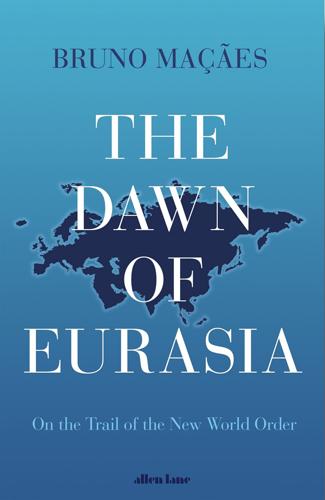
The Dawn of Eurasia: On the Trail of the New World Order
by
Bruno Macaes
Published 25 Jan 2018
More fundamentally, mention of an ‘Asian world order’ or an ‘Asian century’ fails to consider that there is no agreement among Asian nations about what this could mean, and in fact differences among them constitute in some cases serious security threats to continued Asian expansion. Contrary to the West, Asia does not exist as a collective actor. Sooner or later this fragmentation and growing security crises will work as a powerful speed bump. In the past Asia may have looked like an oasis of peace and tolerance. Today it is home to failed states with nuclear weapons, open struggles for military supremacy, historical grievances, and some of the most intractable territorial disputes in the world.1 The new swing of the pendulum, as the political scientist Charles Kupchan has argued, is going to lead to a world where no one will be dominant.
…
A particular sticking point was whether the Russian military deployment would be continued: this was non-negotiable for both Russia and Transnistria, but it did not look like a settlement of the problem for the wider Moldovan public opinion. At the time, Mircea Snegur stated publicly that the proposed system for the bicameral parliament would turn Moldova into a failed state. The story of the Kozak memorandum is particularly relevant because it provided the template for what was to take place in the later, ongoing Ukrainian conflict. When a very precarious and limited ceasefire was reached in February 2015, the final text agreed by the parties spoke of a future special status for the two secessionist republics in Eastern Ukraine, where Russian secret services and regular troops had been and remain present.

The Fourth Revolution: The Global Race to Reinvent the State
by
John Micklethwait
and
Adrian Wooldridge
Published 14 May 2014
We think that part of understanding what’s gone wrong is recognizing that government has to be kept in check; that it is often a blunt tool; that, left to its own devices, it will expand inexorably. But that is a prejudice to be tested against the facts, not an article of blind faith. Thus we do not accept the libertarian idea that government is at best a necessary evil. Too little government is more dangerous than too much: You would have to be crazy to prefer to live in a failed state like the Congo, where the absence of Leviathan makes life truly “nasty, brutish, and short,” than in a well-run big state like Denmark. By paying for public goods like education and health care, governments can improve efficiency as well as welfare. America’s supposedly “private” health-care system costs its inhabitants more in taxes and delivers worse health than the Swedes’ public one.
…
Göran’s hospital, Stockholm, 171–72, 177, 183 San Bernardino, Calif., 16 bankruptcy of, 14, 128–29 Sanders, Harland, 185 San Francisco, Calif., 210, 218 Sarkozy, Nicolas, 12, 16 Sberbank, 153 Scandinavia, 166 aging population of, 174, 178, 183–84 failure of traditional welfare state in, 175–76 fiscal reform in, 174 pensions in, 171, 173, 184 reinvention of welfare state in, 169–78, 183–84, 186–87, 212, 265–66 social mobility in, 174 women in labor force of, 174 scarcity, democracy and, 247–48 Schmidt, Eric, 210–11 School Medical Service, 62 Schopenhauer, Arthur, 60 Schuck, Peter, 132 Schwarzenegger, Arnold, 125, 129 Securities and Exchange Commission, 72, 73 security: balance between freedom and, 230–31 Fourth Revolution and, 232 as primary duty of nation-state, 29, 30, 32, 37, 39, 181, 222, 268 Ségolène Royal, 194 September 11, 2001, terrorist attacks, 98, 230 Serco Group, 213, 214 sexual equality, 169 shale oil, 236 Shaw, George Bernard, 67–68, 232 Shenzhen, China, 161, 217 Sherman, Alfred, 93 Shetty, Devi, 201–2, 203, 205, 242–43 Sidgwick, Henry, 57, 58 Siedentop, Larry, 251 Silicon Valley, 105, 127 Silk Road, 152 Singapore, 18, 133–34, 144, 145, 155 as authoritarian, 135, 136, 137 as business friendly, 137 civil service of, 138–39 economic success of, 135 as elitist, 135, 136, 138–39 ethnic tensions in, 139–40 as model for Asian state, 4, 17, 134, 142 as night-watchman state, 140 small government of, 135, 140 social insurance model of, 140–41, 242, 243 social safety net in, 140 Singh, Manmohan, 96 Sloan, Alfred, 189, 190 Smartest Kids in the World and How They Got That Way, The (Ripley), 207 Smith, Adam, 43, 224, 237 Snowden, Edward, 230–31 social contract, 8–9, 16, 32, 34, 42, 222, 241 Social Contract, The (Rousseau), 44 social Darwinism, 59–60 Social Democratic Party, Swedish, 170, 175 social insurance, social assistance vs., 140–41, 142, 242 socialism, 59, 67, 96, 134, 224, 268–69 in Sweden, 169 Socialist Case, The (Jay), 77 Social Security, 120, 123, 242 disability insurance of, 244 social services, 68, 69, 74 as rights, 74–75 South Africa, 153, 252, 254 Southey, Robert, 224–25 South Korea, 142–43, 155 Soviet Union, 71, 73, 247 collapse of, 64, 176, 253 as failed state, 90–91 Spain, 130 Spanish Armada, 30–31, 36 special-interest groups, 16–17, 90, 111–15, 178, 200, 223, 239, 247, 251, 257, 258, 269 Spencer, Herbert, 59, 60, 66, 92 Stalin, Joseph, 67, 71 Starr, Kevin, 108 state, Asian model of, 133–66 aging populations as strain on, 164–65 as authoritarian, 136 in China, 1–5, 136–37, 145, 149, 152, 156 as competition for Western state model, 17, 163–64, 247 democracy in, 17 as elitist, 136 improved government as goal of, 137, 165–66 innovation in, 165 meritocracy in, 156–63, 164, 254 nationalism and, 136, 137 Singapore as inspiration for, 4, 17, 134, 142 small-government ideology of, 187 spread of, 144 technology and, 165 welfare state in, see welfare state, Asian model of state, Western model of, 3–5 Asian-state model as competition for, 17, 163–64, 247 Baumol’s disease and, 19, 109–11, 174, 178–79, 183, 222 California as exemplar of failures of, 106–7 crime and, 181–82 decline of public services in, 16 deficit spending in, 14, 100, 118–22, 177, 231–32 democracy as central tenet of, 5, 8, 16–17, 22–23, 136, 141, 221 efficiency in, 18–21, 37, 89, 187, 198–99, 213, 233, 247, 255 equality and, 221 Fourth Revolution in, see Fourth Revolution freedom as central tenet of, 8, 23, 46, 68–69, 222 ideological debate over, 222 as instrument of civilization, 22 interest groups and, 16–17 lack of innovation in, 19–20 liberal revolution in, see liberal state nation-state revolution in, see nation-state old and well-off as primary beneficiaries of public spending in, 122–24 opportunities for reinvention of, 18 outdated systems in, 108–9 proliferation of regulation in, 116–18 proper role of, 21, 28 rights of citizens in, 9 social contract in, 8–9, 16, 32, 34, 42, 222, 241 Thatcher-Reagan half-revolution in, see Thatcher-Reagan revloution welfare-state revolution in, see welfare state, Western model of see also government state capitalism: in China, 64, 149–56, 234 corruption in, 154 as global phenomenon, 152–53, 155, 234–35 innovation suppressed by, 155 investor mistrust and, 154 productivity and, 154, 285 in Russia, 153, 154 State-Owned Assets Supervision and Administration Commission (SASAC), 151, 154 state-owned enterprises (SOEs), 150–52, 154–55, 156 statism, 60–61, 67, 71, 72 elitism and, 77–78 Stein, Herbert, 13 Steinberg, Darrell, 129 sterilization, compulsory, 78 Steuerle-Roeper index, 195 Stewart, Jon, 228 Stigler, George, 84 subsidies, 185, 234, 237–38 sugar industry, 238 Suleiman the Magnificent, 35 Summers, Larry, 110 sunset clauses, 118, 246, 266 Supreme Court, U.S., 226, 240, 250 Sweden, 90, 184 average income in, 173 “black-of-night” banking crisis in, 175–76 blending of capitalism and socialism in, 186 education in, 171, 176–77, 215 fiscal reform in, 170 health care in, 98, 171–73 health registries in, 172, 183, 209 pension system in, 171, 184, 242 privatization in, 236 public debt of, 170–71 public spending in, 169–70 reinvention of welfare state in, 170–71, 212, 265–66 socialism in, 169 Swift, Jonathan, 227 Tawney, R.H., 61, 69, 78, 79, 87 taxes, taxation, 116, 127 consumption, 123–24 obfuscation and, 121–22 U.S., 82, 116–17, 121, 237, 240–41 Taylor, A.J.P., 9 Taylor, Matthew, 210 Teach for America, 216 Tea Party, 63, 243 technocrats, 76–77, 259, 260, 266, 267 technology, 165, 174 as agent for small government, 178 business sector and, 191 crime and, 181–82 education and, 179–80 Fourth Revolution and, 18, 19–20, 233, 266–67 government and, 200, 207–11 health care and, 183, 208–9 war and, 182 Temple, Frederick, 58 Tennessee Valley Authority, 73, 236 Terror (1792–93), 46 Thailand, 142–43 Thatcher, Margaret, 8, 28, 81, 88, 91–92, 97, 130, 133, 181 economic policy of, 93–94 Falklands War and, 94 free-market theory and, 93 Thatcher-Reagan revolution, 106, 177 big government as target of, 82 Friedman and, 8, 28, 82, 97, 100 global spread of, 96 Hayek’s influence on, 92 as incomplete, 8, 82, 97–101, 246, 269 privatization and, 94–95, 234 small-government ideology of, 91–92, 93, 128 Thick of It, The (TV show), 227 Thiel, Peter, 207 Think Long Committee, 129 Thirty Years’ War, 34, 38 Thomas, Norman, 82 Thomas Aquinas, Saint, 29 Thucydides, 250 Tiananmen Square protest, 142 Tilly, Charles, 39 Timbro, 131, 175 Tocqueville, Alexis de, 54–55, 222, 226, 250–51, 252, 256, 267 totalitarianism, 71 Toyoda, Kiichiro, 201 Transparency International, 148 Treasury, U.S., 143 Trevelyan, Charles, 52–53 Tsinghua University, 157 Tullock, Gordon, 84 Tunisia, 253 Turkey, 13, 254 Turner, Ted, 238 tyranny of the majority, 226, 250, 255 unemployment insurance, 123, 244, 245 unfunded liabilities, 14, 119, 120, 129, 130, 232, 245–46, 264, 265 unions, public-sector: innovation blocked by, 20 pay and benefits of, 113–15, 119–20 political power of, 112–15 Unirule Institute of Economics, 154 United Nations, 76, 265 United States: affirmative action in, 79 antiliberal discourse in, 95–96 big government in, 71–72 checks and balances system in, 226, 250, 255–56, 265 China contrasted with, 147, 153 crony capitalism in, 237–38, 246 deficits and deficit spending in, 14, 97, 100, 120, 231, 241 democracy’s failures in, 254–59 education reform in, 212, 214–15 elitism in, 162 entitlements in, 241–42 expanding role of government in, 62, 77 falling crime rate in, 181 financial liabilities of, 15–16, 119–20 financial services industry in, 239 fiscal uncertainty in, 12, 255 government bloat in, 9, 98, 177 in Iraq War, 143 local government in, 217 money politics in, 256–58 national debt of, 120, 241–42 political polarization in, 100, 125–26, 164, 255, 256 postwar era in, 78 privatization in, 234–37 public pessimism in, 11, 126 public spending in, 9, 261 small-government model in, 54–55 state capitalism in, 235–36 taxes in, 82, 116–17, 121, 237, 240–41 Webbs and, 71 welfare reform in, 95 Universal Declaration of Human Rights, 265 Uppsala, University of, 78 Urban Institute, 185 utilitarianism, 49, 57, 58 Van Reenen, John, 191 Veep (TV show), 227 VisionSpring, 203 Voegeli, William, 115 voting rights, 7, 9, 51 voucher systems, 171, 176–77, 220 Wade, John, 49 Wallas, Graham, 77 Wallgren, Britta, 172 Wall Street Journal, 90 Wang Jisi, 164 war, technology and, 182 war on poverty, 87, 88 war on terror, 98, 143 Warren, Earl, 105–6, 124–25 Washington, D.C., 210 Washington, George, 250 Washington consensus, 8, 96, 142, 164 Washington Post, 86 Webb, Beatrice and Sidney, 7, 27–28, 64, 66, 68, 71, 74, 75, 87, 116, 134, 140, 219, 268 collectivism as principle of, 68 as creators of welfare state, 65 eugenics endorsed by, 67–68 national minimum concept of, 68, 69 Stalin admired by, 67 statism and, 67 Weibo, 161 Weiner, Anthony, 227–28 welfare state, Asian model of, 164–65 health-care spending in, 142 social insurance as basis of, 140–41, 142, 242, 243 spending on, Western model vs., 142 welfare state, Western model of, 7–9, 65–80, 88, 221 aging population and, 15, 122–23, 124, 165, 174, 178, 183–84, 232, 241–42 as “all-you-can-eat” buffet, 17, 137, 140, 183, 241 creation of, 27–28, 263, 268–69 dependency and, 129–30 education in, 68, 69 elitism and, 77–78 entitlements in, see entitlements equality and, 68–69, 74, 79, 222 in Europe, 75 expanding public sector in, 76 failure of egalitarian policies in, 87–90 fraternity and, 74, 79 government bloat in, 9–11, 18–19, 89–90, 98, 177, 222–23, 227, 229–30, 231, 233 inefficiency in, 89, 229 interest groups in, 90 Lee Kuan Yew’s criticism of, 17 middle class in, 17, 88, 122 national minimum and, 68, 69 Nordic reinvention of, 169–78, 183–84, 186–87, 212, 265–66 overreaching by, 87, 176, 222, 229–30, 233, 264, 265, 268, 269 perverse incentives created by, 89 poverty and, 68 social assistance as basis of, 140, 142 social services and, 68, 69, 74 as threat to democracy, 22, 142 as threat to freedom, 22, 74, 222 Webbs as creators of, 65, 220 Wells, H.G., 66 Wen Jiabao, 162 Westminster model, 54 When China Rules the World (Jacques), 163 Whitaker, Jeremiah, 34 “Why I Am Not a Conservative” (Hayek), 85 Wilders, Geert, 259 Will, George, 30 Willetts, David, 124 William III, King of England, 43 Williamson, John, 8, 163–64 Wilson, James Q., 198 Wolfson Institute of Preventive Medicine, 209 Woolf, Virginia, 28–29 World Bank, 76 Asian financial crisis and, 143 World Economic Forum, 146, 148 World Forum on Democracy, 252 World Health Organization, 201 World on Fire (Chua), 143 World Trade Organization, 260 World War II, 73–74, 232 Wukan, China, 160 Xi Jinping, 133, 145, 148, 161, 164, 165 Xilai, Bo, 154, 162 Xinmin Weekly, 162 Yang Jianchang, 159–61 Yeltsin, Boris, 253 Ye Lucheng, 151 Yes, Minister (TV show), 194 Yongle, Emperor of China, 36 youth, public spending as biased against, 124 Zakaria, Fareed, 143 Zhang Weiwei, 164 Zheng He, 36 Zingales, Luigi, 128, 239 Zuma, Jacob, 254
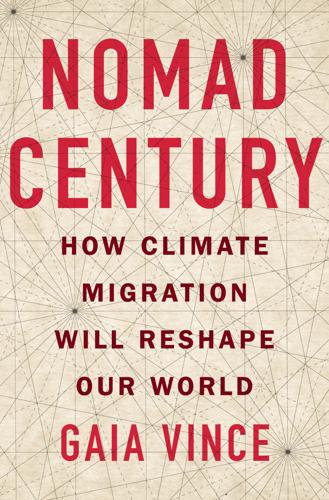
Nomad Century: How Climate Migration Will Reshape Our World
by
Gaia Vince
Published 22 Aug 2022
An insecure government allied to a specific group, which it favours over others, breeds discontent and pitches one group against others – this results in people falling back on trusted alliances based on kinship with other groups. By contrast, a democracy with a mandate of official inclusiveness from its people is generally more stable – but it needs underpinning by a complex bureaucracy; failed states are generally those without complex bureaucracies.7 Bureaucracy creates functional complexity in society as well as being a result of a functional nation state. Bringing diverse groups together into a functional system needs a complex bureaucracy to work, but the diversity of the nation’s people must be equally included by officialdom.
…
Understanding other points of view, thinking about different ideas from a new perspective, can be hard work, even if the rewards are more than worth it. As a result, investments of time and money need to be made in host and immigrant communities to help with this transition. Programmes such as widely available free language classes and a system of mentoring and support for new arrivals, would help. Mass migration from badly run or failed states raises the widely publicized fear of an increase in crime and terrorism – that immigrants will import their inter-ethnic disputes with them. Stricter immigration and visa policies are a common reaction to terrorist incidents. In fact, the opposite is true: migration is more likely to reduce terrorism than increase it, according to a large study of 145 countries looking at three decades worth of data.7 The scientists say the main reason for this was because migration increased economic growth.
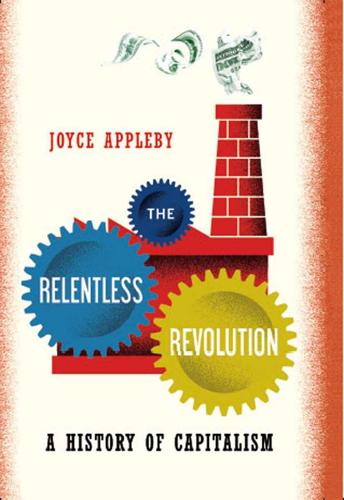
The Relentless Revolution: A History of Capitalism
by
Joyce Appleby
Published 22 Dec 2009
I’ve made a little list, and it includes such charges as responding to short-term opportunities to the neglect of long-term effects, dispensing power without responsibility, promoting material values over spiritual ones, commoditizing human relations, monetizing social values, corrupting democracy, unsettling old communities, institutions, and arrangements, and rewarding aggressiveness and—yes—greed.20 Two other capitalist responsibilities have cast long shadows forward: intractable poverty and a deteriorating environment. While most of the world economies have been developing nicely, sixty years of effort by the First World to stimulate prosperity in many Third World countries has ended in disappointment. Experts are regrouping to test some novel approaches to animate stagnate economies and revive failed states. Thinking more broadly, some think it’s time to correct the flaws in capitalism instead of expecting another technological spurt to divert attention elsewhere. On the agenda for the new century is a multipronged effort to halt the environmental damage that a century of population growth, fossil fuel burning, water pollution, and various other human intrusions on the planet have caused.
…
Unlike the backward, underdeveloped Third World nations of yore, the bottom billion today live in particular countries—fifty-seven in fact—that are treading water while the world around them is swimming toward development, even during a world recession. They are not the BRICs (Brazil, Russia, India, and China), which have won attention as “emerging markets.” Instead they are “failed states” that have begun to wear out the patience of philanthropists and test the imagination of aid organizations. Today more money is pouring into combating disease than into promoting economic change, evidence of a certain despair about development. The fifty-seven states tethered to the bottom of the global economy are not like others in the world.
…
Estimating that a typical one costs sixty-four billion dollars, Collier recommends military intervention in countries like Afghanistan and Somalia to rescue them from this trauma. Arguing that such interventions should last at least a decade in order to lay the foundation for sound government, he wants the intervening organizations to clarify their intentions through an international charter. Collier views neither trade nor aid alone as being of much help to failed states. Change must come from within, he maintains, but domestic reformers will succeed only with assistance from the industrialized world. Nor does he place faith in globalization per se because the entrance of India and China has made it much harder for latecomers to get into the world marketplace.
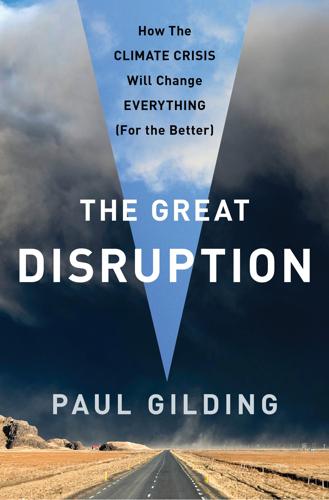
The Great Disruption: Why the Climate Crisis Will Bring on the End of Shopping and the Birth of a New World
by
Paul Gilding
Published 28 Mar 2011
And that will involve human lives. There will be a human toll.” The 2007 report concluded that climate change would act as a threat multiplier by exacerbating conflict over resources, especially because of declining food production, border and mass migration tensions, and so on—increasing political instability and creating failed states—if no action was taken to reduce impacts. The findings of this report agree with those of the confidential assessment of the security implications of climate change by the National Intelligence Council (NIC), the coordinating body of America’s sixteen intelligence agencies. Former NIC chairman Thomas Fingar told Congress that unchecked, climate change has “wide-ranging implications for national security because it will aggravate existing problems,” especially in already vulnerable areas such as sub-Saharan Africa and the Middle East.
…
We would not, if we took that choice, have two, three, or four billion poor people quietly going away to die in a far-flung corner of the world. While we can’t know just how it will develop, it doesn’t take much to imagine how it might unfold. A global economic crash combined with widespread food shortages, would probably see the desperate slide of nations and regions into chaos. We would see failed states with nuclear arms and countless other weapons being taken over by dictators and terrorists. We would see refugees by the hundreds of millions, if not billions. Yes, some would be too weak or ill equipped to travel far, but many would move first as their countries collapsed around them. This would not be, as we have seen in past crises, a few million people on isolated roads moving into refugee camps.
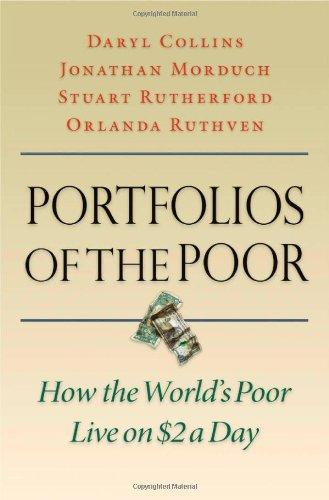
Portfolios of the poor: how the world's poor live on $2 a day
by
Daryl Collins
,
Jonathan Morduch
and
Stuart Rutherford
Published 15 Jan 2009
The countries we refer to here, as well as the three countries where we collected the diaries—Bangladesh, India, and South Africa—are all fortunate in that they are not at war or in conflict, and have working, recognized governments and functioning economies. Some of what we say in this book may not apply to fragile or “failed” states, or areas where there is no monetized economy. Our broad perspectives have been shaped by research completed by a wide range of individuals and organizations, and we cite representative studies in the text. 4. In important new work, Krislert Samphantharak and Robert Townsend (2008) apply the idea to monthly data from Thailand, providing rigorous methodological foundations for drawing analogues between households and corporate firms. 5.
…
E., 252n.12 Dowla, Asif, 258n.1 Dubois, Pierre, 252n.5 274 INDEX Duflo, Esther, 101, 105, 248n.7, 249n.18, 249n.20, 251n.4, 254n.3, 254nn.6–7, 257n.3, 260n.1 Easterly, William, 247n.1 Egypt, 120 employment: of children, 37–38; employment guarantee scheme in Maharashtra state, India, 71; formal sector jobs, insecurities of, 43–45; kinds of, distinction between South Asia and South Africa regarding, 37–38; multiple and uncertain as the norm, 35–38 Equity Bank (Kenya), 183 Ethiopia, 253n.16 Fafchamps, Marcel, 251n.3, 252n.5, 254n.7 “failed” states, 247n.3 festivals, spending on, 254n.7 Financial Access Initiative, 260n.5 financial diaries: balance sheets as source of information, 8–10, 32, 60, 96–97; cash flow as source of information, 10, 32–33, 61, 97; construction of, 4–5 (see also methodology); the Grameen II diaries, 159–60; interest rates (see prices); in kind transactions, 10–11; relationship of time and money observed in, 187–88; strengths and weaknesses as a research tool, 185, 205, 208–10.
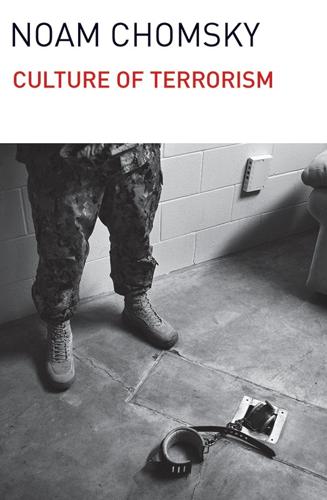
Culture of Terrorism
by
Noam Chomsky
Published 19 Oct 2015
Just how firmly the culture of terrorism has been established we shall see, as the Reaganites attempt to consummate their project and other elements within the narrow elite consensus take up the cause, in their own ways, adapting policies to unchanging goals that are deeply rooted in our institutions, our historical practice, and our cultural climate. Notes Preface to the 2015 Edition 1. David Ignatius in the Washington Post. For details, see Noam Chomsky, Failed States: The Abuse of Power and the Assault on Democracy (New York: Holt, 2007), chap. 6. 2. See, for example, the careful work of Larry Bartels, Martin Gilens, and Benjamin Page, over many years. 3. Walter Dean Burnham and Thomas Ferguson, “Americans Are Sick to Death of Both Parties, “Americans Are Sick to Death of Both Parties: Why Our Politics Is in Worse Shape Than We Thought,” http://www.alternet.org/americans-are-sick-death-both-parties-why-our-politics-worse-shape-we-thought. 4.
…
Canova, “Banking and Financial Reform at the Crossroads of the Neoliberal Contagion,” American University International Law Review 14.6 (1999), 1571–1645. Eichengreen, Globalizing Capital: A History of the International Monetary System (Princeton: Princeton University Press, 1996). 5. See Chomsky, Failed States, for discussion and sources. 6. The judgment was overturned on technical grounds by the Constitutional Court, and is scheduled to resume in January 2015. The Court decision was condemned by Amnesty International as a “devastating blow for the victims of the serious human rights violations committed during the conflict.”
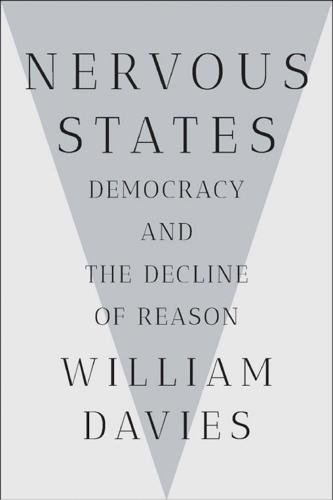
Nervous States: Democracy and the Decline of Reason
by
William Davies
Published 26 Feb 2019
The bailout of the banks, in the face of a potentially catastrophic fallout of the alternative, was ultimately an example of this. How else would people have created reliable promises, if the ATMs were empty and bank cards stopped working? In the age of terrorism, the state has mobilized a widening range of emergency powers simply to secure civil society. The appearance of so-called “failed states,” such as Somalia and Sudan, which lie somewhere between Hobbes’s two poles of “civil society” on the one hand and a “warre of all against all” on the other, represent one of the most awkward challenges to the Hobbesian worldview. New and less tangible categories of violence, such as “cyberattack” or “hate speech,” stretch the responsibilities of a Hobbesian sovereign into more and more areas of life.
…
A/B testing, 199 Acorn, 152 ad hominem attacks, 27, 124, 195 addiction, 83, 105, 116–17, 172–3, 186–7, 225 advertising, 14, 139–41, 143, 148, 178, 190, 192, 199, 219, 220 aerial bombing, 19, 125, 135, 138, 143, 180 Affectiva, 188 affective computing, 12, 141, 188 Agent Orange, 205 Alabama, United States, 154 alcoholism, 100, 115, 117 algorithms, 150, 169, 185, 188–9 Alsace, 90 alt-right, 15, 22, 50, 131, 174, 196, 209 alternative facts, 3 Amazon, 150, 173, 175, 185, 186, 187, 192, 199, 201 American Association for the Advancement of Science, 24 American Civil War (1861–5), 105, 142 American Pain Relief Society, 107 anaesthetics, 104, 142 Anderson, Benedict, 87 Anthropocene, 206, 213, 215, 216 antibiotics, 205 antitrust laws, 220 Appalachia, 90, 100 Apple, 156, 185, 187 Arab Spring (2011), 123 Arendt, Hannah, xiv, 19, 23, 26, 53, 219 Aristotle, 35, 95–6 arrogance, 39, 47, 50 artificial intelligence (AI), 12–13, 140–41, 183, 216–17 artificial video footage, 15 Ashby, Ross, 181 asymmetrical war, 146 atheism, 34, 35, 209 attention economy, 21 austerity, 100–101, 225 Australia, 103 Australian, 192 Austria, 14, 60, 128, 153–75 Austria-Hungary (1867–1918), 153–4, 159 authoritarian values, 92–4, 101–2, 108, 114, 118–19, 211–12 autocracy, 16, 20, 202 Babis, Andrej, 26 Bacon, Francis, 34, 35, 95, 97 Bank of England, 32, 33, 55, 64 Banks, Aaron, 26 Bannon, Steve, 21, 22, 60–61 Bayh–Dole Act (1980), 152 Beck Depression Inventory, 107 Berlusconi, Silvio, 202 Bernays, Edward, 14–15, 16, 143 “Beyond the Pleasure Principle” (Freud), 110 Bezos, Jeff, 150, 173 Big Data, 185–93, 198–201 Big Government, 65 Big Science, 180 Bilbao, Spain, 84 bills of mortality, 68–71, 75, 79–80, 81, 127 Birmingham, West Midlands, 85 Black Lives Matter, 10, 225 Blackpool, Lancashire, 100 blind peer reviewing, 48, 139, 195 Blitz (1940–41), 119, 143, 180 blue sky research, 133 body politic, 92–119 Bologna, Italy, 96 bookkeeping, 47, 49, 54 Booth, Charles, 74 Boston, Massachusetts, 48 Boyle, Robert, 48–50, 51–2 BP oil spill (2010), 89 brainwashing, 178 Breitbart, 22, 174 Brexit (2016–), xiv, 23 and education, 85 and elites, 33, 50, 61 and inequality, 61, 77 and NHS, 93 and opinion polling, 80–81 as self-harm, 44, 146 and statistics, 61 Unite for Europe march, 23 Vote Leave, 50, 93 British Futures, 65 Brooks, Rosa, 216 bullying, 113 Bureau of Labor, 74 Bush, George Herbert Walker, 77 Bush, George Walker, 77, 136 cadaverous research, 96, 98 call-out culture, 195 Calvinism, 35 Cambridge, Cambridgeshire, 85 University, 84, 151 Cambridge Analytica, 175, 191, 196, 199 Cameron, David, 33, 73, 100 cancer, 105 Capital in the Twenty-First Century (Piketty), 74 capital punishment, 92, 118 car accidents, 112–13 cargo-cult science, 50 Carney, Mark, 33 cartography, 59 Case, Anne, 99–100, 102, 115 Catholicism, 34 Cato Institute, 158 Cavendish, William, 3rd Earl of Devonshire, 34 Central Intelligence Agency (CIA), 3, 136, 151, 199 Center for Policy Studies, 164 chappe system, 129, 182 Charles II, King of England, Scotland, and Ireland, 34, 68, 73 Charlottesville attack (2017), 20 Chelsea, London, 100 Chevillet, Mark, 176 Chicago School, 160 China, 13, 15, 103, 145, 207 chloroform, 104 cholera, 130 Chongqing, China, 13 chronic pain, 102, 105, 106, 109 see also pain Churchill, Winston, 138 citizen science, 215, 216 civil rights movements, 21, 194 civilians, 43, 143, 204 von Clausewitz, Carl, 128–35, 141–7, 152 and defeat, 144–6 and emotion, 141–6, 197 and great leaders, 146–7, 156, 180–81 and intelligence, 134–5, 180–81 and Napoleon, 128–30, 133, 146–7 and soldiers, number of, 133–4 war, definition of, 130, 141, 193 climate change, 26, 50, 165, 205–7, 213–16 Climate Mobilization, 213–14 climate-gate (2009), 195 Clinton, Hillary, 27, 63, 77, 99, 197, 214 Clinton, William “Bill,” 77 coal mining, 90 cognitive behavioral therapy, 107 Cold War, 132, 133, 135–6, 137, 180, 182–4, 185, 223 and disruption, 204–5 intelligence agencies, 183 McCarthyism (1947–56), 137 nuclear weapons, 135, 180 scenting, 135–6 Semi-Automatic Ground Environment (SAGE), 180, 182, 200 space race, 137 and telepathy, 177–8 colonialism, 59–61, 224 commercial intelligence, 152 conscription, 127 Conservative Party, 80, 154, 160, 163, 166 Constitution of Liberty, The (Hayek), 160 consumer culture, 90, 104, 139 contraceptive pill, 94 Conway, Kellyanne, 3, 5 coordination, 148 Corbyn, Jeremy, 5, 6, 65, 80, 81, 197, 221 corporal punishment, 92 creative class, 84, 151 Cromwell, Oliver, 57, 59, 73 crop failures, 56 Crutzen, Paul, 206 culture war, xvii Cummings, Dominic, 50 currency, 166, 168 cutting, 115 cyber warfare, xii, 42, 43, 123, 126, 200, 212 Czech Republic, 103 Daily Mail, ix Damasio, Antonio, 208 Darwin, Charles, 8, 140, 142, 157, 171, 174, 179 Dash, 187 data, 49, 55, 57–8, 135, 151, 185–93, 198–201 Dawkins, Richard, 207, 209 death, 37, 44–5, 66–7, 91–101 and authoritarian values, 92–4, 101–2, 211, 224 bills of mortality, 68–71, 75, 79–80, 81, 89, 127 and Descartes, 37, 91 and Hobbes, 44–5, 67, 91, 98–9, 110, 151, 184 immortality, 149, 183–4, 224, 226 life expectancy, 62, 68–71, 72, 92, 100–101, 115, 224 suicide, 100, 101, 115 and Thiel, 149, 151 death penalty, 92, 118 Deaton, Angus, 99–100, 102, 115 DeepMind, 218 Defense Advanced Research Projects Agency (DARPA), 176, 178 Delingpole, James, 22 demagogues, 11, 145, 146, 207 Democratic Party, 77, 79, 85 Denmark, 34, 151 depression, 103, 107 derivatives, 168, 172 Descartes, René, xiii, 36–9, 57, 147 and body, 36–8, 91, 96–7, 98, 104 and doubt, 36–8, 39, 46, 52 and dualism, 36–8, 39, 86, 94, 131, 139–40, 179, 186, 223 and nature, 37, 38, 86, 203 and pain, 104, 105 Descartes’ Error (Damasio), 208 Devonshire, Earl of, see Cavendish, William digital divide, 184 direct democracy, 202 disempowerment, 20, 22, 106, 113–19 disruption, 18, 20, 146, 147, 151, 171, 175 dog whistle politics, 200 Donors Trust, 165 Dorling, Danny, 100 Downs Survey (1655), 57, 59, 73 doxing, 195 drone warfare, 43, 194 drug abuse, 43, 100, 105, 115–16, 131, 172–3 Du Bois, William Edward Burghardt, 74 Dugan, Regina, 176–7 Dunkirk evacuation (1940), 119 e-democracy, 184 Echo, 187 ecocide, 205 Economic Calculation in the Socialist Commonwealth (Mises), 154, 166 economics, 59, 153–75 Economist, 85, 99 education, 85, 90–91 electroencephalography (EEG), 140 Elizabethan era (1558–1603), 51 embodied knowledge, 162 emotion and advertising, 14 artificial intelligence, 12–13, 140–41 and crowd-based politics, 4, 5, 8, 9, 10, 15, 16, 21, 23–7 Darwin’s analysis, 8, 140 Descartes on, 94, 131 and experts, 53, 60, 64, 66, 90 fear, 11–12, 16–22, 34, 40–45, 52, 60, 142 Hobbes on, 39, 41 James’ analysis, 140 and markets, 168, 175 moral, 21 and nationalism, 71, 210 pain, 102–19 sentiment analysis, xiii, 12–13, 140, 188 and war, 124–6, 142 empathy, 5, 12, 65, 102, 104, 109, 112, 118, 177, 179, 197 engagement, 7, 219 England Bank of England founded (1694), 55 bills of mortality, 68–71, 75, 79–80, 81, 89, 127 civil servants, 54 Civil War (1642–51), 33–4, 45, 53 Elizabethan era (1558–1603), 51 Great Fire of London (1666), 67 hospitals, 57 Irish War (1649–53), 59 national debt, 55 Parliament, 54, 55 plagues, 67–71, 75, 79–80, 81, 89, 127 Royal Society, 48–52, 56, 68, 86, 208, 218 tax collection, 54 Treasury, 54 see also United Kingdom English Defense League, ix entrepreneurship, 149, 156, 162 environment, 21, 26, 50, 61, 86, 165, 204–7, 213–16 climate change, 26, 50, 165, 205–7, 213–16 flying insects, decline of, 205, 215 Environmental Protection Agency, 23 ether, 104 European Commission, 60 European Space Agency, 175 European Union (EU), xiv, 22, 60 Brexit (2016–), see under Brexit and elites, 60, 145, 202 euro, 60, 78 Greek bailout (2015), 31 immigration, 60 and nationalism, 60, 145, 146 quantitative easing, 31 refugee crisis (2015–), 60, 225 Unite for Europe march (2017), 23 Exeter, Devon, 85 experts and crowd-based politics, 5, 6, 23, 25, 27 Hayek on, 162–4, 170 and representative democracy, 7 and statistics, 62–91 and technocracy, 53–61, 78, 87, 89, 90 trust in, 25–33, 63–4, 66, 74–5, 77–9, 170, 202 violence of, 59–61 Expression of the Emotions in Man and Animal, The (Darwin), 8, 140 Exxon, 165 Facebook, xvi, 15, 201 advertising, 190, 192, 199, 219, 220 data mining, 49, 185, 189, 190, 191, 192, 198, 219 and dog whistle politics, 200 and emotional artificial intelligence, 140 as engagement machine, 219 and fake news, 199 and haptics, 176, 182 and oligarchy, 174 and psychological profiling, 124 and Russia, 199 and sentiment analysis, 188 and telepathy, 176–8, 181, 185, 186 and Thiel, 149, 150 and unity, 197–8 weaponization of, 18 facial recognition, 13, 188–9 failed states, 42 fake news, 8, 15, 199 Farage, Nigel, 65 fascism, 154, 203, 209 fear, 11–12, 16–22, 34, 40–45, 52, 60, 142 Federal Bureau of Investigation (FBI), 137 Federal Reserve, 33 feeling, definition of, xii feminism, 66, 194 Fifth Amendment, 44 fight or flight, 111, 114 Financial Times, 15 first past the post, 13 First World War, see World War I Fitbit, 187 fixed currency exchange rates, 166 Florida, Richard, 84 flu, 67, 191 flying insects, 205, 215 France censuses, 66, 73 conscription introduced (1793), 127 Front National, 27, 61, 79, 87, 92 Hobbes in (1640–51), 33–4, 41–2 Le Bon’s crowd psychology, 8–12, 13, 15, 16, 20, 24, 25, 38 life expectancy, 101 Napoleonic Wars (1803–15), see Napoleonic Wars Paris climate accord (2015), 205, 207 Paris Commune (1871), 8 Prussian War (1870–71), 8, 142 Revolution (1789–99), xv, 71, 126–9, 141, 142, 144, 204 statistics agency established (1800), 72 unemployment, 83 Franklin, Benjamin, 66 free markets, 26, 79, 84, 88, 154–75 free speech, 22, 113, 194, 208, 209, 224 free will, 16 Freud, Sigmund, 9, 14, 44, 107, 109–10, 111, 112, 114, 139 Friedman, Milton, 160, 163, 166 Front National, 27, 61, 79, 87, 92, 101–2 full spectrum warfare, 43 functional magnetic resonance imaging (fMRI), 140 futurists, 168 Galen, 95–6 Galilei, Galileo, 35 gambling, 116–17 game theory, 132 gaming, 193–4 Gandhi, Mohandas, 224 gate control theory, 106 Gates, Sylvester James “Jim,” 24 Gavotti, Giulio, 143 geek humor, 193 Gehry, Frank, 84 Geller, Uri, 178 geometry, 35, 49, 57, 59, 203 Gerasimov, Valery, 123, 125, 126, 130 Germany, 34, 72, 137, 205, 215 gig economy, 173 global financial crisis (2007–9), 5, 29–32, 53, 218 austerity, 100–101 bailouts, 29–32, 40, 42 and gross domestic product (GDP), 76 as “heart attack,” 57 and Obama administration, 158 and quantitative easing, 31–2, 222 and securitization of loans, 218–19 and statistics, 53, 65 and suicide, 101 and unemployment, 82 globalization, 21, 78, 84, 145, 146 Gonzales, Alberto, 136 Google, xvi, 174, 182, 185, 186, 191, 192 DeepMind, 218 Maps, 182 Transparency Project, 198 Government Accountability Office, 29 Graunt, John, 67–9, 73, 75, 79–80, 81, 85, 89, 127, 167 Great Fire of London (1666), 67 great leaders, 146–8 Great Recession (2007–13), 76, 82, 101 Greece, 5, 31, 101 Greenpeace, 10 Grenfell Tower fire (2017), 10 Grillo, Beppe, 26 gross domestic product (GDP), 62, 65, 71, 75–9, 82, 87, 138 guerrillas, 128, 146, 194, 196 Haldane, Andrew, 32 haptics, 176, 182 Harvey, William, 34, 35, 38, 57, 96, 97 hate speech, 42 von Hayek, Friedrich, 159–73, 219 health, 92–119, 224 hedge funds, 173, 174 hedonism, 70, 224 helicopter money, 222 Heritage Foundation, 164, 214 heroin, 105, 117 heroism and disruption, 18, 146 and genius, 218 and Hobbes, 44, 151 and Napoleonic Wars, 87, 127, 142 and nationalism, 87, 119, 210 and pain, 212 and protection, 202–3 and technocracy, 101 and technology, 127 Heyer, Heather, 20 Hiroshima atomic bombing (1945), 206 Hobbes, Thomas, xiii, xvi, 33–6, 38–45, 67, 147 on arrogance, 39, 47, 50, 125 and body, 96, 98–9 and Boyle, 49, 50, 51 on civil society, 42, 119 and death, 44–5, 67, 69–70, 91, 98–9, 110, 151, 184 on equality, 89 on fear, 40–45, 52, 67, 125 France, exile in (1640–51), 33–4, 41 on geometry, 35, 38, 49, 56, 57 and heroism, 44, 151 on language, 38–9 natural philosophy, 35–6 and nature, 38, 50 and Petty, 56, 57, 58 on promises, 39–42, 45, 148, 217–18 and Royal Society, 49, 50, 51 on senses, 38, 49, 147 and sovereign/state, 40–45, 46, 52, 53, 54, 60, 67, 73, 126, 166, 217, 220 on “state of nature,” 40, 133, 206, 217 war and peace, separation of, 40–45, 54, 60, 73, 125–6, 131, 201, 212 Hobsbawm, Eric, 87, 147 Hochschild, Arlie Russell, 221 holistic remedies, 95, 97 Holland, see under Netherlands homeopathy, 95 Homer, xiv Hungary, 20, 60, 87, 146 hysteria, 139 IBM, 179 identity politics, 208, 209 Iglesias Turrión, Pablo, 5 imagined communities, 87 immigration, 60, 63, 65, 79, 87, 145 immortality, 149, 183–4, 224 in-jokes, 193 individual autonomy, 16 Industrial Revolution, 133, 206 inequality, 59, 61, 62, 76, 77, 83, 85, 88–90 inflation, 62, 76, 78, 82 infographics, 75 information theory, 147 information war, 43, 196 insurance, 59 intellectual property, 150 intelligence, 132–9 intensity, 79–83 International Association for the Study of Pain, 106 International Monetary Fund (IMF), 64, 78 Internet, 184–201, 219 IP addresses, 193 Iraq War (2003–11), 74, 132 Ireland, 57, 73 Irish Republican Army (IRA), 43 “Is This How You Feel?

The Uninhabitable Earth: Life After Warming
by
David Wallace-Wells
Published 19 Feb 2019
These crises are what the American military means when it names climate change a “threat multiplier.” The multiplication, when it falls short of conflict, produces migration—that is, climate refugees. Since 2008, by one count, it has already produced 22 million of them. In the West, we often think of refugees as a failed-state problem—that is, a problem that the broken and impoverished parts of the world inflict on relatively more stable, and wealthier, societies. But Hurricane Harvey produced at least 60,000 climate migrants in Texas, and Hurricane Irma forced the evacuation of nearly 7 million. As with so much else, it will only get worse from here.
…
But neoliberalism was sold on the proposition of positive-sum cooperation of all kinds, and the term itself suggests its natural successor regime: zero-sum politics. Today, we don’t even have to gaze into the future, or trust that it will be deformed by climate change, to see what that would look like. In the form of tribalism at home and nationalism abroad and terrorism flaming out from the tinder of failed states, that future is here, at least in preview, already. Now we just wait for the storms. * * * — If neoliberalism is the god that failed on climate change, what juvenile gods will it spawn? This is the question taken up by Geoff Mann and Joel Wainwright in Climate Leviathan: A Political Theory of Our Planetary Future, in which they repurpose Thomas Hobbes to sketch out what they see as the likeliest political form to evolve from the crisis of warming and the pummeling of its impacts.
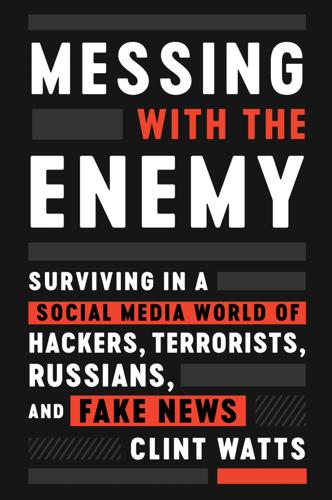
Messing With the Enemy: Surviving in a Social Media World of Hackers, Terrorists, Russians, and Fake News
by
Clint Watts
Published 28 May 2018
Al Qa’ida’s (Mis)Adventures in the Horn of Africa’s first report released a second tranche of documents focused on al-Qaeda’s early operations in East Africa, between 1992 and 1994, when the terror group tried and failed to infiltrate Somali clans. The remnants of this expedition later seeded the operational cells in the Horn of Africa that conducted the 1998 U.S. embassy bombings in Kenya and Tanzania.18 The second report’s primary findings were that al-Qaeda fared better not in failed states like Somalia, as conventional wisdom might suggest, but in weak states like Kenya and Pakistan, where weak national security operations restricted American counterterrorism efforts. Next came Cracks in the Foundation, which studied three periods of al-Qaeda’s history using the group’s internal documents.19 The study found that al-Qaeda, as a military organization, had never been particularly strong, and its success as a media organization masked deep internal divides between its leaders over strategic direction.20 The Harmony database armed crowds of researchers scattered around the world with more secrets for studying how to divide and conquer al-Qaeda’s terrorists.
…
The initial members of the crowd were those privileged enough to have internet access and afford a smartphone. An early crowd member—from the mid-1990s until the late 2000s—needed some education and training to create and moderate content on forums, blogs, and chatrooms. Mark Zuckerberg started Facebook at Harvard, after all, not in the failed state of Somalia. The first crowds on the internet and social media were more educated, experienced, and privileged—collectively smarter than the core. The experts at the core still held a repository of experience, reasoning, and knowledge to effectively harness the crowd’s energy for discrete tasks and specified disciplines, determining what insights and innovations were outpacing existing pre-internet libraries and industry practices.
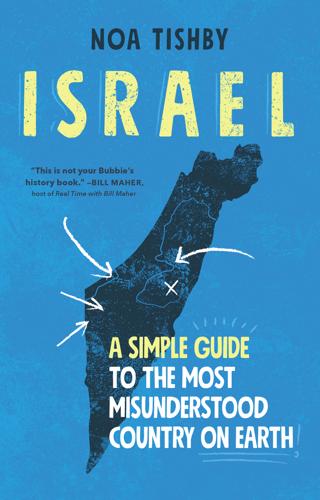
Israel: A Simple Guide to the Most Misunderstood Country on Earth
by
Noa Tishby
Published 5 Apr 2021
It’s surrounded by twenty-one1 mostly Arab countries and Iran, which is part Arab and mostly Persian. One could say it’s a rough neighborhood. Protests during the Arab Spring in the early 2010s brought a glimmer of hope for change, but after the people of the region demanded democracy and freedom, they instead got, for the most part, more extremists and failed states. The region is unstable, to say the least. While some of Israel’s neighbors are rich in natural resources, there is nothing in the ground in Israel. No natural treasures at all. No diamonds, gold, or oil. This changed to some extent with the discovery of natural gas off Israel’s shores in the last two decades, but in terms of natural resources, this new discovery is pretty much it.
…
And don’t even get me started on the BDS double standard toward the only consistent democracy in the Middle East (Israel) versus every single other country in the region. Israel is surrounded by some of the most vicious, theocratic, autocratic, dictatorial, oppressive Islamist regimes and a bunch of failed states, yet BDS singles only Israel out. BDS leadership doesn’t care at all about the plight or human rights of Palestinians anywhere else in the world—if they did, they might work toward improving the horrifying conditions in overstuffed refugee camps in places like Lebanon or on reforming UNRWA, which enables Palestinians to stay “refugees” for three generations and counting.

The Premonition: A Pandemic Story
by
Michael Lewis
Published 3 May 2021
What he saw in the local U.S. public-health offices remined him of public services in Poland, but before the collapse of communism. “Poland now is not like this,” said David, after seeing the inside of a U.S. public-health office. “Poland now is more functional. Eastern Europeans are tough and kind of not shocked by a failed state. But these are the symptoms of a failed state.” * The drama began, as it often did, with a call from a public-health nurse. She wanted to let Charity Dean know that a young man in Santa Maria, at the poor end of Santa Barbara County, had been discovered with four-plus tuberculosis in his lungs. The county health lab assigned a grade to each case based on how many tuberculosis bacteria they could count on the slide.
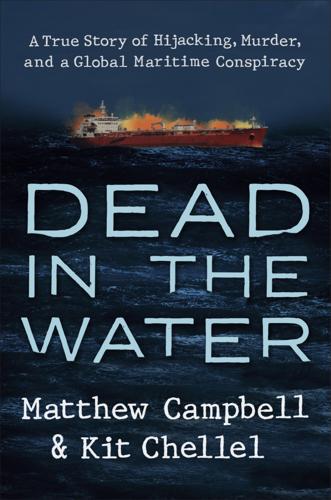
Dead in the Water: A True Story of Hijacking, Murder, and a Global Maritime Conspiracy
by
Matthew Campbell
and
Kit Chellel
Published 2 May 2022
Something happened to sailors as they approached the Gulf of Aden, a phenomenon that Marquez had seen, and felt himself, again and again. Tempers got shorter. Captains became more demanding. The amount of work to be done, rarely less than exhausting, grew even more intense. The reason was simple: At the time of the Brillante’s voyage, the Gulf was an intensely dangerous place. Somalia had been essentially a failed state since the collapse of its central government in the early 1990s, creating a uniquely hospitable environment for warlords, Islamic extremists, and pirates. There were more than 170 attacks on ships in the waters surrounding the country in 2010, despite deployments of naval vessels by the United States, European Union, and other world powers to deal with the ongoing crisis.
…
GO TO NOTE REFERENCE IN TEXT The story was picked up: Michelle Wiese Bockmann and Alaric Nightingale, “Million-Barrel Tanker on Fire Off Yemen After Grenade Attack,” Bloomberg News, Jul. 6, 2011. GO TO NOTE REFERENCE IN TEXT Reuters and the Associated Press: U.S. Congress, House, Africa, Global Health, and Human Rights and Terrorism, Nonproliferation, and Trade Subcommittees of the Committee on Foreign Affairs, Assessing the Consequences of the Failed State of Somalia, 112th Cong., 1st sess., 2011, https://www.govinfo.gov/content/pkg/CHRG-112hhrg67305/html/CHRG-112hhrg67305.htm. GO TO NOTE REFERENCE IN TEXT After 9/11, Lloyd’s members: “Lloyd’s of London Raises Loss Estimates from World Trade Center Attacks,” Associated Press, Nov. 27, 2001.

After Europe
by
Ivan Krastev
Published 7 May 2017
The Migration of Arguments and Votes A decade ago, the Hungarian philosopher and former dissident Gaspar Miklos Tamas observed that the Enlightenment, in which the idea of the European Union is intellectually rooted, demands universal citizenship.12 But universal citizenship requires one of two things to happen: people either enjoy absolute freedom of movement in search of jobs and higher standards of living or the huge economic and political disparities among countries will need to disappear, allowing people to enjoy their universal rights equally in every place. But neither of these is going to happen soon, if ever. (In 2014, The Economist estimated on the basis of IMF data that emerging economies might have to wait for three centuries in order to catch up to living standards in the West.) The world today is populated by many failed or failing states in which nobody wants to live and work; moreover, Europe has neither the capacity nor the willingness to allow open borders. The migration crisis confronts liberalism with a contradiction that is central to its philosophy. How can our universal rights be reconciled with the fact that we exercise them as citizens of unequally free and prosperous societies?

The Caryatids
by
Bruce Sterling
Published 24 Feb 2009
There were biopiracy labs all over this island. You—you and your beautiful sisters—you are the only people in the world who still think that local crime wave is a secret.” Herbert smacked his fist into his open hand. “A clone is an illegal person. That’s all. This island is manned by refugees from failed states, so we’re all technically ‘illegal,’ like you. You can’t convince us that you’re the big secret monster from the big secret monster lab. Because we know you, and we know how you feel. We’re in solidarity with you, Vera. It’s all a matter of degree.” Vera chose to say nothing about this vapid pep talk.
…
Camp people badly needed reasons to be. Before being rescued by the Acquis, they’d been desolated. These city women, like many city women, had no children and no surviving parents. They’d been uprooted by massive disasters, fleeing the dark planetary harvest of droughts, fires, floods, epidemics, failed states, and economic collapse. These women, blown across the Earth as human flotsam, were becoming pioneers here. They did well at adapting to circumstance—because they were women. Refugee women—women anywhere, any place on Earth—had few illusions about what it meant to be flotsam. Vera herself had been a camp refugee for a while.

Blood River: A Journey to Africa's Broken Heart
by
Tim Butcher
Published 2 Jul 2007
Most of its nine-million-strong urban population crowd into squalid squatter camps without adequate drinking water, electricity, health care or basic services. Corruption corrodes every aspect of day-to-day life, forcing its people to rely on international organisations - the UN, aid groups, donors - to prop up the failing state. But by comparison with the country's medieval hinterland, Kinshasa is centuries ahead. I found the disconnect between capital and country bewildering when I arrived by UN helicopter. And it got worse after I was met by Maurice, the local representative of my cobalt-mining contact from Lubumbashi, and whisked away in his jeep.
…
We had been exchanging emails and telephone calls regularly, but a few months after I got home all communication ended. I then found out that the former rebel had been co-opted into the government of his erstwhile enemy, President Kabila, as Defence Minister. I concluded that the ambassador and minister were too ashamed to hear what I had discovered about their failed state. My own work took me to Jerusalem, from where I now cover the Middle East region for the Telegraph. I might have moved, but my obsession with the Congo - the daunting, flawed giant that symbolises Africa's triumph of disappointment over potential - remains stronger than ever. Tim Butcher Jerusalem, October 2006 Bibliography Non-fiction John and Julie Batchelor, In Stanley's Footsteps - Across Africa From West to East, 1990, Blandford Colette Braeckman: L'Enjeu Congolais, 1999, Fayard - Les Nouveaux Predateurs, 2003, Fayard Ritchie Calder: Agony of the Congo, 1961, Victor Gollancz Verney Lovett Cameron: Across Africa, 1877, Daldy, Isbister and Company Peter Forbath: The River Congo, 1977, Harper & Row Alan Gallop: Mr Stanley, I Presume?
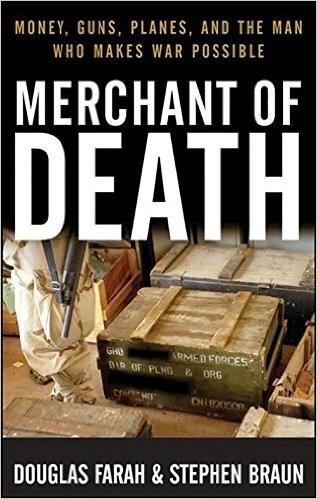
Merchant of Death: Money, Guns, Planes, and the Man Who Makes War Possible
by
Stephen Braun
and
Douglas Farah
Published 1 Apr 2008
The massive continent has fifty-three countries and is the size of China, the United States, Europe, India, Argentina, and New Zealand combined.5 Yet a 2003 World Bank study found that only nine nations merited even a barely acceptable fair-governance rating. The rest, comprising more than 80 percent of the continent, were judged as failing or failed states.6 The private global arms trade had surged, reaping as much as $10 billion a year—an industry that researchers believe had its most rapid growth in the decade following the end of the Cold War.7 The effects were immediate and pronounced on African countries that were suddenly awash in guns.
…
Like the bleakly amoral characters that populate Graham Greene’s novels and John le Carré’s thrillers, Bout deftly surfed the upheaval of the 1990s, playing to the shifting desires of nations uncertain of their own way in the rapidly changing world. Bout intuitively understood the business potential of catering to rebel armies and criminal regimes that controlled access to lucrative natural resources and were willing to barter for weapons. Reaching far into remote lawless regions and failed states, he had become the master of weapons delivery to all corners of the globe, redefining the logistics of twenty-first-century warfare. His nimble, shape-shifting network consistently outpaced the hidebound and often contradictory responses of the nations that pursued him. Nowhere was this policy schizophrenia more apparent than in the Bush administration’s eagerness to use his planes in Iraq while pestering his network with limited sanctions.

Docker in Action
by
Jeff Nickoloff
and
Stephen Kuenzli
Published 10 Dec 2019
By default, Docker will pause the deployment after the first replica fails to start. The command will exit, but it will continue to attempt to start that container. If you run docker service ps hello-world, you will see that two of the replicas remain on the old version of the service, and the other replica keeps cycling through starting and failed states. In this scenario, the deployment cannot proceed. The new version will never start. And as a result, the service is stuck at reduced capacity and will require human intervention to repair. Fix the immediate issue by using the --rollback flag on the update command: docker service update \ --rollback \ hello-world This command will ask Docker to reconcile the current state with the previous desired state.
…
The deploy key declares how Swarm should deploy the api service across the cluster. In this configuration, Swarm will deploy two replicas to the cluster and try to keep that many tasks running to support the service. The restart_policy determines how Swarm handles a service task exiting or entering a failed state, according to its health check. Here, Swarm will restart the task when it fails to start. Restart is a misnomer, as Swarm will actually start a new container rather than restart the failed container. Swarm restarts service tasks an infinite number of times by default. The API service’s configuration restarts tasks up to 10 times with a 5-second delay between each restart.
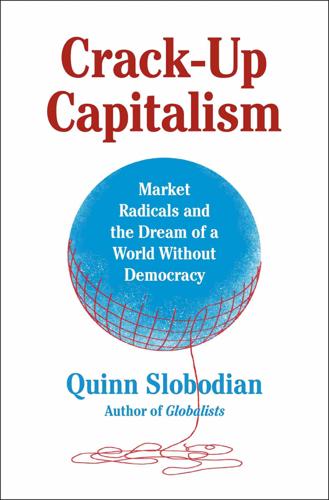
Crack-Up Capitalism: Market Radicals and the Dream of a World Without Democracy
by
Quinn Slobodian
Published 4 Apr 2023
This was what happened in 1960, as the two colonies merged to become the single state of Somalia. After less than a decade of relative democracy, Somalia descended into dictatorship under Siad Barre. But in the 1980s, forces built against him, starting in the north. By 1991, the country had fallen entirely into civil war, becoming the most notorious “failed state” of the decade. The UN launched a humanitarian and military peacekeeping mission that lasted until 1995, bringing in some thirty thousand troops and civilian support staff. Van Notten was in the middle of events. No longer an innocuous NGO consultant, he had found a patron in an insurgent military leader who was willing to take his advice on the design of a constitution for a future Somali state.
…
,” Journal of Economic Behavior & Organization, no. 67 (2008): 662. 73. Alex Tabarrok, “Somalia and the Theory of Anarchy,” Marginal Revolution, April 21, 2004, https://marginalrevolution.com/marginalrevolution/2004/04/somalia_and_the.html. 74. Christopher J. Coyne, “Reconstructing Weak and Failed States: Foreign Intervention and the Nirvana Fallacy,” Foreign Policy Analysis, no. 2 (2006): 345. 75. William J. Luther, “Money Without a State” (PhD diss., George Mason University, 2012). See also William J. Luther, “The Monetary Mechanism of Stateless Somalia,” Public Choice, no. 165 (2015): 45–58.
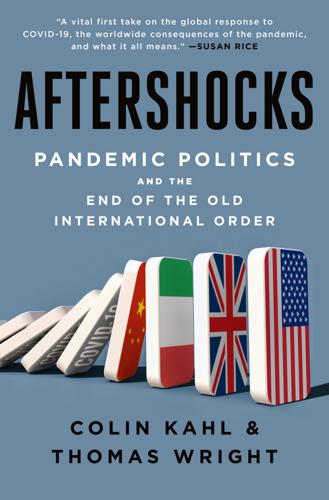
Aftershocks: Pandemic Politics and the End of the Old International Order
by
Colin Kahl
and
Thomas Wright
Published 23 Aug 2021
Authorities at both the federal and state levels failed to develop adequate programs for testing, contact tracing, and quarantining. George Packer of The Atlantic put it starkly in a June 2020 article: “Every morning in the endless month of March,” he wrote, “Americans woke up to find themselves citizens of a failed state.”93 The world took note. Writing in Foreign Affairs, former Australian prime minister Kevin Rudd said the international community “has seen what ‘America First’ means in practice: don’t look to the United States for help in a genuine global crisis, because it can’t even look after itself.”94 Much of the U.S. failure was Trump’s personal failure.
…
Nations looked after themselves and governments went in different directions domestically. A tiny few succeeded. Some of the most powerful, like the United States, failed catastrophically. While this was shocking, in retrospect it is not surprising. In the decade before COVID-19, the international order’s deterioration was hiding in plain sight. Failing states, yawning inequality, and mounting anxieties produced by globalization left hundreds of millions of people vulnerable, displaced, and dissatisfied. Democracies around the world suddenly found themselves on the back foot, besieged by forces from within and without. Nationalists and populists came to power in Turkey, Hungary, Brazil, and even the United States, while illiberal voices became louder in numerous other countries.
…
(New York: Columbia University Earth Institute National Center for Disaster Preparedness, 2020), https://ncdp.columbia.edu/custom-content/uploads/2020/10/Avoidable-COVID-19-Deaths-US-NCDP.pdf. 92. The U.S. death rate per 100,000 was 69 and Germany’s was 12.17. See Coronavirus Research Center, Johns Hopkins University, https://coronavirus.jhu.edu/data/mortality, accessed October 27, 2020. 93. George Packer, “We Are Living in a Failed State,” The Atlantic, June 2020, https://www.theatlantic.com/magazine/archive/2020/06/underlying-conditions/610261/. 94. Kevin Rudd, “The Coming Post-COVID Anarchy,” Foreign Affairs, May 6, 2020, https://www.foreignaffairs.com/articles/united-states/2020-05-06/coming-post-covid-anarchy. 95.
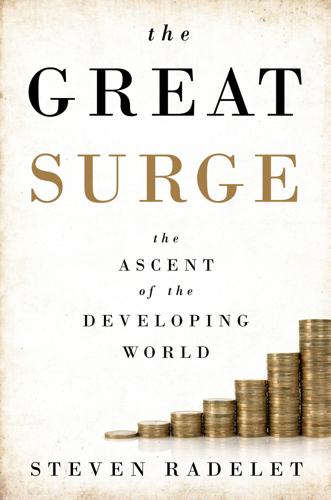
The Great Surge: The Ascent of the Developing World
by
Steven Radelet
Published 10 Nov 2015
Higher incomes, improved health, and stronger governance all reduce the threat of violence within developing countries, and reduce the potential for these countries to be used as launching points for violence and terrorism. The biggest threats to global security in recent years have come from groups operating in failed and failing states. Development brings stronger institutions, greater capacity for effective governance, less violence, and fewer security threats. As progress has accelerated in the last two decades, the number of civil wars in developing countries has been cut in half. This reduction in conflict makes the world a safer place for both rich and poor countries, and reduces the need for international military intervention.
…
If a future along these lines is achieved, the great surge of development progress that began in the 1960s and accelerated in the 1990s would be just the beginning of a decades-long transformation for hundreds of millions of people in developing countries, from deep poverty to modest prosperity. Millions more people will have incomes that will allow them to take care of their families, with less poverty, better health and education, and a wider range of basic freedoms. Far fewer countries will be failing states, and the world will be a far better place because of it. As I write in early 2015, there are many dark clouds forming on the horizon that could impede further advances. The global economy has not recovered fully from the 2008 financial crisis, and there are growing concerns as to whether the world’s leading economies and emerging markets can return to the pace of growth achieved before the crisis.
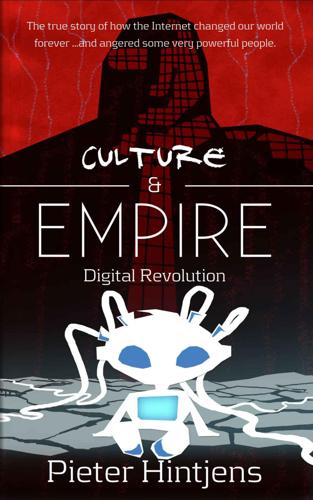
Culture & Empire: Digital Revolution
by
Pieter Hintjens
Published 11 Mar 2013
It worked in Bosnia and failed in Haiti, Iraq, and Afghanistan. It's expensive, dangerous, and only makes sense as part of a smash-and-grab operation on the largest scale. It certainly doesn't fix broken countries. I think the solution to fixing failed states like Congo-Kinshasa is to recognize that a government, whether "elected" or installed by violence or bluff, does not by itself create a valid state. When we recognize a failed state as a bandit gang, we see that the problem is the bandits and their economic model. The first step is to flag a country as sick when, like a person suffering from a mental disease, it becomes dysfunctional.
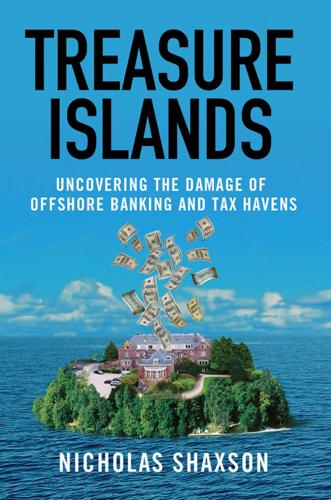
Treasure Islands: Uncovering the Damage of Offshore Banking and Tax Havens
by
Nicholas Shaxson
Published 11 Apr 2011
Like the term capital flight, it points the finger at the victim countries like Congo or Nigeria or Mexico—which, this language subtly insists, must be the focus of the cleanup. But each flight of capital out of a poor country must have a corresponding inflow somewhere else. Imagine how different that pledge would be if the G20 had promised to tackle “illicit inflows.” Bad tax systems are pushing some nations toward becoming failed states. “Countries that will not tax their elites but expect us to come in and help them serve their people are just not going to get the kind of help from us that they have been getting,” Hillary Clinton said in September 2010, to widespread and bipartisan applause. “Pakistan cannot have a tax rate of 9 percent of GDP when land owners and all of the other elites do not pay anything or pay so little it’s laughable, and then when there’s a problem everybody expects the United States and others to come in and help.”48 Leave aside for a moment the hypocrisy involved when the United States preaches to developing countries about abusive tax systems while welcoming tides of their illicit money and wrapping it in secrecy.
…
Competition between companies in a market is absolutely nothing like competition between jurisdictions on tax. Think about it like this: If a company cannot compete it may fail and be replaced by another that provides better and cheaper goods or services. This “creative destruction” is painful, but it is also a source of capitalism’s dynamism. But what happens when a country cannot “compete?” A failed state? That is a very different prospect. Nobody would, or could, as Mitchell put it, “shut down New Hampshire.” What does it actually mean for a country to be “competitive”? Governments obviously do not “compete” in any meaningful way to police their streets. They do, perhaps, compete to educate their citizens better, but this kind of “competition” points to higher taxes to pay for better education.
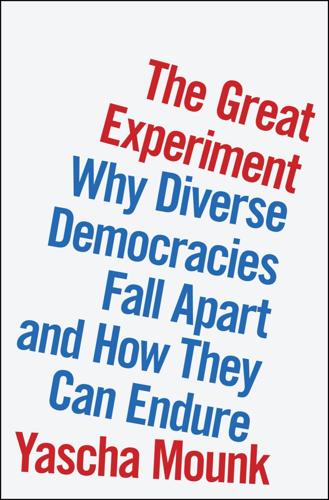
The Great Experiment: Why Diverse Democracies Fall Apart and How They Can Endure
by
Yascha Mounk
Published 19 Apr 2022
GO TO NOTE REFERENCE IN TEXT Some of the most dangerous places: Institute for Economics and Peace, Global Peace Index 2020: Measuring Peace in a Complex World (IEP: Sydney, Australia, June 2020), 9, https://reliefweb.int/sites/reliefweb.int/files/resources/GPI_2020_web.pdf. On Venezuela, see William Finnegan, “Venezuela, a Failing State,” New Yorker, November 6, 2016, https://www.newyorker.com/magazine/2016/11/14/venezuela-a-failing-state. On the Central African Republic, see Hans de Marie Heumgoup, “In Search of the State in the Central African Republic,” International Crisis Group, March 13, 2020, https://www.crisisgroup.org/africa/central-africa/central-african-republic/search-state-central-african-republic.
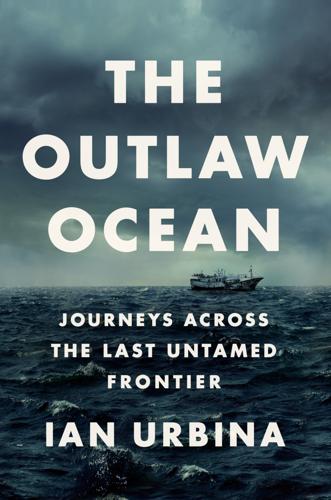
The Outlaw Ocean: Journeys Across the Last Untamed Frontier
by
Ian Urbina
Published 19 Aug 2019
And along with the locals, I was straining to tell the bureaucrats from the bandits, and the police from the outlaws. * * * · · · I’d been told that to understand Somalia, it was best not to think of it as a functioning nation, because it’s not. To outsiders, Somalia was a construct created by movies and news reports, a land awash in weapons and racked by famine. In UN parlance, it was a “failed state.” To insiders, Somalia was a loose collection of highly autonomous enclaves. This had been especially true since the civil war in 1991. Mogadishu was the seat of the feeble federal government, which controlled only a small portion of that city, to say nothing of its oversight of the rest of the country.
…
I would spend the next several weeks trying to make sense of my trip and, more specifically, figuring out who in Puntland among the private security forces, thieving local bureaucrats, and marauding offshore bandits were the real pirates. Then, best I could, I would write it all up in some straight-line explanatory narrative. No such luck. Something kept itching at me, and I was unable to stop asking questions. I could have written a good-news-turned-bad piece about maritime policing in a failed state, but this felt partial, trivializing even. I needed to look not just at the problems within Somalia but also the way other countries suffered from, took advantage of, and often worsened those same problems. This itch pestered me for the next nine months and it’s the reason I found myself on flights to the Maldives, Djibouti, Texas, then back to Thailand and Cambodia.
…
Likewise, Djibouti hadn’t allowed these seven Thai trawlers to fly its flag out of sympathy for their operators who wanted to evade Thailand’s new rules. Djibouti had simply seized on a business opportunity. My reporting in Somalia had not led to where I expected. Perhaps I should have known better. Really, who travels to a failed state looking for good news? From the moment I touched down in Mogadishu my journalistic compass had not stopped spinning. I strained to understand who could be trusted and which, if any, of the many armed groups patrolling the waters was in the right. In some small way, justice began catching up with the Thai trawlers for poaching in Somalia.
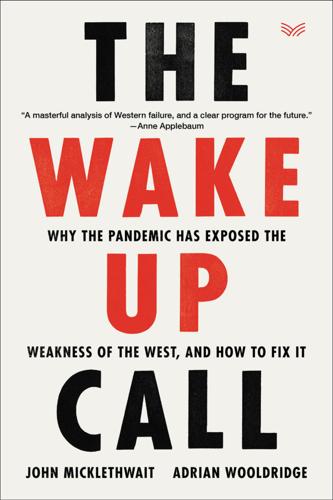
The Wake-Up Call: Why the Pandemic Has Exposed the Weakness of the West, and How to Fix It
by
John Micklethwait
and
Adrian Wooldridge
Published 1 Sep 2020
London, July 2020 Notes INTRODUCTION: WEEKS WHEN DECADES HAPPEN 1.We have used numbers throughout from the Bloomberg virus tracker, which is largely based on Johns Hopkins research. 2.Shalini Ramachandran, Laura Kusisto, and Katie Honan, “How New York’s Coronavirus Response Made the Pandemic Worse,” Wall Street Journal, June 11, 2020. 3.Chris Morris and Oliver Barnes, “Coronavirus: Which Regions Have Been Worst Hit?” BBC News, June 3, 2020. 4.George Packer, “We Are Living in a Failed State,” The Atlantic, June 2020. 5.Philip Wen and Drew Hinshaw, “China Asserts Claim to Global Leadership, Mask by Mask,” Wall Street Journal, April 1, 2020. 6.Wall Street Journal/NBC poll, June 7. 7.Boyd Hilton, A Mad, Bad, and Dangerous People? England 1783–1846 (Oxford: Oxford Univ. Press, 2006), 558. 8.Alice Tidey, “UK Records More New Covid-19 Deaths Than Entire EU Combined,” Euronews, June 4, 2020. 9.Caroline Wazer, “The Plagues That Might Have Brought Down the Roman Empire,” The Atlantic, March 16, 2016.
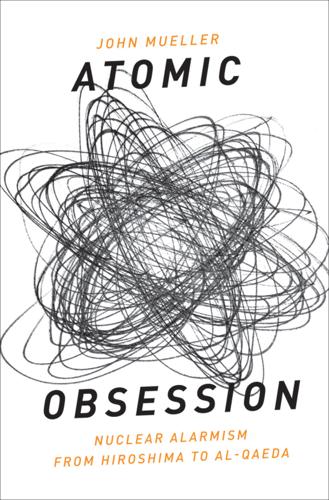
Atomic Obsession: Nuclear Alarmism From Hiroshima to Al-Qaeda
by
John Mueller
Published 1 Nov 2009
However, even under chaotic conditions, nuclear weapons would likely remain under heavy guard by people who know that a purloined bomb would most likely end up going off in their own territory, would still have locks (and, in the case of Pakistan would be disassembled), and could probably be followed, located, and hunted down by an alarmed international community. The worst-case scenario in this instance requires not only a failed state but a considerable series of additional conditions, including consistent (and perfect) insider complicity and a sequence of hasty, opportunistic decisions or developments that click flawlessly in a manner far more familiar in Hollywood scripts than in real life.17 It is conceivable that stolen bombs, even if no longer viable as weapons, would be useful for the fissile material that could be harvested from them.
…
Reporter: Linzer 2004a. Disassembled: Reiss 1995, 11, 13; Warrick 2007. Younger 2009, 153–54. See also Kamp 1996, 34; Wirz and Egger 2005, 502; Langewiesche 2007, 19; Levi 2007a, 125. 17. Pakistan disassembled: Warrick 2007. Taliban takeover a stretch: Cole 2009a, 158; 2009b. For a discussion of the failed state scenario, including useful suggestions for making it even less likely, see Levi 2007a, 133–38. 18. Wirz and Egger 2005, 502. See also Levi 2007a, 125. 19. Levi 2007a, 26; Lugar 2005, 17. See also Ferguson and Potter 2005, chs. 3–4. 20. Kamp 1996, 33; Garwin and Charpak 2001, 314; Keller 2002; Milhollin 2002, 46–47; Rees 2003, 44–45; Linzer 2004a; G.
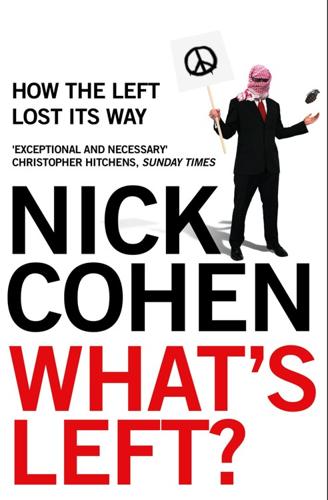
What's Left?: How Liberals Lost Their Way
by
Nick Cohen
Published 15 Jul 2015
George Packer, who had known Makiya for years, said his friend didn’t understand that for all their tough talk the neo-conservatives were far less worldly than they appeared. The Republicans had been out of the White House in the Nineties. Most of the party’s senior figures had treated the decade’s debates on humanitarian intervention and failed states with derision, and opposed the wars to stop ethnic cleansing in the former Yugoslavia as bleeding heart indulgences. They hadn’t thought about the mass migration of refugees, chemical weapons in the hands of terrorists and global crime. They hadn’t come to terms with the new age of warfare where the infantry had to be soldiers one minute and police officers the next.
…
Apathetic, isolated citizens who cannot even commit themselves to participating in an election are unlikely to commit themselves to war. Unfortunately, as globalization weakens the old bonds of national loyalty, so it brings new threats. Furious voices in Britain, America and Europe said it was foolish for their governments to pretend that Bosnia had nothing to do with them. The failed states of the former Yugoslavia were spewing refugees and crime gangs across Europe. Very prescient commentators noticed that outlandish groups of Islamist fanatics were springing up everywhere and using the refusal of the West to come to the aid of Bosnia’s Muslims as proof that an evil conspiracy of Christians and the Jews wanted to annihilate Islam.
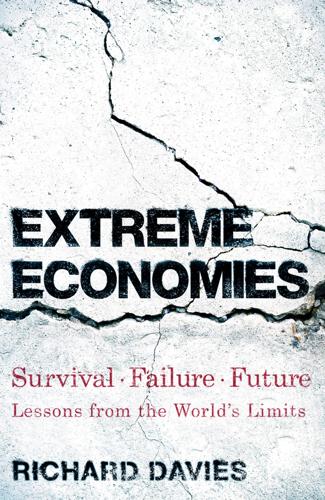
Extreme Economies: Survival, Failure, Future – Lessons From the World’s Limits
by
Richard Davies
Published 4 Sep 2019
All the Congolese I speak with say the same, and the foreign traders that are here – Lebanese restaurateurs, Indians running phone shops, Chinese tailors – all agree. The tax man calls each day and will cause you problems if you don’t comply, so you pay him to go away. The role of government here can take a while to sink in. This country tends to be held up as the archetypal ‘failed state’, with western coverage conjuring a government that is absent or passive and making it easy to imagine the Congolese capital as a place of decaying official buildings and unfilled civil-service positions. Kinshasa is nothing like this. The government thrives, with boulevards lined with the offices of countless ministries thronged by thousands of functionaries at knocking-off time.
…
B. (1991), ‘Mobutu: A Rich Man in Poor Standing’, Washington Post, 3 October. Stanley, H. M. (1878), Through the Dark Continent (London: Sampson Low, Marston, Searle & Rivington). Stearns, J. K. (2012), Dancing in the Glory of Monsters (New York: PublicAffairs). Trefon, T. (2009), ‘Public Service Provision in a Failed State: Looking Beyond Predation in the Democratic Republic of Congo’, Review of African Political Economy, 36 (119), 9–21. United Nations (1989), ‘Report on the Rehabilitation of the Mauluku Steel Mill (Sosider), Zaire’, United Nations Industrial Development Organization, PPD.112 (SPEC.), 21 March.
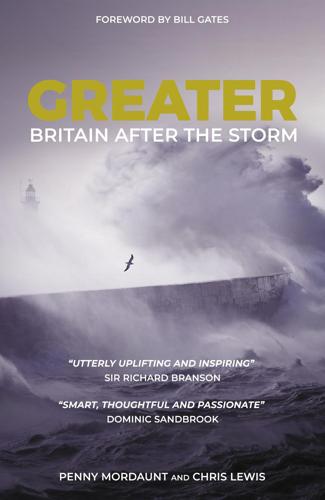
Greater: Britain After the Storm
by
Penny Mordaunt
and
Chris Lewis
Published 19 May 2021
Ken Livingstone was the leader of the GLC and took every opportunity to taunt the Westminster government from across the river. This was fondly remembered by all Conservatives in the 1980s and replicated in half a dozen cities. In a piece entitled ‘Someone to Blame, Someone to Sack: Why local government is a failed state’, Simon Jenkins wrote: ‘Britain hates provinces. It knows and prefers cities and counties. Regions may reflect Whitehall’s bureaucratic convenience, but they are poor substitutes for local identity.’36 In yet another example of local vs central government disagreements, in 2014 the then Chancellor, George Osborne, seized on Manchester as the base for his Northern Powerhouse,37 giving it powers and money.
…
NOTES 1 (Cabinet Secretary, Yes, Minister) 2 https://www.ons.gov.uk/employmentandlabourmarket/peopleinwork/publicsectorpersonnel/bulletins/publicsectoremployment/march2018 3 https://www.ons.gov.uk/employmentandlabourmarket/peopleinwork/publicsectorpersonnel/bulletins/publicsectoremployment/march2018 4 2014/5 data 5 https://www.centrefortowns.org/our-towns 6 https://www.gov.uk/government/publications/rural-population-and-migration/rural-population-201415 7 https://www.gov.uk/government/publications/rural-population-and-migration/rural-population-201415 8 https://lgiu.org/local-government-facts-and-figures-england/ 9 https://www.politics.co.uk/reference/local-government-structure 10 https://gov.wales/nhs-wales-health-boards-and-trusts 11 https://www.ukpublicspending.co.uk/government_expenditure.html 12 https://www.ukpublicspending.co.uk/uk_national_deficit_analysis 13 https://www.ukpublicspending.co.uk/uk_national_debt_analysis 14 https://www.ft.com/content/45163e43-1b21-4353-9a0e-ba03ee886075 15 https://www.theguardian.com/society/2012/may/15/graph-doom-social-care-services-barnet 16 https://www.theguardian.com/society/2012/may/15/graph-doom-social-care-services-barnet 17 https://www.instituteforgovernment.org.uk/publications/performance-tracker-2019 18 https://assets.publishing.service.gov.uk/government/uploads/system/uploads/attachment_data/file/685903/The_Green_Book.pdf 19 https://www.gov.uk/government/publications/consent-the-green-book-chapter-2 20 http://hummedia.manchester.ac.uk/schools/soss/economics/discussionpapers/EDP-1901.pdf 21 https://www.civilserviceworld.com/articles/opinion/whitehalls-obsession-business-cases-getting-way-delivery 22 https://assets.publishing.service.gov.uk/government/uploads/system/uploads/attachment_data/file/206552/nfa-annual-fraud-indicator-2013.pdf 23 https://www.theguardian.com/politics/2020/oct/07/fears-grow-over-uk-firms-ability-to-repay-covid-business-loans 24 https://assets.publishing.service.gov.uk/government/uploads/system/uploads/attachment_data/file/206552/nfa-annual-fraud-indicator-2013.pdf 25 https://www.telegraph.co.uk/news/uknews/1487145/Labour-activists-had-vote-rigging-factory-to-hijack-postal-votes.html 26 https://www.thetimes.co.uk/article/tower-hamlets-faces-vote-fraud-claims-tk7bxw09j 27 https://assets.publishing.service.gov.uk/government/uploads/system/uploads/attachment_data/file/503657/Fighting_fraud_and_corruption_locally_strategy.pdf 28 https://www.transparency.org.uk/publications/corruption-in-uk-local-government-the-mounting-risks/ 29 https://ecpr.eu/Filestore/PaperProposal/0b9ff538-85e4-480a-b43e-e7c0f6febfd3.pdf 30 https://www.gov.uk/government/publications/local-government-transparency-code-2015 31 https://en.wikipedia.org/wiki/Standards_Board_for_England 32 https://www.electoral-reform.org.uk/campaigns/local-democracy/ 33 https://www.conservativehome.com/localgovernment/2008/12/eric-pickles-th.html 34 Livingstone gave it the name: http://traquo.com/visiting-london-what-is-kens-bollock/ 35 https://www.instituteforgovernment.org.uk/sites/default/files/publications/IfG_All_change_report_FINAL.pdf 36 https://www.theguardian.com/commentisfree/2016/apr/27/local-government-failed-state-mayors-george-osborne-unpopular-plan 37 https://northernpowerhouse.gov.uk/ 38 https://www.local.gov.uk/sites/default/files/documents/Councillors%27%20Census%202018%20-%20report%20FINAL.pdf 39 https://www.local.gov.uk/sites/default/files/documents/Councillors%27%20Census%202018%20-%20report%20FINAL.pdf 40 https://www.instituteforgovernment.org.uk/sites/default/files/blog/wp-content/uploads/2015/11/1-Headcount-bar.png 41 https://ukandeu.ac.uk/towns-cities-and-brexit/ 42 https://www.amazon.com/Little-Platoons-Englands-forgotten-political/dp/1785905120 43 http://www.bbc.co.uk/nationonfilm/topics/steel/background.shtml 44 https://www.amazon.com/Little-Platoons-Englands-forgotten-political/dp/1785905120 45 https://www.theguardian.com/inequality/2018/sep/05/qa-how-unequal-is-britain-and-are-the-poor-getting-poorer 46 https://www.instituteforgovernment.org.uk/sites/default/files/publications/has-devolution-worked-essay-collection-FINAL.pdf 47 https://www.bgf.co.uk/ 48 https://www.theguardian.com/business/2011/oct/13/mergers-and-acquisitions-autonomycorporation 49 https://www.ons.gov.uk/peoplepopulationandcommunity/wellbeing/bulletins/socialcapitalintheuk/may2017 50 https://www.theguardian.com/society/2019/may/22/andy-haldane-bank-of-england-voluntary-sector-civil-society-technological-age 51 https://socialenterprise.us/about/social-enterprise/ 52 https://bigsocietycapital.com/ 53 https://www.greeninvestmentgroup.com/news/2016/gib-helps-finance-major-local-authority-streetlighting-project.html 54 https://www.cafonline.org/docs/default-source/about-us-policy-and-campaigns/giving-a-sense-of-place---philanthropy-and-the-future-of-uk-civic-identity.pdf 55 https://www.ukonward.com/thepoliticsofbelonging/ 56 https://www.centreforsocialjustice.org.uk/library/community-capital-how-purposeful-participation-empowers-humans-to-flourish 57 https://www.google.com/search?
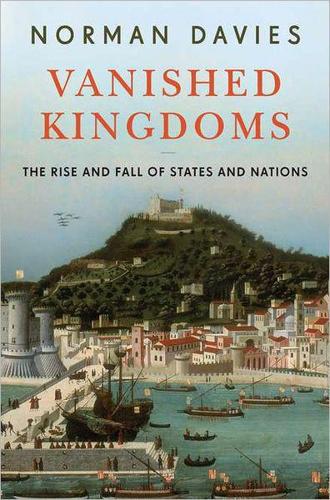
Vanished Kingdoms: The Rise and Fall of States and Nations
by
Norman Davies
Published 30 Sep 2009
To every historian’s despair, COW takes 1816 as the arbitrary start point of history, uses patently invalid definitions of state sovereignty and apparently (in studies written in the twenty-first century) does not yet include the USSR among its obituaries.16 It is a hopeful sign that a call has been made to revise the COW data.17 In the last decade, a further sub-field of study has appeared under the heading of ‘Failed States’. The term is clearly a misnomer, since the bodies concerned, though infirm, have still not reached the international graveyard. They should probably be called ‘Failing States’, and are said to be ‘in danger of disintegration’. As from 2005, an annual Index of sixty such invalids has been published, supported by quantitative measurements of their distress and dividing them into ‘critical’, ‘in danger’ and ‘borderline’.18 Somalia, Chad and Sudan topped the Index for 2010.
…
(Oxford, 2006). 15. Tanisha Fazal, State Death: The Politics and Geography of Conquest, Occupation and Annexation (Princeton, 2007). 16. ‘COW, Project History’, www.correlatesofwar.org/cowhistory.htm (2009). 17. Fazal, State Death, pp. 243–58. 18. ‘Index of Failed States, 2009’, from the journal Foreign Policy www.foreignpolicy.com/articles/2009/06/22/2009_failed_states_index_interactive_map_and_rankings (2010). 19. Monty Python’s Flying Circus, ‘Dead Parrot Sketch’, www.mtholyoke.edu/~ebarnes/python/dead-parrot.htm (2009). 20. www.en.wikipedia.org/wiki/list_of_extinct_states (2011). 21. John Locke, ‘Of the Dissolution of Government’, Two Treatises on Civil Government (1690; London, 1960), ch.

Vanished Kingdoms: The History of Half-Forgotten Europe
by
Norman Davies
Published 27 Sep 2011
To every historian’s despair, COW takes 1816 as the arbitrary start point of history, uses patently invalid definitions of state sovereignty and apparently (in studies written in the twenty-first century) does not yet include the USSR among its obituaries.16 It is a hopeful sign that a call has been made to revise the COW data.17 In the last decade, a further sub-field of study has appeared under the heading of ‘Failed States’. The term is clearly a misnomer, since the bodies concerned, though infirm, have still not reached the international graveyard. They should probably be called ‘Failing States’, and are said to be ‘in danger of disintegration’. As from 2005, an annual Index of sixty such invalids has been published, supported by quantitative measurements of their distress and dividing them into ‘critical’, ‘in danger’ and ‘borderline’.18 Somalia, Chad and Sudan topped the Index for 2010.
…
(Oxford, 2006). 15. Tanisha Fazal, State Death: The Politics and Geography of Conquest, Occupation and Annexation (Princeton, 2007). 16. ‘COW, Project History’, www.correlatesofwar.org/cowhistory.htm (2009). 17. Fazal, State Death, pp. 243–58. 18. ‘Index of Failed States, 2009’, from the journal Foreign Policy www.foreignpolicy.com/articles/2009/06/22/2009_failed_states_index_interactive_map_and_rankings (2010). 19. Monty Python’s Flying Circus, ‘Dead Parrot Sketch’, www.mtholyoke.edu/~ebarnes/python/dead-parrot.htm (2009). 20. www.en.wikipedia.org/wiki/list_of_extinct_states (2011). 21. John Locke, ‘Of the Dissolution of Government’, Two Treatises on Civil Government (1690; London, 1960), ch.
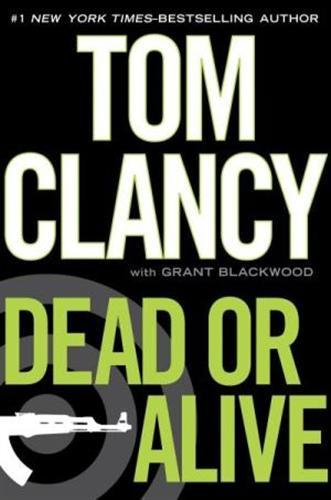
Dead or Alive
by
Tom Clancy
and
Grant (CON) Blackwood
Published 7 Dec 2010
Embling, you paint a bleak picture of Peshawar.” “Then I’ve given you an accurate portrayal. I’ve been here on and off for nearly four decades, and in my estimation Pakistan is at a tipping point. Another year or so should tell the tale, but the country’s about as close to being a failed state as it’s been in twenty years.” “A failed state with nuclear weapons,” Clark added. “Right.” “Why do you stay?” Chavez asked. “It’s my home.” A few minutes later Chavez said, “Back to the Hayatabad . . . What I’m wondering is who doesn’t live there?” “And a good question it is,” Embling said. “Though it’s a subjective measure the three big players here—the URC, Lashkar-e-Taiba, and Sipah-e-Sahaba, formerly Anjuman—are generally clustered around the Peshawar cantonment—the Old City—and the Saddar area.
…
With an inept and reactionary Edward Kealty at the country’s helm, the FBI and CIA would in due course unravel the identities of those responsible for the attacks, only to find carefully constructed and fully backstopped legends that would eventually lead directly to the doorstep of Pakistan’s Directorate for Inter-Services Intelligence and radicalized elements of the Pakistan Army General Staff, both long suspected to be less-than-enthusiastic supporters of the war on terror. Where the United States rightly invaded Afghanistan following 9/11, she would again react swiftly and overtly, expanding military operations east across the Safed Koh and Hindu Kush mountains. The inevitable destabilization of Pakistan, already a near-failed state, would, according to the Emir, create a power vacuum into which the Umayyad Revolutionary Council would step and take control of Pakistan’s substantial nuclear arsenal. “It’s plausible,” Jerry Rounds said. “Worst case, the plan succeeds; best case, we have to go into the area big, maybe quadruple our current presence.”
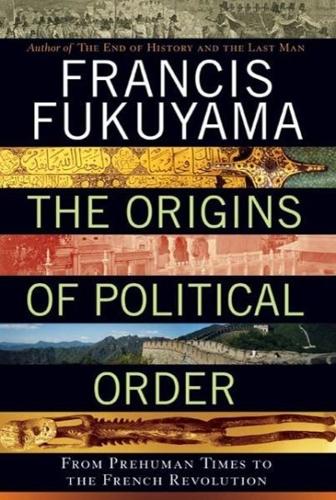
The Origins of Political Order: From Prehuman Times to the French Revolution
by
Francis Fukuyama
Published 11 Apr 2011
If we are seeking to understand the functioning of contemporary institutions, it is necessary to look at their origins and the often accidental and contingent forces that brought them into being. The concern over the origin of institutions dovetailed with a second preoccupation, which was the real-world problems of weak and failed states. For much of the period since September 11, 2001, I have been working on the problems of state and nation building in countries with collapsed or unstable governments; an early effort to think through this problem was a book I published in 2004 titled State-Building: Governance and World Order in the Twenty-first Century.2 The United States, as well as the international donor community more broadly, has invested a great deal in nation-building projects around the world, including Afghanistan, Iraq, Somalia, Haiti, Timor-Leste, Sierra Leone, and Liberia.
…
The danger, however, is that its situation will continue to worsen over time in the absence of some powerful force that will knock the system off its current dysfunctional institutional equilibrium. FANTASIES OF STATELESSNESS A common thread links many of our contemporary anxieties about the future, from authoritarian backsliding in Russia to corruption in India, to failed states in the developing world, to entrenched interest groups in contemporary American politics. It concerns the difficulties of creating and maintaining effective political institutions, governments that are simultaneously powerful, rule bound, and accountable. This might seem like an obvious point that any fourth grader would acknowledge, and yet on further reflection it is a truth that many intelligent people fail to understand.
…
GETTING TO DENMARK The problem of creating modern political institutions has been described as the problem of “getting to Denmark,” after the title of a paper written by two social scientists at the World Bank, Lant Pritchett and Michael Woolcock. 25 For people in developed countries, “Denmark” is a mythical place that is known to have good political and economic institutions: it is stable, democratic, peaceful, prosperous, inclusive, and has extremely low levels of political corruption. Everyone would like to figure out how to transform Somalia, Haiti, Nigeria, Iraq, or Afghanistan into “Denmark,” and the international development community has long lists of presumed Denmark-like attributes that they are trying to help failed states achieve. There are any number of problems with this agenda. It does not seem very plausible that extremely poor and chaotic countries could expect to put into place complex institutions in short order, given how long such institutions took to evolve. Moreover, institutions reflect the cultural values of the societies in which they are established, and it is not clear that Denmark’s democratic political order can take root in very different cultural contexts.

The Kingdom of Speech
by
Tom Wolfe
Published 30 Aug 2016
In his new role as an eminence, Chomsky hurled thunderbolts at malefactors down below, ceaselessly, at an astonishing rate…118 books, with titles such as Manufacturing Consent: The Political Economy of the Mass Media (coauthored by Edward S. Herman)…Hegemony or Survival: America’s Quest for Global Dominance…Profit over People: Neoliberalism and Global Order…Failed States (very much including the United States): The Abuse of Power and the Assault on Democracy…an average of 2 books per year…271 articles, at a rate of 4.7 per year120…innumerable speaking engagements, which finally got him out of the building and onto airplanes and before podiums far away. At the same time his output of linguistic papers continued apace, climaxing in 2002 with his and two colleagues’ theory of recursion.121 Recursion consists, he said, of putting one sentence, one thought, inside another in a series that, theoretically, could be endless.
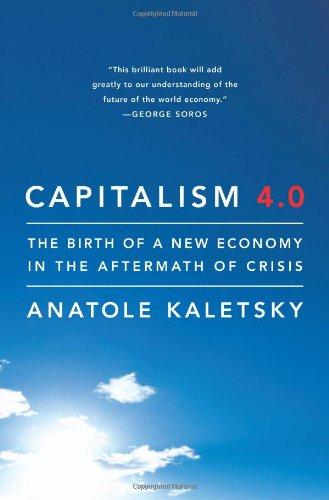
Capitalism 4.0: The Birth of a New Economy in the Aftermath of Crisis
by
Anatole Kaletsky
Published 22 Jun 2010
In a system of full capitalism, there should be (but, historically, has not yet been) a complete separation of state and economics, in the same way and for the same reasons as the separation of state and church.”2 Most serious political philosophers, sociologists, and economic historians have long realized that the opposite is true. Any society driven purely by market incentives will fail catastrophically, in economic as well as political terms. The freest, most incentive-driven market economies in the world are not the United States or Hong Kong or even tax havens such as the Cayman Islands but failed states and gangster societies such as Somalia, Congo, and Afghanistan.3 The overriding importance of political institutions in creating the conditions for successful capitalism has been established in great works of social scholarship going back to Adam Smith’s Theory of Moral Sentiments and Max Weber’s Protestant Ethic and the Spirit of Capitalism.4 But after the Thatcher-Reagan revolutions of the 1980s, business leaders, academic economists, and conservative politicians decided to ignore the historical realities described by sociologists and political scientists in favor of the oversimplified assumptions of market fundamentalist ideologues such as Ayn Rand.
…
Morgan Kahn, Richard Kahneman, Daniel Kaldor, Nicholas Kalecki, Michal Keynes/Keynesian economics “animal spirits,” biography of Keynes boom-bust cycles explanation Capitalism and Golden Age ideas/policies mathematics and See also Economics eras/second; Macroeconomics Khrushchev, Nikita King, Mervyn Knight, Frank Krugman, Paul Kuhn, Thomas Labor unions stagflation and unemployment and Lagarde, Christine Laissez-faire philosophy Lehman Brothers capitalism transition and saving scenario/effects Lehman Brothers collapse chain reaction from confidence collapse and effects GSE seizure and share price plunge Limits to growth/physical resources Lloyds Lockhart, James MacDonald, Ramsay Macroeconomics economics eras/second new classical school and recovery from financial crisis See also Capitalism 4.0/economic policy; Keynes/Keynesian economics Mad Max (movie) Mad Max Paradox Mahbubani, Kishore Mandela, Nelson Mandelbrot, Benoit Mark-to-market accounting/effects Market fundamentalism description economic recovery and failed states and financial crisis of 2007-09 and flaws/dangers of imaginary world of oil prices/shock (2008) and progressive taxation and term See also Economics eras/third; Monetarism; specific individuals; Thatcher-Reagan revolution Marris, Robin Marx, Karl on capitalism social problems and Masters, Michael Mathematics in economics normal distribution use oversimplification and “science” and McCarthy, Joe Meade, James Medicare/Medicaid, U.S.
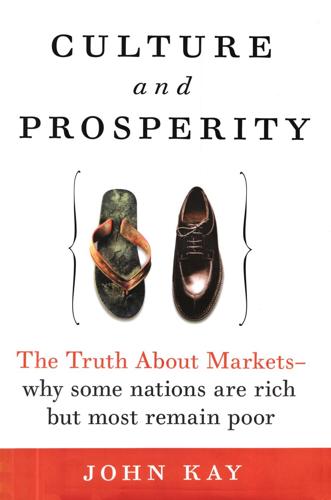
Culture and Prosperity: The Truth About Markets - Why Some Nations Are Rich but Most Remain Poor
by
John Kay
Published 24 May 2004
There's no gun control in Angola. There's no welfare as we know it in Burundi, and no big gov- {284} John Kay ernment to interfere in the market in Rwanda. But a lot of their people sure wish there were." 28 The "governments" of these countries are corrupt businesses, more akin to the Mafia than to public services. "Failed states" describe situations-as in Afghanistan or Somalia-where no group of warlords is sufficiently dominant to be described as government, in contrast to the monopoly of oppression in Saddam's Iraq, Mobutu's Zaire, and Mugabe's Zimbabwe. Rich states function through a variety of established social conventions and political institutions, which were not successfully transplanted to Africa during short periods of colonial occupation. 29 Dependencia ••••••••••••••••••••••••••••••••••••• Colonial regimes in countries of settlement put in place the building blocks of successful market economies.
…
Eastern Europe ••••••••••••••••••••••••••••••••••••• The gap between expectation and achievement was wide in Eastern Europe, and these countries achieve particularly low scores for self-reported happiness. 40 The collapse of Soviet influence in Eastern Europe in the late 1980s, followed by the disintegration of the Soviet Union itself, created many and varied new states. The architecture of the capital cities of Slovenia, Hungary, and the Czech Republic demonstrates the strength of their European heritage. Tiny Baltic countries like Estonia and Latvia look naturally to Scandinavia, failed states like Romania and Moldova sit on the edge of Europe, and Tajikistan and Uzbekistan enjoy an uneasy relationship with other Asian Islamic republics. Experience since the communist collapse has varied widely. The most successful economies were always geographically and culturally close to established rich states ofWestern Europe.
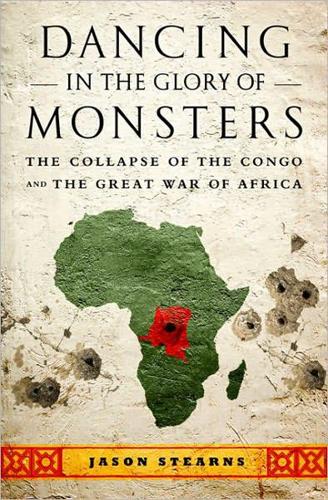
Dancing in the Glory of Monsters: The Collapse of the Congo and the Great War of Africa
by
Jason Stearns
Published 29 Mar 2011
—“RWANDA: HOW THE GENOCIDE HAPPENED,” BBC GISENYI, RWANDA, JULY 17, 1994 To the east of the Congo, in the heart of the African continent, lie the highlands of Rwanda. The country is tiny, the size of Massachusetts, and has one of the highest population densities in the world. This is not the Africa of jungles, corruption, and failed states portrayed in movies. Temperatures fall to freezing on some hilltops, cattle graze on velvety pastures, and the government maintains a tight grip on all aspects of society. On the thousands of hills—in between tea plantations and eucalyptus groves—millions of peasants eke out a living by farming beans, bananas, and sorghum.
…
Over five million people have died, and hundreds of thousands of women have been raped.2 If anything should be important, it is the deaths of five million people. Or is it? The Congo war is actually rarely seen as a problem of joint humanity. Instead, it is either portrayed in western media as an abject mess—a morass of rebel groups fighting over minerals in the ruins of a failed state—or as a war of good versus evil, with the role of villain played alternatively by the Rwandan government, international mining companies, the U.S. government, or Congolese warlords. In the twenty-four-hour news cycle, in which international news is devoted largely to the war on terror and its spin-offs, there is little interest in a deeper understanding of the conflict, little appetite for numbers as unimaginably large as five million.
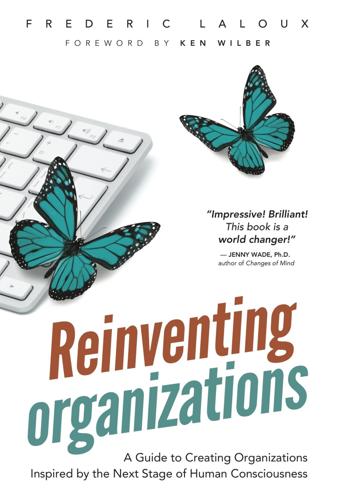
Reinventing Organizations: A Guide to Creating Organizations Inspired by the Next Stage of Human Consciousness
by
Frederic Laloux
and
Ken Wilber
Published 9 Feb 2014
Impulsive-Red functioning can still be found in adults in many tribal societies in the world today and in underprivileged areas amidst developed societies, when circumstances don’t provide adequate nurture for children to develop beyond this stage. Every paradigm has its sweet spot, a context in which it is most appropriate. Impulsive-Red is highly suitable for hostile environments: combat zones, civil wars, failed states, prisons, or violent inner-city neighborhoods. Red Organizations Organizations molded in Impulsive-Red consciousness first appeared in the form of small conquering armies, when the more powerful chiefdoms grew into proto-empires. They can still be found today in the form of street gangs and mafias.
…
Mythical stories about his absolute power frequently make the rounds, to keep foot soldiers from vying for a higher prize. Present-centeredness makes Red Organizations poor at planning and strategizing but highly reactive to new threats and opportunities that they can pursue ruthlessly. They are therefore well adapted to chaotic environments (in civil wars or in failed states) but are ill-suited to achieve complex outcomes in stable environments where planning and strategizing are possible. Conformist—Amber paradigm8 Every paradigm shift opens up unprecedented new capabilities and possibilities. When Conformist-Amber consciousness emerged, humankind leaped from a tribal world subsisting on horticulture to the age of agriculture, states and civilizations, institutions, bureaucracies, and organized religions.
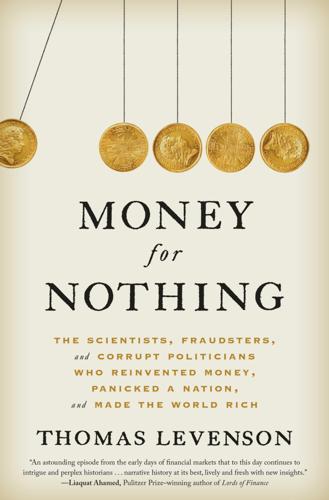
Money for Nothing
by
Thomas Levenson
Published 18 Aug 2020
A common, easy explanation for France’s lackluster fiscal outcome is that a feckless French court stumbled from one financial disaster to another as a sequence of overmatched rulers tumbled inexorably to their doom. We know how the story ends, after all, in revolution, regicide, and terror. But French rulers were not all financial illiterates, nor was France itself remotely a failed state. Its officials attempted various expedients, which along with the occasional bump in tax revenue brought the French budget almost into balance as late as 1774—while the national debt had been managed well enough to that point that as a proportion of state revenue it cost just half as much as it had at its peak under Louis XIV.
…
THE FRENCH GOVERNMENT COULDN’T RAISE MONEY EASILY Larry Neal, “How It All Began: The Monetary and Financial Architecture of Europe During the First Global Capital Markets, 1648–1815,” Financial History of Review 7 (October 2000): 133. FRANCE WAS AT LEAST TWICE AS RICH AS ITS ADVERSARY Thomas J. Sargent and François R. Velde, “Macroeconomic Features of the French Revolution,” Journal of Political Economy 103, no. 3 (June 1995): 489. NOR WAS FRANCE ITSELF REMOTELY A FAILED STATE Sargent and Velde, “Macroeconomic Features,” p. 480. FRANCE ITSELF REMAINED RICH See Phillip T. Hoffman, Gilles Postel-Vinay, and Jean-Laurent Rosenthal, Priceless Markets: The Political Economy of Credit in Paris, 1660–1870 (Chicago: University of Chicago Press, 2000), p. 101, fig. 5.2.
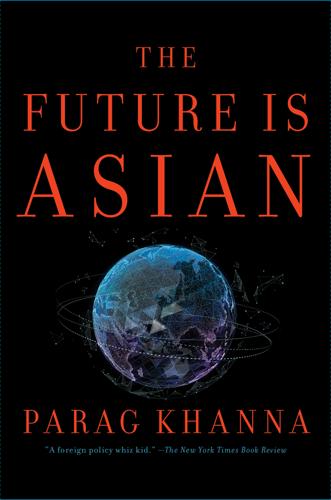
The Future Is Asian
by
Parag Khanna
Published 5 Feb 2019
This seems ever more appropriate as the Gulf petromonarchies trade far more with other Asians than with the West.13 In fact, in the late 1990s, Arab oil producers began to lock in long-term contracts with energy-thirsty Asian powers the way they used to with Europe and America. With East and South Asians driving global economic growth and West Asians reorienting toward them, the Asian failed states in between such as Iraq and Afghanistan are also closing their chapters of US occupation and plotting their futures within the Asian system. THINK PPP FOR GDP: ASIANS PAY ASIAN PRICES FOR ASIAN GOODS. Measured in PPP terms, China has already surpassed the United States as the world’s largest economy, while Asia as a whole represents about half of global GDP.
…
They would much rather work out their differences with their regional peers than depend on the United States to arbitrate them. North Korea will be the true test of whether Northeast Asia can move from strategic suspicion to tactical adjustments. North Korea has been thought of as an isolated failed state, but the fact that its covert nuclear program has had links as far as Pakistan’s A. Q. Khan nuclear-smuggling network, its chemical weapons program to Syria’s Bashar al-Assad, its ballistic missile program to Iran, and its cybersurveillance tools to Russia, are all evidence of the seedier side of the Asian system.
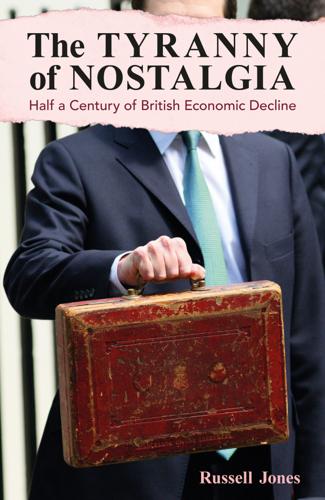
The Tyranny of Nostalgia: Half a Century of British Economic Decline
by
Russell Jones
Published 15 Jan 2023
In the immediate post-war years, it was no exaggeration to say that the typical British attitude was to look down on the rest of Europe, where democracy had proved incapable of resisting fascism in the 1930s, and with much of the continent having suffered military defeat, or surrender. Britain found itself in a quite different situation. It was not a failed state that had been occupied, and although it had paid a heavy physical and financial price for its role in defeating Nazi Germany, there was no lack of faith in its political institutions. Supranational solutions that reduced national sovereignty therefore had less resonance than they did elsewhere in Europe, and the British population had little confidence that they could rely on the rest of Europe for protection against the Soviet Union.
…
Central bank purchases of public sector debt and deliberate efforts to accelerate the expansion of the money supply had historically been associated with ‘fiscal dominance’, and with traumatic losses of price stability and sometimes bouts of hyperinflation.29 In the modern era, such practices tended to be confined to dictatorships and failed states. The government was assiduous, however, about abiding by a number of important institutional guard rails to ensure that such pitfalls were avoided. The Bank retained its operational independence and the MPC employed the same personnel and procedures to reach and explain policy decisions. The 2% inflation target remained the focal point of monetary policy.

In Praise of Idleness and Other Essays
by
Bertrand Russell
Published 1 Jan 1935
Men save money and invest it, in the hope of having something to live on when they become old and infirm, and of being able to prevent their children from sinking in the social scale. In former days, this hope was rational, since there were such things as safe investments. But now security has become unattainable : the largest businesses fail, States go bankrupt, and whatever still stands is liable to be swept away in the next war. The result, except for those who continue to live in a fool’s paradise, is a mood of unhappy recklessness, which makes a sane consideration of possible remedies very difficult. Economic security would do more to increase the happiness of civilized communities than any other change that can be imagined, except the prevention of war.

What Kind of Creatures Are We? (Columbia Themes in Philosophy)
by
Noam Chomsky
Published 7 Dec 2015
.: Princeton University Press, 2010). 10. Elizabeth Rosenthal, “Health Care’s Road to Ruin,” New York Times, December 21, 2013; Gardiner Harris, “In American Health Care, Drug Shortages Are Chronic,” New York Times, October 31, 2004. 11. Kaiser Health Tracking Poll, April 2009. On polls, see Noam Chomsky, Failed States: The Abuse of Power and the Assault on Democracy (New York: Metropolitan Books / Holt, 2006), chap. 6. On constitutional right, see Robert H. Wiebe, Self-Rule: A Cultural History of American Democracy (Chicago: University of Chicago Press, 1995), 239. 12. Conor Gearty, Liberty and Security (Malden, Mass.: Polity, 2013). 13.
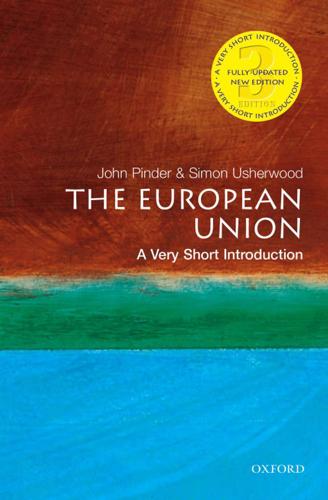
The European Union
by
John Pinder
and
Simon Usherwood
Published 1 Jan 2001
More broadly, it has much experience of assisting with the development of political, judicial, and administrative institutions, and the structures of civil society, particularly among Central and East European states preparing themselves for accession, as well as in the West Balkans and farther afield; and this has great potential importance for wider application in a world in which failed or failing states can be a serious security risk, while solidly based democracies can contribute much to stable international relations. The environment is also a vital aspect of security, with climate change among the gravest threats to the welfare, and perhaps the lives, of the world’s people; and the Union has made the major contribution to international efforts to deal with it.
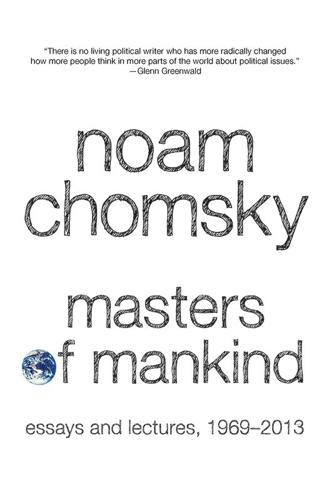
Masters of Mankind
by
Noam Chomsky
Published 1 Sep 2014
Since receiving his Ph.D., Chomsky has taught at Massachusetts Institute of Technology, where he is Institute Professor (Emeritus) in the Department of Linguistics and Philosophy. His work is widely credited with having revolutionized the field of modern linguistics. Chomsky is the author of numerous best-selling political works that have been translated into scores of countries worldwide. His most recent books are the New York Times bestseller Hegemony or Survival, Failed States, Imperial Ambitions, What We Say Goes, Interventions, Occupy, and Hopes and Prospects (Haymarket Books). Haymarket Books is reissuing twelve of his classic works in new editions starting in 2014. His web site is www.chomsky.info.
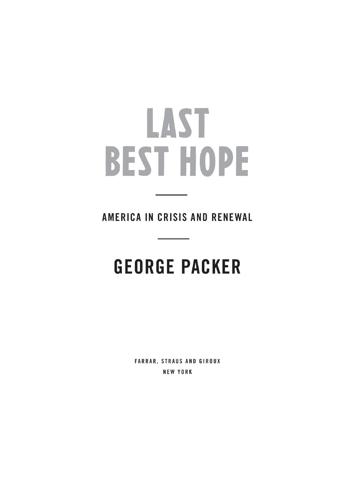
Last Best Hope: America in Crisis and Renewal
by
George Packer
Published 14 Jun 2021
Families and organizations were left to make their decisions alone: go on riding the train, keep the office open, send the kids to school, visit friends? Or cancel everything, buy the last rolls of toilet paper, and take shelter? Americans woke up every morning to a feeling that was for many of us—though not all—radically new: our government didn’t care if we died. It felt as if we were living in a failed state. Those early days reminded me of experiences I’ve had in other countries, like Iraq or Sierra Leone, where the state is too weak or indifferent to take care of its citizens, where the leaders are too corrupt or stupid to head off mass suffering. People unlucky enough to live in such places don’t expect the government to place any value on their lives.

Data and Goliath: The Hidden Battles to Collect Your Data and Control Your World
by
Bruce Schneier
Published 2 Mar 2015
Morgan Marquis-Boire et al. (15 Jan 2013), “Planet Blue Coat: Mapping global censorship and surveillance tools,” Citizen Lab, Munk School of Global Affairs, University of Toronto, https://citizenlab.org/2013/01/planet-blue-coat-mapping-global-censorship-and-surveillance-tools. Netsweeper is a … filtering product: Adam Senft et al. (20 Feb 2014), “Internet filtering in a failed state: The case of Netsweeper in Somalia,” Citizen Lab, Munk School of Global Affairs, University of Toronto, https://citizenlab.org/2014/02/internet-filtering-failed-state-case-netsweeper-somalia. Helmi Noman et al. (20 Jun 2013), “O Pakistan, we stand on guard for thee: An analysis of Canada-based Net-sweeper’s role in Pakistan’s censorship regime,” Citizen Lab, Munk School of Global Affairs, University of Toronto, https://citizenlab.org/2013/06/o-pakistan.
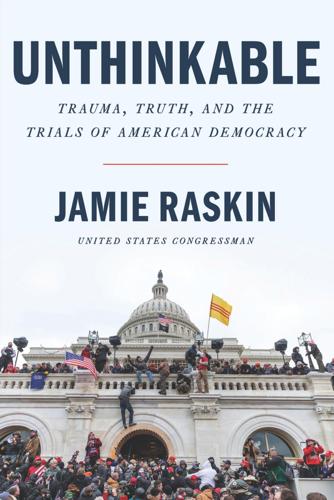
Unthinkable: Trauma, Truth, and the Trials of American Democracy
by
Jamie Raskin
Published 4 Jan 2022
My Republican colleagues went from collaborating with Trump’s sinister denial of the threat of COVID-19 to covering up for his bizarre promotion of quack medical cures (like hydroxychloroquine and injecting oneself with bleach) to the outrageous embrace of “herd immunity” as the nation’s strategy, which meant just letting the disease wash over the population and kill untold numbers of vulnerable people. Trump and his collaborators were turning the richest and most scientifically advanced nation on earth into a failed state, defined as a nation that cannot deliver the basic goods of existence to its own people. That would include the essential good of protection against deadly diseases. The U.S. response to COVID-19 was a historic debacle that will be studied forever as a test case for public health catastrophes, what not to do when a pandemic happens.
…
Do we have, deep within our national politics and deep within our souls, the political vision and social cohesion necessary to make the democratic structural changes we need? I wonder. If we don’t, then we had better find them soon. The alternative of proceeding along the present path of chaos is dangerous to us all. In an authoritarian society, a dictatorship, or a failed state, the mental and emotional health of the population is, at best, irrelevant to the government, and it may in fact be dangerous to the government. The ruling class is no more interested in uplifting the mental and emotional health of the population than it is interested in promoting mass education, public literacy, or the physical health of the public.
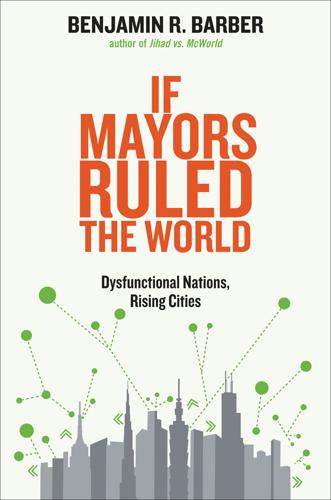
If Mayors Ruled the World: Dysfunctional Nations, Rising Cities
by
Benjamin R. Barber
Published 5 Nov 2013
Only when nations collapse and their sovereignty evaporates (when they are without the capacity to defend and protect their own people) can they be occupied or “integrated” without compromising their independence—since they no longer are independent. This was the case in Germany and Japan after World War II and has occasionally justified intervention in failed states or under conditions of internal genocide (Rwanda during the liquidation of Tutsis there) or utter lawlessness (Somalia in the 1990s), where sovereignty’s first obligations (right to life) have been internally forfeited. Even here, there is the danger that a powerful foreign power will claim internal collapse or putative genocide in order to intervene and infringe another nation’s sovereignty.
…
In Chicago, “the violence has left its largest scars in one of Chicago’s most impoverished, strolling neighborhoods . . . places within view of the city’s gleaming downtown skyline that feel worlds apart.”65 In Mexico, where criminal syndicates infiltrate and corrupt police and political hierarchies, there is almost the feel of a failed state; once again it is the poor who suffer most from the ensuing mayhem, along with the journalists trying to chronicle the slaughter.66 In Afghanistan, where 90 percent of the world’s opium is produced, corruption is a way of life from the president on down. It couldn’t exist without the markets in which it is sold, where users point to the evils of third-world narco-states with one hand while scoring a bag with the other.
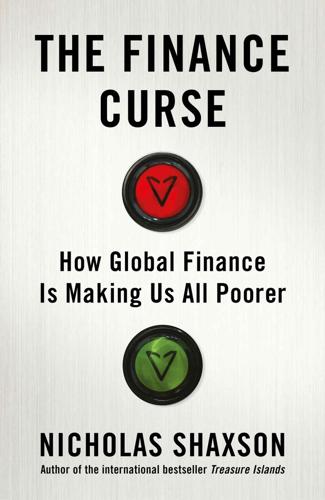
The Finance Curse: How Global Finance Is Making Us All Poorer
by
Nicholas Shaxson
Published 10 Oct 2018
For starters, a moment’s thought reveals that ‘competition’ between countries or tax systems bears no resemblance whatsoever to competition between companies in a market. To get a taste of this, ponder the difference between a failed company like Carillion or Enron and a failed state like Somalia a few years back. When a company fails it is sad, but hopefully its employees will get new jobs, and the creative destruction involved when companies compete in markets can be a source of dynamism for capitalism. A failed state, involving warlords and murder and nuclear trafficking, is an utterly different beast. They only thing they really have in common is a shared word in the English language: competition.
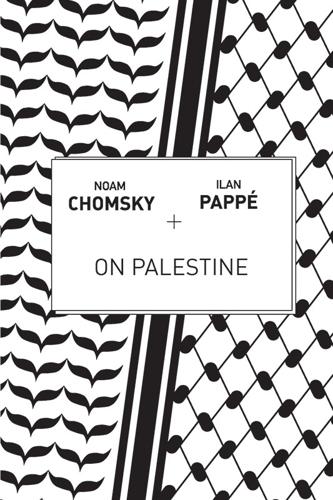
On Palestine
by
Noam Chomsky
,
Ilan Pappé
and
Frank Barat
Published 18 Mar 2015
About the Contributors © Florent Barat Noam Chomsky is Institute Professor in the Department of Linguistics and Philosophy at the Massachusetts Institute of Technology, Boston. He is widely regarded as one of the foremost critics of U.S. foreign policy in the world. His books include At War with Asia, Towards a New Cold War, Fateful Triangle, Necessary Illusions, Hegemony or Survival, Deterring Democracy, Failed States, and Manufacturing Consent. Professor Ilan Pappé is the Director of the European Center for Palestine Studies and a fellow at the Institute of Arab and Islamic Studies at the University of Exeter. He is the author of fifteen books, among them The Ethnic Cleansing of Palestine and his most recent book, The Idea of Israel: A History of Power and Knowledge.
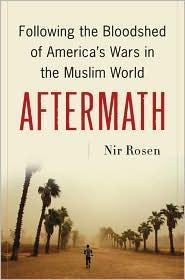
Aftermath: Following the Bloodshed of America's Wars in the Muslim World
by
Nir Rosen
Published 21 Apr 2011
Following the U.S. invasion of Afghanistan in 2001, Zarqawi made his way through Iran to autonomous Kurdistan in northern Iraq—a point worth noting, since the Bush administration claimed Zarqawi’s presence in Iraq was proof of an Al Qaeda connection. But Zarqawi linked up with the terrorist group Ansar al-Islam in a region outside Saddam’s reach. With Saddam removed from power on April 9, 2003, Zarqawi had a new failed state to operate in. By the summer of 2003 he had claimed responsibility for the devastating attack against the United Nations headquarters in Baghdad’s Canal Hotel. Zarqawi allied himself with Ansar al-Sunna, the reconstituted Ansar al-Islam, which was composed mostly of Iraqis, whereas the members of Zarqawi’s Tawhid and Jihad group were mostly foreign Arabs.
…
Islamist websites and Internet forums carried demands to establish a Sunni jihadist front in Lebanon. Other jihadists fled Iraq, disgusted with the sectarian fighting or pressure from the growing power of the American-backed Sunni militias in the Anbar province. Hunted in Jordan and Syria, they found Lebanon—with its failed state, lawless refugee camps, and sectarian strife—was their only safe haven. Zawahiri’s statement in July 2007 praised an attack against United Nations peacekeepers in southern Lebanon. ONE DAY THAT MONTH, I visited Ayn al-Hilweh for a funeral in the late afternoon. Soon after I arrived calls to prayer echoed from all the mosques in the camp.
…
One of the many ramifications of this is that the United States is yet again involving itself in forms of spiraling violence whose outcomes are unpredictable and whose unintended consequences will be keeping it busy for decades to come. Part Three THE SURGE CHAPTER SEVEN “Iraqi Solutions for Iraqi Problems” BY LATE 2006 IRAQ SEEMED LOST, A FAILED STATE, HEADING TOWARD Rwanda and threatening to provoke a regional conflict. There was finally a sense among Americans in Baghdad that things were going wrong. The First Cavalry Division of the U.S. Army—known as the “First Team”—took over the headquarters of Multi-National Division Baghdad (MND-B), the major U.S. military unit responsible for the city of Baghdad, in November 2006.
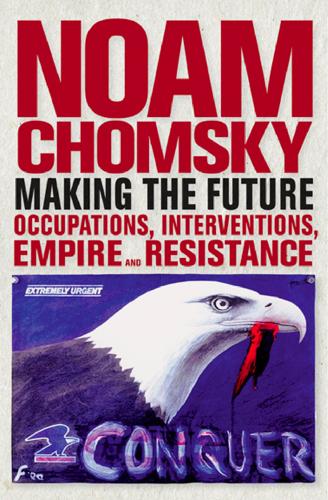
Making the Future: The Unipolar Imperial Moment
by
Noam Chomsky
Published 15 Mar 2010
In 1961, Chomsky was appointed full professor in the Department of Modern Languages and Linguistics (now the Department of Linguistics and Philosophy) at MIT. From 1966 to 1976 he held the Ferrari P. Ward Professorship of Modern Languages and Linguistics. In 1976 he was appointed Institute Professor, a position he held until 2002. Chomsky is the author of numerous influential political works, including Failed States (Metropolitan Books), Hegemony or Survival: America’s Quest for Global Dominance (Metropolitan Books), 9/11 (Open Media Series/Seven Stories Press), Manufacturing Consent: The Political Economy of the Mass Media with Ed Herman (Pantheon), Necessary Illusions (South End Press), Understanding Power (New Press), Interventions (Open Media Series/City Lights), Hopes and Prospects (Haymarket) and many other titles.
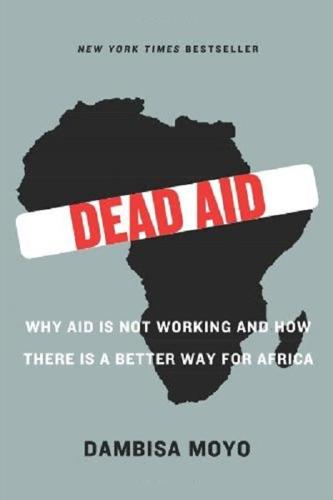
Dead Aid: Why Aid Is Not Working and How There Is a Better Way for Africa
by
Dambisa Moyo
Published 17 Mar 2009
Since 1996, eleven countries have been embroiled in civil wars (Angola, Burundi, Chad, Democratic Republic of Congo, Republic of Congo, Guinea Bissau, Liberia, Rwanda, Sierra Leone, Sudan and Uganda).8 And according to the May 2008 annual Global Peace Index, out of the ten bottom countries four African states are among the least peaceful in the world (in order, Central African Republic, Chad, Sudan and Somalia) – the most of any one continent. Why is it that Africa, alone among the continents of the world, seems to be locked into a cycle of dysfunction? Why is it that out of all the continents in the world Africa seems unable to convincingly get its foot on the economic ladder? Why in a recent survey did seven out of the top ten ‘failed states’ hail from that continent? Are Africa’s people universally more incapable? Are its leaders genetically more venal, more ruthless, more corrupt? Its policymakers more innately feckless? What is it about Africa that holds it back, that seems to render it incapable of joining the rest of the globe in the twenty-first century?
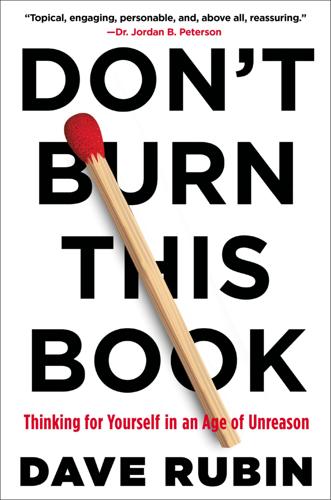
Don't Burn This Book: Thinking for Yourself in an Age of Unreason
by
Dave Rubin
Published 27 Apr 2020
It is also what Obama did when we attacked Libya with his “kinetic military action”—a move that wasn’t even approved by Congress. This “action” ended up being such a colossal failure that what’s left of Libya remains a barely functioning country. Yeah, he brought down Colonel Gaddafi, who was a brutal dictator to say the least, but things ended up being worse off. Instead of becoming a democracy, it’s now a failed state in which violent deaths are commonplace, rival militias fight for power, and the Islamic State group (ISIS) has influence. Regardless of your political affiliation, there’s no way this can be considered a success story for U.S. foreign policy. Even Obama has described it as his “worst mistake” while in office.

Clean Agile: Back to Basics
by
Robert C. Martin
Published 13 Oct 2019
I want all the programmers to stop what they are doing and rally around the build to get it passing again. The mantra of the team must be The Build Never Breaks. The Cost of Cheating There have been teams who, under the pressure of a deadline, have allowed the continuous build to remain in a failed state. This is a suicidal move. What happens is that everyone gets tired of the continuous barrage of failure emails from the continuous build server, so they remove the failing tests with the promise that they’ll go back and fix them “later.” Of course, this causes the continuous build server to start sending success emails again.
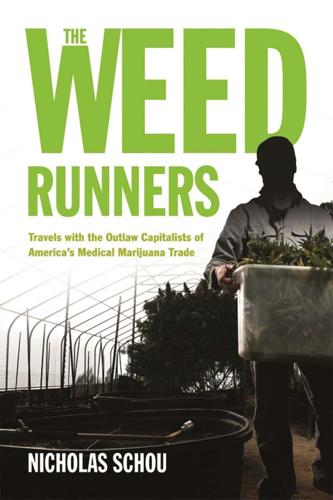
The Weed Runners: Travels With the Outlaw Capitalists of America's Medical Marijuana Trade
by
Nicholas Schou
Published 31 Aug 2013
It’s been fifteen years since California voters overwhelmingly passed Proposition 215, legalizing marijuana for state residents with a legitimate doctor’s recommendation, and there’s no evidence Byron or Grumbine “sold” pot to anyone who didn’t fit that description. And in November 2010, a majority of Long Beach residents voted to support Proposition 19, the failed state initiative that would have legalized marijuana for recreational use, and a whopping 73 percent of city residents voted in favor of a municipal measure to tax the dozens of marijuana dispensaries operating within the city. Meanwhile, unlike Mark Moen, neither Byron nor Grumbine were caught red-handed with hundreds of thousands of dollars in cash or a trunk full of recently harvested Emerald Triangle weed.

Practical Anarchism: A Guide for Daily Life
by
Scott. Branson
Published 14 Jun 2022
I wrote this book in the immediate wake of the Covid-19 pandemic and George Floyd rebellions, which have further built up anarchist practices of direct action and world-building and helped form a new generation of people looking to non-state, mundane ways of finding freedom—spreading globally from the USA outward through international solidarity. We are still in this moment, where the legacy of protest movements is entangled with occupations, and there are ongoing mutual aid projects across the world providing people with resources in the face of failed state efforts. Large numbers of people around the world have been forced into direct conflict with the state, regardless of their political ideology, and thus have faced the truth of the state’s rule, which involves wanton violence against its own population should they dare to do things for themselves.
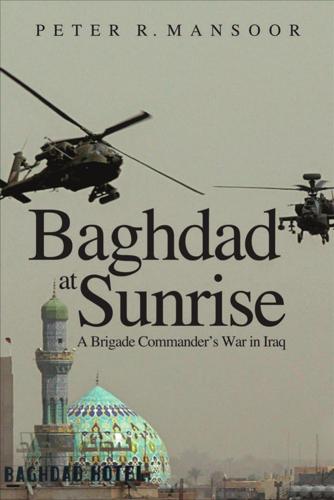
Baghdad at Sunrise: A Brigade Commander's War in Iraq
by
Peter R. Mansoor
,
Donald Kagan
and
Frederick Kagan
Published 31 Aug 2009
Iran, Syria, and other regional actors were injecting violence into Iraq through their support of extremist groups in the form of money, weapons, training, and sanctuary, as well as providing safe passage through their territory to terrorists and foreign fighters bent on battling the “crusaders.” Iran was fighting a proxy war against the United States while using Iraq as its chosen battleground. A rush to transfer power and authority to the ineffective Iraqi government and its immature armed forces had succeeded in creating a failed state. Baghdad in 2006 had undergone massive sectarian cleansing by militiamen of the Jaish al-Mahdi, the revitalized forces of Muqtada al Sadr that had regrouped following their defeat in the battles of 2004, and by Sunni insurgents and al Qaeda–Iraq terrorists bent on creating segregated sectarian quarters in the city.
…
Although U.S. soldiers had at one time barricaded the access road adjacent to the Canal Hotel, the obstacles were removed at the behest of UN personnel, who were uneasy with the highly visible military presence.¹¹ Ultimately, the assumption and appearance of neutrality provided no barrier to insurgent attacks. The rising vulnerability of international and nongovernmental organizations in the world today is an unfortunate fact. In a world of failed states, global terrorist movements, and progressively more virulent religious dogma and extremist ideologies, civilians and those who support them are increasingly targeted for political advantage, and emblems such as the UN 84 Rusafa globe and the Red Cross no longer confer immunity from attack.
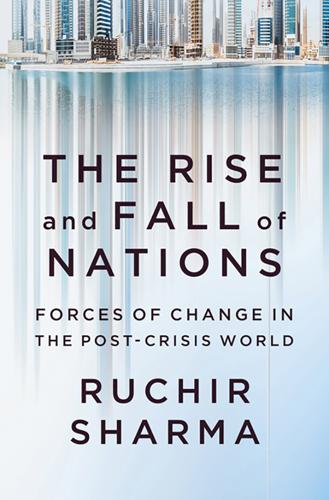
The Rise and Fall of Nations: Forces of Change in the Post-Crisis World
by
Ruchir Sharma
Published 5 Jun 2016
I missed the economic turnaround in Colombia after Álvaro Uribe became president in 2002 and started to bring peace and order to the war-torn economy. To believe that a country long synonymous with cocaine and murder could be transformed quickly was one leap of faith too far for me. But the condition of “failed state” is not a permanent one. It’s hard to name a supposedly failed state whose economic revival was more roundly ignored by the global media than the Philippines. When I visited Manila in January 2010, I sensed a turn for the better as Filipinos were fed up with the way their country was being surpassed by neighboring economies. They were keen to give a strong mandate to a leader seen as “Mr.
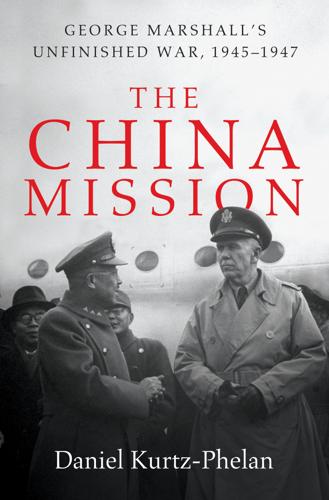
The China Mission: George Marshall's Unfinished War, 1945-1947
by
Daniel Kurtz-Phelan
Published 9 Apr 2018
British dismay was more than a little imperial, and racial. A strong China, one officer warned, “would jeopardize the white man’s position immediately in the East and ultimately throughout the world.” But there were other grounds for skepticism: how could China be regarded as a great power when it was more failed state than unified country? Before long, the high-flown rhetoric took on a bitterly ironic tone in the United States and China as well. This bitterness was given crude, savage voice by the officer sent on Marshall’s recommendation to assist Chiang with his war effort—“Vinegar Joe” Stilwell. The Stilwell saga came to be a saga of mutual grievance.
…
Zhou followed with a pledge to “acknowledge Chiang’s leadership.” And with that, the thirty-eight members of the PCC were off, “going full blast using all the epithets in everyone’s vocabulary,” in Melby’s description, to shape the coming Chinese democracy. The discourse thrilled Washington, even if China was by most measures more failing state than rising democratic power. A century of internal rebellion, imperial aggression, and social breakdown had brought heightened landlord exploitation and warlord domination in much of the country. Japanese invasion had left behind starvation and disease, driven inflation into triple digits, and destroyed more than 90 percent of the railways.
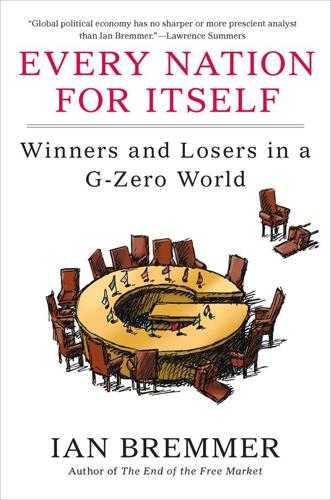
Every Nation for Itself: Winners and Losers in a G-Zero World
by
Ian Bremmer
Published 30 Apr 2012
China’s top leaders do not threaten to bury the United States, they don’t bang their shoes on desks at the United Nations, and they aren’t looking to base missiles in Cuba. Islamic militants, ever an elusive enemy, have become a less urgent foreign policy priority, particularly since the 2011 killing of al Qaeda leader Osama bin Laden further undermined public support for an extended troop commitment in Afghanistan.9 Failed or failing states like Yemen and Somalia can create terrorist safe havens that have the attention of U.S. officials, and countries like Pakistan and Iran pose security challenges of their own. But as the American public loses patience with new troop commitments in Afghanistan and elsewhere, U.S. policymakers will be forced to rely on economic pressure and diplomatic coercion to manage these problems.
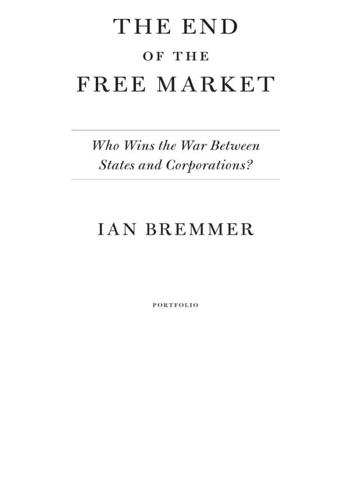
The End of the Free Market: Who Wins the War Between States and Corporations?
by
Ian Bremmer
Published 12 May 2010
During the financial crisis and global recession, an enormous market meltdown that provided globalization with its first true stress test, political officials in both the developed and the developing worlds seized responsibility for decisions that are usually left to market forces—and on a scale not seen in decades. Governments around the world responded to the implosion of major financial institutions and key economic sectors with massive doses of state spending meant to kick-start growth and, in some cases, to bail out companies considered “too big to fail.” States grabbed control of firms once considered industry flagships. They did all this because they believed it was necessary—and because no one else could do it. During the financial crisis and its aftermath, this dynamic generated a massive shift in financial decision-making power from New York to Washington.
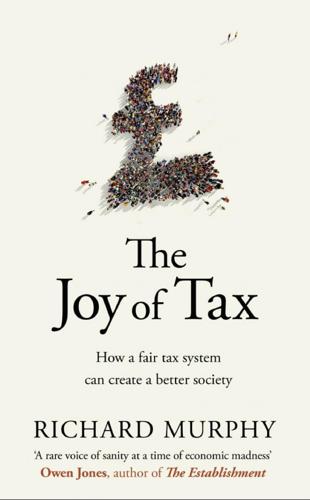
The Joy of Tax
by
Richard Murphy
Published 30 Sep 2015
The overwhelming majority of us want to live in harmony, and accepting the role of government, and its right to tax, is part of accepting the mutuality that really does underpin successful communities. The concept of mutuality can be extended to the international level. It is dangerous to suggest, as many do, that we should promote tax competition between states, since all competition is necessarily predicated on the idea that it is acceptable for participants to fail. We cannot afford failed states and anything that even hints at that possibility has no place in the international tax system. That does not mean that international uniformity is necessary, but cooperation and, where appropriate, harmonization are essential if tax is not to be an instrument for one state to exercise control over another.
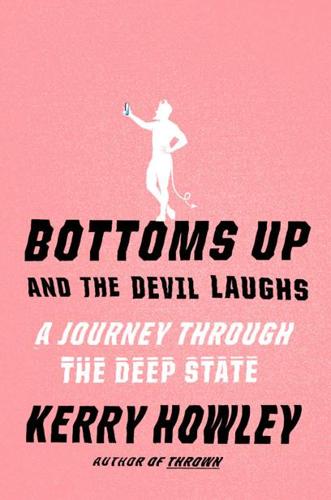
Bottoms Up and the Devil Laughs
by
Kerry Howley
Published 21 Mar 2023
Off the coast inflatable floats packed with migrants left for Europe; sometimes they were turned away, and sometimes the boats shipwrecked, and sometimes the bodies of drowned children washed ashore. A baby blanket, but no baby, appeared on a beach in Tripoli. Europe stopped exporting inflatable boats to Libya. Clinton, in failing to learn the lessons of Iraq—another intervention of which she had been supportive—had helped to create a failed state. Obama admitted that it should have been handled differently. It was, to Assange, precisely the kind of moralizing imperialist arrogance he wanted to expose. The careless violence of it. “A vote today for Hillary Clinton is a vote for endless, stupid war,” Assange wrote shortly after Clinton narrowly won the Iowa caucus, from his 330 feet of space in the Ecuadorean embassy.

Aerotropolis
by
John D. Kasarda
and
Greg Lindsay
Published 2 Jan 2009
In The Bottom Billion, Collier made the case that the only way out economically for Africa is through trade, and not within a bloc of equally stagnant nations but by exporting to the developed world. The goal is to sell manufactured products, not commodities, but flowers and food are the continent’s only toehold besides its vanishing stockpiles of oil and minerals. And for landlocked nations in the Sahel trapped between failed states and the Sahara, “air freight offers a potential lifeline into European markets,” he wrote. “The key export products are likely to be high-value horticulture, and so European trade policy does matter.” “Kenya already has forty percent of the European green beans market,” he told me, and 70 percent of the U.K.’s.
…
“Africa-bound traffic can afford to be beaten up and tossed around, because the choices are limited,” Baluch said. His solution was a deal with Ethiopian Airlines, which possesses a fleet of modern Boeings (including, improbably, the 787 starting later this year) and a network crisscrossing the continent. Four years ago, Swift started service to Kenya, Rwanda, and “failed states” such the Congo, Zimbabwe, Nigeria, and Uganda. Up next are the nations along the southwestern edge of the Sahara, including Niger, Chad, and Mali. Swift operates virtually unopposed from Dubai, controlling 80 percent of the market. “The key to Dubai is Africa,” an American opportunist told me.
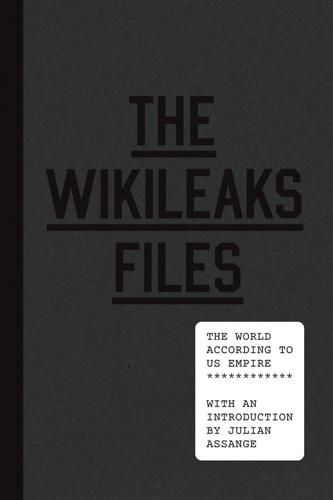
The WikiLeaks Files: The World According to US Empire
by
Wikileaks
Published 24 Aug 2015
Like all other instruments of US national power, the use and effects of economic “weapons” are interrelated and they must be coordinated carefully.3 All of the Iraq WikiLeaks cables provide vital information about US policies that have left a US legacy of violence and political instability that forms the basis of the failed state that is Iraq today. DIVIDE AND CONQUER History shows us that in Iraq, while there are clear differences in the religious beliefs of the two sects of Islam—Sunni and Shia—the kind of violent sectarianism that has become the norm today did not exist in modern Iraq prior to the 2003 US-led invasion.
…
Gonzales, Counsel to the President,” US Department of Justice, Office of Legal Counsel, August 1, 2002, available at resourcelists.ed.ac.uk. 111Carl Schmitt, the German legal scholar and prominent Nazi, was cited by constitutional law professor Sanford Levinson as the “true éminence grise” of the Bush administration. Quoted in Noam Chomsky, Failed States: The Abuse of Power and the Assault on Democracy (London: Penguin, 2007). 112“White Paper on the Law of Torture and Holding Accountable Those Who Are Complicit in Approving Torture of Persons in US Custody,” National Lawyers Guild, at prisonlegalnews.org. 113McCoy, A Question of Torture, p. 113. 114Steven Donald Smith, “Guantánamo Detainees Being Held Legally, Official Says,” American Forces Press Service, February 15, 2006, at defense.gov. 115Lars Erik Aspaas, “The Power of Definition: How the Bush Administration Created ‘Enemy Combatants’ and Redefined Presidential Power and Torture,” University of Oslo, MA thesis, Spring 2009, available at duo.uio.no. 116Peter Forster, “CIA Tortured Terror Suspects ‘to Point of Death,’ US Senate Report Will Say: Source,” National Post, September 8, 2014. 117Anthony D’Amato, “True Confessions?
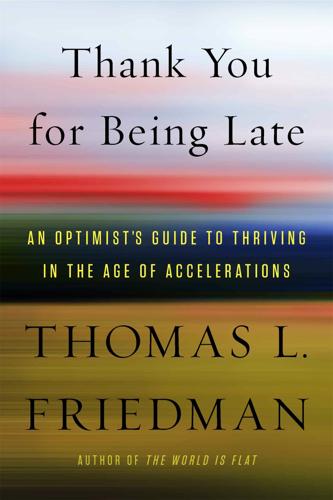
Thank You for Being Late: An Optimist's Guide to Thriving in the Age of Accelerations
by
Thomas L. Friedman
Published 22 Nov 2016
It is a truism, but one worth repeating, that disorder and the rise of super-empowered breakers on the scale that we are seeing in the Middle East and Africa is a product of failed states unable to keep up with the age of accelerations and enable their young people to realize their full potential. But these trends are exacerbated by climate change, population growth, and environmental degradation, which are undermining the agricultural foundations that sustain vast African and Middle Eastern populations on rural lands. The combination of failing states and failing agriculture is producing millions of young people, particularly young men, who have never held a job, never held power, and never held a girl’s hand.
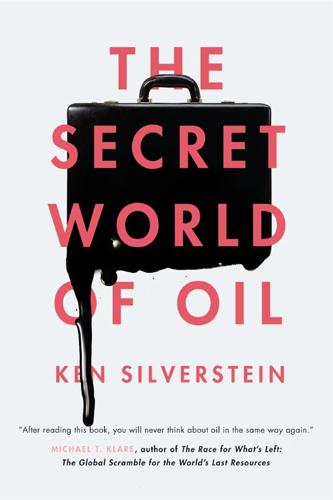
The Secret World of Oil
by
Ken Silverstein
Published 30 Apr 2014
Glencore also bought Brus a cell phone and picked up more than $20,000 worth of calls he made to the company, some placed just minutes before bid deadlines. * * * The frontiers are Glencore’s growth engine, and nowhere more so than the Democratic Republic of the Congo, the poster child of the resource-cursed failed state. Doing business there is all but impossible without a well-connected political patron, and Glencore’s partner in Kinshasa is perhaps the most wired of them all: Dan Gertler, an Israeli businessman known for his intimate ties to President Joseph Kabila. The grandson of the founder of the Israel Diamond Exchange, Gertler turned up in Congo in 1997 at age twenty-three as the country was descending into a hellish war that left at least four million dead.
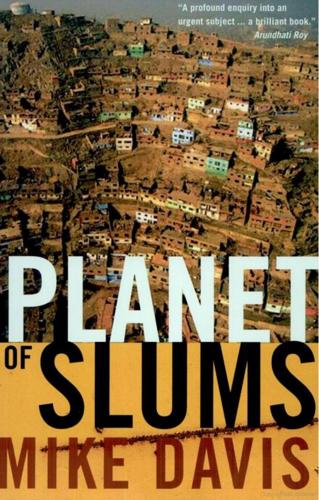
Planet of Slums
by
Mike Davis
Published 1 Mar 2006
Moreover, like the community organizations patronized by the War on Poverty in the 1960s, Third World NGOs have proven brilliant at coopting local leadership as well as hegemonizing the social space traditionally occupied by the Left Even if there are some celebrated exceptions - such as the militant NGOs so instrumental in creating the World Social Forums - the broad impact of the NGO/ "civil society revolution," as even some World Bank researchers acknowledge, has been to bureaucratize and deradicalize urban social movements.21 18 Sebastian Mallaby, The World's Banker: A Story of Failed States, Financial Crises, and the Wealth and Poverty of Nations, New York 2004, pp. 89-90, 145. 19 Rita Abrahamsen, "Review Essay: Poverty Reduction or Adjustment by Another Name?," Review of African Political Economy 99 (2004), p. 185. 20 Stiglitz's 1998 speech, "More Instruments and Broader Goals: Moving Towards the Post-Washington Consensus," is discussed in John Pender, "From 'Structural Adjustment' to 'Comprehensive Development Framework': Conditionality Transformed?

Explore Everything
by
Bradley Garrett
Published 7 Oct 2013
The reverence for dereliction and failure on a state-wide level, rather than just one business or building, made our explorations both more poignant and more guilt-ridden. If, as philosopher Dylan Trigg writes in The Aesthetics of Decay, a derelict factory testifies to a failed past but also reminds us that the future may end in ruin, what do the ruins of an entire failed state say?26 On those explorations of economically disadvantaged areas in Poland as well as in the drains of Las Vegas,27 we found our relative affluence uncomfortable when we encountered other people who, by necessity, had made the ruins their home. On our European tour, the farther East we went, the more crippling our uneasiness became.
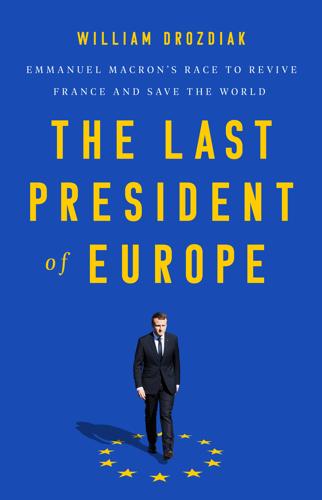
The Last President of Europe: Emmanuel Macron's Race to Revive France and Save the World
by
William Drozdiak
Published 27 Apr 2020
Yet the future, in Macron’s view, holds the most enticing promise for Africa’s engagement with Europe because of the talent and ambitions of its youngest generation. Africans under the age of thirty represent over 70 percent of the continent’s population. They want to break Africa’s depressing cycle of rampant corruption and defective governance, which has resulted in failing states vulnerable to exploitation by outside forces, including terrorist groups. Many of them possess a new determination to pull their continent out of its perpetual misery toward a more peaceful and prosperous destiny. While the populations of Europe, China, Russia, and Japan are shrinking, Africa is growing at a rapid rate and looms as the world’s next great economic frontier.

We Are Bellingcat: Global Crime, Online Sleuths, and the Bold Future of News
by
Eliot Higgins
Published 2 Mar 2021
Hadi, our partner at Syrian Archive, points out that the Assad regime is already seeking to alter the history of what it has wrought, setting up a pseudo-academic documentation project on the Syrian civil war.16 If any meaningful national memory is to exist, it cannot derive from war-crimes deniers. A BLUEPRINT FOR FUTURE WARS To many in the West the conflict in Yemen seemed like another confusing war in another failed state in another obscure part of the world, unrelated to their lives. But this war had global implications. First, it was a proxy conflict pitting Saudi Arabia against Iran. Second, it was the worst humanitarian catastrophe on the planet, the United Nations said in 2019. Twenty-four million people there needed assistance and protection, about 80 per cent of the population.

Worth Dying For: The Power and Politics of Flags
by
Tim Marshall
Published 21 Sep 2016
At the time of writing there appears little short-to-medium-term possibility of Libya succeeding as a unified state. The flag of IS has appeared in several towns along the coast, and although this is attracting the attention of what passes for a government in Tripoli (and that of governments on the other side of the Mediterranean), it adds to the instability of what at times edges towards failed state status. The future may be a mirror of the past, although a loose federal arrangement could emerge. So, the Arab nation? If language binds Arabs together, the idea has a foundation, albeit one with many dialects. If it denotes a people then the idea falters, given that the Arabs are many peoples.
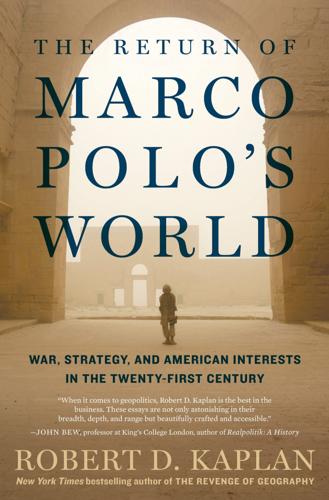
The Return of Marco Polo's World: War, Strategy, and American Interests in the Twenty-First Century
by
Robert D. Kaplan
Published 6 Mar 2018
Thus African stability, to the degree that it exists, is imperiled because of economic changes in Asia. Then there are the various radical Islamic movements rampaging across Sahelian Africa. This is actually the latest phase of African anarchy—in which the communications revolution brings millenarian Islam to weak and failed states. Obviously, the United States has little power over any of this. In sum, everything is interlinked as never before, even as there is less and less of a Night Watchman to keep the peace worldwide and hierarchies everywhere break down. Just look at the presidential primaries in the United States, which demonstrate an upheaval from below for which the political establishment has no answer.
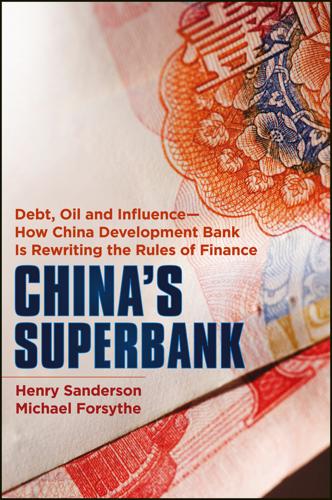
China's Superbank
by
Henry Sanderson
and
Michael Forsythe
Published 26 Sep 2012
Edward Sagendorph Mason and Robert E. Asher, The World Bank Since Bretton Woods (Washington, DC: Brookings Institution Press, 1973). 38. Zhu Xinqiang, speaking at the Latin America China Investors Forum conference, Beijing, September 2011. 39. Sebastian Mallaby, The World’s Banker: A Story of Failed States, Financial Crises, and the Wealth and Poverty of Nations (New Haven, CT: Yale University Press, 2005). 40. Nkunde Mwase, Yongzheng Yang, “BRICs’ Philosophies for Development Financing and Their Implications for LICs,” International Monetary Fund, IMF Working Paper No. 12/74, March 2012. 41. Dambisa Moyo, Dead Aid: Why Aid Is Not Working and How There Is a Better Way for Africa (New York: Farrar, Straus & Giroux, 2009). 42.
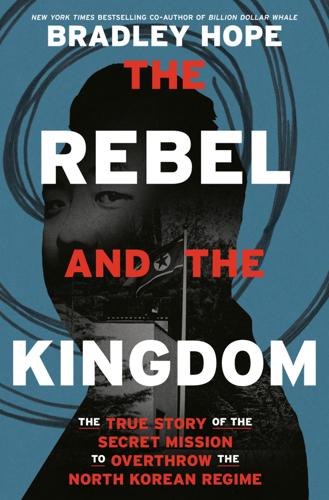
The Rebel and the Kingdom: The True Story of the Secret Mission to Overthrow the North Korean Regime
by
Bradley Hope
Published 1 Nov 2022
Abushagur had been selected as prime minister by the democratically elected General National Congress in September 2011, only to be fired from the job before he was able to make a decision. Two others had been fired the prior month. In an op-ed in the Libya Herald, Adrian called on the Libyan government to allow Abushagur to select his cabinet and focus on the well-being of the country. If they didn’t, Adrian warned, the country would drift toward becoming a failed state. “What happens in Libya now will have serious ramifications not only on the success of the Syrian revolution, but on all democratic efforts to replace dictatorships in the future,” he wrote. “The ‘Libya Model’ will either be a positive example, or a warning against change for oppressed peoples worldwide.”
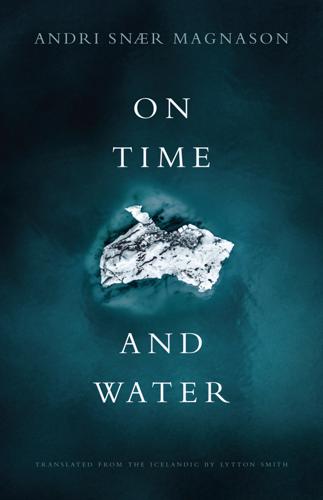
On Time and Water
by
Andri Snaer Magnason
Published 15 Sep 2021
On the Tibetan Plateau and in India, you can see caves in the mountains where people used to live two thousand years ago. Today, 80 percent of people’s water there depends on melting glaciers in the dry season and in the next hundred years they may have to move out of this region because there’s no water. You look at some of these countries and there’s always the risk of a ‘failed state,’ if suddenly you have a disruption in the water supply. Especially since they cross borders and if you are in one country that tries to build a dam you’re going to deny water for people downstream. From a geopolitical point of view, these are rivers that supply water to three nuclear powers.” “And how do you see the future?”

Fiasco: The American Military Adventure in Iraq
by
Thomas E. Ricks
Published 30 Jul 2007
There was no question that there were more terrorists in Iraq in 2005 than there were early in 2003, when President Bush had accused the country of harboring terrorists. H AFTERWORD: BETTING AGAINST HISTORY 431 Juan Cole, an Iraq expert at the University of Michigan and an outspoken opponent of the war, said that under the care of the Bush administration, Iraq had become a failed state of the sort that produces terrorists. "Iraq was not a failed state in 2002," he noted. The invasion of Iraq has proven unexpectedly costly, with the loss of several thousand American soldiers and of an untold number of Iraqis. During 2004 and 2005, the cost to the American taxpayer was running at about $5 billion a month, meaning that by mid-2006, the total cost of the adventure had surpassed $200 billion.
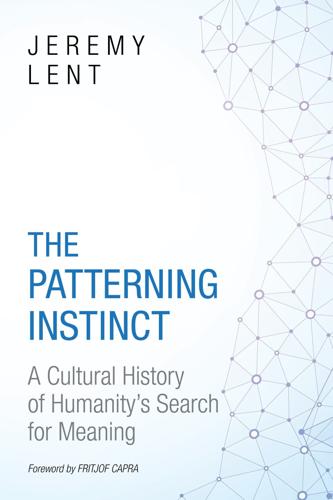
The Patterning Instinct: A Cultural History of Humanity's Search for Meaning
by
Jeremy Lent
Published 22 May 2017
Wealthier residents will flee these urban disaster zones for safer abodes, either in the developed world or in newly planned, segregated cities that insulate them from the suffering of their compatriots, leaving the largest urban population centers without the capital reserves to fortify their structures against the threatening onslaught of even more severe climate change.69 We can expect an increasing number of countries to become failed states, disintegrating into “hundreds of fiefdoms, medieval levels of child mortality, and very low literacy.” A prime example of a country already under this kind of imminent threat is Pakistan, where the population's demand on resources currently exceeds its biocapacity by 80 percent. Randers's book forecasts that Pakistan will run out of resources “well before 2052,” leading to increased internal conflicts, which could be especially perilous given the country's nuclear arsenal.70 Along with the human catastrophe of failed states and the misery of billions in overwhelmed coastal megacities, the nonhuman world will be suffering its own form of collapse.
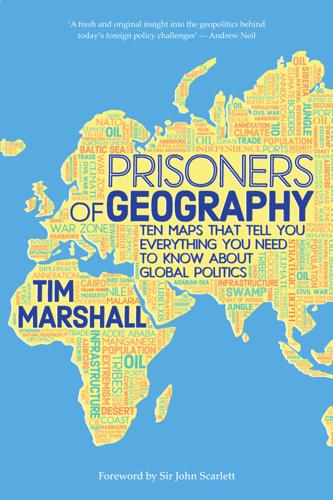
Prisoners of Geography: Ten Maps That Explain Everything About the World (Politics of Place)
by
Tim Marshall
Published 10 Oct 2016
Without NATO harrying the Taliban on the Afghan side of the border, Pakistan’s job of beating the Pakistani Taliban has become even harder. Washington continues to press Islamabad, and this leaves several possible scenarios: • The full weight of the Pakistani military falls upon the North-West Frontier and defeats the Taliban. • The Taliban campaign continues to hasten the fracturing of Pakistan until it becomes a failed state. • The Americans lose interest, the pressure on Islamabad relents, and the government compromises with the Taliban. The situation returns to normal, with the North-West Frontier left alone but Pakistan continuing to push its agenda in Afghanistan. Of these scenarios the least likely is the first.
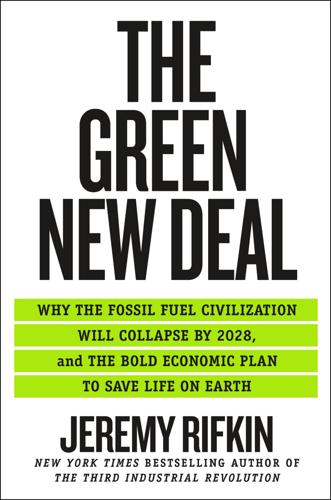
The Green New Deal: Why the Fossil Fuel Civilization Will Collapse by 2028, and the Bold Economic Plan to Save Life on Earth
by
Jeremy Rifkin
Published 9 Sep 2019
Of the 141 nations that enjoy some carbon wealth, 26 of the countries have at least 5 percent of their wealth in fossil fuels, and most of them derive more than half their revenues from oil, gas, and coal. These are also among the poorest countries in the world, and ten of them are in the Middle East and North Africa, regions in crisis, with failed states and authoritarian regimes.49 The potential of hitting the wall with stranded assets and loss of carbon revenue would be devastating for these countries. To get a sense of the magnitude of the pending crisis, the World Bank reports that “the top 10 state-owned carbon-resource companies account for $2.3 trillion of state-owned produced assets related to extraction and processing of fossil fuels.”50 With fossil fuels trending toward peak demand and the beginning of slower growth, the World Bank is beseeching the carbon-rich and carbon-dependent countries to quickly diversify their economies to ensure a sufficient tax revenue to make up for the losses.
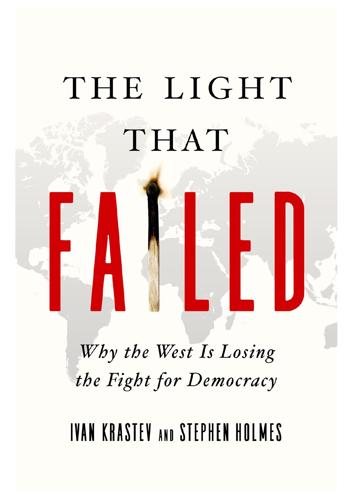
The Light That Failed: A Reckoning
by
Ivan Krastev
and
Stephen Holmes
Published 31 Oct 2019
It stated: The Russian government is employing a wide range of tools and instruments, such as think tanks . . . multilingual TV stations [e.g. Russia Today], pseudo-news agencies and multimedia services [e.g. Sputnik] . . . social media and internet trolls, to challenge democratic values, divide Europe, gather domestic support and create the perception of failed states in the EU’s eastern neighbourhood.107 Based on these allegations, the Parliament asked EU member states to react. It is very likely that European governments will respond in kind, that is, with policies that basically replicate Russia’s ‘foreign agents’ legislation, including restrictions on foreign ownership of media adopted some years ago as a response to the West’s allegedly subversive activities on the territory of the Russian Federation.
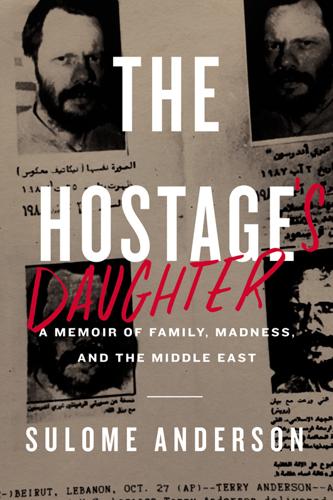
The Hostage's Daughter
by
Sulome Anderson
Published 24 Aug 2016
The once-lovely city is swaddled in a heavy smog you can almost taste, and when the roads flood with winter rain, they spread the filth with them. By some miracle, the country continues to sputter along, but it has become painfully obvious that the situation is unsustainable. As a friend recently put it, Lebanon now has the dubious honor of being the world’s most successful failed state. In November 2015, the Islamic State carried out coordinated suicide attacks in a neighborhood I often visit, killing forty-four people. It was the most recent in a series of bombings targeting Shia areas of Beirut, where Hezbollah reigns supreme. But a few short months later, life in the city continues and the incident seems to have been largely forgotten by all except the relatives of the dead.
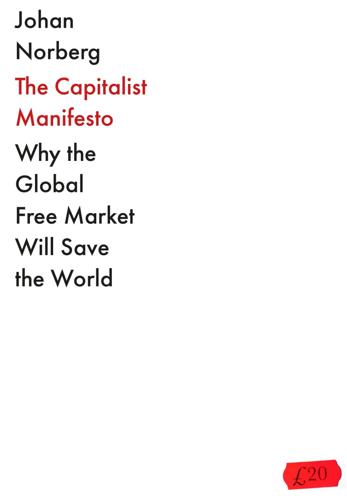
The Capitalist Manifesto
by
Johan Norberg
Published 14 Jun 2023
Precisely for that reason, the party chose to step on the brakes and start rolling back the liberalization. They don’t do it out of self-confidence, but because they fear they are losing their grip. That is not to say that I believe that China will necessarily become a liberal democracy. It could also crumble in factional struggles and separatism, it could become a failed state, and the Communist Party might also decide to be content to become the kind of semi-rich regional middling power that an authoritarian system can bear. What I don’t believe is possible is that a totalitarian superpower will be able to replace the leading role of the United States and Europe. To sum up: many in the West believe China is winning and that the West’s only chance to cope with this economic and technological rivalry is to become more like China.

Solr in Action
by
Trey Grainger
and
Timothy Potter
Published 14 Sep 2014
If you are running a smaller operation, you may consider installing HAProxy for use as a load balancer. Regardless of which solution you use, you will want some kind of “health check” option—something the load balancer can check on the server to determine whether the server is healthy and should be in service or is in a failed state and should be removed. To facilitate these kinds of health checks, Solr maintains the Ping Request Handler, which can be enabled by adding a special requestHandler entry in your solrconfig.xml. The Ping Request Handler is responsible for determining if a server is supposed to be enabled to receive traffic and is able to successfully execute queries.
…
<query> element queryAnalyzerFieldType setting QueryResponseWriter class QueryScorer query-time boosting, 2nd quorum R rad function RAID (redundant array of independent disks) RAM (random access memory), 2nd <ramBufferSizeMB> element range faceting range searches, 2nd ranked retrieval, 2nd ranking, influencing rare search terms. See also idf. Raw query parser read dominant real-time get Recall balancing with Precision graphing versus Precision overview recency, boosting by recip function, 2nd, 3rd recommendations vs. search Recovering state Recovery Failed state rectangle (geospatial) redundancy redundant array of independent disks. See RAID. RegexFragmenter relational databases, importing data from relationships between documents Reload button ReloadCacheRequestHandler class reloading cores remote debugging renaming cores repeated letters, collapsing replicateAfter directive replicationFactor parameter ReplicationHandler class, 2nd representational state transfer.

Liberalism at Large: The World According to the Economist
by
Alex Zevin
Published 12 Nov 2019
‘Force’.149 Perhaps the most revealing example of the open-ended imperialism of the Economist under Bagehot was its enthusiasm for the least successful of all such ventures: the invasion of Mexico at the end of 1861 by France, with support from Spain and Britain. It applauded Napoleon III for rebuilding a failed state unable to pay its creditors in Europe, and for balancing the US, with its back turned fighting the Civil War. The installation of an Austrian archduke, Maximilian, on Mexico’s throne three years later, was a particular stroke of brilliance – a better administrator than ‘any obtainable half-caste or Indian president’, whose rule would ensure the export of everything from silver to apples, and timely interest payments on Mexico’s sovereign debt.150 Three years later Maximilian was executed by firing squad in Querétaro, after French forces hastily withdrew.
…
Emmott, Rivals: How the Struggle Between China, India and Japan Will Shape Our Next Decade, Orlando 1998, p. 1. 72.Ibid., 255. 73.This, according to a senior editor, was the reason Emmott gave Mallaby for refusing the survey, parts of which ran later in the New Republic. Mallaby, whose father was British ambassador to Berlin and Paris, and is married to the current editor Zanny Minton Beddoes, was hardly a heretic on economics and empire. See his subsequent post–9/11 reflection, ‘The Reluctant Imperialist: Terrorism, Failed States and the Case for American Empire’, Foreign Affairs, March 2002. 74.Maggie Brown, ‘Business as Usual’, Guardian, 27 March 2006; Ian Burrell, ‘John Micklethwait: Great Minds Like a Think’, Independent, 8 January 2007. 75.‘The naming of Mr. Micklethwait is an indication of where the Economist expects to find its future growth.’
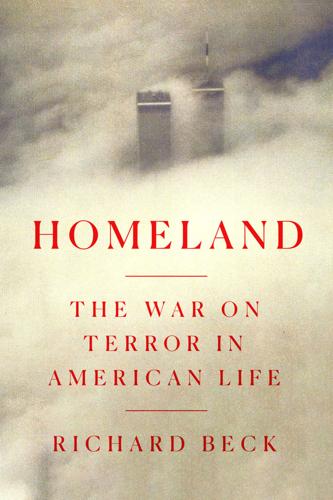
Homeland: The War on Terror in American Life
by
Richard Beck
Published 2 Sep 2024
McChrystal had assiduously cultivated a compelling warrior-monk persona, presenting himself as the kind of man who spent his predawn hours on strenuous runs and his evenings reading from his vast library of military theory and history. McChrystal was an advocate of a military doctrine called counterinsurgency, or COIN, which posited that when one conducted offensive operations in a failed state, it wasn’t enough just to destroy the enemy. American troops would need to live among the Afghan people as well, potentially for a long time, and painstakingly build up the country’s ability to govern itself. As one magazine profile of McChrystal put it, “The theory essentially rebrands the military, expanding its authority (and its funding) to encompass the diplomatic and political sides of warfare: Think the Green Berets as an armed Peace Corps.”[43] Though the raw numbers of the troop increase received lots of media attention, the shift in the Army’s goals with respect to Afghanistan took place with almost as little fanfare as the expansion of the drone war.
…
With those options off the table, the United States faced a whole series of problems stemming from the kinds of authoritarian political rule, endemic urban poverty, and social instability that plagued the countries where growth had failed most spectacularly. The government’s military planners often refer to these countries as weak or failed states, and while the United States believed for some time that the problems facing these states could be kept more or less at arm’s length, September 11 was thought to reveal that belief as illusory. Going forward, America would need to confront these problems more directly, with a decentralized, expansive, and flexible military effort that wouldn’t be bound by any conventional definitions of victory or defeat.

More Joel on Software
by
Joel Spolsky
Published 25 Jun 2008
Then you fix the root cause, not the symptoms. Since this fit well with our idea of fixing everything two ways, we decided to start using five whys ourselves. Here’s what Michael came up with: Five Whys 287 Our link to PEER 1 NY went down. • Why?—Our switch appears to have put the port in a failed state. • Why?—After some discussion with the PEER 1 NOC, we speculate that it was quite possibly caused by an Ethernet speed/duplex mismatch. • Why?—The switch interface was set to autonegotiate instead of being manually configured. • Why?—We were fully aware of problems like this and have been for many years.
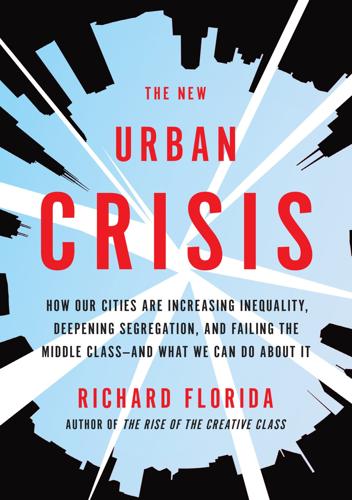
The New Urban Crisis: How Our Cities Are Increasing Inequality, Deepening Segregation, and Failing the Middle Class?and What We Can Do About It
by
Richard Florida
Published 9 May 2016
More importantly, developing stronger and more resilient cities in chronically unstable parts of the world would help further key diplomatic, military, and humanitarian goals, such as fighting against terrorism and the burgeoning refugee crisis. Not only do more stable cities lead to greater economic development and rising living standards, but they are the key to creating a safer, more tolerant, and less violent world. Indeed, the failed states that are the breeding grounds for global terrorism are among the least urbanized places in the world.29 And military intervention, by its very nature, tends to damage and destroy large cities and disperse populations, leading to a vicious cycle of less urbanization and greater instability. Building stronger cities in these fragile and broken places will make the world more secure.

The Manager’s Path
by
Camille Fournier
Published 7 Mar 2017
You’ve heard complaints from their business partners and product manager that they’re slow, and you agree that the team just seems to lack the same energy as your other teams. How do you figure this out? HAVE A HYPOTHESIS To properly debug a system, you need a reasonable hypothesis that explains how the system got into the failed state, preferably one that you can reproduce, so that you can fix the bug. To debug a team, you also want to look for a hypothesis around why the team is having problems. Do this in as minimally invasive a way as possible, to prevent your meddling from obscuring the problems. As an added challenge, team problems are not generally single failures but are more like performance issues.
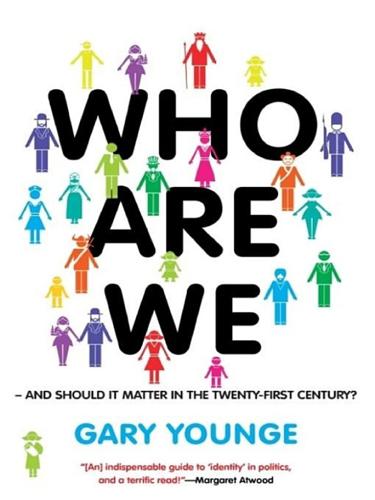
Who Are We—And Should It Matter in the 21st Century?
by
Gary Younge
Published 27 Jun 2011
The presence or absence of a government did not seem to panic Belgians on either side of the linguistic divide unduly. With a per capita income of more than $40,000, Belgium has one of the wealthiest populations in the world, with some of the best educated children. The German paper Die Tageszeitung described it as the “most successful ‘failed state’ of all time.” A Flemish journalist put the nation up for auction on eBay, offering “a kingdom in three parts.” The purchaser would have to shoulder “300 billion euros in debt,” he pointed out. The item was pulled off the site—but not before someone had offered $13.9 million for it. In any case, the notion that French posed the biggest threat to Flemish is absurd.
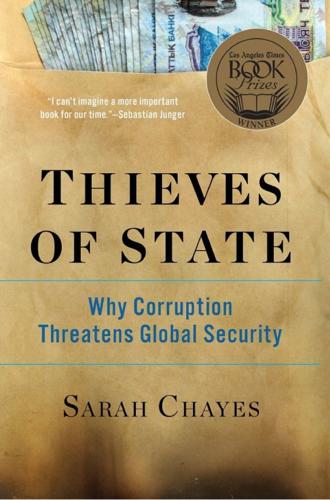
Thieves of State: Why Corruption Threatens Global Security
by
Sarah Chayes
Published 19 Jan 2015
It was performing its core function with admirable efficiency—bringing power to bear where it counted. And it was assiduously protecting its own. Governing—the exercise that attracted so much international attention—was really just a front activity. Such an analysis might well be applied to other “failed” or “failing” states. They are failing at being states. That is because the business model their leadership has developed has nothing to do with governing a country. But it is remarkably effective in achieving its objective: enriching the ruling clique. In Afghanistan, faced with such moral and material depravity, a brutal and tenacious insurgency was serving up its idea of an antidote: a narrow reading of religious devotion.

@War: The Rise of the Military-Internet Complex
by
Shane Harris
Published 14 Sep 2014
It was paternalism mixed with condescension—the country was too unstable for Calderón to manage on his own, officials seemed to think. But it was in America’s self-interest to spy on Calderón too. American officials thought that the cartels could extend their violent reach over the border into the United States, and that they might even topple Calderón’s government or weaken it so much that Mexico effectively became a failed state. In the summer of 2012 the NSA accessed the e-mails of then presidential candidate Enrique Peña Nieto, who took office in December of that year. The agency intercepted his cell phone calls, too, along with those of “nine of his close associates,” as well as more than 85,000 text messages sent by Nieto and his associates, the top-secret NSA document states.
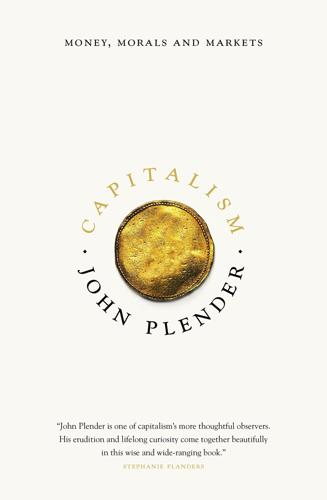
Capitalism: Money, Morals and Markets
by
John Plender
Published 27 Jul 2015
Most of the people mentioned in this chapter made enormous contributions both to economic growth and, ultimately, to the quality of people’s lives. At the same time, entrepreneurs in the developing world are actively engaged in lifting millions out of poverty, even if that is not their direct intention or motivation. And in failing states such as North Korea, entrepreneurs have emerged to create a private parallel economy in the midst of chaos. Some of these people were undoubtedly vicious; others were morally admirable. So the conclusion has to be that there is truth in the views of both Mandeville and Keynes. Yet the Marxian view of the entrepreneur as a ruthless accumulator of capital is surely anachronistic.
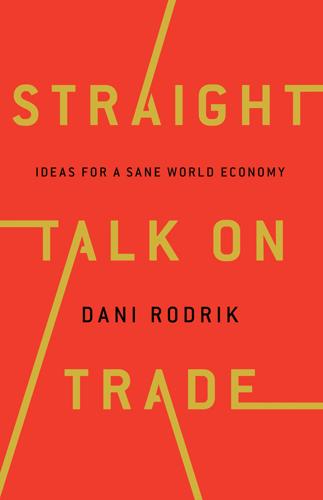
Straight Talk on Trade: Ideas for a Sane World Economy
by
Dani Rodrik
Published 8 Oct 2017
It curbed internecine violence, expanded networks of solidarity beyond local communities, spurred mass markets and industrialization, enabled the mobilization of human and financial resources, and fostered the spread of representative political institutions.10 Civil wars and economic decline are the usual fate of today’s “failed states.” For residents of stable and prosperous countries, it is easy to overlook the role that the construction of the nation-state played in overcoming such challenges. The nation-state’s fall from intellectual grace is in part a consequence of its achievements. But has the nation-state, as a territorially confined political entity, truly become a hindrance to the achievement of desirable economic and social outcomes in view of the globalization revolution?

This Is Your Country on Drugs: The Secret History of Getting High in America
by
Ryan Grim
Published 7 Jul 2009
As a retired PRI man told the New Yorker, “When you see what amounts to a military parade in these towns, in which the Army is trooping along on the main avenue while on the side streets people are killing each other . . . when I see how these [traffickers] are climbing up right into the very beard of the state, I think, Holy fuck! This country could really collapse!” The drug war has brought the Mexican government to the brink of collapse, making the prospect of a failed state on America ’s southern border a very real possibility. Meanwhile, the war costs billions of dollars to wage at home and in Mexico and has swelled the U.S. prison population, bursting state budgets at the seams. It would be one thing if this were merely collateral damage in an otherwise successful effort to reduce drug use.
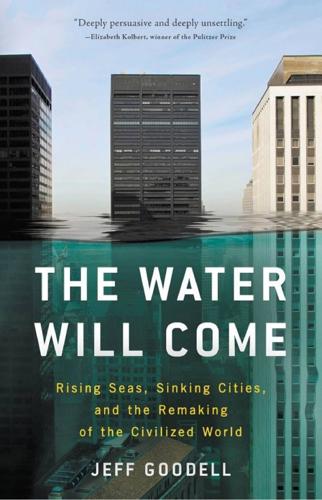
The Water Will Come: Rising Seas, Sinking Cities, and the Remaking of the Civilized World
by
Jeff Goodell
Published 23 Oct 2017
And he did, calmly and forcefully, schooling the senator in how steadily increasing populations in Asia would only put more people at risk from storms and other climate-related disasters. “Okay, let me interrupt you,” Inhofe said, realizing it was a losing battle. He quickly changed the subject. What Locklear correctly foresees is that a world of climate-driven chaos is already upon us, and it’s only going to get worse. Where are the limits of American power? How many failed states can we prop up, how many natural disasters can we respond to? It’s one thing to plan for the invasion of Normandy Beach or the siege of Fallujah—it’s quite another to plan on being the rescue squad for the entire planet. We have already spent more than a trillion dollars in Iraq and Afghanistan, with no measurable success.

More From Less: The Surprising Story of How We Learned to Prosper Using Fewer Resources – and What Happens Next
by
Andrew McAfee
Published 30 Sep 2019
These gains are now universal; Southern Africa has regained the 10 years of expected life lost during its terrifying AIDS crisis. One of the reasons life expectancy has gone up so quickly is the collapse in both child and maternal mortality around the world: Maternal and Child Mortality I find these mortality declines especially fast, large, and broad. Today, we still have desperately poor regions, failed states, and the decimations of war. But in no region today is the child mortality rate higher than the world’s average rate was in 1998. Convergent Trends in maternal and child mortality highlight a critical fact that’s often overlooked: around the world, inequality in most important measures of human material well-being is decreasing.
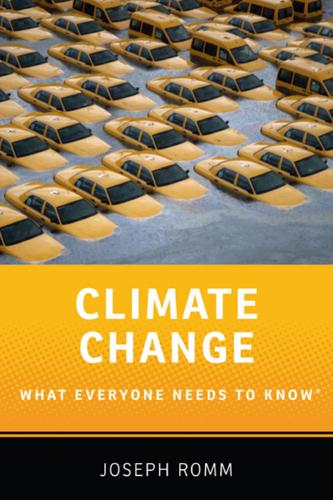
Climate Change
by
Joseph Romm
Published 3 Dec 2015
The threat to national security can be amplified by this vicious cycle whereby climate change makes violent conflict more likely and then that violent conflict makes a country more vulnerable to climate change. In that sense, climate change seems poised to help create many more of the most dangerous places on Earth: failed states. In fact, climate change already appears to be driving and interacting with violent conflict. A 2015 study found that human-caused climate change was a major trigger of Syria’s brutal civil war. The war that helped drive the rise of the terrorist Islamic State of Iraq and Greater Syria (ISIS) was itself spawned in large part by what one expert called perhaps “the worst long-term drought and most severe set of crop failures since agricultural civilizations began in the Fertile Crescent,” from 2006 to 2010.
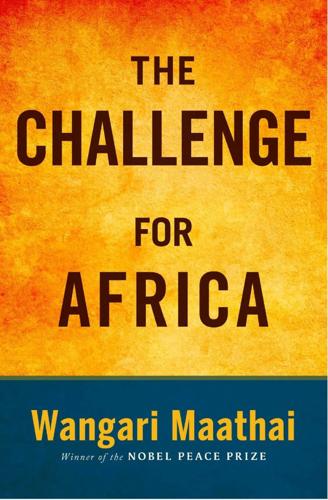
The Challenge for Africa
by
Wangari Maathai
Published 6 Apr 2009
All of this will be difficult—not least because mechanisms for this kind of multicountry, multistakeholder approach are not yet in place in many parts of the world, let alone a region that has seen the displacement and killing of millions of people, the near total infrastructural and institutional breakdown of governance associated with a failed state, and, preceding that, a century and a half of exploitation, corruption, and mismanagement on an unimaginable scale. Combine this history with the sheer size of the area and the diversity of its natural and human ecosystems, and the challenge becomes all the greater. CARBON AND CONCESSIONS Nevertheless, there are a number of policies that could and should be implemented.
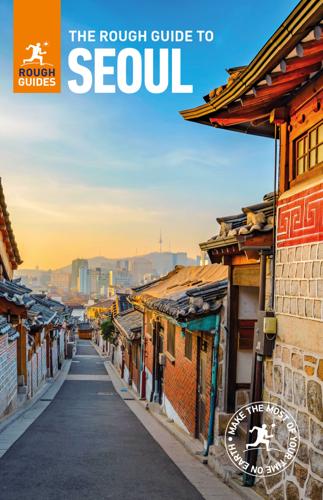
The Rough Guide to Seoul
by
Rough Guides
Published 26 Sep 2018
This thoroughly readable book provides a chronicle of Korean goings-on from the very first kingdoms to the modern day, its text broken up with interesting illustrated features on the arts and customs prevalent at the time. Daniel Tudor Korea: The Impossible Country. Written by Korea’s former Economist correspondent, this looks at how the country transformed from a failed state to an economic powerhouse in the space of a generation or two – and what today’s generation has in store. the Korean War Bruce Cumings North Korea: Another Country. The US-North Korean dispute is far more complex than Western media would have you imagine, and this book provides a revealing glance at the flipside.

Globish: How the English Language Became the World's Language
by
Robert McCrum
Published 24 May 2010
Today, in every country struggling to participate in capitalist democracy, it is Globish that provides the main avenue of advancement. As Chris Patten puts it in his monograph, What Next?, ‘There are more people living in what in less free days we called “the free world” than ever before. Many more are desperate to join us. For every failed state there are numerous liberalising others quietly getting on with the business of building free and secure institutions in prosperous, plural societies.’ For these aspiring millions, it will be Globish that offers a way forward. As we enter the second decade of the new century, we are witnessing, in Globish, a contemporary phenomenon of extraordinary range and complexity, expressing a new world of global interconnections.
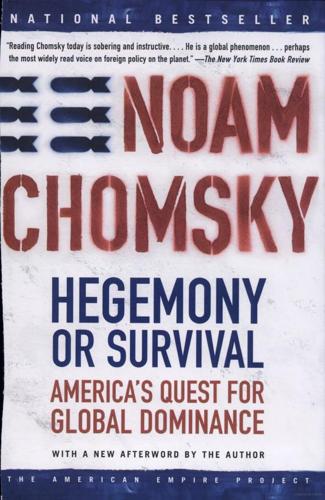
Hegemony or Survival: America's Quest for Global Dominance
by
Noam Chomsky
Published 1 Jan 2003
Iraqis understand us better than we choose to understand ourselves: choose, because we have overwhelming evidence, if we are willing to look at it. The consistent pattern was illustrated right on the front pages as the war’s anniversary approached: the coup in Haiti in March 2004. Attention was focused on the final days, keeping to distribution of blame among Haitians in their “failed state.” Omitted was the immediately relevant background. In brief, in 1990 Haiti had its first free election. A vibrant civil society had been organized in the slums and the hills, enabling the vast majority of the population to elect their own candidate, the populist priest Jean-Bertrand Aristide. Washington moved at once to undermine the democratic government.

Carjacked: The Culture of the Automobile and Its Effect on Our Lives
by
Catherine Lutz
and
Anne Lutz Fernandez
Published 5 Jan 2010
At one Massachusetts auto repair shop, the owner pointed to a car parked outside in his lot that belonged to a young woman: “It’s been here for a couple of weeks now. It was only a $200 repair, but she doesn’t have the money to fix it, so she just left it here.” The intersection of widespread poverty and predatory, underregulated business practice means that, as mentioned above, people now even rent tires, especially when their bald tires cause them to fail state inspection and threaten their ability to get to work. Rent-A-Tire has 68 stores around the South and West that offer car owners the opportunity to pay for their tires 110 Carjacked in installments. When the cheapest set available at Wal-Mart may be $450, many drivers are forced to accept Rent-A-Tire’s terms.

Future Files: A Brief History of the Next 50 Years
by
Richard Watson
Published 1 Jan 2008
Meanwhile, according to some sources, China has been investigating US networks and has invested Government and Politics 89 heavily in computer-based countermeasures in case someone attacks its own infrastructure. As always, the future is embedded in the present and Estonia has already had to deal with a cyberattack, which was variously blamed on the Russians and tech-savvy “hacktivists”. We will also see more and more failed states in the future, especially within Africa, the Middle East and Asia, which will become a major threat to civil order. In Sao Paulo, Brazil, for example, police recently stopped removing the favelas (street gangs) to concentrate on geographical containment of the problem. The city’s rich have literally risen above all this by using helicopters to bypass no-go areas (there are now 240 helicopter landing pads in Sao Paulo, compared to just ten in New York).
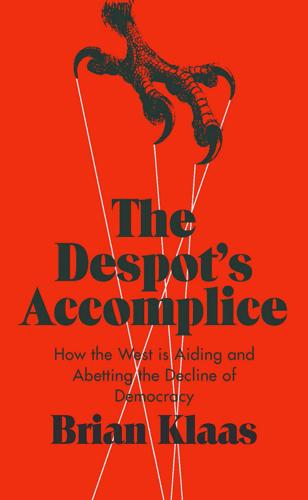
The Despot's Accomplice: How the West Is Aiding and Abetting the Decline of Democracy
by
Brian Klaas
Published 15 Mar 2017
But most importantly, the basic functions of the Libyan state have collapsed. It is a power vacuum, a politically anarchic abyss just a few hundred miles south of Europe. The promise of democracy hinted at by those pushing Western intervention has been replaced by the insecurity and volatility of a failed state. â•… This, of course, was certainly not the exclusive fault of the West. Libyans themselves did not learn from the mistakes made in Iraq. The Libyan “Political Isolation Law” mirrored de-Ba’athification attempts in Iraq, removing from Libya’s political future anyone with any level of € € 77 THE DESPOT’S ACCOMPLICE expertise, because they were considered “tainted” by Gaddafi, who had been in power since 1969.
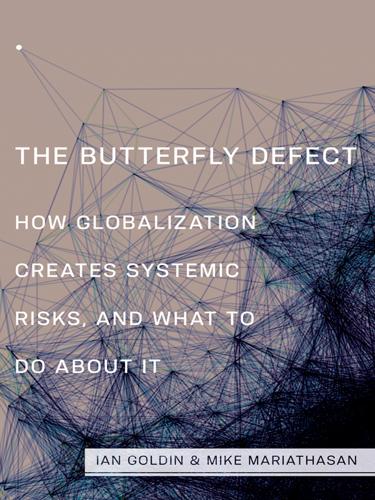
The Butterfly Defect: How Globalization Creates Systemic Risks, and What to Do About It
by
Ian Goldin
and
Mike Mariathasan
Published 15 Mar 2014
Within countries, the educated and the most physically and virtually connected have benefited most. Across countries, the majority of emerging markets are growing at three to five times the rate of the richer countries, leading to what has been dubbed “convergence, big time.”1 However, up to 20 of the poorest countries—the failed states, states in conflict, and those such as North Korea—are isolated as a result of their crises or have turned their backs on globalization. These countries are stagnating or even getting poorer, leading to a widening spectrum of incomes when we compare the richest and the poorest countries. In Globalization for Development Ian Goldin and Kenneth Reinert examine the relationship between globalization and inequality and provide a systematic account of the policies that may lead to more inclusive growth.2 In The Butterfly Defect our concern is with systemic risk, so our focus is on the relationships among globalization, inequality, and systemic risk.

Six Degrees: Our Future on a Hotter Planet
by
Mark Lynas
Published 1 Apr 2008
In the latter part of the century tens of millions of Pakistani citizens may be facing this choice, as the river which has sustained their civilisation for centuries runs dry, and the breadbaskets which it supported are overcome by the spreading desert. Nuclear-armed Pakistan may find itself joining the growing list of failed states, as civil administration collapses and armed gangs seize what little food is left. The rule of the gun would replace the rule of law. In the high mountains, meanwhile, the shimmering white of all but the highest snows will have given way to bare rock and sun-baked soil. Down below, valley glaciers which for millennia ground their way slowly between the peaks will have vanished into rubble.
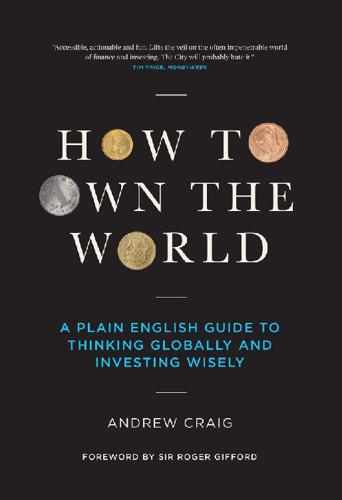
How to Own the World: A Plain English Guide to Thinking Globally and Investing Wisely
by
Andrew Craig
Published 6 Sep 2015
Mainelli, Michael, and Ian Harris. The Price of Fish: A New Approach to Wicked Economics and Better Decisions. London: Nicholas Brealey Publishing, 2014. Mallaby, Sebastian. More Money than God: Hedge Funds and the Making of a New Elite. New York: Penguin, 2010. ———. The World’s Banker: A Story of Failed States, Financial Crises, and the Wealth and Poverty of Nations. New York: Penguin, 2006. Marcus Aurelius. Meditations. London: Penguin, 2006. Markusen, James R., James R. Melvin, Keith E. Maskus and William H. Kaempfer. International Trade: Theory and Evidence. Boston: McGraw-Hill, 1995. Marx, Karl, and Friedrich Engels.

The Truth Machine: The Blockchain and the Future of Everything
by
Paul Vigna
and
Michael J. Casey
Published 27 Feb 2018
The result is a phenomenon known as “de-risking”: a worldwide reduction in the provision of credit and money transmission services to people and places that banks believe are too risky for their business. It works directly against the UN’s and World Bank’s goals on financial inclusion. Consider the Somalia dilemma. It’s near impossible to establish identity in line with formal KYC standards in that failed state, which is a haven for terrorists, pirates, and warlords, and where very few people have sufficiently secure ID documents. So, the U.S. banks, under guidance from the U.S. Treasury Department, have essentially shut down the U.S.-Somalia remittance corridor. The result: an entire country, already extremely poor, is further starved of funds and forced to use expensive and shady black-market methods to move funds in and out of the country.
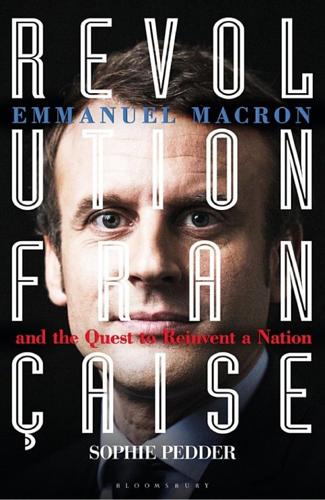
Revolution Française: Emmanuel Macron and the Quest to Reinvent a Nation
by
Sophie Pedder
Published 20 Jun 2018
Macron calls the intervention in Libya in 2011 ‘a historic error’, on a par with that in Iraq in 2003, which the French under Jacques Chirac at the time tried to prevent.4 Outside interference of this sort, he judges, based on a moralizing attempt to teach lessons to regimes deemed ‘evil’, ends up creating new threats: internal and regional conflicts, political instability, mass migration, and a breeding ground for jihadism. ‘Democracy isn’t built from the outside without the people,’ he says. ‘France didn’t take part in the Iraq war, and that was right. And France was wrong to go to war in Libya in this way. What was the result of those interventions? Failed states where terrorist groups prospered.’5 To this end, he has reversed the French policy pursued by Hollande of calling for the removal of Bashar al-Assad, arguing that this should not be a precondition for diplomatic efforts in Syria. ‘It’s not me, in Paris, in an office, who is going to choose the successor to Assad!
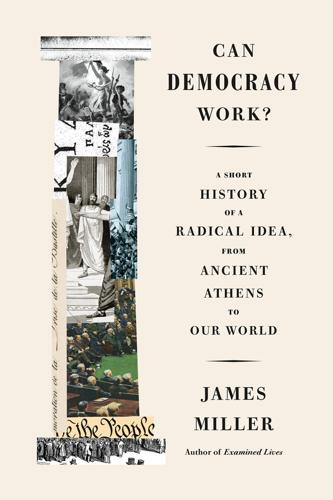
Can Democracy Work?: A Short History of a Radical Idea, From Ancient Athens to Our World
by
James Miller
Published 17 Sep 2018
He frankly feared anarchy more than he feared domination: “‘Who governs?’ is obviously one of the most important questions to ask concerning any political system,” he remarked. “Even more important, however, may be the question, ‘Does anybody govern?’” (For the many peoples around the world in the last century who have had to endure massacres and famines in failed states, these are not academic questions.) Although Huntington briefly worked for Brzezinski when his old friend became national security adviser for the Democratic president Jimmy Carter in the late 1970s, he mainly focused his energies on teaching undergraduates at Harvard—and on episodically commenting in books and articles on the main currents of history as he perceived them.
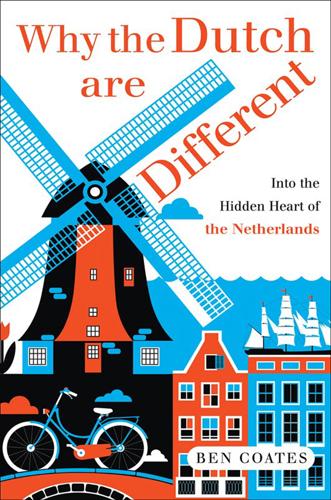
Why the Dutch Are Different: A Journey Into the Hidden Heart of the Netherlands: From Amsterdam to Zwarte Piet, the Acclaimed Guide to Travel in Holland
by
Ben Coates
Published 23 Sep 2015
Church attendance also declined rapidly: in the 1950s around nine out of ten Dutch Catholics attended mass regularly, but by the early 2000s this had fallen to under one in four. By the time of my visit to Eindhoven, the idea of separate football leagues for Protestants and Catholics seemed at best old-fashioned and at worst faintly ridiculous; an example of the kind of balkanised politics usually associated with failing states. However, the Dutch pillars had left a clear legacy, much of it positive. The system of verzuiling enhanced stability in a country that was overcrowded and wracked by war. Along with the need for cooperation to maintain flood defences, pillarisation was one reason the Dutch tended to resolve political disputes through negotiation and compromise.

Hate Inc.: Why Today’s Media Makes Us Despise One Another
by
Matt Taibbi
Published 7 Oct 2019
These people were so pissed and depressed and angry with everyone—especially phonies on television—that they sent Trump to Washington hoping he would blow it all up, so America could start over. Such people are not going to be receptive to a twenty-four-hour lineup of anti-Trump news because they hate the partisanship more than Trump. The “Trump: Let’s get this shit over with” theory—the idea that America was already a failed state and a vote for Trump would just help us to the inevitable ending faster—was posited on the Horace and Pete show during the 2016 election. It might have made Rachel laugh back in the old days, even if she didn’t agree with it. Exploring the nature of that level of political nihilism could have been something she’d have considered interesting once.
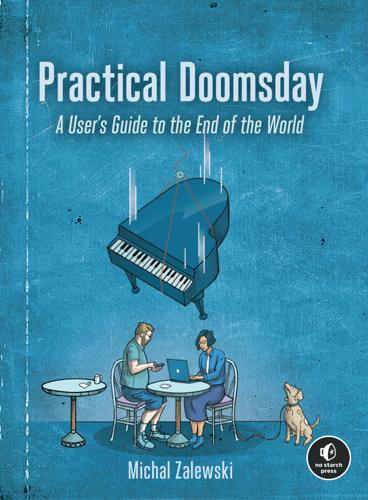
Practical Doomsday: A User's Guide to the End of the World
by
Michal Zalewski
Published 11 Jan 2022
Secondly, it’s not a given that the lesser money would retain the same standing for long. As confidence in the government’s fiscal policy wanes, it’s entirely possible that merchants would refuse to take the state-issued currency, demanding more stable alternatives. We know this was the reality of many failed states in the 20th century—especially in the Soviet Bloc, where all kinds of “luxury” goods had to be purchased with deutsch marks, US dollars, and so forth (and where the government hunted the “currency speculators” and occasionally locked them up). A more valid criticism of Rothbard’s staunchly anti-government views is that debasement generally wasn’t driven by any sinister urges.

The Hidden History of Burma
by
Thant Myint-U
The warning signs are flashing. The two most combustible elements on the Burmese political landscape remain race and inequality. They are now being mixed together with immature democratic institutions, a blind faith in free markets, multibillion-dollar illicit industries, and an uplands awash in weapons. We risk a failed state in the heart of Asia. Burma is running out of time. The country needs a radical agenda to fight inequality and prepare for the climate emergency to come. It needs as well a new story that embraces its diversity, celebrates its natural environment, and aspires to a new way of life. Perhaps most of all, Burma needs a new project of the imagination.

This Sceptred Isle
by
Christopher Lee
Published 19 Jan 2012
And it was the century of the Georges, the third of whom they said was insane. However, the momentous event at the end of the century was the Union of Great Britain with Ireland. It was more than a significant constitutional moment. Ireland and Britain joined together because Ireland was, to the British, fast becoming a failed State in rebellion. The object of that rebellion was the so-called Protestant Ascendancy that ruled Ireland and therefore the British rule itself. The Protestant Ascendancy was the almost entirely Protestant/Anglican organization that ruled a nation island that was 75 per cent Roman Catholic. The rebellion came not from the Catholics but was initiated from a Presbyterian-based movement known as the United Irishmen (see p.405).
…
Henry Grattan (1746–1820) and his Patriot Party led the opposition. Instead of Union, Grattan achieved limited legislative independence in 1782. Grattan was part of the Protestant Ascendancy and supported the Crown but wanted Parliamentary reform and Catholic Emancipation (which George III did not). By the 1790s, Ireland was becoming a failing State and breeding open rebellion by a mix of Presbyterian and Catholic Defenders. The Defenders dated from the 1780s. They were Catholic vigilantes formed in Armagh to defend their people against the Protestant Boys (later the Orange Order). Following the Ulster cleansing of Catholics in the mid-1790s, the Defenders moved with other Catholics to Leinster and Connaught.
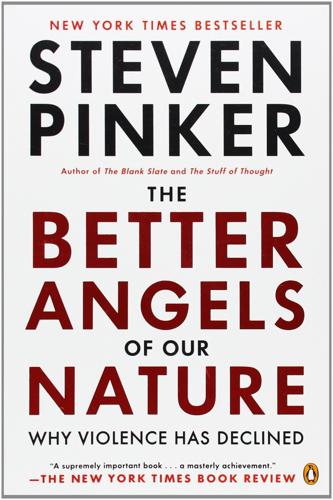
The Better Angels of Our Nature: Why Violence Has Declined
by
Steven Pinker
Published 24 Sep 2012
Tribes and chiefdoms can maintain their ways indefinitely, such as the Montenegrin tribes in Europe that lasted into the 20th century. And when a state breaks down, it can be taken over by tribes, as in the Greek dark ages (which followed the collapse of the Mycenaean civilization and in which the Homeric epics were set) and the European dark ages (which came after the fall of the Roman Empire). Even today, many parts of failed states, such as Somalia, Sudan, Afghanistan, and the Democratic Republic of the Congo, are essentially chiefdoms; we call the chiefs warlords.27 For all these reasons, it makes no sense to test for historical changes in violence by plotting deaths against a time line from the calendar. If we discover that violence has declined in a given people, it is because their mode of social organization has changed, not because the historical clock has struck a certain hour, and that change can happen at different times, if it happens at all.
…
What happens to the trends when we start looking for the keys that don’t fall under these lampposts? The first exclusion consists of the nonstate conflicts (also called intercommunal violence), in which warlords, militias, mafias, rebel groups, or paramilitaries, often affiliated with ethnic groups, go after each other. These conflicts usually occur in failed states, almost by definition. A war that doesn’t even bother to invite the government represents the ultimate failure of the state’s monopoly on violence. The problem with nonstate conflicts is that until recently war buffs just weren’t interested in them. No one kept track, so there’s nothing to count, and we cannot plot the trends.
…
Pockets of anarchy that lay beyond the reach of government retained their violent cultures of honor, such as the peripheral and mountainous backwaters of Europe, and the frontiers of the American South and West (chapter 3). The same is true of the pockets of anarchy in the socioeconomic landscape, such as the lower classes who are deprived of consistent law enforcement and the purveyors of contraband who cannot avail themselves of it (chapter 3). When law enforcement retreats, such as in instant decolonization, failed states, anocracies, police strikes, and the 1960s, violence can come roaring back (chapters 3 and 6). Inept governance turns out to be among the biggest risk factors for civil war, and is perhaps the principal asset that distinguishes the violence-torn developing world from the more peaceful developed world (chapter 6).

Utopia Is Creepy: And Other Provocations
by
Nicholas Carr
Published 5 Sep 2016
“If you can start a new business, why can you not start a new country?” he asks. In a speech last fall at the Y Combinator Startup School, venture capitalist Balaji Srinivasan channeled Leary when he called for “Silicon Valley’s Ultimate Exit”—the establishment of a new country beyond the reach of the U.S. government and other allegedly failed states. “You know, they fled religious persecution, the American Revolutionaries which left England’s orbit,” Srinivasan said, referring to the Pilgrims. “Then we started moving west, leaving the East Coast bureaucracy.” Now, the time has come for innovators to start up their own society: What do I mean by Silicon Valley’s Ultimate Exit?
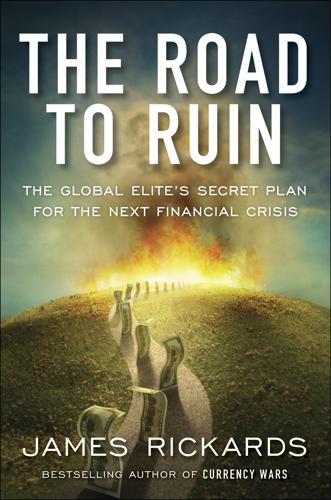
The Road to Ruin: The Global Elites' Secret Plan for the Next Financial Crisis
by
James Rickards
Published 15 Nov 2016
The transition to this new world order based on digital wealth and world money rather than Westphalian sovereignty has some rough edges. Important states like Russia and Iran are actively hostile to the West. Tensions are rising between the United States and China. Rogue states like North Korea, and failed states like Venezuela, remain exceptions to the elite plan. U.S. digital dollar dominance enables unacceptable U.S. hegemony from the perspective of these confrontational and rogue nations. Led by China, emerging economies are building alternative digital payments systems to avoid dependency on the United States.
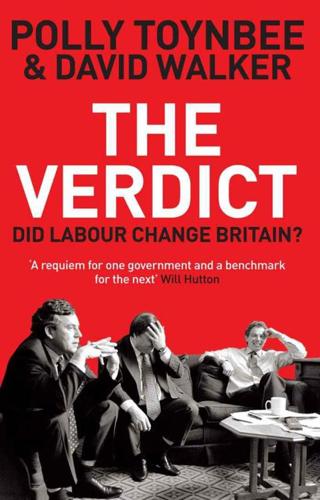
The Verdict: Did Labour Change Britain?
by
Polly Toynbee
and
David Walker
Published 6 Oct 2011
From ‘the globe’ came a wave of asylum seekers, preoccupying ministers and distorting Labour’s plans. The Cabinet Office National Security Strategy (2008) declared that no state threatened the UK directly. Instead, it was at risk from globalization’s stepchildren – international terror, WMD, implosion of failed states, pandemics and transnational crime. Labour tried to give the ‘international community’ some bite. The trials of Slobodan Miloševic and Radovan Karadžic at the International Criminal Court offered a sense that justice might prevail, however long and tortuous the road. Ministers signed the Ottawa Convention to outlaw anti-personnel landmines.

The Boy Who Could Change the World: The Writings of Aaron Swartz
by
Aaron Swartz
and
Lawrence Lessig
Published 5 Jan 2016
<http://assets.opencrs.com/rpts/RL3320920090105.pdf><http://www.webcitation.org/5wCgrxVjC>. * Forstater, Ira B. November 1995. “House Legislative Counsel’s Manual on Drafting Style.” The Office of the Legislative Counsel, U.S. House of Representatives HLC 104-1. <http://www.house.gov/legcoun/pdf/draftstyle.pdf><http://www.webcitation.org/5wChLv2J8>. * Chomsky, Noam. 2006. Failed States: The Abuse of Power and the Assault on Democracy (Macmillan). ISBN 0805079122, 234. * DeNavas-Walt, Carmen, Bernadette D. Proctor, and Robert Mills. August 2004. “Income, Poverty, and Health Insurance Coverage in the United States: 2003.” U.S. Census Bureau, Current Population Reports P60-226.
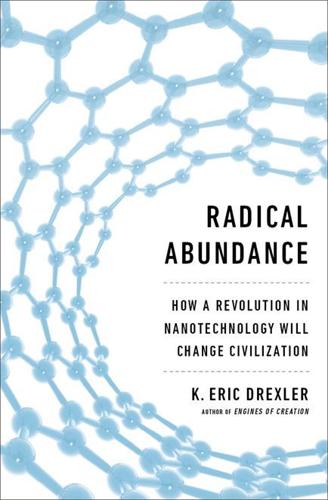
Radical Abundance: How a Revolution in Nanotechnology Will Change Civilization
by
K. Eric Drexler
Published 6 May 2013
From the Office of the Secretary of Defense, “Military Power of the People’s Republic of China” (Annual Report to Congress, 2008): “As China’s economy grows, dependence on secure access to markets and natural resources, particularly metals and fossil fuels, is becoming a more urgent influence on China’s strategic behavior.” From the US Joint Forces Command, “Joint Operating Environment” (2010): “A severe energy crunch is inevitable without a massive expansion of production and refining capacity . . . an economic slowdown would exacerbate other unresolved tensions, push fragile and failing states further down the path toward collapse, and perhaps have serious economic impact on both China and India. . . . One should not forget that the Great Depression spawned a number of totalitarian regimes that sought economic prosperity for their nations by ruthless conquest.” 269enduring importance of military strength and arms development: There are several reasons for this.
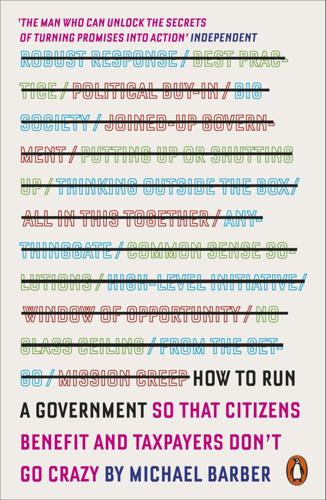
How to Run a Government: So That Citizens Benefit and Taxpayers Don't Go Crazy
by
Michael Barber
Published 12 Mar 2015
M. (2005), The Moral Consequences of Economic Growth, New York, Alfred Knopf Friedman, M. (2005), Trying Hard is Not Good Enough, Victoria, Canada, Trafford Publishing Friedman, T. (2006), The World Is Flat: A Brief History of the Twenty-first Century, London, Penguin — and Mandelbaum, M. (2011), That Used to Be Us: What Went Wrong with America and How it Can Come Back, New York, Little, Brown Fukuyama, F. (2011), The Origins of Political Order: From Prehuman Times to the French Revolution, London, Profile Books — (2014), Political Order and Political Decay: From the Industrial Revolution to the Globalisation of Democracy, London, Profile Books Garman, J. (2014), Europe’s Power: Re-energising a Progressive Climate and Energy Agenda, London, Institute for Public Policy Research Gawande, A. (2008), Better: A Surgeon’s Notes on Performance, London, Profile Books — (2010), The Checklist Manifesto: How to Get Things Right, London, Profile Books Ghani, A. and Lockhart, C. (2009), Fixing Failed States: A Framework for Rebuilding a Fractured World, Oxford, Oxford University Press Giuliani, R. (2002), Leadership, New York, Little, Brown Gold, J. (2014), International Delivery: Centres of Government and the Drive for Better Policy Implementation,London, Institute for Government Goodwin, D. K. (2013), The Bully Pulpit: Theodore Roosevelt, William Howard Taft and the Golden Age of Journalism, New York, Simon & Schuster Guha, R. (2013), Gandhi Before India, London, Allen Lane Halberstam, D. (1992), The Best and the Brightest, New York, Ballantine Books Harding, R. (2014), ‘World Bank: Man on a Mission’, London, Financial Times, 7 April Harris, J. and Rutter, J. (2014), Centre Forward: Effective Support for the Prime Minister at the Centre of Government, London, Institute for Government Harvard Business Review (2013), On Teams, Boston, Harvard Business Review Press Heifetz, R. (1994), Leadership Without Easy Answers, Boston, Harvard University Press — and Linsky, M. (2002), Leadership on the Line: Staying Alive Through the Dangers of Leading, Boston, Harvard Business School Press Heimans, J. and Timms, H. (2014), ‘Understanding “New Power” ’, Harvard Business Review Hennessy, P. (2000), The Prime Minister: The Office and its Holders Since 1945, London, Allen Lane Hill, P. et al (2013), Strife and Progress: Portfolio Strategies for Managing Urban Schools, Washington, Brookings Institution Press Holt, R. (2001), Second Amongst Equals: Chancellors of the Exchequer and the British Economy, London, Profile Books Hunt, T. (2005), Building Jerusalem: The Rise and Fall of the Victorian City, New York, Metropolitan Books Hyman, P. (2005), 1 Out of 10, London, Vintage Iyer, D. (2011), ‘Interview with Idris Jala’ for Innovations for Successful Societies, Woodrow Wilson School of Public and International Affairs and the Mamdouha S.
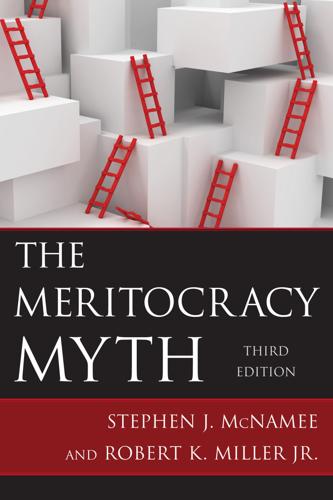
The Meritocracy Myth
by
Stephen J. McNamee
Published 17 Jul 2013
But anticipating that some states might allow gay and lesbian couples to marry legally, Congress enacted the Defense of Marriage Act (DOMA) in 1996, which denies federal recognition of same-sex marriages. Nevertheless, as of 2012, nine states as well as the District of Columbia permit same-sex marriages. Public sentiment is quickly shifting in favor of more tolerant attitudes regarding homosexuality, especially among younger cohorts. After thirty failed state public referenda to allow same-sex marriage, for the first time in 2012 public referenda in Maine, Maryland, and Washington passed allowing same-sex marriages to take place. Using General Social Survey data from 1973 to 2010, Tom W. Smith (2011) found that the American public clearly makes a distinction between whether homosexuality is morally wrong and whether homosexuals should be allowed certain civil rights.
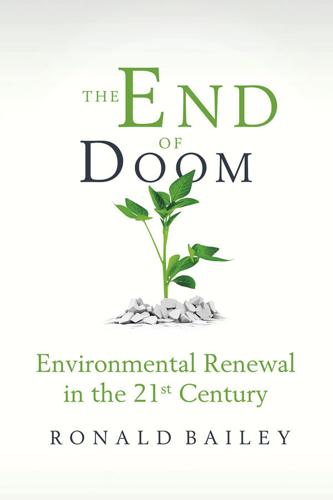
The End of Doom: Environmental Renewal in the Twenty-First Century
by
Ronald Bailey
Published 20 Jul 2015
Their corresponding total fertility rates are 6.9, 6.0, 6.1 6.2, 4.9, and 5.4 children per woman. Social, political, and economic chaos certainly afflicts those countries. George Mason University’s Center for Systemic Peace has devised a State Fragility Index as a way to measure a country’s stability, with scores ranging from 0, meaning no fragility, to a high of 23, denoting a failed state. On the index, Mali scores 19, Nigeria 16, Congo 23, Burundi 18, Ivory Coast 16, and Afghanistan 22. In contrast, all twenty-two countries with a fragility score of 0 have below replacement fertility rates. Tragically, the political violence and economic chaos endemic in so many countries in sub-Saharan Africa, the ongoing food insecurity, the pervasive risk of disease, a high before-age-five child mortality rate, the lack of education, and their low social status provide African women many grounds to wonder just how long they may expect to live.

Choked: Life and Breath in the Age of Air Pollution
by
Beth Gardiner
Published 18 Apr 2019
Flanking the entrance of a technical college I visit are a pair of heroically proportioned, pick-wielding miners, sculpted in a blocky style reminiscent of old Soviet renderings of muscle-bound laborers. That image of strength and self-sufficiency underpins the deference the industry still gets, and its political power. Not long before my visit, angry miners responded with street protests and strikes to a government plan to close mines and restructure a failing state-run company. The prime minister quickly backed down. When European nations meet to discuss climate or air quality, to negotiate rules or deals that might help slow the planet’s warming or ease its people’s breathing, Poland is the eternal obstacle, coal’s staunchest defender, delaying and diluting any effort to hamper its use of that precious black gold.
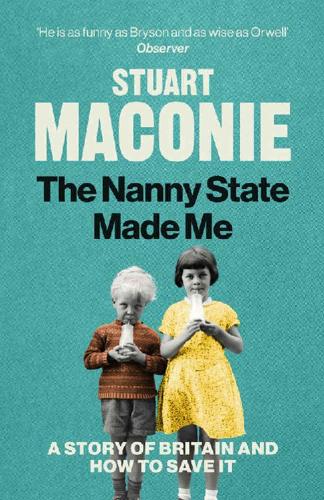
The Nanny State Made Me: A Story of Britain and How to Save It
by
Stuart Maconie
Published 5 Mar 2020
In Prescot, the old library building has been sold off and refashioned into a glass-fronted luxury home, though for God knows who. The leisure centre has been razed and with it the public swimming pool. The museum and art gallery have gone. All of this was noted by the New York Times in one of those pieces that feel embarrassingly anthropological; a report on our own nation that reads like a critique of a failed state or a Third World country run by a corrupt despot rather than the place we love and grew up in. In the much-discussed piece, it was reported how Brown’s Field, ‘a lush park in the centre of town’, was one of seventeen parks earmarked for sale to developers. ‘Everybody uses this park,’ said Jackie Lewis.

On Grand Strategy
by
John Lewis Gaddis
Published 3 Apr 2018
The first Kennan’s Siberians, the saintly Augustine, and the sinful Machiavelli devised strategies for salvation: the Siberians from blizzards, earthquakes, diseases, famines, and shimmering lights in the night sky; the saint from disorder on earth and fires in Hell; the sinner from incompetent rulers and the failed states they ran. The Siberians sacrificed animals to satisfy gods. The saint sought Reason in a single God. The sinner did without gods—and God—altogether. Siberians had unwritten rituals of propitiation. Augustine mapped imaginary cities in a big book. Machiavelli prepared a brief for a prince whose attention span in no way matched that of its subsequent readers.
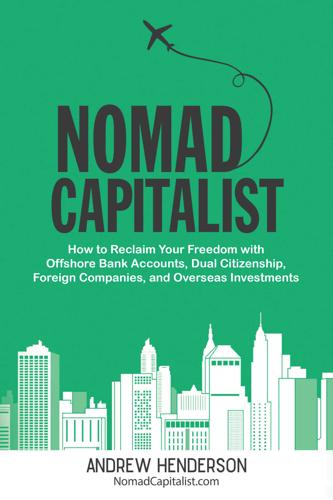
Nomad Capitalist: How to Reclaim Your Freedom With Offshore Bank Accounts, Dual Citizenship, Foreign Companies, and Overseas Investments
by
Andrew Henderson
Published 8 Apr 2018
The former Soviet state of Estonia has become an excellent example of innovation in both the private sector and government. In 2016, US presidential candidate Jeb Bush suggested that his country should adopt a tax system as simple as that of Estonia. Thirty years earlier, Estonia was part of a failed state minutes away from dissolution. In one generation, Estonians went from boiling stones for dinner to inventing Skype and creating one of the most transparent governments on earth. The reality is that none of us can know what will happen next. Like bankruptcy, countries tend to become irrelevant very slowly… and then all at once.
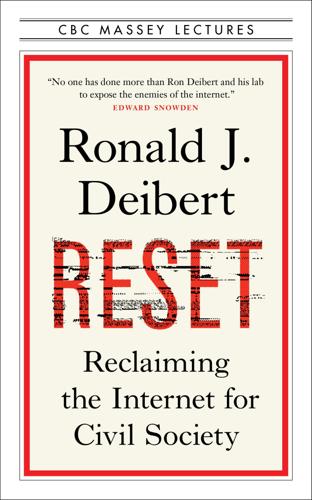
Reset
by
Ronald J. Deibert
Published 14 Aug 2020
Political scientist Steven Feldstein, who has studied the use of AI for digital repression, found that “China is a major driver of AI surveillance worldwide,” and that “Chinese companies — particularly Huawei, Hikvision, Dahua, and ZTE — supply AI surveillance technology in sixty-three countries, thirty-six of which have signed onto China’s Belt and Road Initiative.”230 Fuelled with low-interest, state-backed loans and other subsidies, Chinese companies are spreading quickly through corrupt, fragile, or failed states looking to emulate China’s information control regime. An archetypal example is Brazil.231 After a group of Brazilian lawmakers visited China, where they were feted and given demonstrations of China’s showcase surveillance technologies, they returned to Brazil and introduced legislation that aims to make facial recognition systems mandatory in all public places.

A Small Farm Future: Making the Case for a Society Built Around Local Economies, Self-Provisioning, Agricultural Diversity and a Shared Earth
by
Chris Smaje
Published 14 Aug 2020
Outlaws have likewise mostly disappeared from well-established modern capitalist societies. There’s no real opportunity for them, given the centralised state’s powerful reach, though they’re growing at the peripheries of the capitalist world in the guise of monsters spawned by its own disorderly externalities. We see this in ‘failed states’ and economic basket cases, terrorists, drug cartels, Islamist militants and other entrepreneurs of violence. But the big man role has amplified in modern capitalism. In premodern societies, not many people had the power or resources to play it, but the essence of capitalist ideology is that we must all give and take prodigiously in the marketplace.

Making It in America: The Almost Impossible Quest to Manufacture in the U.S.A. (And How It Got That Way)
by
Rachel Slade
Published 9 Jan 2024
Congolese cobalt is an essential ingredient in the new “green” economy, which depends on lithium-ion batteries packed with the substance. Mining companies may be the most destructive and corrupt entities on God’s green earth, and they basically own Congo, which most people would consider a failed state. More than half of the 100 million people living in Congo are under fourteen years old. Only 5 percent of the population lives past age fifty-five. Robert said that he and Makenga separately fled their country in search of a “place to get a job, to survive, and to help those who remained behind.”
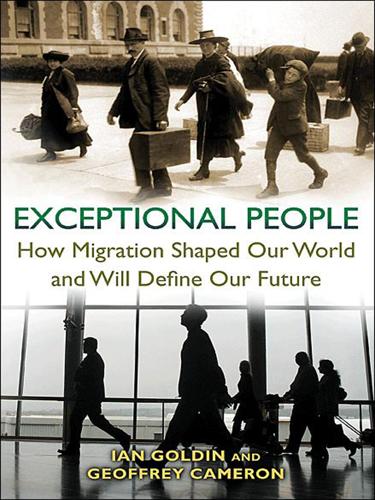
Exceptional People: How Migration Shaped Our World and Will Define Our Future
by
Ian Goldin
,
Geoffrey Cameron
and
Meera Balarajan
Published 20 Dec 2010
The popular claim that globalization leads to the convergence of incomes between poor and rich countries has been shown to be demonstrably false, thus far.22 This is not to say that developing countries do not grow through their participation in the global economy or that people in developing countries do not make more than they would have otherwise. It means that when we compare whole countries, income inequality appears to grow wider through the process of globalization—primarily because growth among a subset of the poorest countries (including the failed states) stagnates compared to the rest. The income gap between the richest country and poorest country in the world about 250 years ago was about 5 to 1, whereas today it is around 400 to 1. Although incomes in all countries have risen over the long term, economists have found that “virtually all of the observed rise in world inequality has been driven by widening gaps between nations.”23 Figure 7.2.
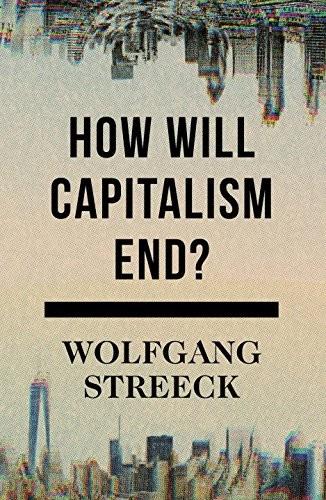
How Will Capitalism End?
by
Wolfgang Streeck
Published 8 Nov 2016
The causes of this cannot be explored here; one can assume, however, that they include the demonstration effect of the defeats suffered by the United States in successive wars, as well as declining domestic support for what is now considered foreign ‘adventures’ by a majority of U.S. citizens. ‘Nation-building’ having failed in large parts of the world, the global system of sovereign development-friendly free-trade states as originally envisaged shows growing holes and gaps, with failed states as a permanent source of unpredictable and unmanageable political and economic disorder. In many of them, fundamentalist religious movements have taken control, rejecting modernism and international law and seeking an alternative to consumerist capitalism, which they can no longer expect to replicate in their countries.
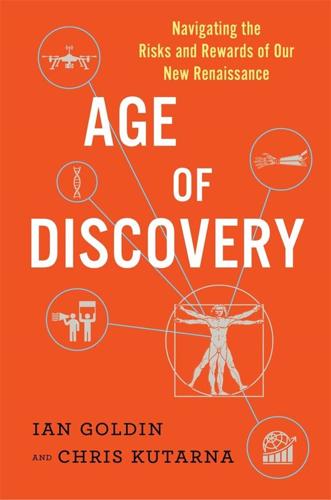
Age of Discovery: Navigating the Risks and Rewards of Our New Renaissance
by
Ian Goldin
and
Chris Kutarna
Published 23 May 2016
Still, the divergence of fortunes at the top and bottom doesn’t change the broad truth: the world is a dramatically healthier, wealthier, more educated place than before our New Renaissance began. This is especially true for people born poor, who stand a better chance now of escaping poverty and living a longer, healthier life than at any other moment in history. The positive achievements dominate, for two reasons. First: scale. The blunt fact is that the worst cases of failing states and backwards stumbles are relatively small, while the best achievements of the past couple decades are very big. The combined populations of the six least developed countries in the world do not quite equal the population of a single average-sized Chinese or Indian province. Some argue that this fact exposes humanity’s recent achievements as hollow.

Radicals Chasing Utopia: Inside the Rogue Movements Trying to Change the World
by
Jamie Bartlett
Published 12 Jun 2017
Entering into agreements voluntarily is a very enticing prospect, especially when you are well educated and are reasonably well off. (Public spending in Susanne’s home country of Sweden, where she was born and educated, has averaged 55 per cent between 1993 and 2015.28) There’s a reason you don’t get many libertarian movements in countries with weak and failing states: borders and functioning central governments provide security and stability. They allow a cohesive unit or group of people to live safely together according to their own culture and political beliefs, by raising and spending collectively raised finances to protect the nation, and pay for certain collectively agreed services.

Whole Earth Discipline: An Ecopragmatist Manifesto
by
Stewart Brand
Published 15 Mar 2009
Nils Gilman at GBN notes that “while a single extreme event may be relatively easy to withstand, a second in succession is likely to be far more devastating, as normal resiliency measures are built to deal with one but not multiple consecutive extreme events.” Governments, he concludes, “will experience climate change not as a smooth transformation, but rather as a series of radical discontinuities—as a series of bewildering ‘oh shit’ events. Environmentally failed states are a nontrivial possibility.” Repetition knocks you down; duration kills you. Complex societies can handle drought, but not multidecade drought. That’s the historic civilization killer, says archaeologist Brian Fagan. It brought down the ancient empires of the Middle East and Central America.
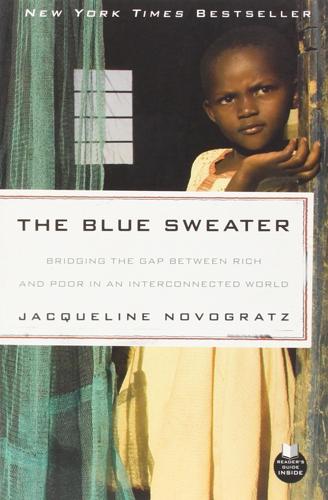
The Blue Sweater: Bridging the Gap Between Rich and Poor in an Interconnected World
by
Jacqueline Novogratz
Published 15 Feb 2009
Norton) Portfolios of the Poor: How the World’s Poor Live on $2 a Day by Daryl Collins, Jonathan Morduch, Stuart Rutherford, and Orlanda Ruthven (Princeton University Press) The White Man’s Burden: Why the West’s Efforts to Aid the Rest Have Done So Much Ill and So Little Good by William Easterly (Penguin Books) Wikinomics: How Mass Collaboration Changes Everything by Don Tap-scott and Anthony D. Williams (Portfolio Hardcover) The World’s Banker: A Story of Failed States, Financial Crises, and the Wealth and Poverty of Nations by Sebastian Mallaby (Penguin Press) INDEX A Abid, Sadaffe, 237 Accountability accepting, 284 for genocide in Rwanda, 190 lack of, consequences of, 131, 200, 213 leadership and, effective, 277 need for, in nonprofit organizations, 34, 140, 153–54, 214 poverty solution and, 272 problems with in blue bakery, 79–80 in Duterimbere, 70–71 success from implementing, 88 Acumen Fund bank credit and, 268 board of, 219 building, 202 challenge of, early, 219–20 change in approaches of, 228–29 culture of, 220 donor-grantee relationship in, 218 fellows program, 278–79 founding of, 216–17, 218–19 Godin and, 279–80 IDEO and, 270 impact of, 281–82 Investment Gathering of, 281–82 investments of by 2008, 281 Aravind, 221–25 Drishtee, 231–33, 275 IDE India, 247–50 Kashf, 237–38 Saiban, 238–47 style of, 229 WaterHealth International, 265–71 for women, 231–32 Muslim world and, 227 naming of, 217 Novogratz’s resolve about, 276–77 patient capital and, 229, 234 Philanthropy Workshop members and, 154 private sector approaches to distribution and, 260–61, 264 registration of, 217–18 September 11, 2001, terrorist attacks and, 225–27 ADB, 10, 15, 21 Addy, Tralance, 265 Adrien (Acumen Fund fellow), 278 Africa.

The Art of Monitoring
by
James Turnbull
Published 1 Dec 2014
Warning As we discussed in Chapter 4, if you change the resolution of your collection, then it will be difficult to compare data collected during periods with the previous resolution. The second global option, CheckThresholds, can be set to true or false, and controls how state is set for collected data. The collectd daemon can check collected data for thresholds, marking data with metrics that exceed those thresholds as being in a warning or failed state. We're not going to set any specific thresholds right now, but we're turning on the functionality because it creates a default state—shown in the :state field in a Riemann event—of ok that we can later use in Riemann. The WriteQueueLimitHigh and WriteQueueLimitLow options control the queue size of write plugins.

Habeas Data: Privacy vs. The Rise of Surveillance Tech
by
Cyrus Farivar
Published 7 May 2018
Echoing this lack of understanding, Cyrus Vance, Jr., the district attorney for Manhattan, even testified before Congress in 2015: “Criminal defendants across the nation are the principal beneficiaries of iOS 8, and the safety of all American communities is imperiled by it.” As 2016 rolled around, there were three failed state bills proposed in New York, California, and Louisiana that would have made strong encryption effectively illegal, but the proposals went nowhere. * * * This lengthy back-and-forth between federal law enforcement and tech companies finally came to a head in February 2016, when Apple received that first court order requiring the company to build a custom-made operating system that would bypass the passcode lockout on Farook’s iPhone.
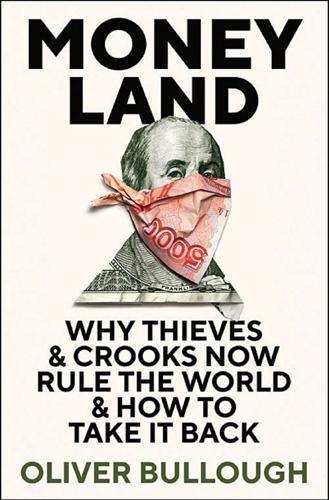
Moneyland: Why Thieves and Crooks Now Rule the World and How to Take It Back
by
Oliver Bullough
Published 5 Sep 2018
And this again is a feature of many developing countries that have been wrecked by corruption. The daughter of Angola’s longest-serving president has become Africa’s richest woman, sashaying around the West like an A-list celebrity while the rest of her nation struggles by in what is essentially a failed state. The daughter of Azerbaijan’s president produces films and publishes glossy magazines, and the sons of its emergencies minister run a lobbying operation from the heart of London. It is all but impossible to imagine countries with such skewed economies building healthy democracies, or honest political systems, or even being able to defend themselves.
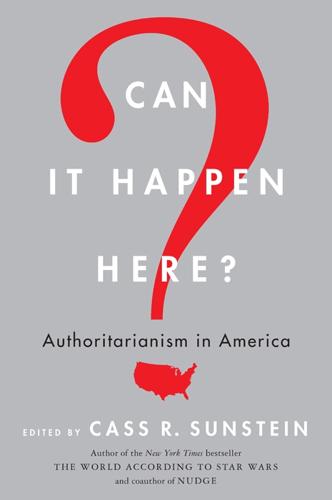
Can It Happen Here?: Authoritarianism in America
by
Cass R. Sunstein
Published 6 Mar 2018
Our central problem today is the seemingly global discontent with liberal democracy itself.6 Many polls suggest that young people are especially likely to feel disenchanted or simply uninterested in electoral competition. In Italy, where popularly elected leaders seem paralyzed in the face of economic stagnation and unstanched migrant flows from the failed state of Libya, one shocking poll reports that 83 percent of voters between the ages of eighteen and twenty-nine prefer a strong leader to a democracy.7 However methodologically sound, admittedly, such surveys provide scant evidence that elections are about to be canceled in any advanced Western democracy, much less that democracy in general is on the cusp of dying “to thunderous applause,” to cite the renowned Senator Padmé Amidala.
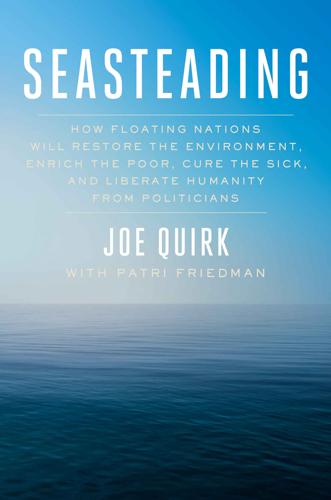
Seasteading: How Floating Nations Will Restore the Environment, Enrich the Poor, Cure the Sick, and Liberate Humanity From Politicians
by
Joe Quirk
and
Patri Friedman
Published 21 Mar 2017
If you were one of the bottom billion, would you want to take a blue job working a seastead algae farm? We don’t need bailouts for billionaires. We need life rafts for the bottom billion. Our long-term plan is to build new city-states for the hundreds of millions of would-be emigrants around the world who are ready to give up on their failed states. After all, it’s the poor who suffer the most from backward governance, not those wealthy enough to rig governments in their favor. Immigrants in previous centuries came to the American frontier. We think immigrants in the twenty-first century will migrate to floating frontiers because seasteads won’t survive without offering them better options.

The Next Great Migration: The Beauty and Terror of Life on the Move
by
Sonia Shah
Refugees, by its definition, are those who flee state persecution of members of their race, or their religious or social group, that is, the kind of abuse doled out by the Nazis, whose crimes motivated the formulation of the convention in the first place. Those who move across borders to escape oppression and abuse doled out through other means—the oppression of poverty or environmental degradation, say, or the abuse of a failed state that refuses to police their communities or educate their kids—do not qualify,22 although they fit perfectly into our colloquial understandings of the term “refugee.” Some countries have signed treaties with each other so that they can refuse entry even to those fleeing Nazi-style persecution, if they’d passed through any other country where they might have been able to apply for refuge en route.
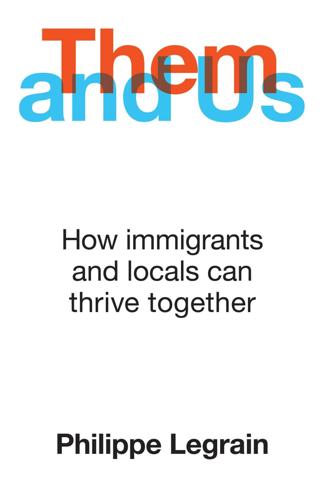
Them and Us: How Immigrants and Locals Can Thrive Together
by
Philippe Legrain
Published 14 Oct 2020
They can help stabilise local economies, since unlike inflows of hot money they often remain stable, or even increase, in bad times.21 And they boost countries’ balance of payments and thus their credit ratings, enabling governments, companies and households to borrow more cheaply. Without remittances, the Philippines would have a dangerously high current-account deficit of more than 10 percent of GDP; with them, it recorded a surplus of 2.2 percent of GDP in 2019. However, their impact on growth depends on local conditions. Sending money home to a family in a failed state may do wonders for their wellbeing, but it is unlikely to spark an economic renaissance unless other improvements happen too. Remittances keep communist Cuba afloat; they don’t turn it into an economic speedboat. Like other capital inflows, remittances may also bid up the exchange rate, stifling exporting industries, especially in small economies where they are large and primarily spent on imports rather than locally.

Green Philosophy: How to Think Seriously About the Planet
by
Roger Scruton
Published 30 Apr 2014
Any policy that abolishes rightful claims or refuses to identify and punish theft – such as socialist policies of state ownership, or the property vacuum that ensues when there is neither law nor enforceable custom – threatens stewardship, and is likely to lead to the kind of desertification that we witness in the failed states of North-east Africa, or to the irreversible degradation of the environment that we witness in Russia. Minerals are not renewable, and rare minerals that are, or have become, vital to human wellbeing may be depleted at rates that threaten the long-term interests of our species. But what is the remedy?

Billionaire, Nerd, Savior, King: Bill Gates and His Quest to Shape Our World
by
Anupreeta Das
Published 12 Aug 2024
But the metrics eventually didn’t appear promising enough and the foundation pulled its funding, leaving many school districts with the additional costs. Another effort involved directing hundreds of millions of dollars to promote common core standards, under which states adopt the same assessment metrics for subjects like English and math. However, teachers were not initially trained to teach the curriculum, and as children began failing, states pulled back from using common core standards. By the time the foundation recognized the importance of training and tailoring teaching to local realities, it was too late. It has since deemphasized the program, acknowledging that national standards didn’t give individual schools enough adaptability.
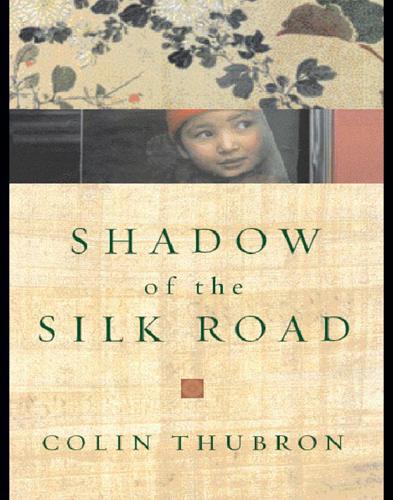
Shadow of the Silk Road
by
Colin Thubron
Published 1 Jan 2006
The archaeologist Aurel Stein, while investigating a watch-tower in the Lop desert, came upon a cache of undelivered mail, with messages in Sogdian dating back to AD 313. These are the first known inscribed paper. Their words are in carbon ink. One contains the outburst of a neglected wife (‘I’d rather be a dog’s or a pig’s wife than yours!’). Another touches on the failing state of China–the sack of cities, the flight of the Emperor–and its implications for trade. But for the rest, across their fragments, the script runs neat as a company balance-sheet: ‘In Guzang there are 2,500 measures of pepper for dispatch…Kharstang owed you 20 staters of silver…He gave me the silver and I weighed it, and there were only 4.5 staters altogether.
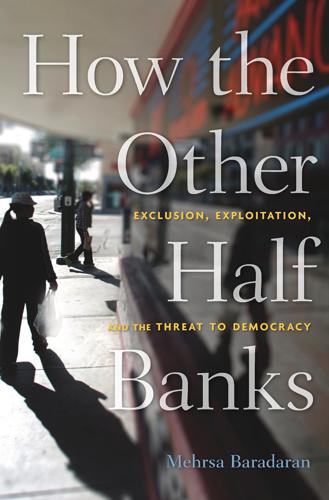
How the Other Half Banks: Exclusion, Exploitation, and the Threat to Democracy
by
Mehrsa Baradaran
Published 5 Oct 2015
If you suspected that because of a limited insurance pool, only ninety of a bank’s one hundred customers would get their deposits back in the event of a bank failure, you would run to the bank to make sure you were among the ninety. You would refuse to take even a 10 percent chance of not getting your money back. The effect of a run is the same: the bank fails. State and private funds eventually run out. Federal funds do not. Even when the federal deposit insurance fund goes in the “red”—as the FDIC fund did in 2010—it can get a loan from the United States Treasury, which essentially has the power to insure all depositors.17 Therefore, banks need to be backed by the full faith and credit of the federal government in order to attract customer deposits.

Warnings
by
Richard A. Clarke
Published 10 Apr 2017
Aiding the Syrian opposition in any significant way was a slippery slope to another U.S. military intervention, the President thought. Obama had been persuaded years earlier to get involved in Libya, ordering extensive U.S. airstrikes against the Qaddafi regime. That resulted in a quagmire, continuing violence, growing terrorist groups, and a failed state. He did not want to get involved militarily in the Middle East again, especially since he had finally pulled U.S. troops out of Iraq and was pushing hard politically to get them out of Afghanistan too. Ford thought Obama’s fear of a slippery slope was unjustified. He contrasted Obama’s fear with the kind of carrot-and-stick diplomacy that President Clinton had conducted with the help of Ambassador Richard Holbrooke in the Balkans during the 1990s.
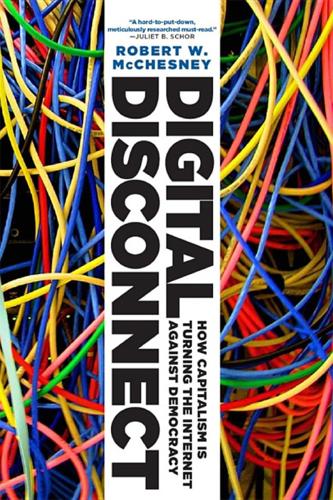
Digital Disconnect: How Capitalism Is Turning the Internet Against Democracy
by
Robert W. McChesney
Published 5 Mar 2013
We wouldn’t accept this model for public education. Nor should we for journalism. But wait, don’t government subsidies for journalism violate everything America stands for? Aren’t they an affront to the most elementary notions of freedom and democracy? Isn’t it better to risk going down in flames as a failed state than to open that Pandora’s box? Baseball, Hot Dogs, Apple Pie . . . and Public Investments in Journalism? In 1787, as the Constitution was being drafted in Philadelphia, Thomas Jefferson was ensconced in Paris as this young, undefined nation’s minister to France. From afar he corresponded on the matter of what was required for successful democratic governance.
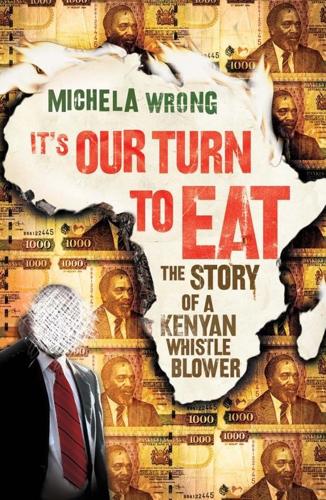
It's Our Turn to Eat
by
Michela Wrong
Published 9 Apr 2009
Moi's far leaner economy struggled, in contrast, to sustain the impact of State House's system of authorised looting, which a minister later estimated to have cost the taxpayer a total of 635 billion Kenya shillings (roughly $US10 billion) in the space of twenty-four years.29 Identical practices were viewed in the West with freshly critical eyes. The fall of the Berlin Wall meant support for disreputable African regimes could no longer be justified on traditional ‘He may be a bastard, but he's our bastard’ lines. Many of those bastards were seen to produce failed states, judged – with the menace of the Soviet empire gone – to threaten Western interests. The new head of the World Bank, the Australian James Wolfensohn, gave voice to the new approach when he declared corruption an ‘intolerable cancer’. Donors began digging in their heels, insisting on elections and attaching ever more detailed conditions to their money.

Cybersecurity: What Everyone Needs to Know
by
P. W. Singer
and
Allan Friedman
Published 3 Jan 2014
As in cyberspace today, one of the biggest challenges for major powers was that an attacker could quickly shift identity and locale, changing its flags and often taking advantage of third-party harbors with loose local laws. Maritime piracy is still with us, but it’s confined off the shores of failed states like Somalia and occurs on a miniscule scale compared to its golden age (only 0.01 percent of global shipping is taken by modern-day pirates). Privateering, the parallel to the most egregious attacks we have seen in the cyber realm, is completely taboo. Privateers may have helped the US against the British in the War of 1812, but by the time the American Civil War started in 1861 President Lincoln not only refused to recruit plunderers-for-hire, but also blasted the Confederates as immoral for opting to employ them.
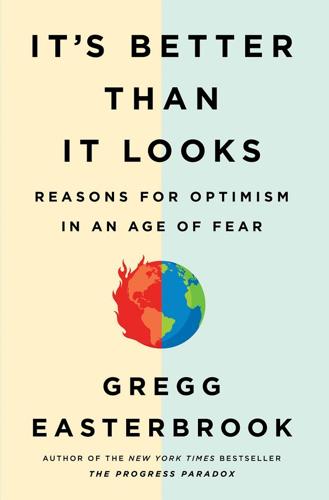
It's Better Than It Looks: Reasons for Optimism in an Age of Fear
by
Gregg Easterbrook
Published 20 Feb 2018
That the US, European, and global situations are better than commonly perceived should not lead to complacency. On the contrary, awareness of progress should inspire greater reform. The challenges of the present day are daunting: inequality, racial tension, climate change, illegal immigration, refugees forced to flee war zones or failed states, never-ending conflagration in the Middle East, tyrants and warlords in parts of Africa, low-achieving public schools, a shallow and corporate-driven culture that makes the task of public schools Sisyphean, public discourse contaminated by rage—and these are just for starters. Plus surely there’s a huge problem barreling down the tracks directly toward us.
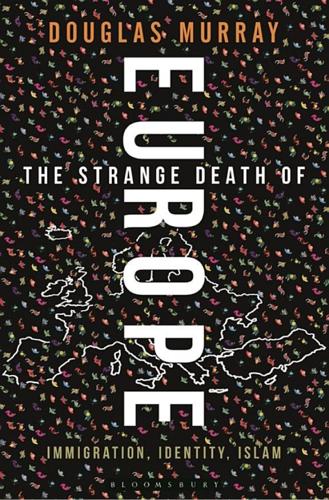
The Strange Death of Europe: Immigration, Identity, Islam
by
Douglas Murray
Published 3 May 2017
In the first decade of the present century it seemed for a moment that this European ennui might find some relief in the form of what was termed a ‘muscular liberalism’: a concerted and sometimes even violent defence of liberal rights around the globe. Britain in particular signed up for this, as did a number of other European countries, including, on occasion, France. But after interventions in Iraq, Afghanistan and Libya, all in the name of defending human rights, we noticed that we had left a trail of failed states behind us. Before we had fully realised that fact a minister of the German government once told me that his country too must one day face up to the fact that there are some values that it may be willing not only to fight for and to die for, but to kill for. A striking admission in a country that is still so violently anti-military.
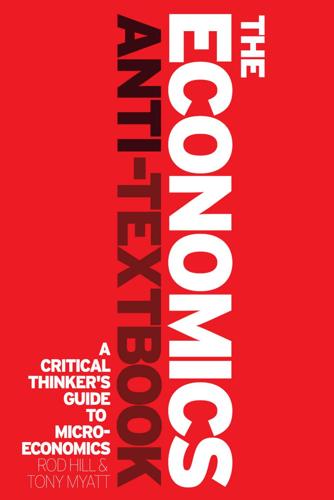
The Economics Anti-Textbook: A Critical Thinker's Guide to Microeconomics
by
Rod Hill
and
Anthony Myatt
Published 15 Mar 2010
. — (2007) The Secret History of the War on Cancer, New York: Basic Books. Davis, D. L. and P. S. Webster (2002) 277 Bibliography — (1988) Language and Politics (ed. C. P. Otero), Montreal: Black Rose Books. — (1993) Letters from Lexington: Reflections on propaganda, Monroe, ME: Common Courage Press. — (2006) Failed States: The abuse of power and the assault on democracy, New York: Metropolitan Books. — (2007) Interventions, San Francisco, CA: City Lights Books. Clark, A. E., P. Frijters and M. A. Shields (2008) ‘Relative income, happiness and utility: an explanation for the Easterlin Paradox and other puzzles’, Journal of Economic Literature, 46(1): 95–144.
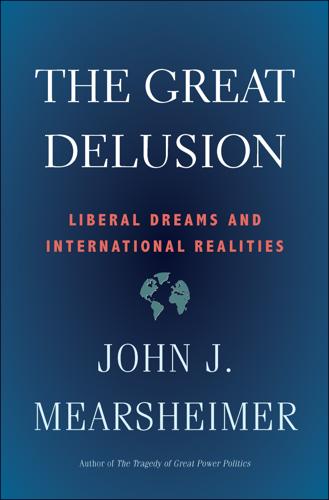
The Great Delusion: Liberal Dreams and International Realities
by
John J. Mearsheimer
Published 24 Sep 2018
Yet even those who recognize the risks sometimes argue that the effort can be justified. 7 Liberal Theories of Peace LIBERAL HEGEMONY IS BUILT AROUND three missions: increasing the number of liberal democracies in the world, facilitating an open economic order, and building international institutions. The assumption is that achieving these goals, especially the first one, is a formula for international peace. I argued in the previous two chapters that such a policy is not only enormously costly both at home and abroad but also likely to fail. States that pursue a liberal foreign policy invariably find themselves worse off. In this chapter I will examine liberal hegemony’s purported benefit: that it will bring peace and wealth and effectively end problems like nuclear proliferation and terrorism. One might argue that it makes sense to try to realize those aims even if the costs are great, simply because the benefits are even greater.
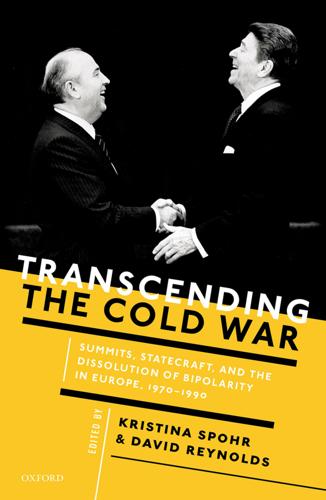
Transcending the Cold War: Summits, Statecraft, and the Dissolution of Bipolarity in Europe, 1970–1990
by
Kristina Spohr
and
David Reynolds
Published 24 Aug 2016
Kohl’s friendly and mutually trusting interaction with Gorbachev in turn laid the foundation for much improved bilateral German-Soviet relations that would persist long after Gorbachev’s departure and the disappearance of the Soviet Union. The Caucasus was therefore a far cry from the constipated summitry at Erfurt and Kassel in 1970–1 through which the leaders of the two Germanies, each closely tied to its superpower patron, took the first tentative steps towards transcending their country’s division. By 1990 the GDR was a failed state, on the verge of being subsumed into the Federal Republic, and the West German chancellor was being welcomed as an equal at the personal retreats of the American and Soviet presidents. The successful Caucasus meeting demonstrated Germany’s international emancipation on the world stage. What, then, were the implications of the Caucasus for the post-Cold War order?
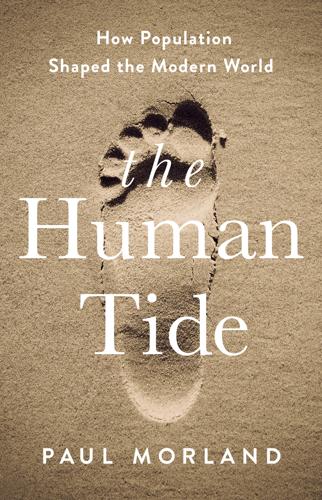
The Human Tide: How Population Shaped the Modern World
by
Paul Morland
Published 10 Jan 2019
And while the human tide does not determine the course of history, it moulds it, and it seems clear in most cases that a different demography would have led to a different outcome. Demography cannot be extricated from the socio-economic failings of the Middle East and North Africa, and in many places has fomented the political collapse. Failed states and civil war are more likely where there are young, fast-growing populations, particularly where these are not successfully integrated into the economy and where opportunities for making a productive contribution to society are closed off. The Middle East and North Africa have many problems which are particularly associated with political instability, the lack of democracy and human rights and a failure in socio-economic development.
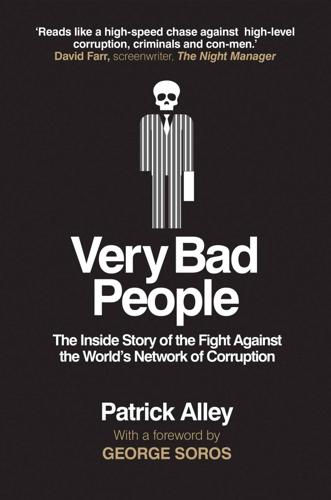
Very Bad People: The Inside Story of the Fight Against the World’s Network of Corruption
by
Patrick Alley
Published 17 Mar 2022
We needed to gather evidence around the relationships between Liberia’s timber barons and Charles Taylor’s elite, the dynamics of the logging industry and, most difficult of all, arms trafficking. The major spanner in the works was that we couldn’t go to Liberia ourselves. It wouldn’t pay to stick out like a sore thumb in a failed state just entering another civil war. Very recently four journalists from Channel 4 in the UK had been arrested in Liberia. In an interview with CNN, Taylor said that the TV journalists had accused Liberia of arms trafficking and diamond smuggling. ‘That’s grounds for the United States and Britain to start military action against Liberia.

The Powerful and the Damned: Private Diaries in Turbulent Times
by
Lionel Barber
Published 5 Nov 2020
No doubt he still does. The post of special envoy is a comedown, despite his (exaggerated) claims that he has a clear line into Obama. Holbrooke argues, persuasively, that the Afghan conflict can only be solved in the context of Afghanistan and neighbouring Pakistan (‘a fragmented state but not yet a failing state’). There’s ‘one theatre of war’ straddling an ill-defined border between two nations where ethnic ties go back centuries. He’s keen to avoid ‘Americanising’ the Afghan conflict, mindful of Vietnam, where he served as a precocious young diplomat and witnessed the slow humiliation of his country’s military at the hands of guerrilla insurgents.
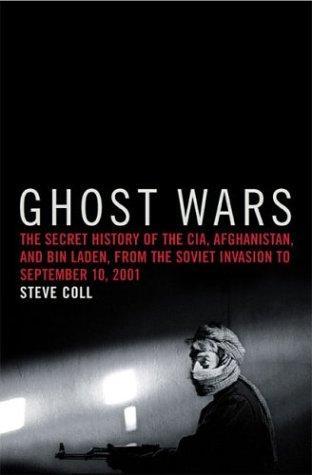
Ghost Wars: The Secret History of the CIA, Afghanistan, and Bin Laden, from the Soviet Invasion to September 10, 2011
by
Steve Coll
Published 23 Feb 2004
His eclectic, inclusive outlook did not seem to be a dodge; it seemed to reflect authentically who he was.19 His views about the global threats America faced in the summer of 1997 stood squarely in the center of CIA and Clinton administration analysis. He saw five “critical challenges” to the United States. These were the “transformation of Russia and China”; the threat of rogue states such as North Korea, Iran, and Iraq; the “transnational issues” such as terrorism, nuclear proliferation, drugs, and organized crime; regional crises; and failing states in places such as Africa and the former Yugoslavia. There was nothing remotely controversial about Tenet’s list; it covered such a wide range of potential foreign policy problems as to be almost immune from criticism. To the extent it made choices, it was a list of hard targets, and it focused on the potential for strategic surprise.
…
Princeton, N.J.: Darwin Press, 1995. ---. Islam and Resistance in Afghanistan. Cambridge, England: Cambridge University Press, 1986. ---. The New Central Asia: The Creation of Nations. New York: New York University Press, 1997. Rubin, Barnett R. The Search for Peace in Afghanistan: From Buffer State to Failed State. New Haven, Conn.: Yale University Press, 1995. ---. The Fragmentation of Afghanistan: State Formation and Collapse in the International System. 2d ed. New Haven, Conn.: Yale University Press, 1995. Rubin, Barry. Islamic Fundamentalism in Egyptian Politics. London: Macmillan, 1990. Scales, Robert H., Jr.
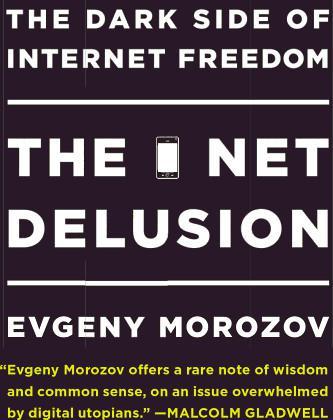
The Net Delusion: The Dark Side of Internet Freedom
by
Evgeny Morozov
Published 16 Nov 2010
Any theory of democracy that doesn’t go beyond the cost of mobilization as its only criteria of democratization is a theory that policymakers would be well-advised to avoid, even more so in the digital age, when many costs are plummeting across the board. Not asking those questions would also prevent us from identifying the political consequences of such democratization of access to technology. Only irresponsible pundits would advocate democratizing access to guns in failed states. But the Internet, of course, has so many positive uses—some of which promote freedom of expression—that the gun analogy is rarely invoked by anyone. The good uses, however, do not always cancel out all the bad ones; if guns could also be used as megaphones, they would still make good targets for regulation.
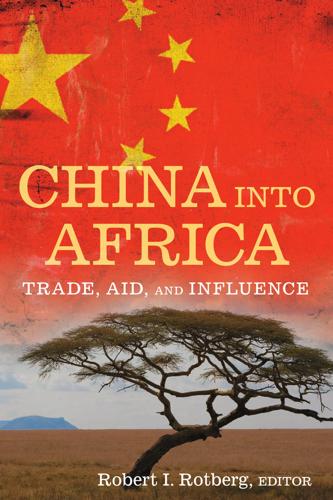
China into Africa: trade, aid, and influence
by
Robert I. Rotberg
Published 15 Nov 2008
China has peacekeepers operating in seven of the eight current UN missions in Africa.30 As the international community contemplates increasing its presence in such locations as the Darfur region of the Sudan, and with the possibility that additional UN peacekeepers will be needed elsewhere, the United States, China, the AU, and other interested parties will need to intensify their consultations in response. The reasoning behind the forthcoming establishment of the new U.S. AFRICOM, reflective of increasing U.S concerns about stability, failed states, and terrorism in Africa, is one point of departure for U.S. and Chinese discussions about security on the continent. In addition, civil society and nongovernmental organizations can become important facilitators for future China-Africa-U.S. collaboration. China’s expansive engagement in Africa thus far has not tapped into Africa’s burgeoning civil society organizations.
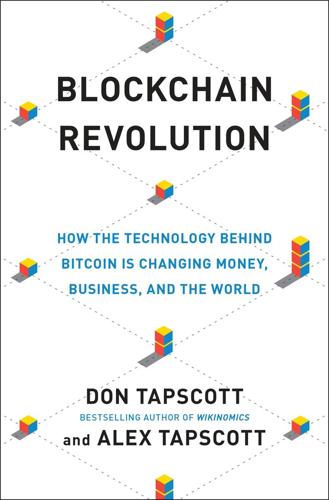
Blockchain Revolution: How the Technology Behind Bitcoin Is Changing Money, Business, and the World
by
Don Tapscott
and
Alex Tapscott
Published 9 May 2016
It significantly lowers the barrier to having a bank account, obtaining credit, and investing. And it supports entrepreneurship and participation in global trade. That was part of Satoshi’s vision. He understood that, for people in developing economies, the situation was worse. When corrupt or incompetent bureaucrats in failed states need funding to run the government, their central banks and treasuries simply print more currency and then profit from the difference between the cost of manufacturing and the face value of the currency. That’s seigniorage. The increase in the money supply debases the currency. If the local economy really tanked—as it did in Argentina and Uruguay, and more recently in Cyprus and Greece—these central bodies could freeze the bank assets of whoever couldn’t afford a bribe.

Chasing the Scream: The First and Last Days of the War on Drugs
by
Johann Hari
Published 20 Jan 2015
Le Fuga de Punta Carretas. Montevideo, Uruguay: Banda Oriental, 2012. ———, and Mauricio Rosencoff. Memorias del Calabozo. Montevideo, Uruguay: Banda Oriental, 1988. Huxley, Aldous. The Doors of Perception. New York: Vintage, 2004. Inkster, Nigel, and Virginia Comolli. Drugs, Insecurity and Failed States: The Problems of Prohibition. London: Routledge, 2012. Jack, Malcolm. Lisbon: City of the Sea; A History. London: I. B. Tauris, 2007. Jarvis, Brian. Cruel and Unusual: Punishment and U.S. Culture. Sterling, VA: Pluto Press, 2004. Jay, Mike. Emperors of Dreams: Drugs in the Nineteenth Century.
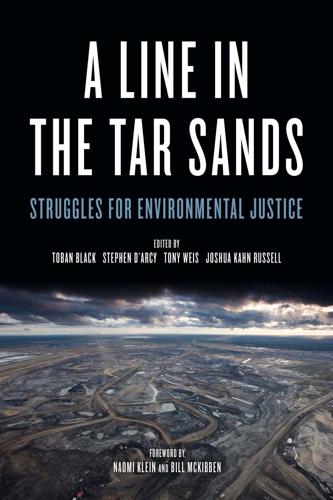
A Line in the Tar Sands: Struggles for Environmental Justice
by
Tony Weis
and
Joshua Kahn Russell
Published 14 Oct 2014
The overall debate might be deliberately polarized, framed as the exclusive choice between competing desires for wealth accumulation versus environmental and social protection. Given the extensive environmental and social effects of the tar sands, and the long-term consequences— such as their contribution to climate change and the toxification of the Albertan landscape—petro-capitalism needs cultural machinery to maintain its existing popular support. When this fails, states use physical violence, but for the most part domination works by the failure to recognize the extent of power structures on the part of those who are being dominated. Gramsci’s concept of hegemony indicates the importance of understanding how structures of thought and practice can lead people to tacitly or overtly give consent to their domination, thereby helping to perpetuate the status quo.
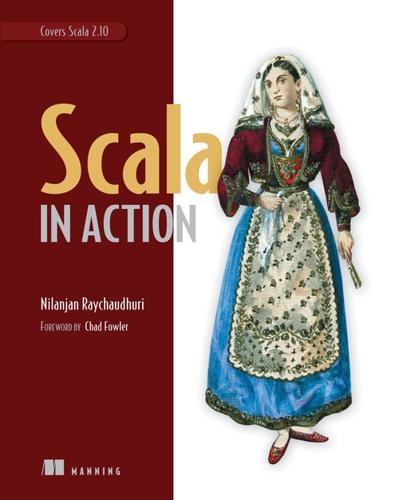
Scala in Action
by
Nilanjan Raychaudhuri
Published 27 Mar 2012
A Future could also be completed with an exception. To do an operation after the Future is completed we can use the onComplete callback method as in following: someFuture.onComplete { case Success(result) => println(result) case Failure(t) => t.printStackTrace } Since a Future could be a success or failed state, the onComplete allows you to handle both conditions. (Check the scala.concurrent.Future scaladoc for more details.) Futures can also be created using Promise. Consider Promise as a writable, single assignment container. You can use Promise to create a Future, which will be completed when Promise is fulfilled with a value: val promise: Promise[String] = Promise[String]() val future = promise.future ... val anotherFuture = Future { ... promise.success("Done") doSomethingElse() } ... future.onSuccess { case msg => startTheNextStep() } Here we have created two Futures, one using the future method and the other from Promise. anotherFuture completes the promise by invoking the success method (you can also complete promise with the failure method).
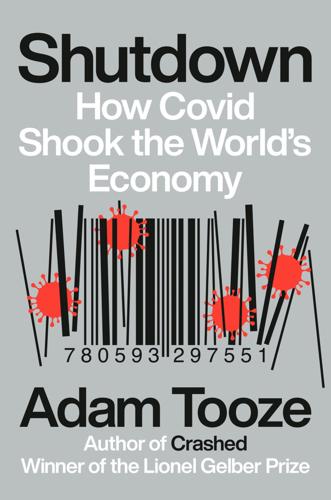
Shutdown: How COVID Shook the World's Economy
by
Adam Tooze
Published 15 Nov 2021
“COVID-19 Could Lead to Permanent Loss in Learning and Trillions of Dollars in Lost Earnings,” World Bank, June 18, 2020. 22. H. Else, “How a Torrent of COVID Science Changed Research Publishing—in Seven Charts,” Nature, December 16, 2020; www.nature.com/articles/d41586-020-03564-y. 23. For a brilliant example of the genre, see G. Packer, “We Are Living in a Failed State,” Atlantic, June 2020. 24. J. Konyndyk, “Exceptionalism Is Killing Americans: An Insular Political Culture Failed the Test of the Pandemic,” Foreign Affairs, June 8, 2020. 25. E. Morin, Homeland Earth: A Manifesto for the New Millennium (Advances in Systems Theory, Complexity and the Human Sciences), trans.
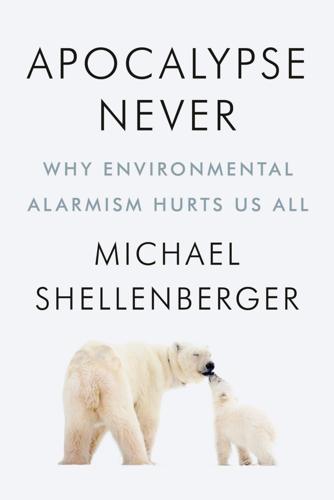
Apocalypse Never: Why Environmental Alarmism Hurts Us All
by
Michael Shellenberger
Published 28 Jun 2020
Zeke Hausfather, “Mapped: The World’s Largest CO2 Importers and Exporters,” Carbon Brief, July 5, 2017, https://www.carbonbrief.org. 17. Jillian Ambrose and Jon Henley, “European Investment Bank to Phase Out Fossil Fuel Financing,” The Guardian, November 15, 2019, https://www.theguardian.com. 18. Sebastian Mallaby, The World’s Banker: A Story of Failed States, Financial Crises, and the Wealth and Poverty of Nations (New York: Penguin, 2004), 336. 19. John Briscoe, “Invited Opinion Interview: Two Decades at the Center for World Water Policy,” Water Policy 13, no. 2 (2011): 147–60, https://doi.org/10.2166/wp.2010.000. 20. Ibid. 21. Ibid. 22. John Briscoe, “Infrastructure First?
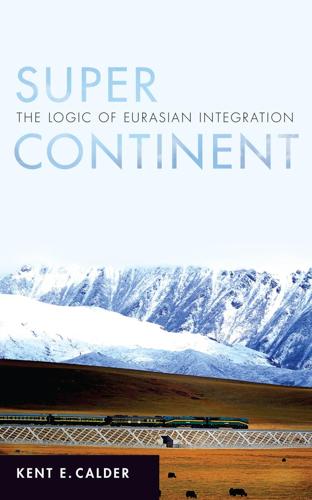
Super Continent: The Logic of Eurasian Integration
by
Kent E. Calder
Published 28 Apr 2019
The Fergana part of Kyrgyzstan, where a local Uzbek majority considers itself discriminated against, experienced considerable ethnic violence in 1990 and again in May/June 2010, when 420 people were killed and 80,000 displaced.47 Uyghur separatists also bombed the Chinese embassy in the Kyrgyz capital of Bishkek in August 2016, wounding three Kyrgyz staff members.48 In the case of Xinjiang Uyghurs, ethnic tensions can likely be neutralized with only minimal impact on broader national security, since China has a relatively strong state. Yet nation-state efforts cannot universally constrain such tensions. In failed states, such as Syria and Yemen recently, ethnic tensions run rampant, disrupting any broader social cohesion that could otherwise prevail. Weapons of Mass Destruction At the geopolitical level, weapons of mass destruction (WMD) remain an imminent, predictable danger, casting a dark shadow over continentalist prospects and indeed the likelihood of Eurasian stability itself.

The Billionaire Raj: A Journey Through India's New Gilded Age
by
James Crabtree
Published 2 Jul 2018
When we met in London, Mallya blamed his various misfortunes on an array of outside forces and unfortunate circumstances, from oil at $140 a barrel to the Indian government’s unwillingness to cut taxes on airline fuel or airport duty. Investment rules meant Kingfisher Airlines was also barred from finding a foreign airline to rescue it. Captured by special interests, politicians and bureaucrats favored Air India, he claimed, pumping the failing state carrier full of subsidies. “They allowed Kingfisher to die and spent 30,000 crores [$3.6 billion] of public money bailing out Air India,” Mallya told me. Most of all he denied fleeing the country, a charge which clearly still rankled. His plan had been to return to India just a few days after leaving for London in early March 2016, and he claimed to have said as much to various senior politicians he had met with in India’s parliament during the days prior to his departure.
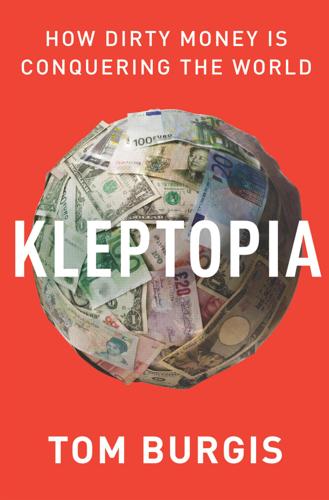
Kleptopia: How Dirty Money Is Conquering the World
by
Tom Burgis
Published 7 Sep 2020
If a state acted or spoke, that was presumed to be a legitimate act, an expression of sovereignty, as though countries themselves were unimpeachable persons. But the new kleptocrats were subverting the state, using its institutions against itself, to seize for themselves that which rightfully belonged to the commonwealth. Corruption was no longer a sign of a failing state, but of a state succeeding in its new purpose. Public policy, foreign policy, national security: these were for the kleptocrat what the front company was for the launderer. When it came to the single worst threat of sudden and massive violent death – the North Korean atomic weapons programme – Trump staged a pageant for Kim Jong-un, his ‘Little Rocket Man’.
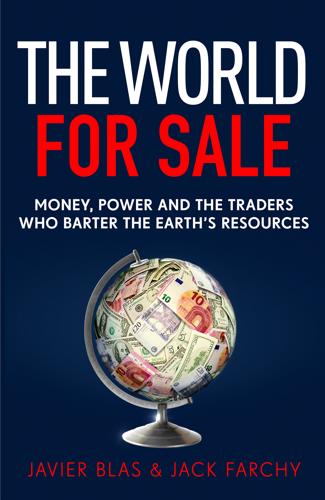
The World for Sale: Money, Power and the Traders Who Barter the Earth’s Resources
by
Javier Blas
and
Jack Farchy
Published 25 Feb 2021
Only in the North American gas and power market was there still fierce competition, as Wall Street banks and trading houses scrambled to fill the gap left by Enron. The commodity traders had emerged from wild and dangerous deals of the 1990s with businesses stretched across the world, from Communist Cuba to the rapidly growing capitalist nations of Eastern Europe, with a whole array of dictatorships and failed states in between. Above all, the survivors of the decade’s brutal consolidation had grown to become mighty merchants of natural resources, larger in scale and more global than ever before. The traders may not have realised it yet, but that would soon be their ticket to a new era of riches. A major new source of demand for natural resources was just about to emerge that would revolutionise their business: China.

The Controlled Demolition of the American Empire
by
Jeff Berwick
and
Charlie Robinson
Published 14 Apr 2020
In other countries, they fill duffle bags with cash and hand it to the President. In America, they hire the ex- President for an imaginary job that he does not have to show up to, pay them 100 times more than the going rate, then write off the cost as a business expense. Do not think for a second that bribing politicians is limited to Banana Republics and failed states, or that those people Americans have voted for have enough integrity to exclude themselves from this kind of behavior. They do not. Atlas Chugged Ayn Rand felt that true capitalism was the only morally valid socio-political system because it allows people to act in their own self-interest, if they chose to, and reap the rewards.
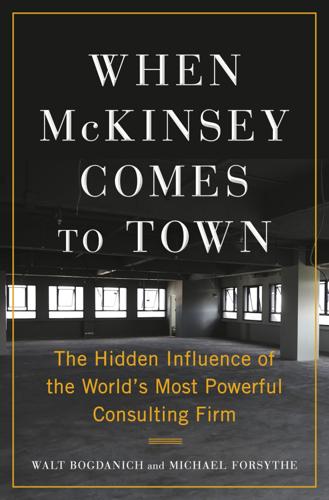
When McKinsey Comes to Town: The Hidden Influence of the World's Most Powerful Consulting Firm
by
Walt Bogdanich
and
Michael Forsythe
Published 3 Oct 2022
They were overruled by the partners, who argued that it wasn’t McKinsey’s job to pass judgment on the values of its clients. Left unsaid was the impact on annual bonuses if the Saudi work vanished. In defending McKinsey’s decision to stay in Saudi Arabia, its senior partners inevitably rely on political arguments, saying its work helps keep Saudi Arabia from going the way of Syria or other failed states, despite the firm’s oft-repeated claim that it doesn’t involve itself in politics. “If you take a country like Saudi, and you project it forward if nothing changes, the consequences for that region are just dire,” said one senior partner who oversees work in the region. The problem is that after 2015, McKinsey’s work in Saudi Arabia was beholden to a man who was building, as Ben Hubbard of The New York Times wrote, “a laboratory for a new kind of electronic authoritarianism.”
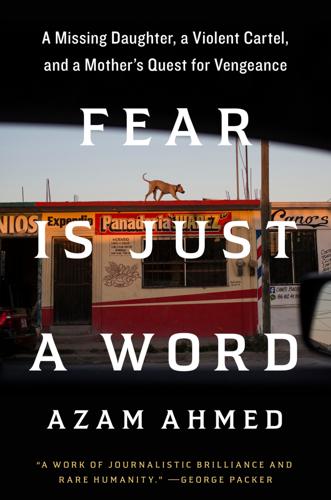
Fear Is Just a Word: A Missing Daughter, a Violent Cartel, and a Mother's Quest for Vengeance
by
Azam Ahmed
Published 26 Sep 2023
Miriam had confronted the scourge of organized crime in Tamaulipas, and for her troubles had been killed in front of her own home, on Mother’s Day, an act of criminal marketing as degenerate as it was ingenious. The Zetas had excised an enemy, warned off others from becoming too active, and demonstrated that the government’s promise to protect its citizens was as hollow as its politicians. The kind of gesture that made people wonder if they lived in a failed state, where organized crime could operate without a worry in the world. There wasn’t much the government could do to fix the past; someone, perhaps everyone, had failed to protect a woman whom they were legally required to protect. But they could make sure they moved swiftly to take down the people responsible—and exact Miriam’s posthumous revenge by going after the last of the individuals who had killed Karen, La Machorra
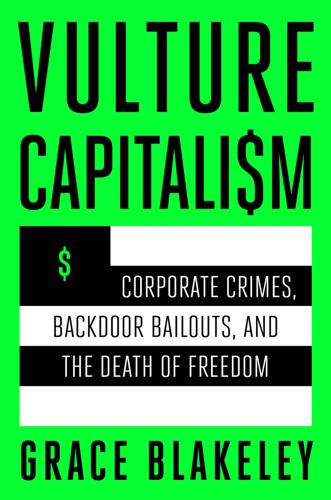
Vulture Capitalism: Corporate Crimes, Backdoor Bailouts, and the Death of Freedom
by
Grace Blakeley
Published 11 Mar 2024
Corporations, for example, are able to plan investment and employment decisions—decisions that have significant implications not only for the lives of most people but also for the structure of our society.18 And they are unaccountable to those most affected by their decisions. Neoliberals might argue that the power of the firm is limited by the operation of the market. A manager can plan, but only within certain parameters set out by the competitive environment. If he messes up, the business will fail. States, on the other hand, are not so constrained by market forces. In fact, states are often in a position to dominate the market in a way that, according to the mainstream economist, most firms are not. State agents are therefore free to make decisions—to develop and implement plans—in a way that corporate managers aren’t.

An Empire of Wealth: Rise of American Economy Power 1607-2000
by
John Steele Gordon
Published 12 Oct 2009
The so-called Second World, the Communist bloc, disappeared with the end of the cold war, leaving a world of modern, developed countries, such as the United States, Western Europe, and Japan; countries that were rapidly developing along modern lines and growing explosively, such as South Korea, Taiwan, mainland China, India, and Brazil; what used to be called the Third World, countries that had yet to cast off the old ways of top-down government and economies controlled by economic oligarchies, such as the Arab world and much of Latin America and Africa; and failed states such as Rwanda, Haiti, and Liberia, hell-holes of poverty and chaos. WHILE CONGRESS HAD BEEN WILLING to fund Reagan’s military buildup, it had not been willing to enact his cuts in domestic social programs. As a result, the annual federal deficit mounted sharply. Just as in the 1970s, it more than tripled in dollar terms, from $909 billion in 1980 to $3.2 trillion in 1990.
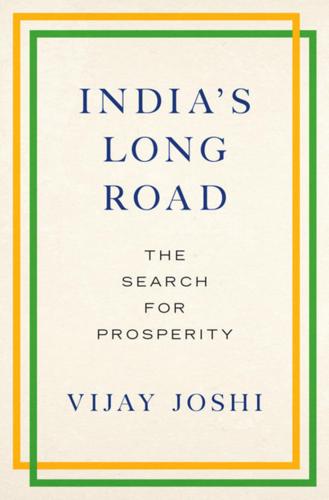
India's Long Road
by
Vijay Joshi
Published 21 Feb 2017
(Land-locked Kashmir is surely not a viable state: any eventual agreement will have to give considerable autonomy to the two halves of Kashmir, within India and Pakistan.) All-out war between India and Pakistan is fortunately improbable. India has decisive conventional military superiority but Pakistan, like India, has a nuclear arsenal, so there is mutual deterrence. A more troubling possibility is that Pakistan may become a failed state, and a locus for terrorist activity against India on an even bigger scale than is presently the case. A not unrelated possibility is that India will suffer a fall-out from the [8] Setting the Stage 9 fundamentalist and sectarian conflicts in the Gulf and West Asia. It is surely incontestable that India should follow open-handed and tolerant policies towards its Muslim population so that it does not become alienated.
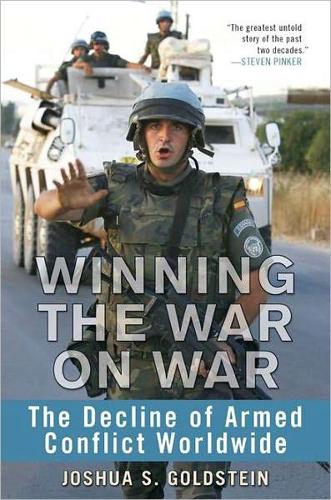
Winning the War on War: The Decline of Armed Conflict Worldwide
by
Joshua S. Goldstein
Published 15 Sep 2011
Jefferson, NC: McFarland, 1992. Edwards, Michael. Future Positive: International Cooperation in the 21st Century. London: Earthscan, 1999. Ember, Carol R. “Myths about Hunter-Gatherers.” Ethnology 17 (4) 1978: 439–48. Englebert, Pierre, and Denis Tull. “Postconflict Resolution in Africa: Flawed Ideas about Failed States.” International Security 32 (4), 2008: 106–39. Erlanger, Steven. “Europeans Transfer Chad Mission to U.N.” New York Times, March 17, 2009: A10. European Union [Council of, General Secretariat]. Background: DRC Elections 2006: EU Support to the DRC during the Election Process. EU press release RDC/02/EN, June 2006.
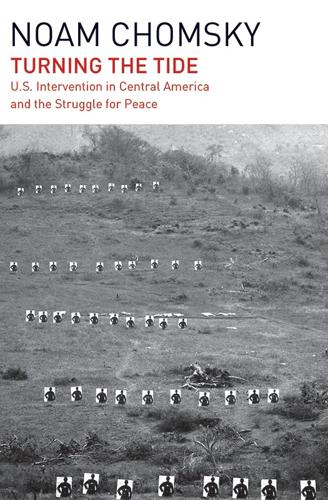
Turning the Tide
by
Noam Chomsky
Published 14 Sep 2015
US intelligence was then assigned the task of demonstrating the required truth: that Vietnamese nationalists were simply agents of the “Commie-dominated bloc of slave states,” in Dean Acheson’s elegant phrase. Intelligence sought desperately to find links between Ho Chi Minh and his masters in the Kremlin or “Peiping”; either would do. It failed. State Department intelligence found evidence of “Kremlin-directed conspiracy...in virtually all countries except Vietnam,” which appeared to be “an anomaly,” and found “surprisingly little direct cooperation between local Chinese Communists and the Viet Minh.” The problem, then, was to show how these facts demonstrated the required conclusion: that Ho was an agent of the Commie conspiracy.

America Right or Wrong: An Anatomy of American Nationalism
by
Anatol Lieven
Published 3 May 2010
As Martin Jacques has argued (in a review of Empire Lite by Michael Ignatieff), what too many liberal interventionists have done is to take the admittedly miser84 T H E S I S : S P L E N D O R AND T R A G E D Y OF THE A M E R I C A N C R E E D able example of most of postcolonial Africa (plus Yugoslavia and Afghanistan) and extrapolate it to the former colonial world as a whole. As a result, they often grossly denigrate the achievements of many postcolonial states in Asia. Because the great majority of states are imperfect from a democratic point of view, this conflation of failed states with undemocratic ones risks giving a moral carte blanche to U.S. military intervention—irrespective of a state's achievements in other fields. In taking this "liberal imperialist" line, as Jacques also points out, these writers forget that "some of the greatest difficulties these countries have faced have been a direct result of the imperial legacy."155 The Western colonial empires overwhelmingly failed to develop most of their colonies, as witnessed by the catastrophic decline in Indian industries and share of world trade under British colonial rule.
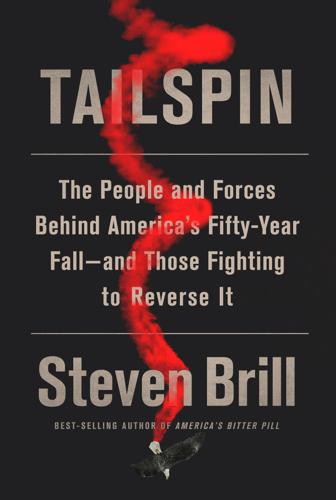
Tailspin: The People and Forces Behind America's Fifty-Year Fall--And Those Fighting to Reverse It
by
Steven Brill
Published 28 May 2018
They may be proud and independent, but they depend on the common goods a government is supposed to provide. That is the purpose of government, and a country whose government fails to fulfill that responsibility, let alone puts people in charge who want to abrogate it, is on its way to becoming a failed state. We have already seen that Washington cannot even produce a budget, let alone produce the kinds of laws and programs aimed at addressing broad policy challenges that marked the 1950s, 1960s, and early 1970s. Worse than that, government has now become unable to fulfill even its core functions.
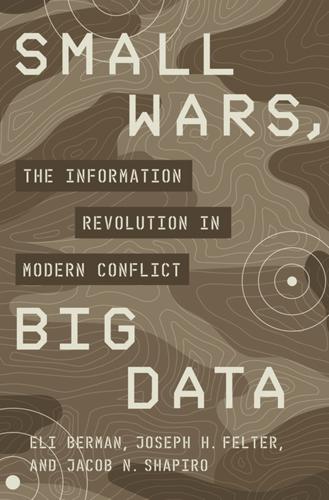
Small Wars, Big Data: The Information Revolution in Modern Conflict
by
Eli Berman
,
Joseph H. Felter
,
Jacob N. Shapiro
and
Vestal Mcintyre
Published 12 May 2018
In a Wall Street Journal op-ed published exactly a year after Bush announced the surge, Senators John McCain and Joe Lieberman said, “In Congress, opposition to the surge from antiwar members was swift and severe.… In fact, they could not have been more wrong.” The coauthors went so far as to construct a counterfactual, what the world would look like absent the policy: “And had we heeded their calls for retreat, Iraq today would be a country in chaos: a failed state in the heart of the Middle East, overrun by al Qaeda and Iran.”45 A range of scholars and military writers backed up this conjecture.46 If the surge-only thesis were correct, Jake, Steve, and Jeff observed, then one of two components or a combination of both would have been sufficient to cause the reduction in violence.

Daemon
by
Daniel Suarez
Published 1 Dec 2006
I think he’s an evil bastard—I mean was an evil bastard—but he had a demented vision that I think we should try to wrap our heads around. He talked about small groups—‘The Great Diffusion’ is how he termed it. That small groups would be battling nation states.” DARPA: “Sobol mentioned lawless regions and failed states. What if he was talking about terrorism?” DIA: “Terrorists use our own technology against us.” CIA: “And so do international crime rings. Does Sobol think his Daemon could be used against terrorism and transnational crime?” DARPA: “It took over the online porn and gambling industries easily enough.”
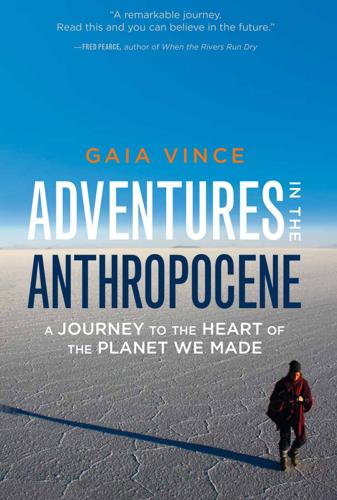
Adventures in the Anthropocene: A Journey to the Heart of the Planet We Made
by
Gaia Vince
Published 19 Oct 2014
The democratisation of online information, education, communication and markets, means that the Anthropocene has the potential to lead to a more equal global society – a ‘flatter Earth’, in which the dominance of Europe, the United States and a few other rich nations is challenged by eastern and southern rivals, such as China, Brazil and India. At the beginning of the Anthropocene, there are already signs that humanity’s well-being is improving – there are now fewer ‘failed states’, more countries practising a degree of democracy, and a global reduction in poverty compared to just a few decades ago. In 2008, for the first time, the number and proportion of people living on less than $1.25 a day fell in every continent, and the trend has continued since.6 Our exploitation of the atmosphere with mobile and Internet communication – and the entrepreneurship that follows – has played a significant role in this trend.
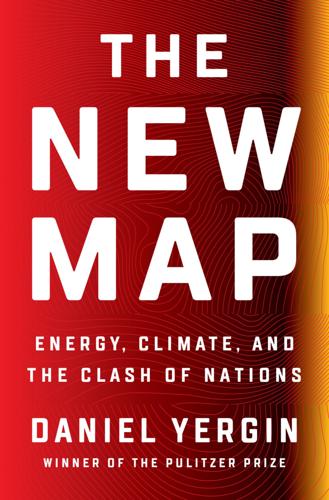
The New Map: Energy, Climate, and the Clash of Nations
by
Daniel Yergin
Published 14 Sep 2020
What had been talk of “decoupling” had turned into a rolling back of the supply chains that have been a foundation of a $90 trillion global economy. More broadly, borders go up, nationalism and protectionism rise, and the generally free movement of people becomes less free. One consequence of the global economic misery from the pandemic of 2020 could be greater prevalence of fragile and failed states, which would create new security challenges that, at some point, would reach beyond their borders. Yet governments would be hampered in responding to domestic and international needs, whether around security or health or energy and climate, by the huge debt and fiscal armor they have assumed in battling to preserve their economies.

It's Easier to Reach Heaven Than the End of the Street: A Jerusalem Memoir
by
Emma Williams
Published 7 Nov 2012
Ex-US president Jimmy Carter warned of the choices in a new book, Palestine: Peace Not Apartheid, saying bluntly: “It will be a tragedy—for the Israelis, the Palestinians, and the world—if peace is rejected and a system of oppression, apartheid, and sustained violence is permitted to prevail.”30 Campaigns of vilification were launched in the US against both the professors and Carter. Critics of Israel’s policies were increasingly accused of damaging Israel, putting Israel’s very existence at risk, and anti-Semitism. Most strongly criticized were Jewish voices pleading for Israel to consider the consequences of creating a “failed state” on its borders. In return visits to Jerusalem I heard Israelis say, “Everyone knows what the solution will be”: borders based on the Geneva Accord, the Nusseibeh-Ayalon Plan, and the Clinton parameters; both capitals in Jerusalem, and a mutually agreeable land swap to compensate for Israel keeping some settlements.

Politics on the Edge: The Instant #1 Sunday Times Bestseller From the Host of Hit Podcast the Rest Is Politics
by
Rory Stewart
Published 13 Sep 2023
Every piece of evidence suggested our money would be far better spent on health and education than on trying to improve the corrupt, drugged-up, illiterate, vicious and ever-deserting Afghan police. But the ambassador was proud of having ridden shaggy ponies with the mujahideen in the 1990s, and still hoped to fix the failed state. Our flustered and energetic argument went on for an hour. Suspicious of how the ambassador might try to circumvent my veto, I got in touch with the Development Secretary and the Foreign Secretary. Each confirmed the decision was mine. Two months later, however, the ambassador managed to get the proposal into a meeting of the National Security Council, to which I was not invited, and in which it was signed off.

Spies, Lies, and Algorithms: The History and Future of American Intelligence
by
Amy B. Zegart
Published 6 Nov 2021
Bush was steeped in intelligence, having previously served as CIA director and vice president. Donald J. Trump had no exposure to intelligence and had never served in any governmental office before becoming president. Eight presidents held office during the Cold War. Five served after the Soviet Union collapsed, when terrorists, rogue states, failed states, cyber dangers, global climate change, and rising competitors like China filled the threat landscape. Yet despite these differences, every president from Truman to Trump has authorized covert action, even the “dark corner of the room” variety. If you had to bet which presidents would embrace covert action, you’d probably put your money on hawkish Republicans.
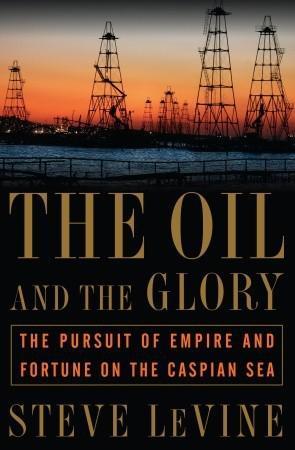
The Oil and the Glory: The Pursuit of Empire and Fortune on the Caspian Sea
by
Steve Levine
Published 23 Oct 2007
Yet he had otherwise shrewdly balanced the demands of the great powers—Russia and China, right on Kazakhstan’s borders, versus the United States—and made his country relatively secure for the first time in a century and a half. There was a measure of personal freedom and qualitative distance from its Central Asian neighbors—Uzbekistan’s systematic torture, Tajikistan’s civil war, Turkmenistan’s descent as a failed state, Kyrgyzstan’s perpetual disorder. Yet in summer 2007, Nazarbayev assumed some of the more dictatorial aspects of those regimes, granting himself the constitutional right to be president for life if he so decided, rather than being forced to step down in 2012. At the same time, he lifted the sole remaining grounds on which he could be impeached, allowing himself to retain power even if he committed treason.
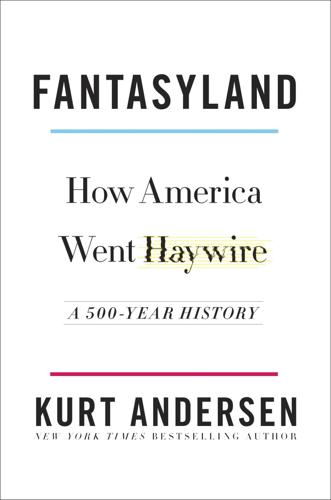
Fantasyland: How America Went Haywire: A 500-Year History
by
Kurt Andersen
Published 4 Sep 2017
The economists also don’t have much of an answer to a very specifically economic conundrum: the fact that, country by country, prosperity and a sense of security correlate with less religious belief almost everywhere—except America. As the political scientists Pippa Norris of Harvard and Ronald Inglehart of the University of Michigan explain in Sacred and Secular: Religion and Politics Worldwide, “religiosity persists most strongly among vulnerable populations, especially in poorer nations and in failed states. Conversely, a systematic erosion of religious practices, values, and beliefs has occurred among the more prosperous strata in rich nations.” Most of the scholars examining this question, because they’re scholars and thus are expected to stay in their lanes and suppress tendentious speculations and hunches, exclude the X-factor, our peculiar and multifaceted American credulity that is the subject of this book.
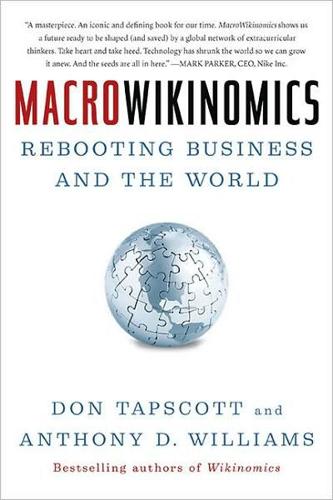
MacroWikinomics: Rebooting Business and the World
by
Don Tapscott
and
Anthony D. Williams
Published 28 Sep 2010
But one thing is increasingly certain: it will take a new way of thinking about the challenges and opportunities associated with the green energy economy—including an unprecedented level of transparency, collaboration, and technology sharing—to bring changes like these about. It’s easy to see these issues as isolated, but in fact they are highly interrelated. Excruciating levels of poverty provide a fertile ground for extremism.15 The failed states in which many of the world’s poorest live provide a safe haven in which terrorists set up base camps and hijack oil tankers to fund their nefarious deeds. Speaking of oil, the world’s unrelenting addiction to its diminishing supplies is sowing the seeds of deeper global instability in the years to come, not to mention the environmental ruin inflicted by catastrophes like the Gulf oil spill.

The Debian Administrator's Handbook, Debian Wheezy From Discovery to Mastery
by
Raphaal Hertzog
and
Roland Mas
Published 24 Dec 2013
We will then be able to write fields such as Provides: libstorable-perl (= 1.7) to indicate that a package provides the same functionality as libstorable-perl in its 1.7 version. 5.2.1.5. Replacing Files: The Replaces Field The Replaces field indicates that the package contains files that are also present in another package, but that the package is legitimately entitled to replace them. Without this specification, dpkg fails, stating that it can not overwrite the files of another package (in fact, it is possible to force it to do so with the --force-overwrite option). This allows identification of potential problems and requires the maintainer to study the matter prior to choosing whether to add such a field. The use of this field is justified when package names change or when a package is included in another.
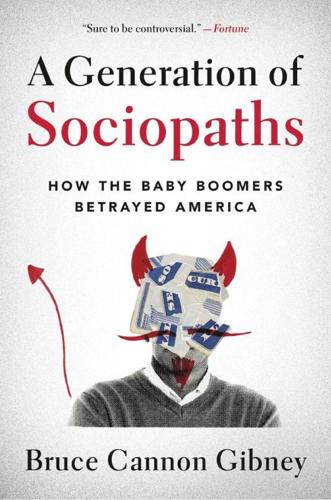
A Generation of Sociopaths: How the Baby Boomers Betrayed America
by
Bruce Cannon Gibney
Published 7 Mar 2017
Compare Bill Clinton’s tardy response to the human rights crisis in the Balkans to the swiftness of his missile attacks on Sudan, conveniently coincident with the Lewinsky investigation.37 Consider the debacle in Libya under Secretary of State Hillary Clinton, partially disowned even by her own boss, however elliptically, in an interview with The Atlantic and more candidly by Vice President Biden elsewhere.38 Peruse the entirety of the foreign policy under Boomer neocons (Dick Cheney, Paul Wolfowitz, and Condoleezza Rice chief among them), which established overt regime change as part of the national mission, against which the covert expeditions of the CIA in the midcentury in Central America and Iran seem downright limited and gentlemanly. If Boomer foreign policy had questionable motivations and enormous costs, it did achieve one thing at the cost of another—vastly fewer American lives have been lost than were in Vietnam, at the cost of relying on drones and the toleration of failed states, which themselves represent liabilities deferred. Some may argue that it’s hard to compare reconstruction in Libya, Iraq, and Afghanistan with state building in West Germany, Japan, South Korea, and Israel during the 1940s to 1960s. Certainly it is, in large part because the Boomers didn’t make a real go of reconstruction: Much money was spent (some on dubious military contractors and local cronies), but thoughtful planning and follow-through were notably absent.
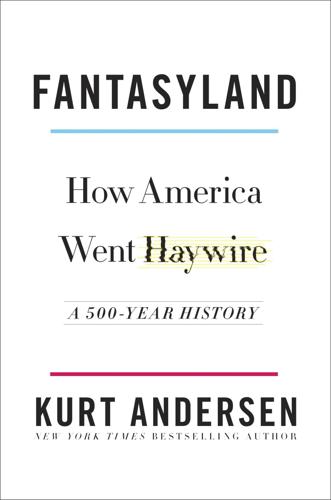
Fantasyland
by
Kurt Andersen
Published 5 Sep 2017
The economists also don’t have much of an answer to a very specifically economic conundrum: the fact that, country by country, prosperity and a sense of security correlate with less religious belief almost everywhere—except America. As the political scientists Pippa Norris of Harvard and Ronald Inglehart of the University of Michigan explain in Sacred and Secular: Religion and Politics Worldwide, “religiosity persists most strongly among vulnerable populations, especially in poorer nations and in failed states. Conversely, a systematic erosion of religious practices, values, and beliefs has occurred among the more prosperous strata in rich nations.” Most of the scholars examining this question, because they’re scholars and thus are expected to stay in their lanes and suppress tendentious speculations and hunches, exclude the X-factor, our peculiar and multifaceted American credulity that is the subject of this book.
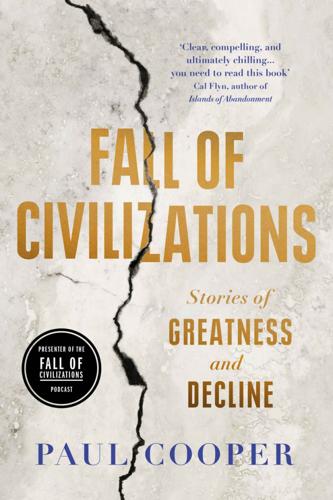
Fall of Civilizations: Stories of Greatness and Decline
by
Paul Cooper
Published 31 Mar 2024
United Kingdom, British Museum Press, 2010. Jones, Michael E. The End of Roman Britain. Greece, Cornell University Press, 1998. Julius Caesar. Caesar’s Gallic War. Trans. W. A. McDevitte and W. S. Bohn. 1st ed. Harper’s New Classical Library. New York, Harper & Brothers, 1869. Laycock, Stuart. Britannia — The Failed State: Tribal Conflicts and the End of Roman Britain. United Kingdom, History Press, 2012. Moore, Alison Jane, Louise Revell and Martin Millett, editors. The Oxford Handbook of Roman Britain. United Kingdom, Oxford University Press, 2016. Morley, Neville. ‘“They Make a Desert and Call It Peace”: The Nature of Roman Rule.’

Insight Guides South America (Travel Guide eBook)
by
Insight Guides
Published 15 Dec 2022
Sadly, the fledgling democracies, too, for the most part were saddled with the economic troubles – particularly, debt the dictators had amassed – that coined the term “lost decade” for Latin America in the 1980s. Stricken by guerrilla insurgencies, Colombia teetered near the brink of becoming a “failed state”; today, FARC have been virtually eliminated, and Colombia is enjoying a surge in tourism. Peru recovered from its 1980s civil strife but suffered the iron-fisted rule of Alberto Fujimori. Bolivia, Ecuador, and Venezuela once again became unstable as their export prices plummeted, helping set the stage for a crop of populist leaders.

More Money Than God: Hedge Funds and the Making of a New Elite
by
Sebastian Mallaby
Published 9 Jun 2010
MORE MONEY THAN GOD ALSO BY SEBASTIAN MALLABY The World’s Banker: A Story of Failed States, Financial Crises, and the Wealth and Poverty of Nations After Apartheid: The Future of South Africa MORE MONEY THAN GOD HEDGE FUNDS AND THE MAKING OF A NEW ELITE SEBASTIAN MALLABY A Council on Foreign Relations Book THE PENGUIN PRESS New York 2010 THE PENGUIN PRESS Published by the Penguin Group Penguin Group (USA) Inc., 375 Hudson Street, New York, New York 10014, U.S.A. Penguin Group (Canada), 90 Eglinton Avenue East, Suite 700, Toronto, Ontario, Canada M4P 2Y3 (a division of Pearson Penguin Canada Inc.)
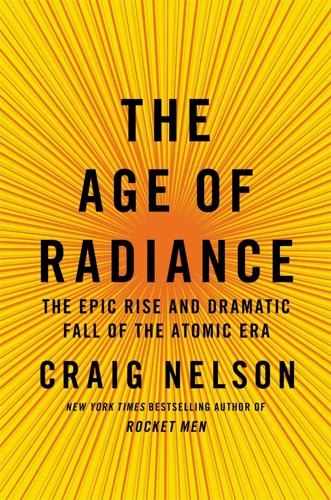
The Age of Radiance: The Epic Rise and Dramatic Fall of the Atomic Era
by
Craig Nelson
Published 25 Mar 2014
If they want to intimidate others, to be respected by others, this is now the easiest way to do it.” Journalist Fareed Zakaria countered: “Does anyone really think that North Korea or Pakistan are regarded as fearsome adversaries, countries to emulate, countries with great influence in the councils of the world? No. They are regarded as basket cases—failed states that are dangerous largely because they are unstable and are run by irresponsible governments that are willing to do destabilizing things in their region. The result is they are more watched, cordoned off, and contained than ever before.” Dr. Homi Jehangir Bhabha, father of India’s nuclear technology, baldly stated the solution back in 1965: “A way must be found so that a nation will gain as much by not going for nuclear weapons as it might by developing them.” 16 On the Shores of Fortunate Island IN the fading-ember days of World War II, Kiwamu Ariga was one of untold dozens of Japanese schoolchildren whose education was postponed.

The Ministry for the Future: A Novel
by
Kim Stanley Robinson
Published 5 Oct 2020
Could these problematic materials be turned into nuclear power somehow, burned down to a concentrate that could be safely cached, or slung into outer space? No one could make a compelling case either way on this, Mary judged. It was indeed an outstanding problem. Then the thirty poorest countries. The bad thirty, the sad thirty, the weak thirty; she heard all these names. These thirty included at least ten so-called failed states, and some of those had been failed for decades, immiserating their people. Wicked problems, in the technical sense of the term, were problems that not only could not be solved, but dragged other situations down into them; they were contagious, in effect. So it seemed that these countries suffering wicked problems needed to have interventions made by their neighbor countries, meaning the whole world; in effect, to be put into regional or international receivership.
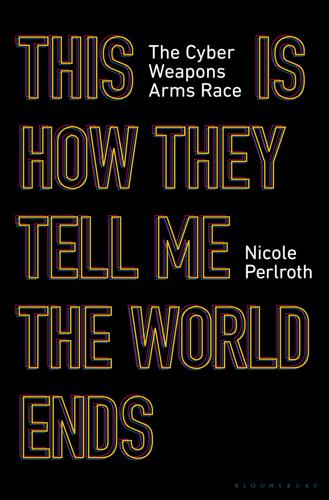
This Is How They Tell Me the World Ends: The Cyberweapons Arms Race
by
Nicole Perlroth
Published 9 Feb 2021
Schlesinger in their 2008 book, Spycraft: The Secret History of CIA’S Spytechs, from Communism to Al-Qaeda (Dutton). James Woolsey’s testimony was quoted by Douglas Jehl in his February 1993 New York Times article, “CIA Nominee Wary of Budget Cuts.” The most comprehensive account of the failed Somalia mission was written by Jon Lee Anderson for the New Yorker in 2009, “The Most Failed State.” Keith Alexander’s “whole haystack” commentary was detailed by Ellen Nakashima and Joby Warrick in their July 2013 Washington Post article, “For NSA Chief, Terrorist Threat Drives Passion to ‘Collect It All.” Michael Hayden’s “golden age of signals intelligence” quote was taken from Hayden’s 2017 book, Playing to the Edge: American Intelligence in the Age of Terror (Penguin Press).
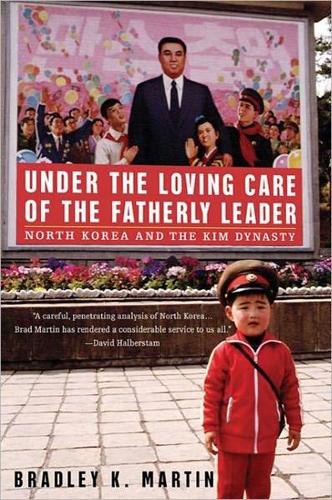
Under the Loving Care of the Fatherly Leader: North Korea and the Kim Dynasty
by
Bradley K. Martin
Published 14 Oct 2004
A British defense expert, Paul Beaver of Jane’s Sentinel intelligence database, said Pyongyang still lacked the delivery system but had a bomb—so “the only thing they could do at the moment is blow themselves up.” Beaver added that he couldn’t rule out a suicidal gesture.13 North Korea, thanks to the Kims’ reluctance to change, seemed to offer the perfect example of-what Yale University historian Paul Kennedy had begun referring to as a “failed state.”14 That only accentuated the questions of sanity and judgment asked about the Kims for decades. Thankfully, however, ever since 1953, Kim Il-sung’s military behavior had been more or less in his regime’s rational self-interest. And while Kim Jong-il was much less of a known quantity, his NPT withdrawal was not irrational.
…
William F., 77 death, on behalf of leader, as 1990s propaganda focus, 510–511 debts, credit rating,borrowing, 155, 164, 180–183, 276, 339, 347, 442, 475, 476, 634 defection assassination following, 460 causes, 267–268, 538 difficulties, regrets and fears after, 459–460, 523, 619 gold watches typically purchased following, 522 individual cases, 296–297, 379–380, 395–396, 397, 400–401, 406–407, 413, 417–418, 420, 421–422, 424, 430–431, 459–460, 488, 527–528, 531–533, 535, 542, 543–547, 570, 581–582, 584–585, 587, 588, 590 by Kim Jong-il’s unofficial wife’s family, 691, 693–694 punishment of family members following, 268, 269, 380, 459 rebellion as unrealistic alternative to, 525 religious ties following, 269, 304, 311 rescue of left-behind family members, 460, 619 pressure on South Korea to discourage, 630 testimony following, use and value of, 402, 459, 496, 555, 567, 629, 708–711 corroboration by refugees in China, 629 See also exile Demilitarized Zone (DMZ), 9, 87, 559 loudspeaker broadcasts at, 410, 522, 651 Democratic People’s Republic of Korea (DPRK) formation of, 62 compactness, as aid to regime’s control, 185 communication among bureaucratic units, lack of lateral, 467 Deng Xiaoping, 8, 22 diaspora, Korean, 16–17, 100 as business network, 481 homecoming, in 1950s and 1960s, 100–104, 229–230 dissent, dissidence, 6, 91, 141, 170, 463, 600–603 domestic faction, 55, 301 domino theory, 74 Dong Young-jun (student in Poland; defector), 226–229, 376–378 drugs, smuggling of, 155 Dulles, John Foster, 67, 74, 86, 99 economic planning, 121–122 calculation, computation and statistics, attitudes toward, 183, 217–218, 225, 272, 473, 654, 661 cost accounting, 160, 180, 642 five-year plan (1956), 103 heavy industry vs. improved living standards, 111, 213, 504 limits of command economy, 121 lulling effect of successes, 185 quota fulfillment falsified, 122, 503 seven-year plan (1961), 103, 122 subsequent plans, 180 economic reform, 481, 641–642, 660–664 constitution (1998) as promoting, 641–642 continues despite second nuclear crisis, 657, 660, 662 downsizing bureaucracy, 667 Hungarian model for, 667–668, 669–670 ideological justification, 660–661, 665–666 individual responsibility and, 663 informal coping mechanisms and, 662–663 Kim Jong-il’s Jan. 4, 2001, article starting implementation of, 652 March 2002 measures on prices, wages, taxes, exchange rates, 652–653 negative effects, 663 politics separated from economics, 666 prospects for success, 662–663, 670 need for external aid, 661, 663, 670 need for peace dividend, 667 timing analyzed, 668–669 economic zones, special, free trade, 465, 472, 473, 474, 480, 640–641, 662 economy, North-South comparisons 1950s, 100–105 1960s, 121, 124 1970s, 154, 155, 165 1980s, 342 1990s, 430–431, 474, 479 2000, 647–648 popular knowledge of growing gap, 501 inspiring dreams of redistribution by war, 540–541 education, 165–170 adult, as required daily activity, 179 after-school, 166 compulsory, 58, 165 family background, discrimination based on, 230 free provision of, as selling point, 101 nurseries, 117, 166 overseas study, 291–292, 295, 378–380, 400, 433, 453 of business administration, 702 and elite families’ preparations for exile, 494 favored by Kim Jong-il, 644 parental role, 165–168 school building program, 58 schools in political prison camps, 299 science, 473 teachers, 405 universities, 377–378, 432–433 vocational schools, 306 See also Kim Il-sung University; Mangyongdae Revolutionary School; Namsan School egalitarianism, 100, 347, 366, 367, 501, 519 Eisenhower, Dwight D., 86 elections, 114, 116, 270, 551, 694 enemies’ role in preserving regime power, 107, 111, 513 energy, 177 coal, 393, 503 competition for, between military and civilian sectors, 505 firewood, corn husks, 393, 405 nuclear (for peaceful use), 435–436, 437–438, 497, 565, 635 petroleum, 391, 442, 468, 483, 645 See also Korean People’s Army (KPA): fuel supply entrepreneurs, moneyed class ideological recognition, 661, 665–666, 700 environmental pollution, 438, 479, 627 espionage, 372 against North, 6, 95, 126, 436 “reality training” for, in South Korean–style conspicuous consumption, 539 See also infiltration; Pueblo incident exile Kim Jong-il reasons to grant, 452, 455 preparations, 494 other top elite’s secret 1990s plans for, 494 See also punishment: banishment (internal exile) face, 110, 456, 561, 577, 645 factions, 501 in Korean communist movement, 30–31, 38, 55–56, 61, 544 See also domestic faction; partisans; purges; Soviet Koreans; Yenan faction “failed state,” 492 families divided between North and South, 143–144 punishment for relatives’ offenses, 290, 297 divorce to avoid, 599 leniency policies, 416, 572, 617, 631 suicide’s family deemed traitors, 607 relationships within, 398 role of, in ideology, 404 family background, status and, 112, 226–234, 301, 309, 310–311, 399–400, 408, 412, 419, 421, 459, 537, 544, 620 farming cash crops introduced, 663 collectivization, 8, 102–104, 162, 265, 359 policy criticized by opponents, 106, 111, 358 Chonsam-ri, cooperative farm, 160–164 Chongsan-ri method, 163 eclipsed by industry, 96 fertility, compared with South’s, 51, 63–64 Haksan cooperative farm, 359–360 hillside planting, 4, 57, 162, 224, 393, 614 irrigation, 161 individual plots, 103, 358, 359, 662 as support network for landless relatives, 663 leased land, Russian Far East, 561 livestock, 358–359, 427, 468, 531–532 mechanization, 163, 184–185, 468 model farms, 8 soil types, 184, 358 weather, effects from, 103 Fate of a Self-Defense Corps Man, 251–252 fisheries, 480 flooding, 552, 553, 556 effect on coal mines, 643 Flower Girl, 254, 272, 326, 327, 361–362 flunkeyism, 9, 88, 89, 108–109, 111 food cannibalism, 618 corn (maize) as substitute for rice, 103, 117, 563–564 famine, 308, 552–553 death toll, 552, 561, 571, 618 rental coffins, 624 grain trading (black market), 103, 500, 517 hunger affecting loyalty, 386 enhancing fighting spirit, 513–514 malnutrition, stunted growth, ulcers, kidney and liver dysfunction, skin discoloration, 308, 309, 428, 431, 552–553 meat, 449, 458, 500 pine bark, corn cobs, “green porridge,” 622–623 rationing, 103, 308, 405, 428 irregularity, suspension of distribution, due to shortage, 308, 312, 491, 500, 531 priority recipients, regional imbalances, 418, 560–561, 564, 565, 572, 576, 623–624 rice aid (1984) to South, 342, 392, 415, 427 “rice and meat soup,” promised by Kim Il-sung, 97 shortages, 405 in 1940s, 54, 58, 342, 357 in 1950s, 357 in 1960s, 266 in 1970s, 6, 427 in 1980s, 265, 342, 357–358, 392–393, 415–416, 427 in 1990s, 265, 308, 312, 427, 441–442, 513, 571, 634, 635 slogan, “Let’s eat two meals a day,” 468 soybeans, 103 starvation, 265, 570–571, 618, 621, 624 defection as alternative to, 532 war as alternative to, 488, 526 theft, 428, 442 war reserves, 433, 513–514 deterrent value, 517, 657 See also aid: international food; Korean People’s Army (KPA): food: war reserves, diversion to peacetime use; United Nations: World Food Program force reduction, mutual, proposed 1958, 114 fortification, 133, 338, 513 airfield hardening, 129 See also tunnel(s); underground factories gangs, juvenile, 227–232 General Sherman incident, 13 Geneva conference (1954), 100, 114 Geneva Convention, 86 genocide, 487, 558–567 ginseng, 175 gold, 197, 275, 276, 369, 451, 480, 563 Gorbachev, Mikhail, 352, 397, 400, 465, 574, 628 Graham, Rev.
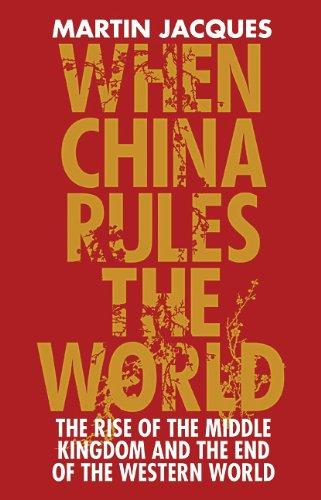
When China Rules the World: The End of the Western World and the Rise of the Middle Kingdom
by
Martin Jacques
Published 12 Nov 2009
Philippe Sands, Lawless World: America and the Making and Breaking of Global Rules (London: Allen Lane, 2005), Chapters 3-4, 10. 11 . www.globalissues.org/Geopolitics/ArmsTrade/Spending.asp#InContextUSMilitary SpendingVersusRestoftheWorld. 12 . The argument against the inviolability of national sovereignty, of course, has various rationales, notably failed states and so-called rogue states. Robert Cooper, The Breaking of Nations: Order and Chaos in the Twenty-first Century (London: Atlantic Books, 2003), and ‘Civilise or Die’, Guardian, 23 October 2003; Michael Ignatieff, Empire Lite: Nation-Building in Bosnia, Kosovo and Afghanistan (London: Vintage, 2003).

Clojure Programming
by
Chas Emerick
,
Brian Carper
and
Christophe Grand
Published 15 Aug 2011
"something is wrong")))) ;= #<Agent@3cf71b00: nil> a ;= #<Agent@3cf71b00 FAILED: nil> (send a identity) ;= #<Exception java.lang.Exception: something is wrong> Attempting to send an action to a failed agent will return the exception that caused the failure. If you explicitly want to check for an error, you should use agent-error, which will return the exception or nil if the provided agent isn’t in a failed state. A failed agent can be salvaged with restart-agent, which will reset the agent’s state to the provided value and enable it to receive actions again. An optional flag to restart-agent, :clear-actions, will clear any pending actions on the agent. Otherwise those pending actions will be attempted immediately.
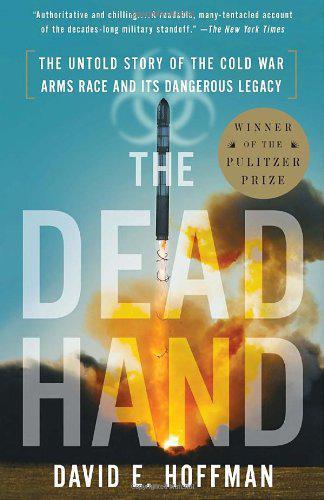
The Dead Hand: The Untold Story of the Cold War Arms Race and Its Dangerous Legacy
by
David Hoffman
Published 1 Jan 2009
Another 2,500 warheads are held in reserve, and an additional 4,200 are awaiting dismantlement. Russia still maintains 3,113 warheads on strategic weapons, 2,079 tactical warheads and more than 8,800 in reserve or awaiting dismantlement. That's more than 23,000 nuclear warheads. Since the end of the Cold War, the world has changed dramatically. Amorphous and murky threats--failed states, terrorism and proliferation--have grown more ominous. Nuclear weapons will hardly deter militias such as the Taliban, or terrorists such as those who attacked New York, Washington, London, Madrid and Mumbai in recent years. The terrorists and militias seek to frighten and damage a more powerful foe.

After Tamerlane: The Global History of Empire Since 1405
by
John Darwin
Published 5 Feb 2008
By the end of the decade, a vast geopolitical crisis was unfolding across the still independent states of Afro-Eurasia: in the North African Maghrib; sub-Saharan Africa; the Ottoman, Egyptian and Iranian Middle East; the khanates of Central Asia; mainland South East Asia; and China. Here lay a mass of apparently failing states – what one contemporary statesman called ‘dying nations’ and another the ‘outlived oriental states’. Their political systems seemed on the verge of collapse. Internal order was breaking down. Their finances were in chaos. They could not defend their frontiers, which were often ill-defined. They had no means of protecting foreign property or persons.

Free Speech: Ten Principles for a Connected World
by
Timothy Garton Ash
Published 23 May 2016
And then imagine this decision playing out in the minds of thousands of would-be contributors in other countries’.9 Security is also the field in which the imbalance of power between an effective modern state and the citizen is greatest. (This obviously does not apply to the many places in today’s world where warlords, gangs, businesses or local cabals are stronger than a weak or failed state.) The sociologist and historian Charles Tilly famously observed that ‘war made the state and the state made war’.10 It is in times of war that the state is most likely to invoke both the necessity and its own strongest powers to curb free speech. The First Amendment scholar Geoffrey Stone argues that across more than 200 years, ‘virtually every instance in which the United States has directly punished political dissent has occurred during wartime.
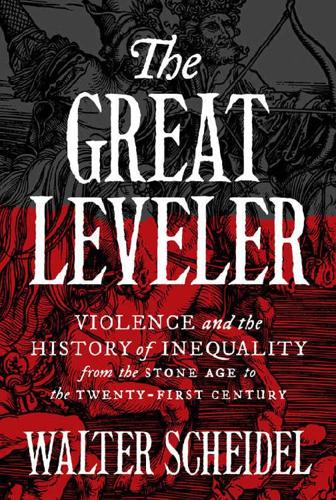
The Great Leveler: Violence and the History of Inequality From the Stone Age to the Twenty-First Century
by
Walter Scheidel
Published 17 Jan 2017
While quasistates such as Somaliland and Puntland emerged in the northern half of the country, the remainder has been variously controlled by warlords, by militias—including the jihadist al-Shabaab—and, intermittently, by foreign troops from neighboring countries. Only in the last few years has the nominal federal government begun to exercise control in and beyond Mogadishu. Between 1991 and the Ethiopian intervention in 2006, Somalia was effectively a failed state. Levels of human welfare are generally very low. One study that measures deprivation in Arab countries (broadly defined), based on factors such as child mortality, nutrition, schooling, and access to basic services, puts Somalia in last place. Data are so scarce that the most recent issue of the Human Development Index refrains from including the country in its global rankings but assigns Somalia the sixth-worst score on the multidimensional poverty index among all developing countries.
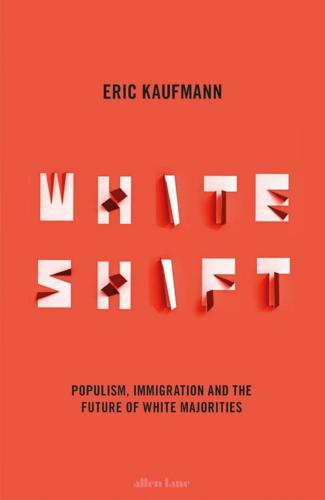
Whiteshift: Populism, Immigration and the Future of White Majorities
by
Eric Kaufmann
Published 24 Oct 2018
The eastern Mediterranean route, where 3,771 people perished out of the million that attempted to cross in 2015, is much safer than the Libya–Italy (central) passage. Following the EU–Turkey deal which removed the incentive to use the eastern route, more opted for the longer, more dangerous central Mediterranean crossing. This is why 5,000 died in the Mediterranean in 2016 despite a much smaller flow than in 2015.51 Libya itself is a failed state, with some migrants there being sold into slavery. The tragedy of signalling to migrants that they can acquire residence by getting close enough to Europe to be rescued is that it encourages others to try their luck. Under specific conditions, as when migration comes from a middle-income country like Mexico, there is a limit to the numbers that will arrive.
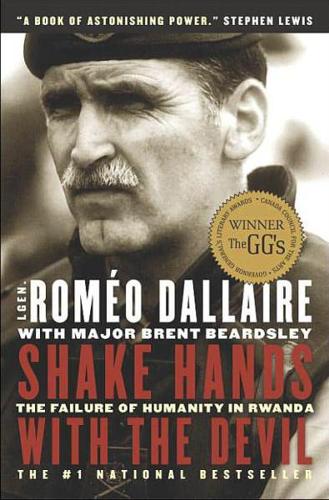
Shake Hands With the Devil: The Failure of Humanity in Rwanda
by
Romeo Dallaire
and
Brent Beardsley
Published 9 Aug 2004
Risk-free warfare presumes that our lives matter more those we are intervening to save." On the basis of my experience force commander in Rwanda, j accuse. We have fallen back on the yardstick of national selfinterest to easure which portions of the planet we allow ourselves to be ned about. In the twenty-first century, we cannot afford to tolerate a ngle failed state, ruled by ruthless and self-serving dictators, arming d brainwashing a generation of potential warriors to export mayhem d terror around the world. Rwanda was a warning to us all of what in store if we continue to ignore human rights, human security and The tens of millions of threeyear-olds like the one I met that Rwandan road deserve and must have nothing less than a ce at life as a human being and not as someone's slave, vassal, chattel, expendable pawn.

This Changes Everything: Capitalism vs. The Climate
by
Naomi Klein
Published 15 Sep 2014
The three policy pillars of this new era are familiar to us all: privatization of the public sphere, deregulation of the corporate sector, and lower corporate taxation, paid for with cuts to public spending. Much has been written about the real-world costs of these policies—the instability of financial markets, the excesses of the super-rich, and the desperation of the increasingly disposable poor, as well as the failing state of public infrastructure and services. Very little, however, has been written about how market fundamentalism has, from the very first moments, systematically sabotaged our collective response to climate change, a threat that came knocking just as this ideology was reaching its zenith. The core problem was that the stranglehold that market logic secured over public life in this period made the most direct and obvious climate responses seem politically heretical.

Roller-Coaster: Europe, 1950-2017
by
Ian Kershaw
Published 29 Aug 2018
Or was the goal a far wider one – as Blair insisted, no less than that of reconstructing Afghanistan as a viable democracy? ‘We were in the business of nation-building,’ he later wrote. Of course, the two goals were interlinked. It was felt that, in order to remove the incubus of terror, a firm basis of modern government had to replace the failed state in Afghanistan. But in the understandable desire for the swiftest retaliation against the perpetrators of 9/11, the difficulties involved in the wider goal had been gravely underestimated. Planting Western-style liberal democracy in such infertile ground was a thankless, largely impossible task.

The Israel Lobby and U.S. Foreign Policy
by
John J. Mearsheimer
and
Stephen M. Walt
Published 3 Sep 2007
Jewish Week, December 8, 2006; Michael Slackman, “Anti-Syrian Minister Is Assassinated in Lebanon,” New York Times, November 21, 2006; “Lebanon on the Brink,” Chicago Tribune editorial, November 23, 2006; Tim McGirk, “Losing Lebanon,” Time, December 3, 2006; Jim Quilty, “Winter of Lebanon’s Discontent,” Middle East Report Online, January 26, 2007; and Anthony Shadid, “As Crises Build, Lebanese Fearful of a Failed State,” Washington Post, June 5, 2007. 59. Michael Slackman, “Iran’s Strong Ties with Syria Complicate U.S. Overtures,” New York Times, December 28, 2006. 60. Rafael D. Frankel, “Israel Troubled That War in Lebanon Drove Its Enemies Closer,” Christian Science Monitor, September 22, 2006. 61. Blumenthal, “Neocons’ Next War”; Max Boot, “Israel Should Hit Syria First,” Los Angeles Times, August 23, 2006; Daniel J.
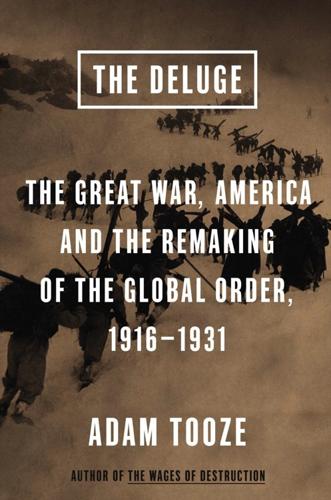
The Deluge: The Great War, America and the Remaking of the Global Order, 1916-1931
by
Adam Tooze
Published 13 Nov 2014
By 1921, having abandoned its revolutionary invasion of Poland and its global campaign against the British Empire, and having retreated publicly, both at home and abroad, toward a compromise with capitalism, the Soviet regime appeared to the Western Powers less like a revolutionary threat than a failed state. As harvest season approached and a drought struck the weakened farmers of the Volga region, it became apparent that the New Economic Policy had come too late. The civil war had already cost well over a million dead. Now, in what had once been the bread basket of Europe, tens of millions were at risk of starvation.
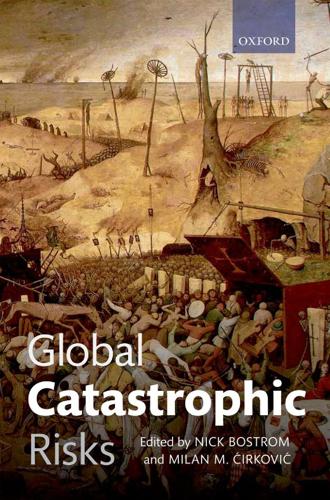
Global Catastrophic Risks
by
Nick Bostrom
and
Milan M. Cirkovic
Published 2 Jul 2008
The principles of ownership and its financial protection that we have in the capitalist West, though, do not apply to many countries; so, for instance, commercial insurance Global catastrophic risks 170 •• Increasing consensus around risk ' I Retrenchment from globalization c: 0 "" Pandemics 'E ;;;:;VJ ::> c§_ c • >:; v > v VJ � " �"' Oil price shock Middle East r Transnational crime and corruption • instability J Breakdown of Cll NatCat: Fall in $ i1lilli Chronic disease in -. Climate change .-J • developed countries .I Liability regimes • Developing world disease Inland flooding , Loss of freshwater setvices Coming • fiscal crises NatCat: • Tropical storms NatCat: • Earthquakes Failed and failing states " 0 § ..0 ,., Nanotechnology � • Interstate and civil wars China economic hard landing "" .s a ..0 :;; • Asset price collapse below 1% 1-5% L Proliferation of WM D [ International terrorism 5-10% Likelihood Fig. 8.1 World Economic Forum 2007 - The 23 core global risks: likelihood with severity by economic loss.

Private Empire: ExxonMobil and American Power
by
Steve Coll
Published 30 Apr 2012
About another third, endowed with oil and other natural resources, were doing better, but were struggling with the resource curse—Angola, Equatorial Guinea, and Chad were examples. Another third were becoming successful, registering positive economic growth rates for ten years or more—Botswana, for example, and also previously failed states such as Mozambique and Rwanda. Wolfowitz felt the World Bank had an opportunity to promote a more nuanced picture of Africa’s economy. The continent’s negative image “wasn’t helped by large rock concerts that talk about what a miserable, failing place it is,” he remarked. He did not blame Bono or U2 for this image problem; he blamed dictators like Zimbabwe’s Robert Mugabe.
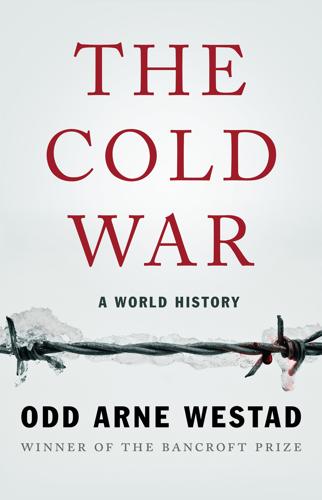
The Cold War: A World History
by
Odd Arne Westad
Published 4 Sep 2017
And through the FRG, it was too close to the processes of European integration that by the mid-1970s had been swinging into high gear. On its own, compared to countries on the European periphery or outside of Europe, the GDR might still look OK. But compared to the industrial and financial powerhouse in the west, it seemed almost like a failed state. And West Germany was now building on its success to advance further integration among all the capitalist states in Europe, exactly the kind of system that East Germany could not be part of. After the expansion of the European Community (EC) to include Britain, Ireland, and Denmark in 1973, the European Commission pushed ahead with plans for further integration.

Lonely Planet Western Balkans
by
Lonely Planet
,
Peter Dragicevich
,
Mark Baker
,
Stuart Butler
,
Anthony Ham
,
Jessica Lee
,
Vesna Maric
,
Kevin Raub
and
Brana Vladisavljevic
Published 1 Oct 2019
However, the Yugoslav wars and the vacuum left by the fall of the Albanian regime had opened the door to organised crime and corruption, which is now rife. Slovenia joined the EU in 2004 and was followed in 2013 by Croatia (which has haemorrhaged working-age citizens ever since). Since the international community stepped in to lend a hand to Albania, it has made a successful recovery, going from failed state to EU candidate – alongside North Macedonia, Montenegro and Serbia. Bosnia and Hercegovina and Kosovo are listed as ‘potential candidates’. Slovenia was welcomed into NATO in 2004, followed by Albania and Croatia in 2009, and Montenegro (despite domestic opposition) in 2017. North Macedonia signed the NATO accession agreement in February 2019.
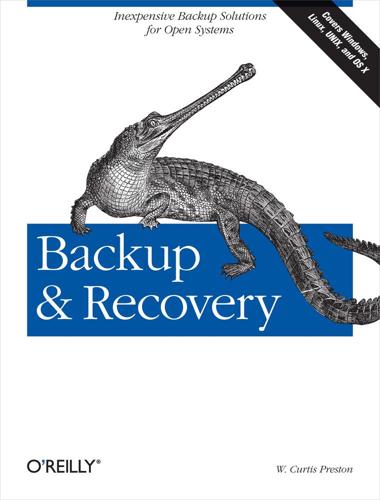
Backup & Recovery
by
W. Curtis Preston
Published 9 Feb 2009
It is also possible that the log is full because either your disk is full or you don’t have auto-growth enabled on that logfile. Make sure before you begin any of these fixes that you make a backup. This will ensure that, no matter how wrong the restore goes, you’ll always be able to revert back to the last known state. Yes, this state is the failed state, but at least you’ll be able to begin again. If the disk has filled up, you can try to gain a temporary reprieve by truncating the transaction log, doing a backup, or freeing space on the drive by removing unnecessary space abusers. However, this will likely buy you only a short amount of time.

The Silk Roads: A New History of the World
by
Peter Frankopan
Published 26 Aug 2015
This is a region that is now home to states that evoke the exotic and the peripheral, like Kazakhstan and Uzbekistan, Kyrgyzstan and Turkmenistan, Tajikistan and the countries of the Caucasus; it is a region associated with regimes that are unstable, violent and a threat to international security, like Afghanistan, Iran, Iraq and Syria, or ill versed in the best practices of democracy, like Russia and Azerbaijan. Overall, it appears to be a region that is home to a series of failed or failing states, led by dictators who win impossibly large majorities in national elections and whose families and friends control sprawling business interests, own vast assets and wield political power. They are places with poor records on human rights, where freedom of expression in matters of faith, conscience and sexuality is limited, and where control of the media dictates what does and what does not appear in the press.4 While such countries may seem wild to us, these are no backwaters, no obscure wastelands.
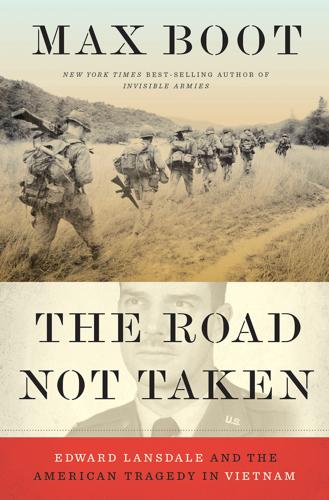
The Road Not Taken: Edward Lansdale and the American Tragedy in Vietnam
by
Max Boot
Published 9 Jan 2018
But already long before then, the bitter seeds of despair were being planted in 1956 as Edward Lansdale was returning home. For Washington made no attempt to replace his constructive, if not always decisive, position of influence, thus setting South Vietnam on the road that would, within less than a decade, render it a failing state kept alive only with heavy infusions of American blood. How different history might have been if Lansdale or a Lansdale-like figure had remained close enough to Diem to exercise a benign influence and offset the paranoid counsel of his brother Ngo Dinh Nhu, who would push the regime into a fatal and far from inevitable confrontation with the Kennedy administration.

The 9/11 Wars
by
Jason Burke
Published 1 Sep 2011
The years immediately before 9/11 and through the first half decade of the wars had dealt the country blows that would have caused many others to fail: a coup (albeit bloodless) in 1999 which overturned an elected if deeply unpopular government, a lengthy military dictatorship, a series of rigged or semi-rigged elections, broad civil unrest, a scandal over the selling of its nuclear weapons secrets and a devastating earthquake. Somehow Pakistan managed not just to survive all this but, in some areas, to thrive. Pakistan was not so much a ‘failed state’ as a state which should by rights have failed long ago but had somehow successfully held on in the face of extreme adversity. The greatest tests were yet to come. Though the country had played a very significant role in setting the scene for the conflict, the 9/11 Wars had largely avoided Pakistani soil in the years following the September 11 attacks.

Post Wall: Rebuilding the World After 1989
by
Kristina Spohr
Published 23 Sep 2019
Ostensibly his trip was simply to reciprocate Honecker’s visit to Paris in January 1988 but Kohl was aggrieved that he – the most interested party – was being upstaged. At a deeper level, he felt that the French president was being two-faced – professing support for Kohl and the drive for unity yet apparently cultivating a failing state for France’s own benefit. Moreover, on 6 December Mitterrand had met Gorbachev in Kiev to talk over Germany and Eastern Europe. Getting to the GDR ahead of Mitterrand was therefore the main reason for fixing the Kohl–Modrow meeting for the day before.[140] On 8 December, there was another bombshell.

Thomas Cromwell: A Life
by
Diarmaid MacCulloch
Published 26 Sep 2018
The English still massage their egos with the memory of occasional military victories on the way – Crécy, Poitiers, Agincourt – but the reality was that by 1453 they had been roundly expelled from France, retaining only a toehold with some islands off the French coast, plus a heavily guarded coastal town called Calais, which defended the shortest sea-route to England towards Dover. That mid-fifteenth-century defeat was a terrible humiliation for the Plantagenets, and it was one of the reasons that the royal line descended into murderous quarrels which for a while made Plantagenet England into something of a failed state. Out of civil wars between Plantagenet factions, Lancastrians and Yorkists, the least likely winner emerged, the grandson of a personable Welshman called Owen Tudor (ap Tewdwr in his native language), who had married the widow of martial hero King Henry V. Henry Tudor, Earl of Richmond, possessed the most tenuous of hereditary claims to the crown when he arrived in London in 1485, having killed the last Plantagenet king, Richard III, in battle at Bosworth in the English Midlands.

UNIX® Network Programming, Volume 1: The Sockets Networking API, 3rd Edition
by
W. Richard Stevens, Bill Fenner, Andrew M. Rudoff
Published 8 Jun 2013
For example, if an association was aborted by the peer with a user-defined error, that error would be found in this field. SCTP_PEER_ADDR_CHANGE This notification indicates that one of the peer’s addresses has experienced a change of state. This change may either be a failure, such as the destination is not responding when sent to, or a recovery, such as a destination that was in a failed state has recovered. The structure that accompanies an address change is as follows: Section 9.14 Notifications 283 struct sctp_paddr_change { u_int16_t spc_type; u_int16_t spc_flags; u_int32_t spc_length; struct sockaddr_storage spc_aaddr; u_int32_t spc_state; u_int32_t spc_error; sctp_assoc_t spc_assoc_id; }; The spc_aaddr field holds the address of the peer affected by this event.
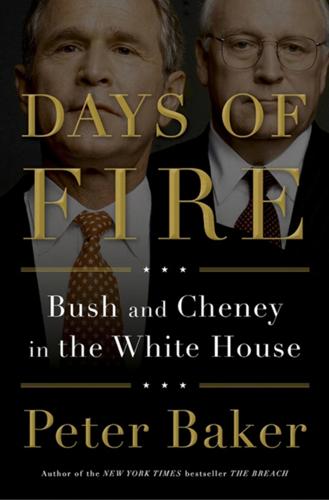
Days of Fire: Bush and Cheney in the White House
by
Peter Baker
Published 21 Oct 2013
Cheney and his allies were appalled that what they saw as a slavish devotion to process would prevent them from interrogating prisoners who might have information that would stop another September 11. Al-Qaeda was not a party to Geneva, and its fighters did not wear uniforms or constitute a legitimate army waging legal warfare. Cheney’s team adopted Yoo’s analysis that while Afghanistan had signed Geneva years ago, the country had since become a failed state and therefore no longer constituted a party to the conventions, a novel interpretation not explicitly envisioned by treaty provisions. “We have an image to uphold around the world,” Powell countered. “If we don’t do this, it will make it much more difficult for us to try and encourage other countries to treat people humanely.”

Central America
by
Carolyn McCarthy
,
Greg Benchwick
,
Joshua Samuel Brown
,
Alex Egerton
,
Matthew Firestone
,
Kevin Raub
,
Tom Spurling
and
Lucas Vidgen
Published 2 Jan 2001
But the armed forces, in an effort to avert widespread rioting and perhaps civil war, flew Zelaya to Costa Rica rather then placing him under arrest. While the world cried foul, the Honduran government stood its ground, standing up to the USA, Brazil and other world powers, calling the event a ‘constitutional transition’ all the while its country teetered precariously on the precipice of becoming a failed state. President of Congress, Roberto Micheletti, assumed interim presidential duties. With Zelaya on the sidelines, Honduras moved forward with transparent elections in November 2009, electing National Party member Porfirio ‘Pepe’ Lobo. Though no single country in the world recognized the de facto government as lawful, several recognized the legitimacy of Porfirio Lobo’s election.
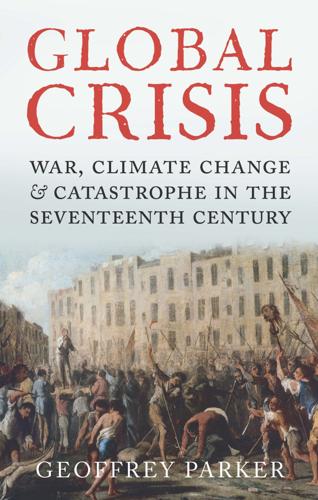
Global Crisis: War, Climate Change and Catastrophe in the Seventeenth Century
by
Geoffrey Parker
Published 29 Apr 2013
Some wrote treatises advocating ‘universal peace’. In 1623 the French monk Emeric Crucé proposed the creation of a permanent international assembly of ambassadors, to whom sovereigns would present their differences for adjudication, solemnly swearing to accept the majority decision (although, if they failed, states should enforce a settlement through economic and even military sanctions). It was to be a truly international body, and although Crucé proposed Venice as its ideal location, he felt confident that ‘navigation can overcome [the] difficulty’ that delegates from Persia, China and the Americas would face in getting there.